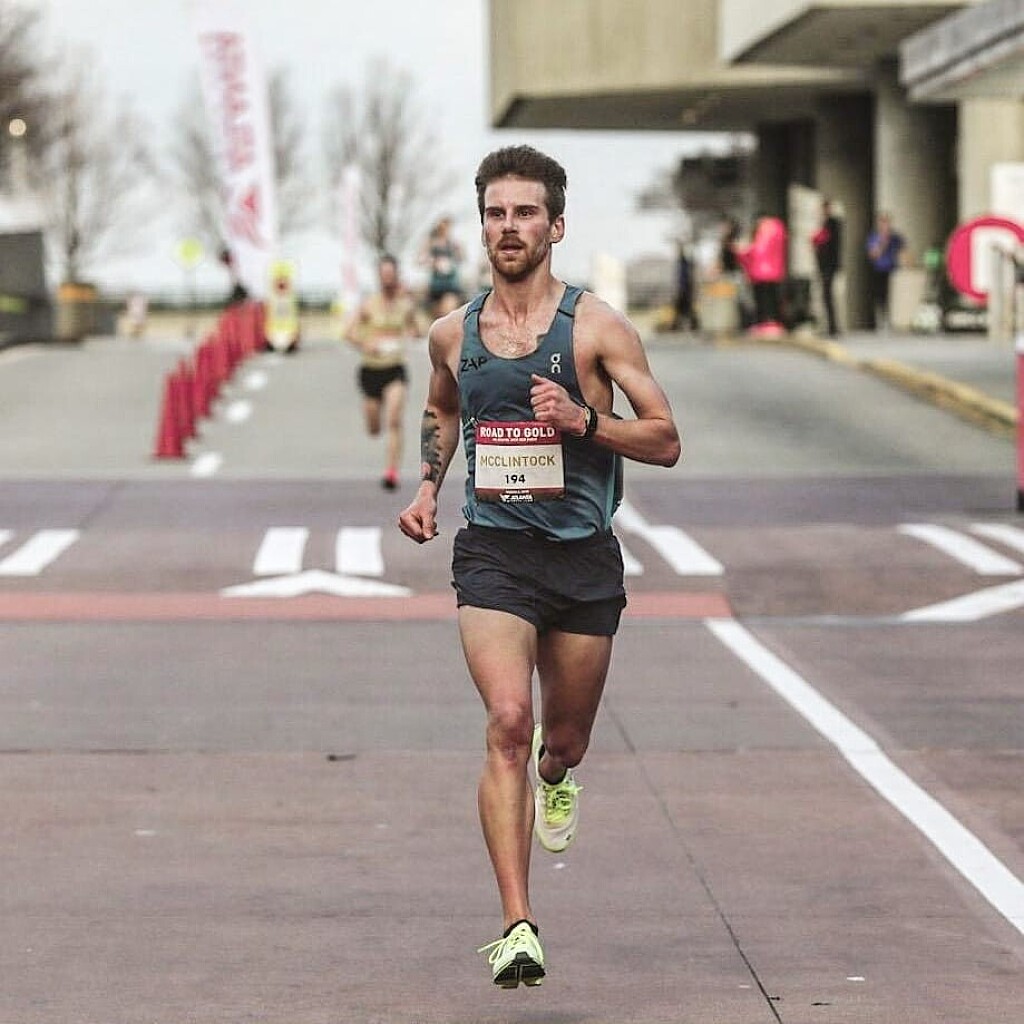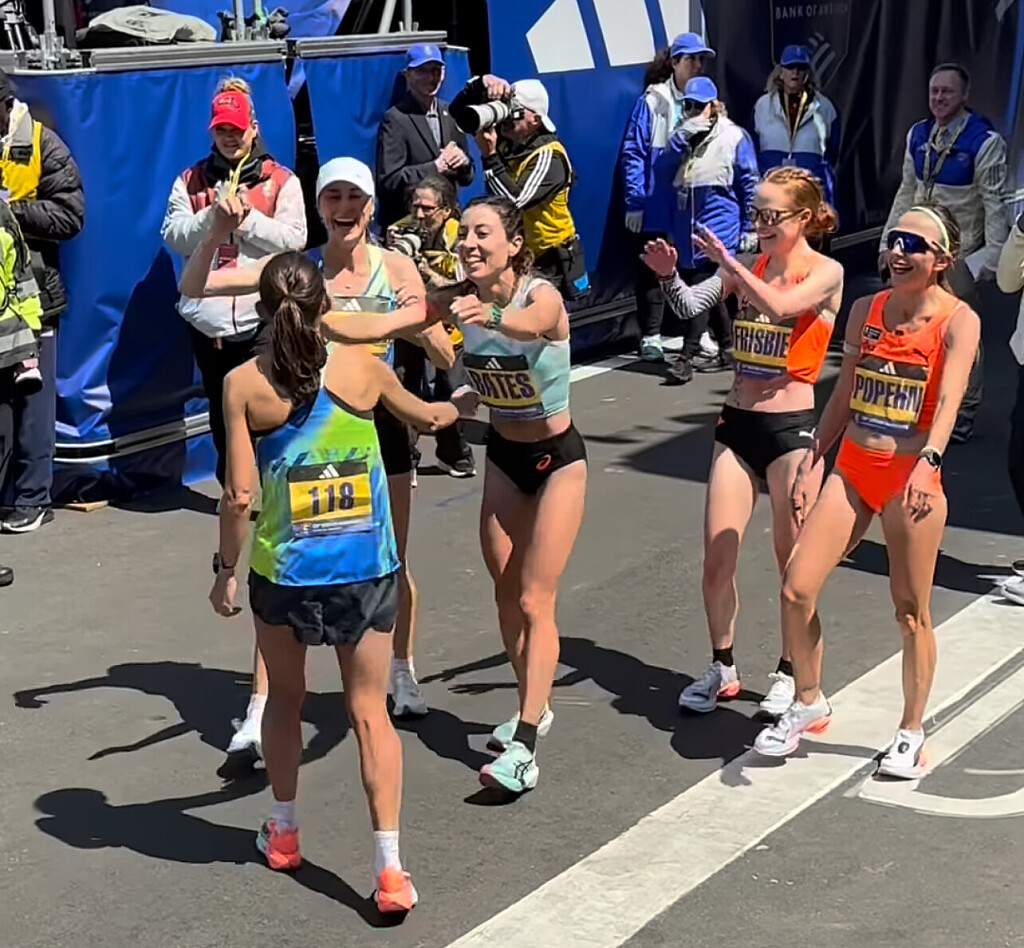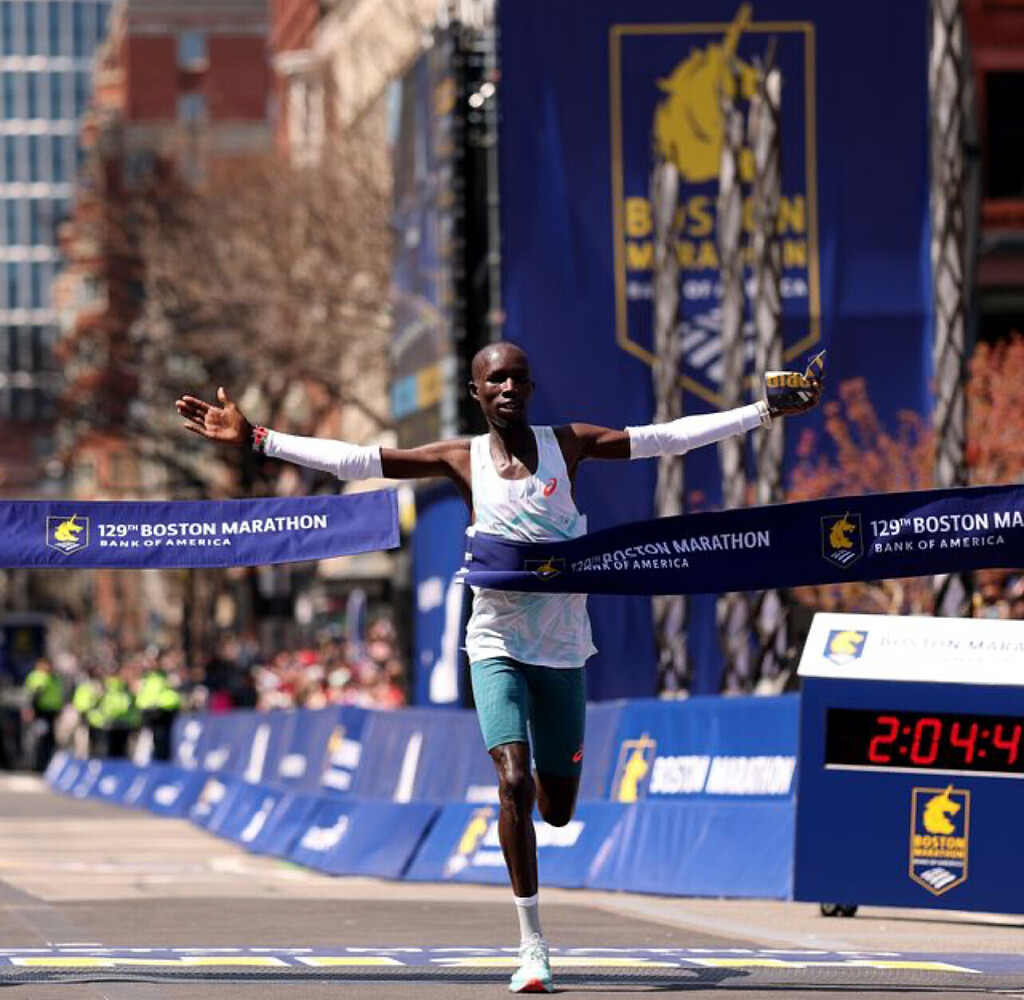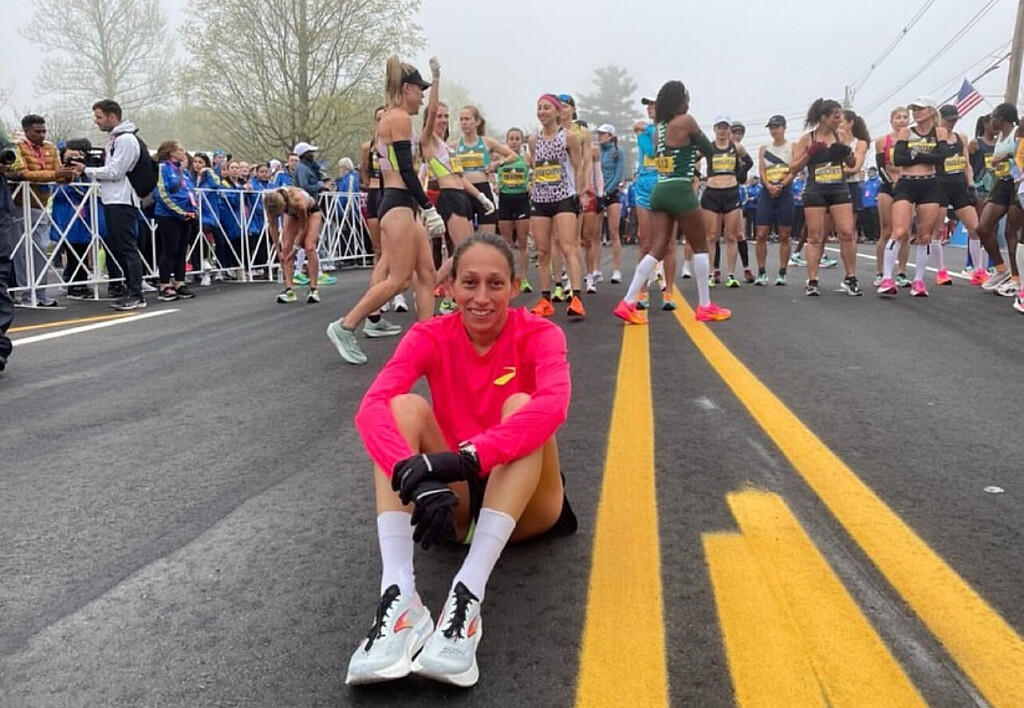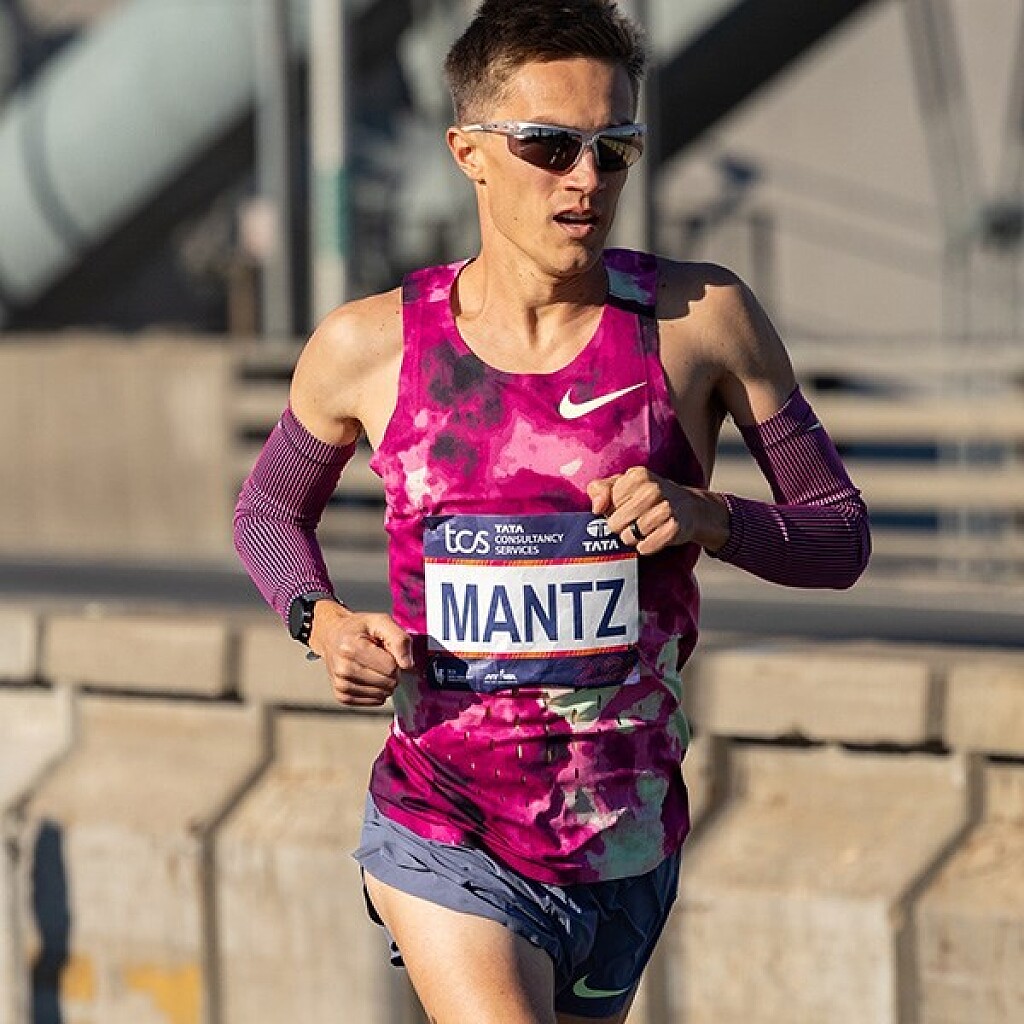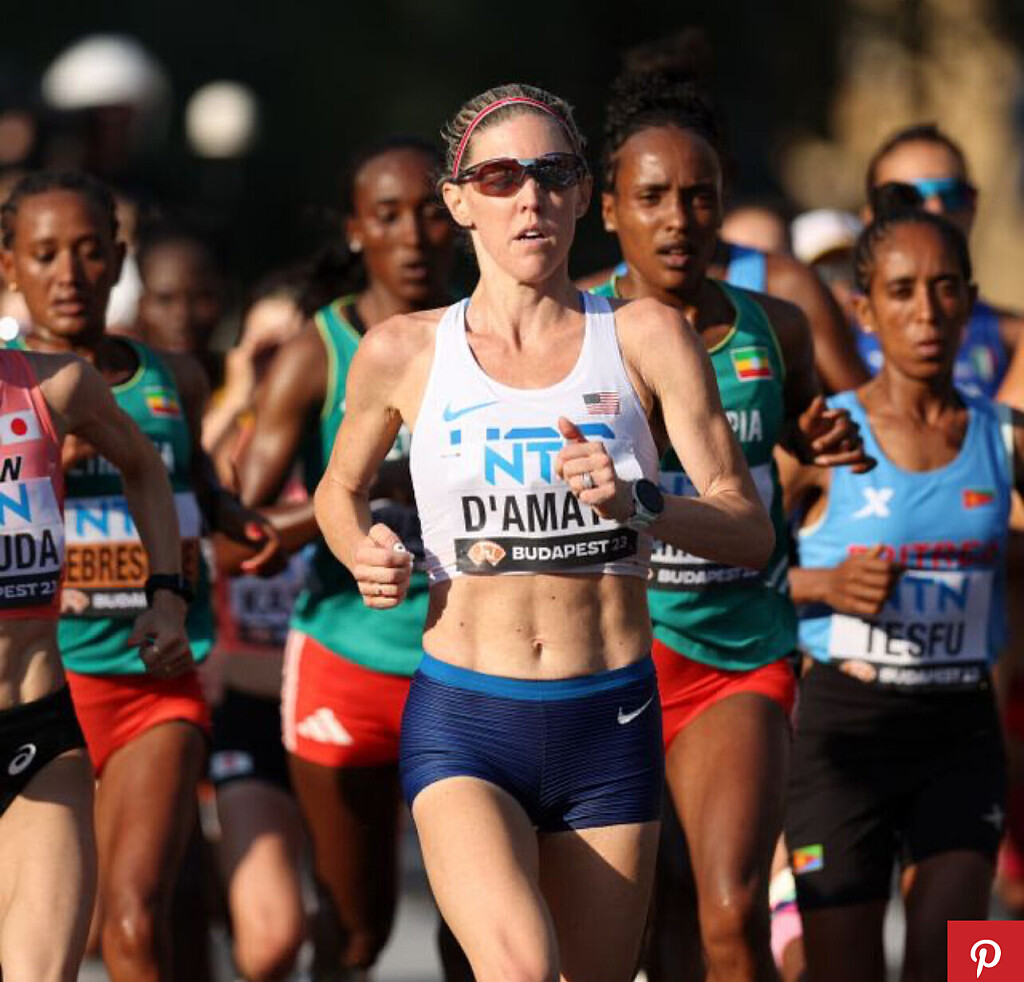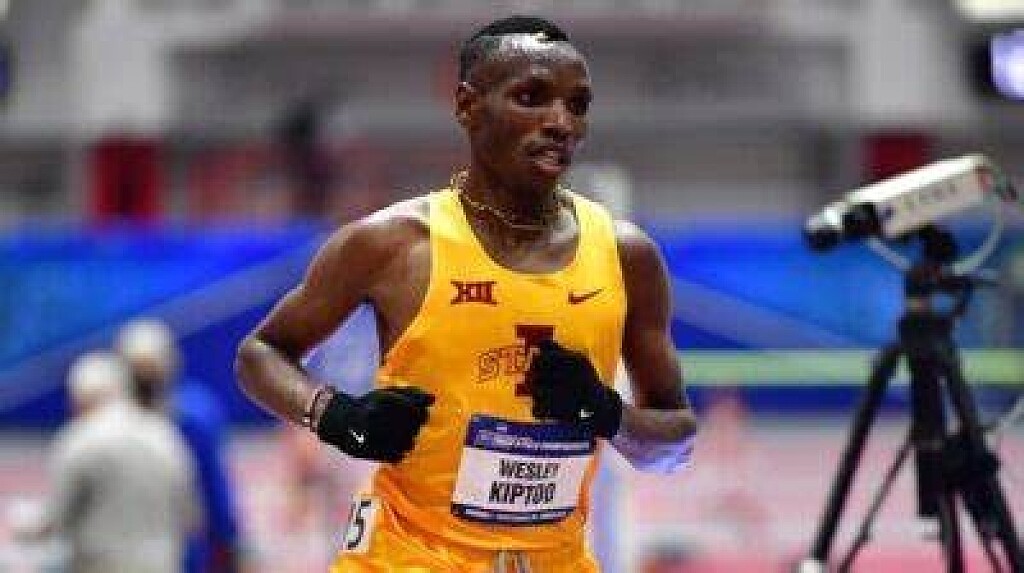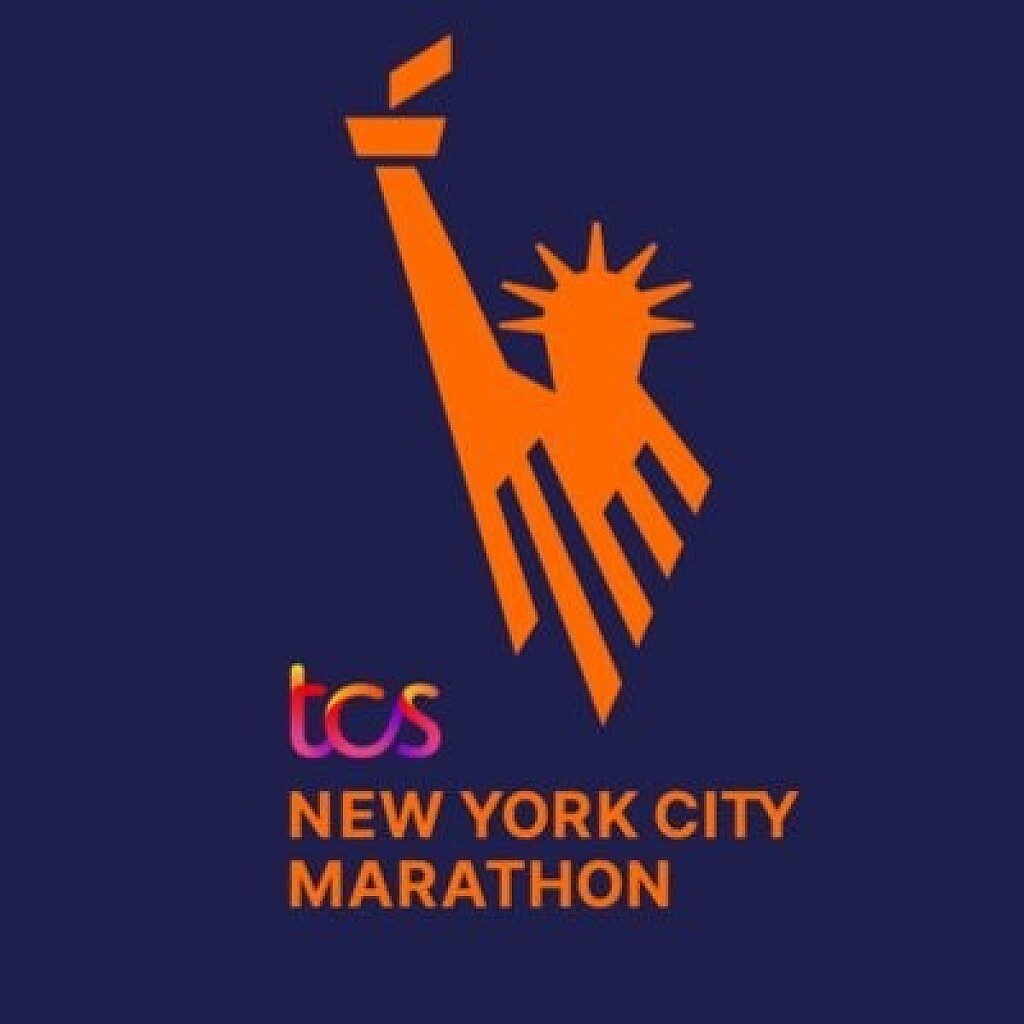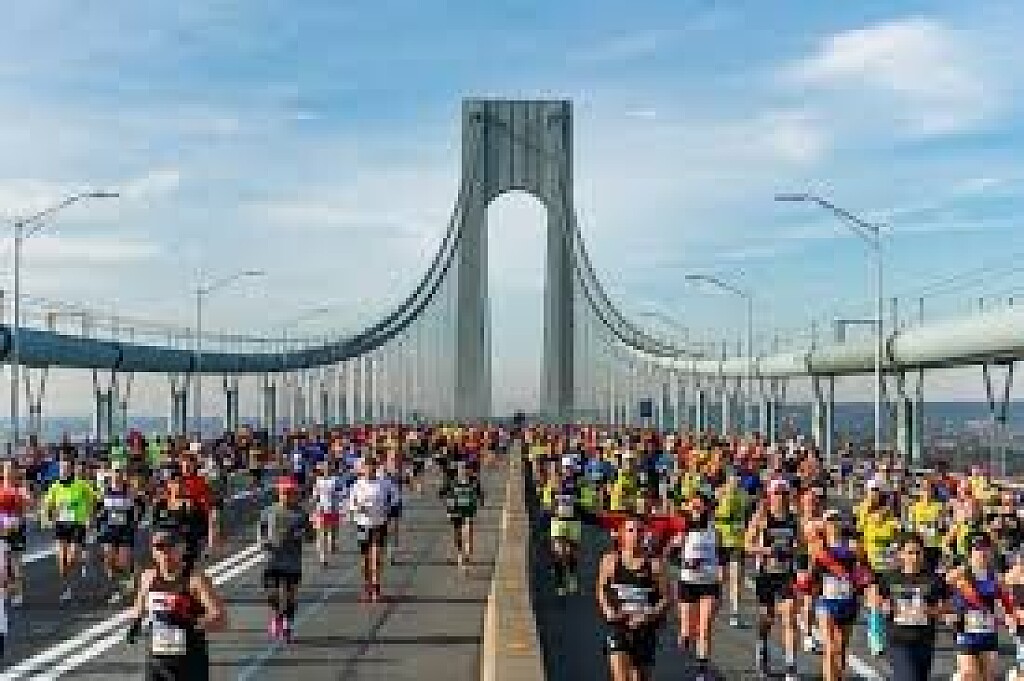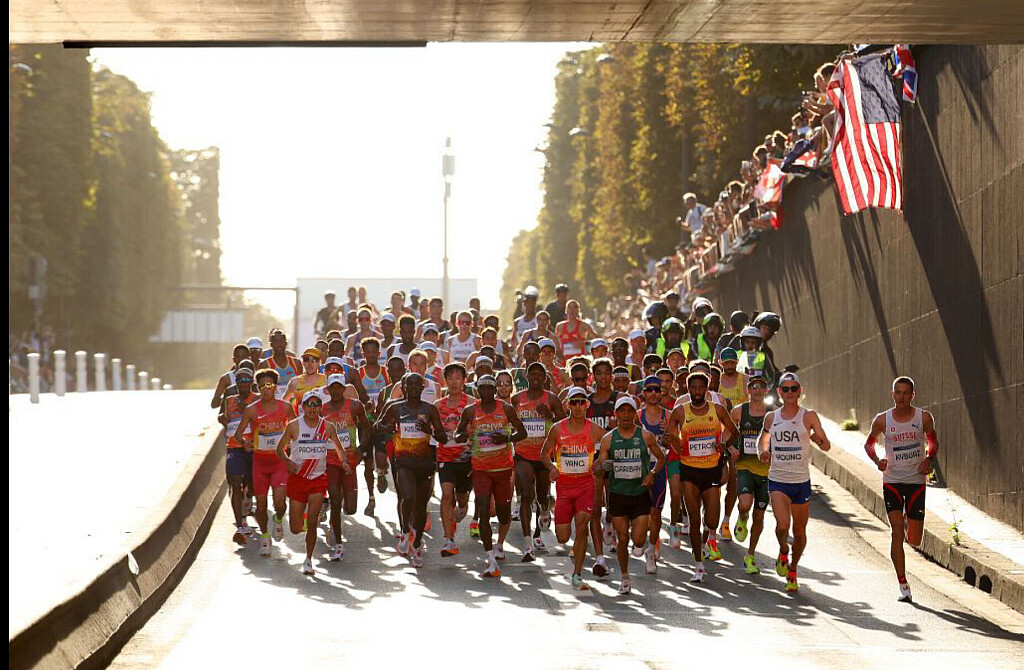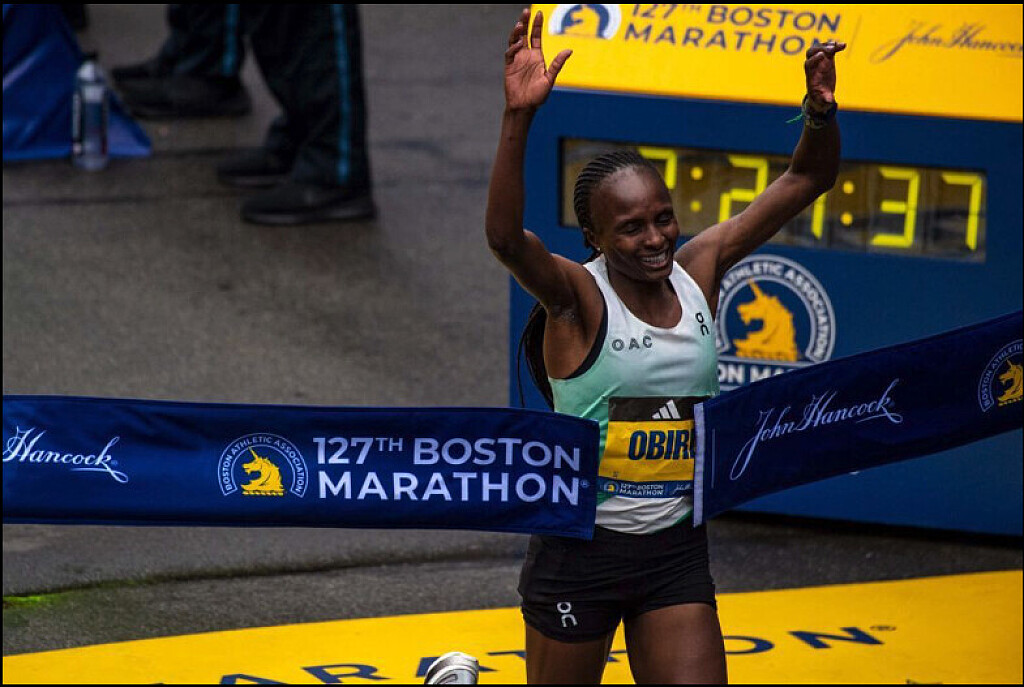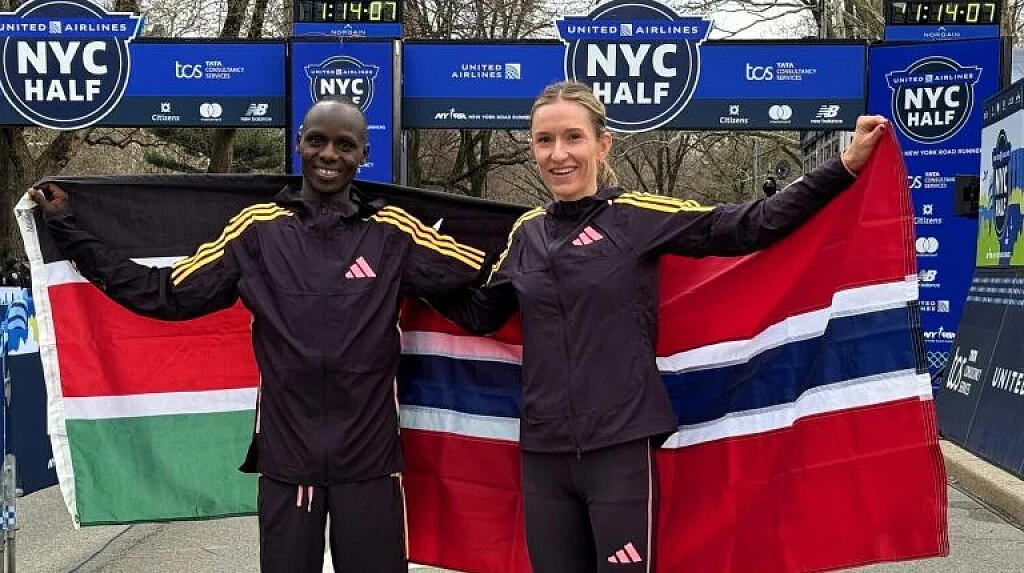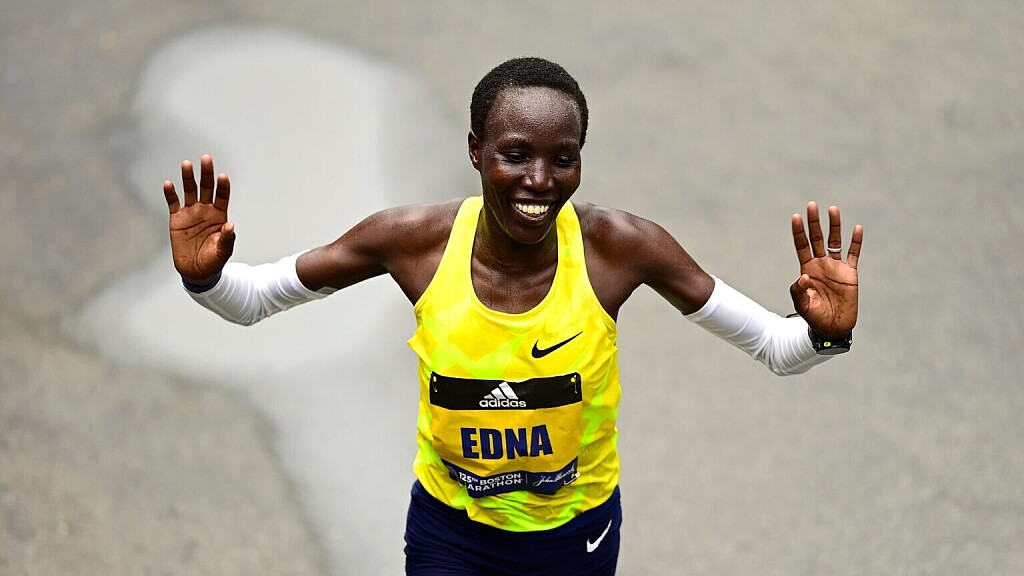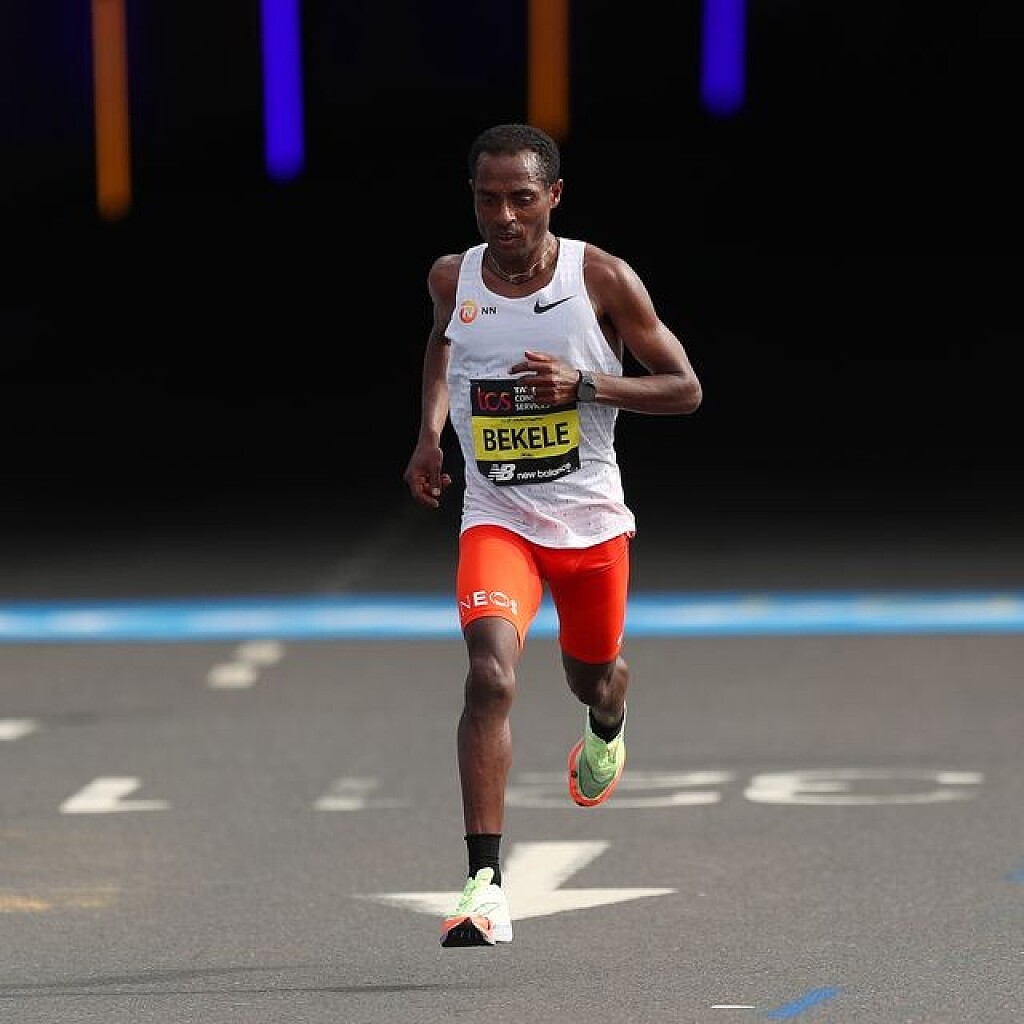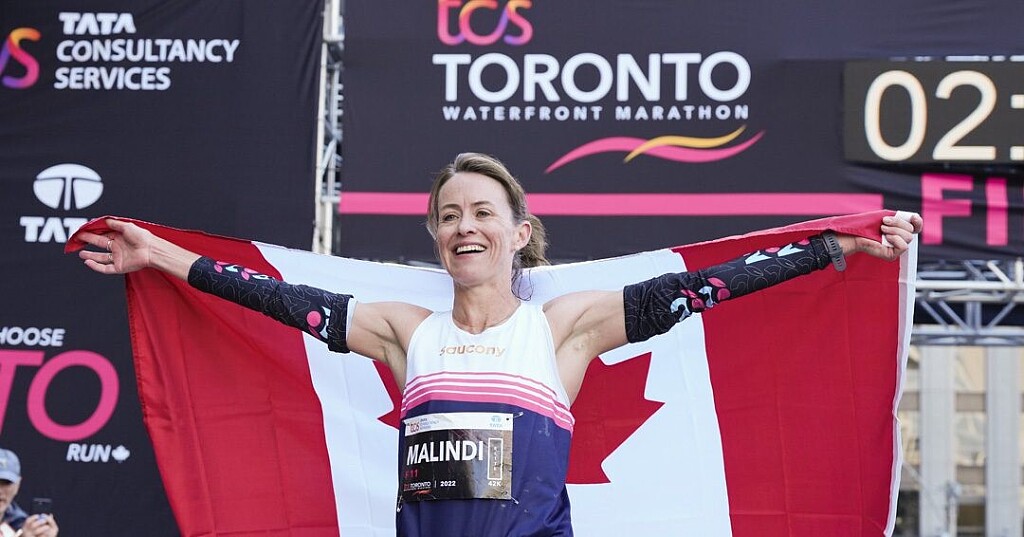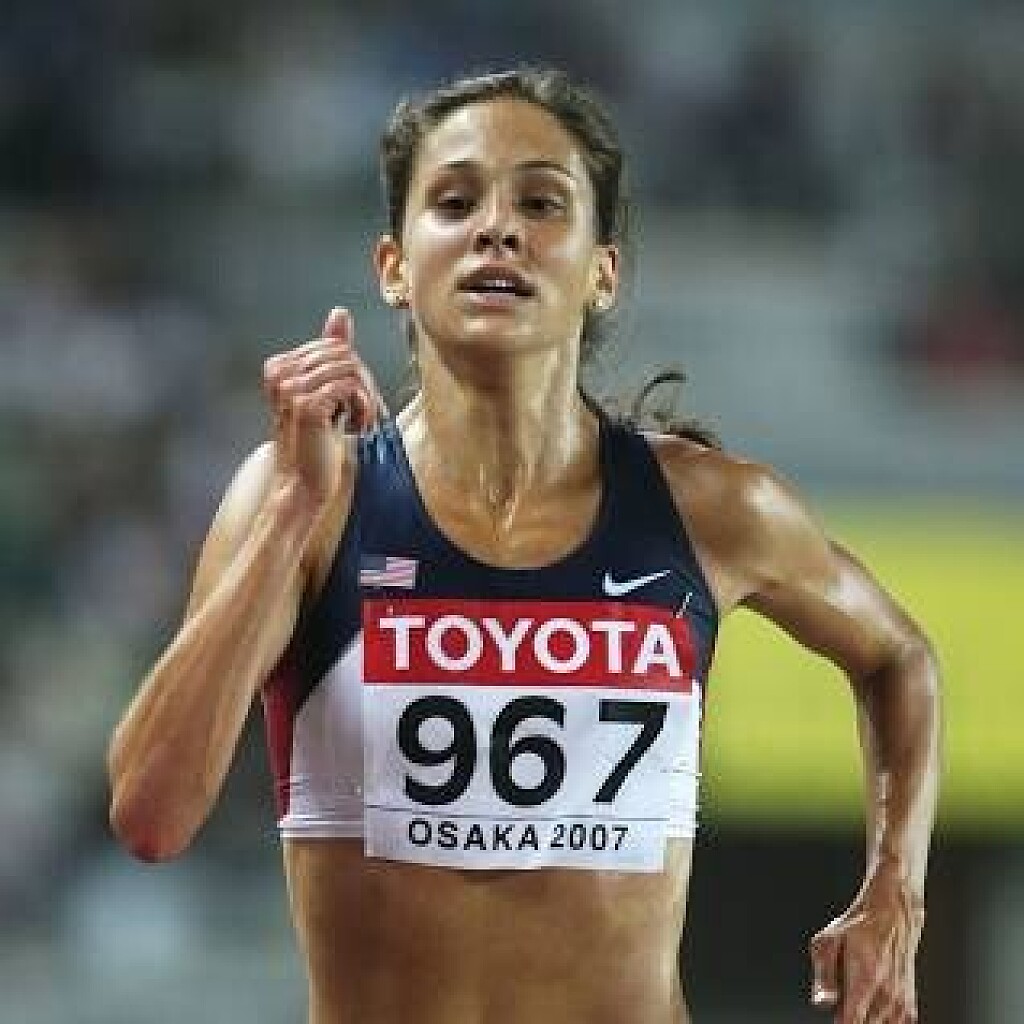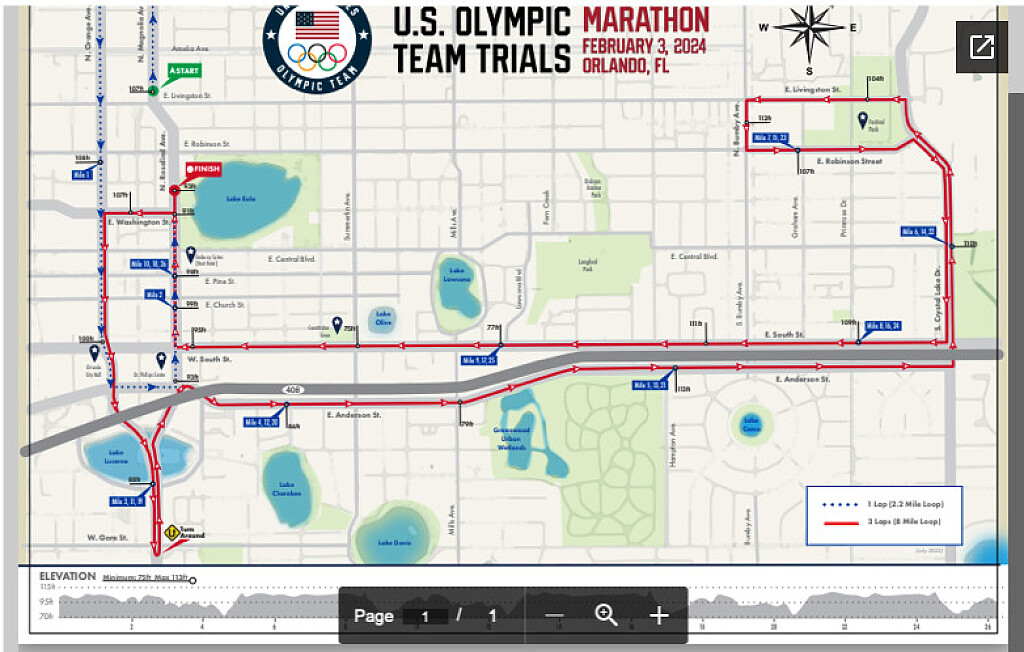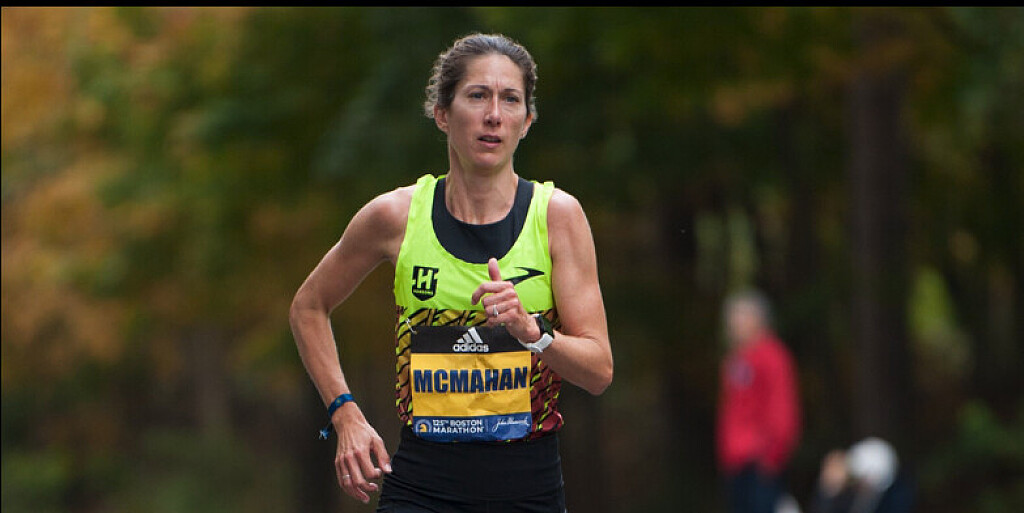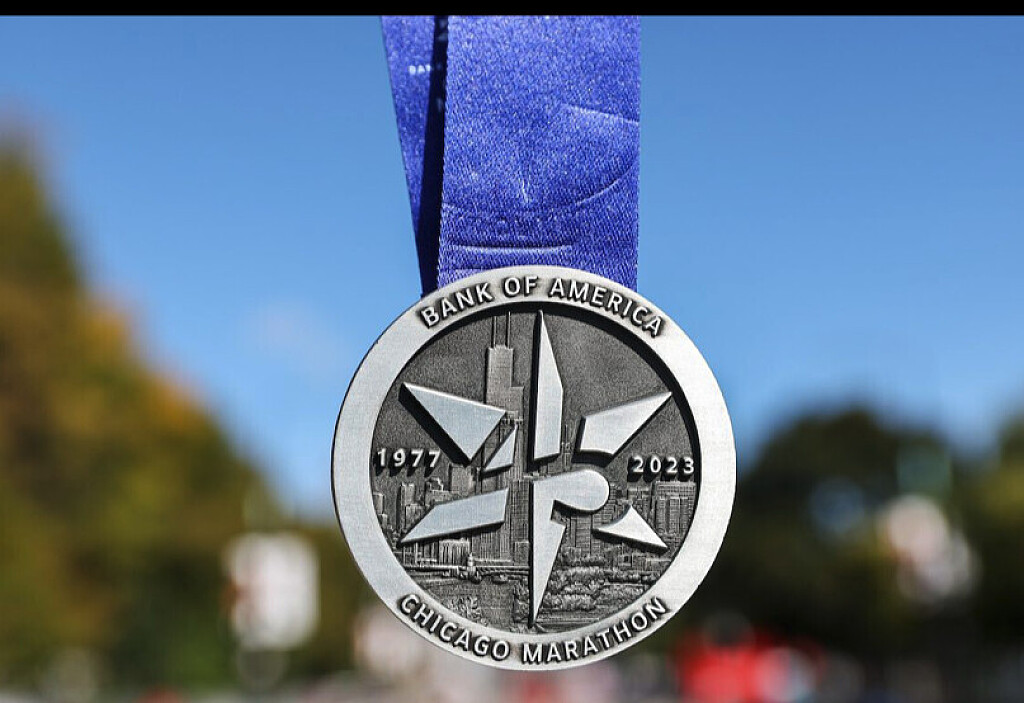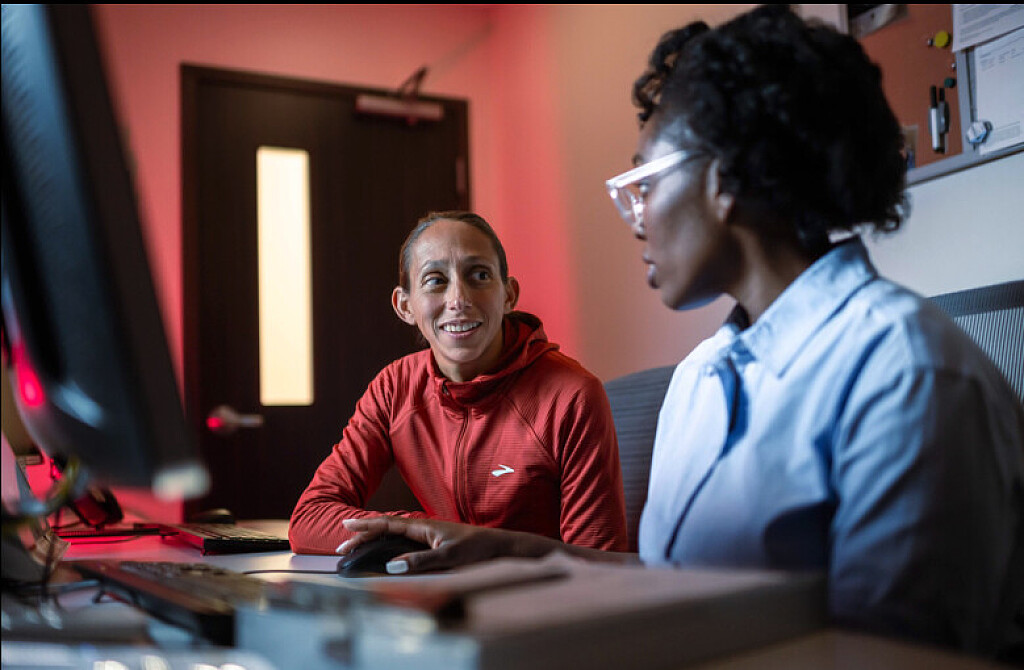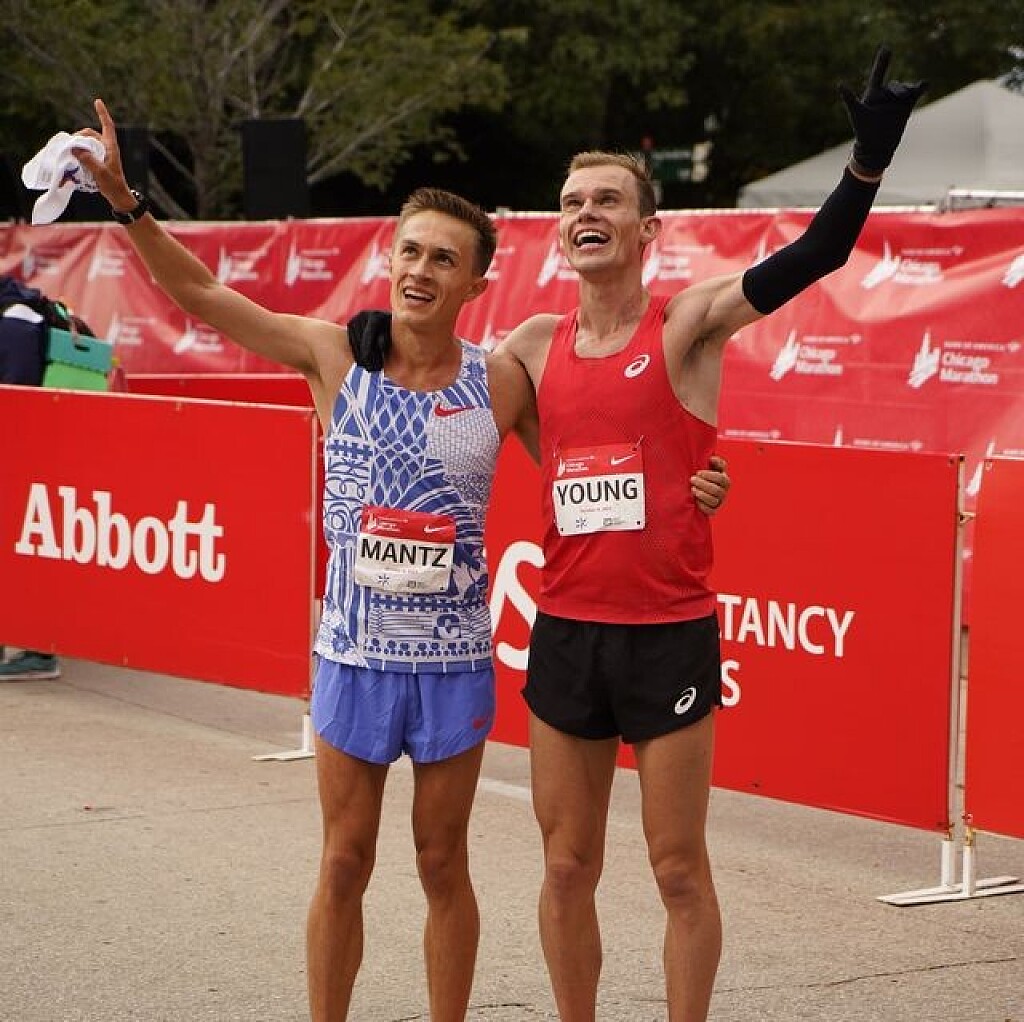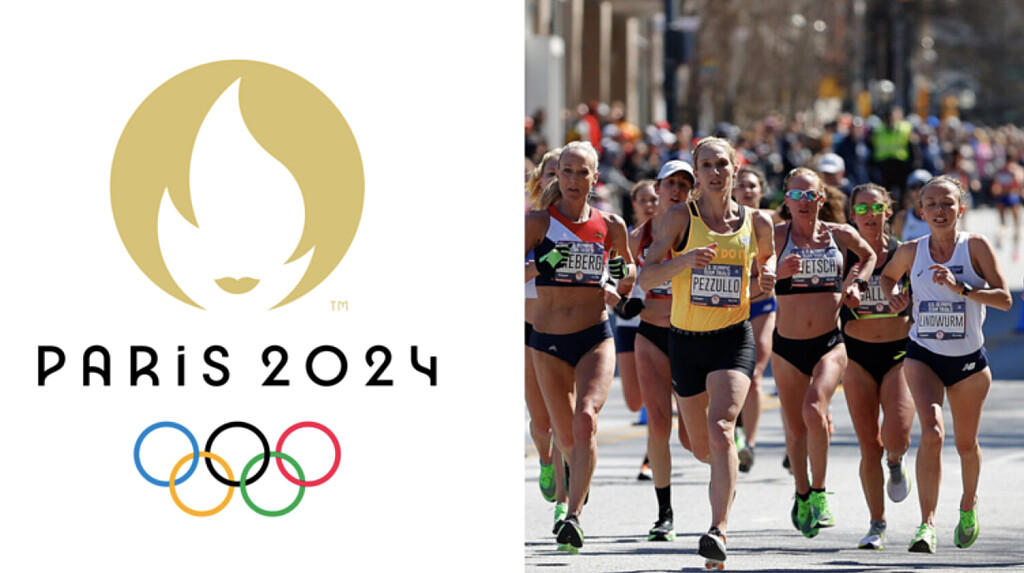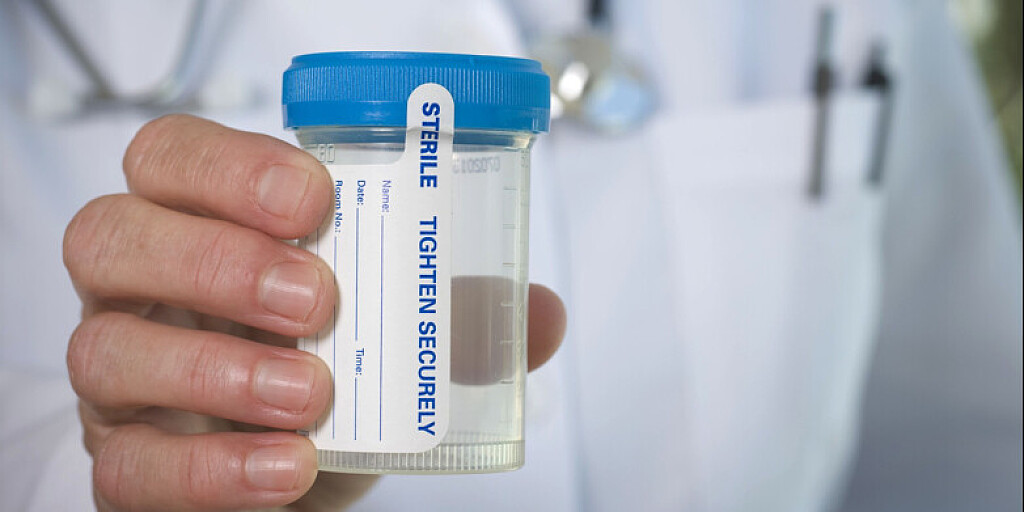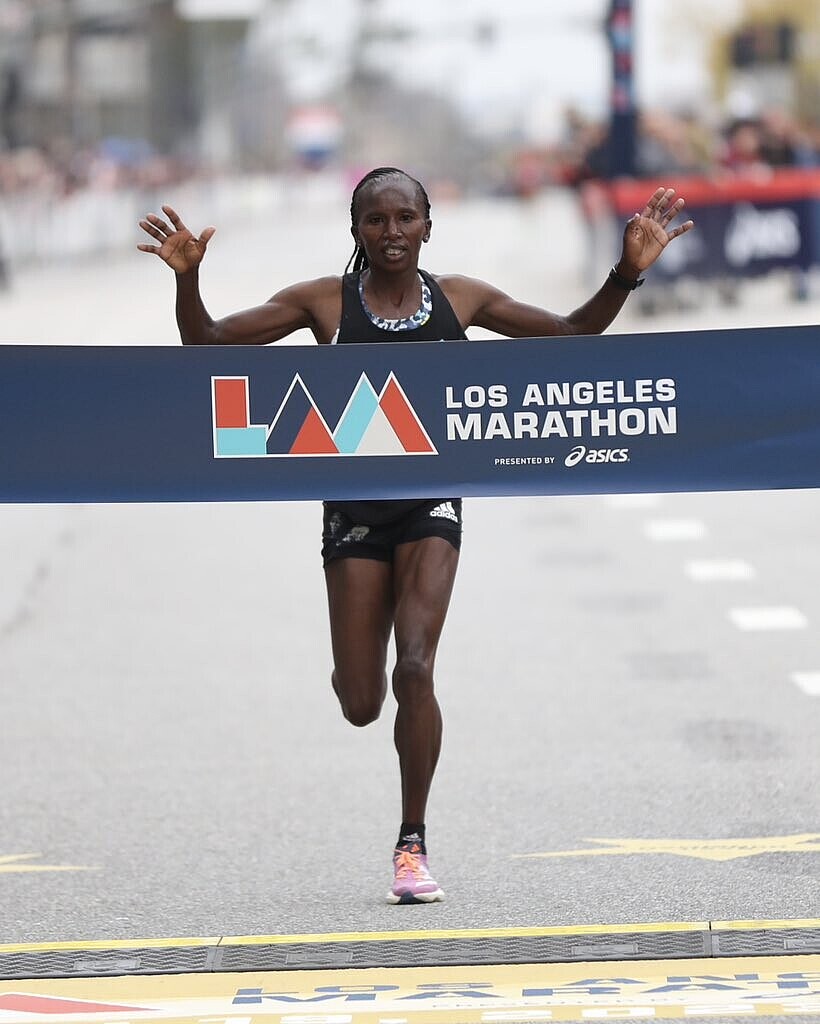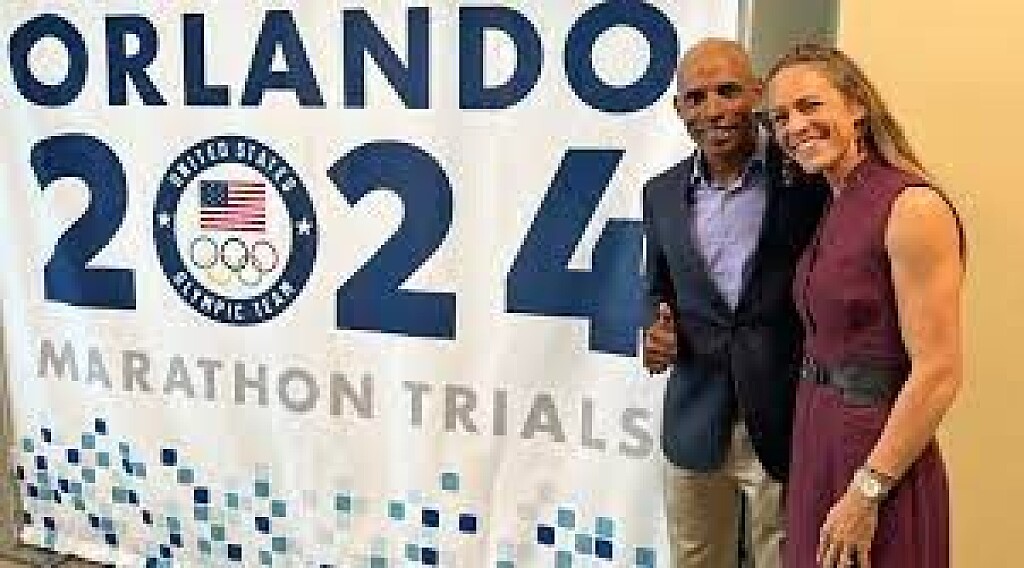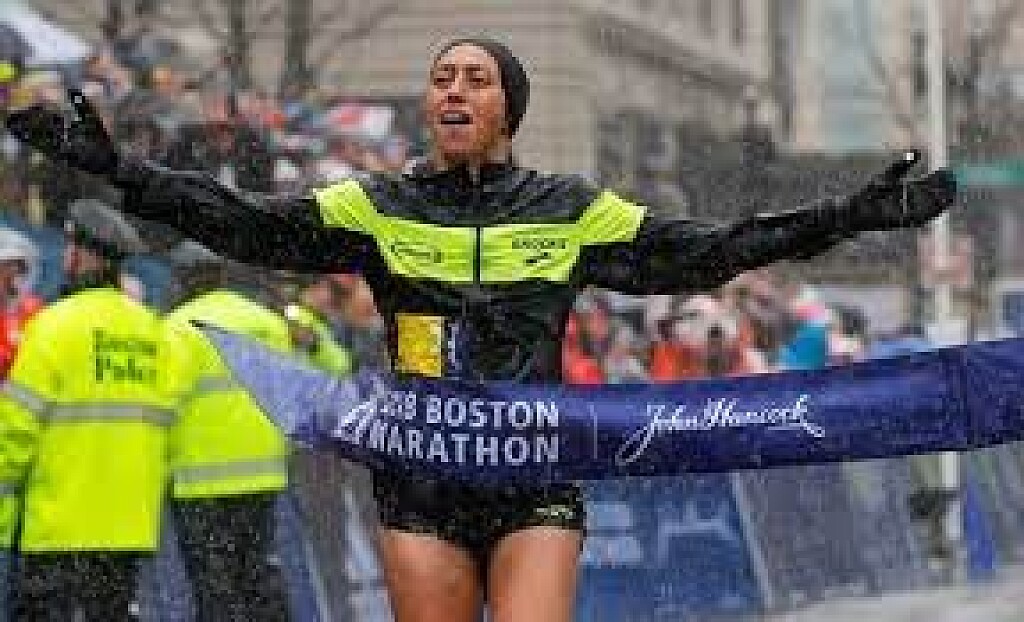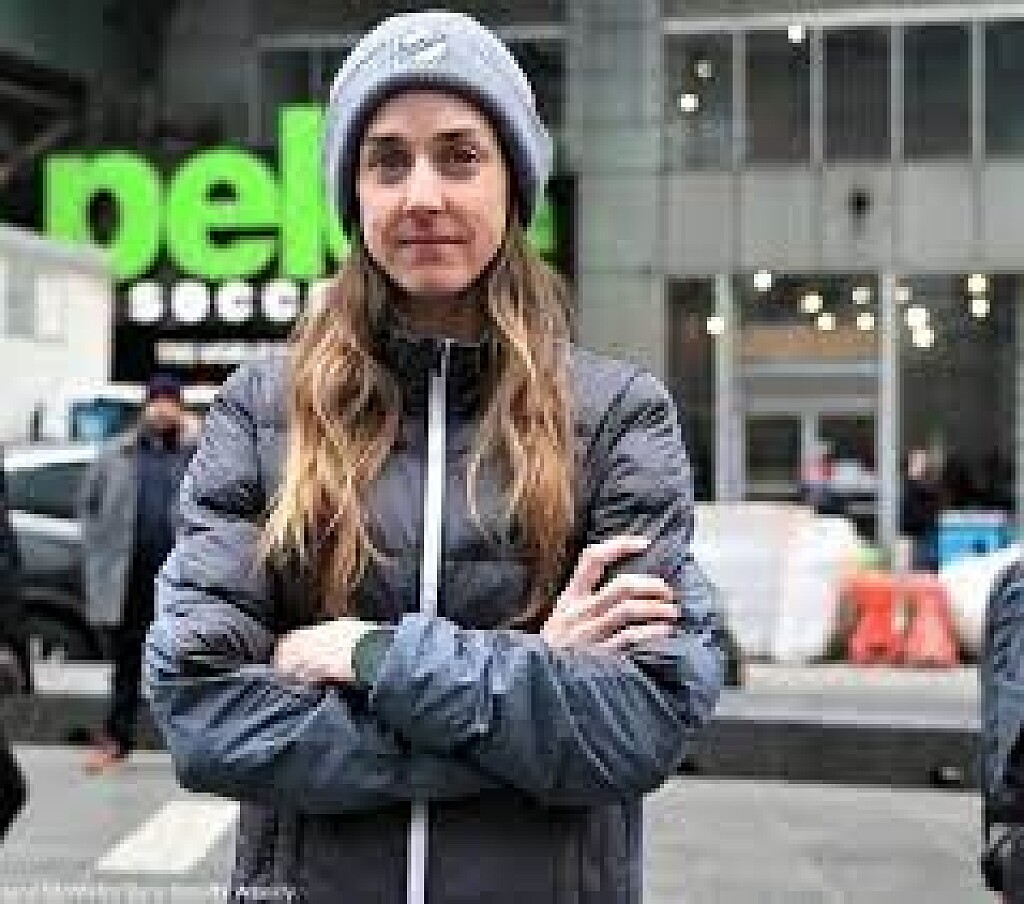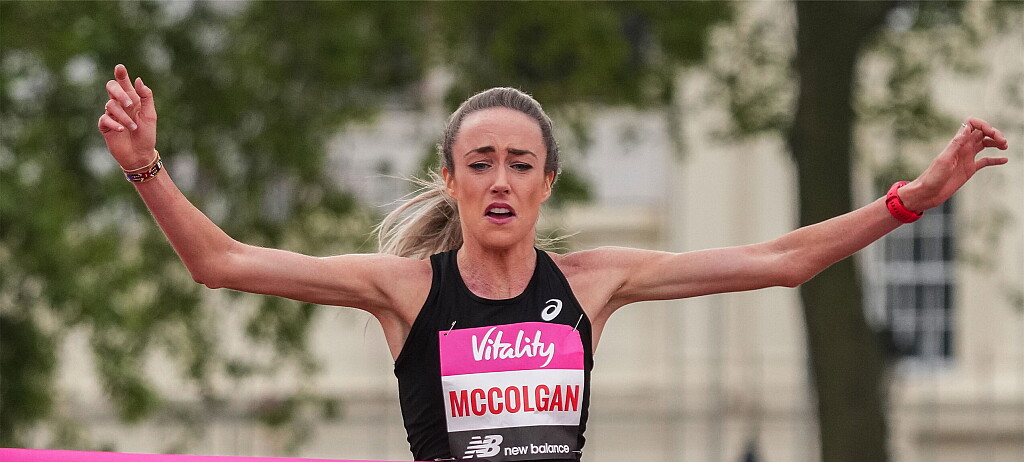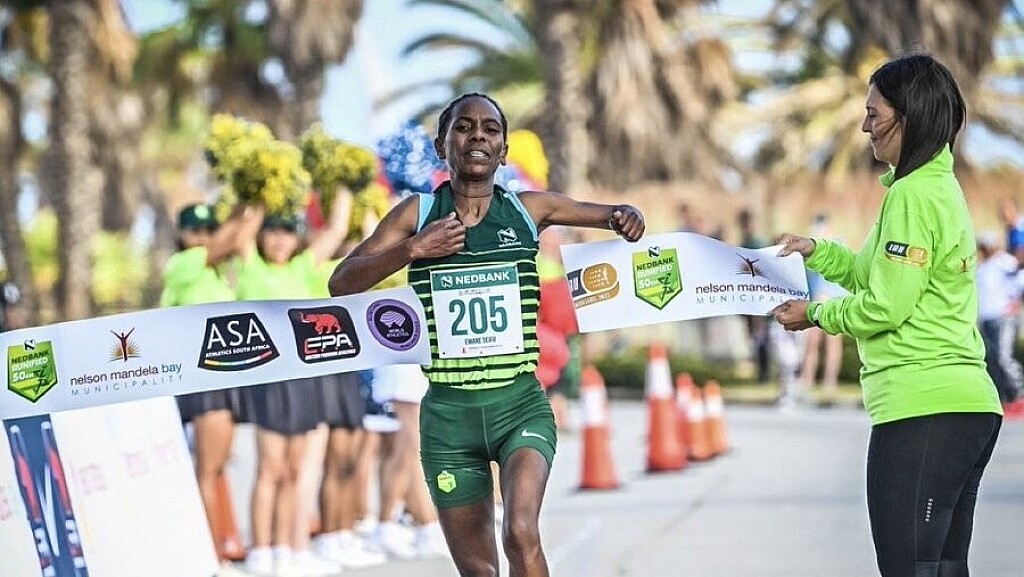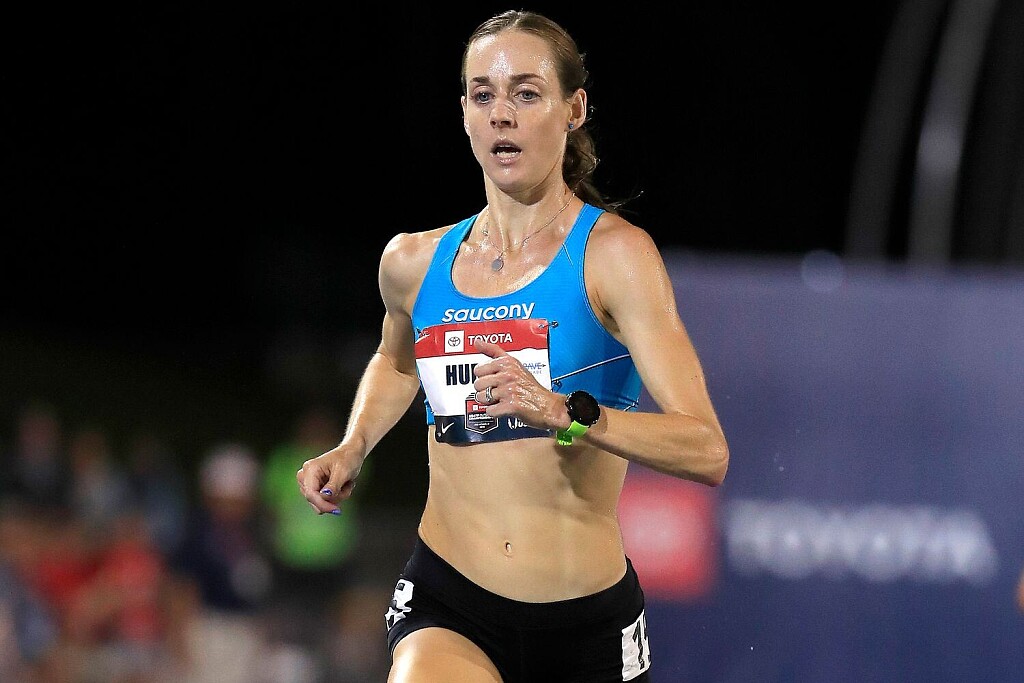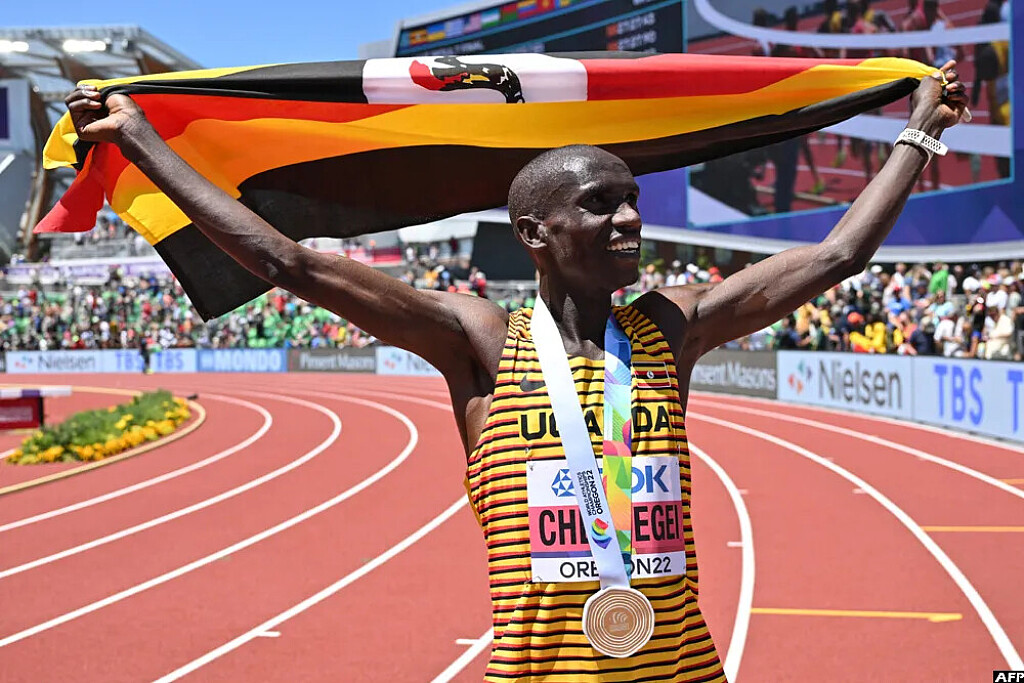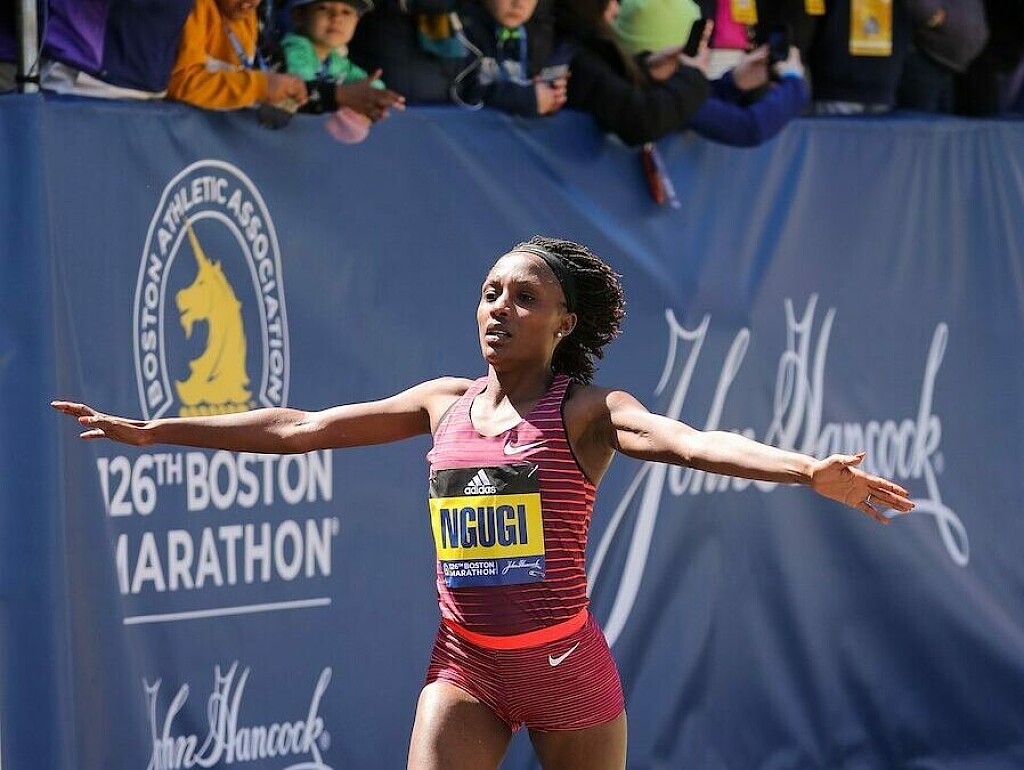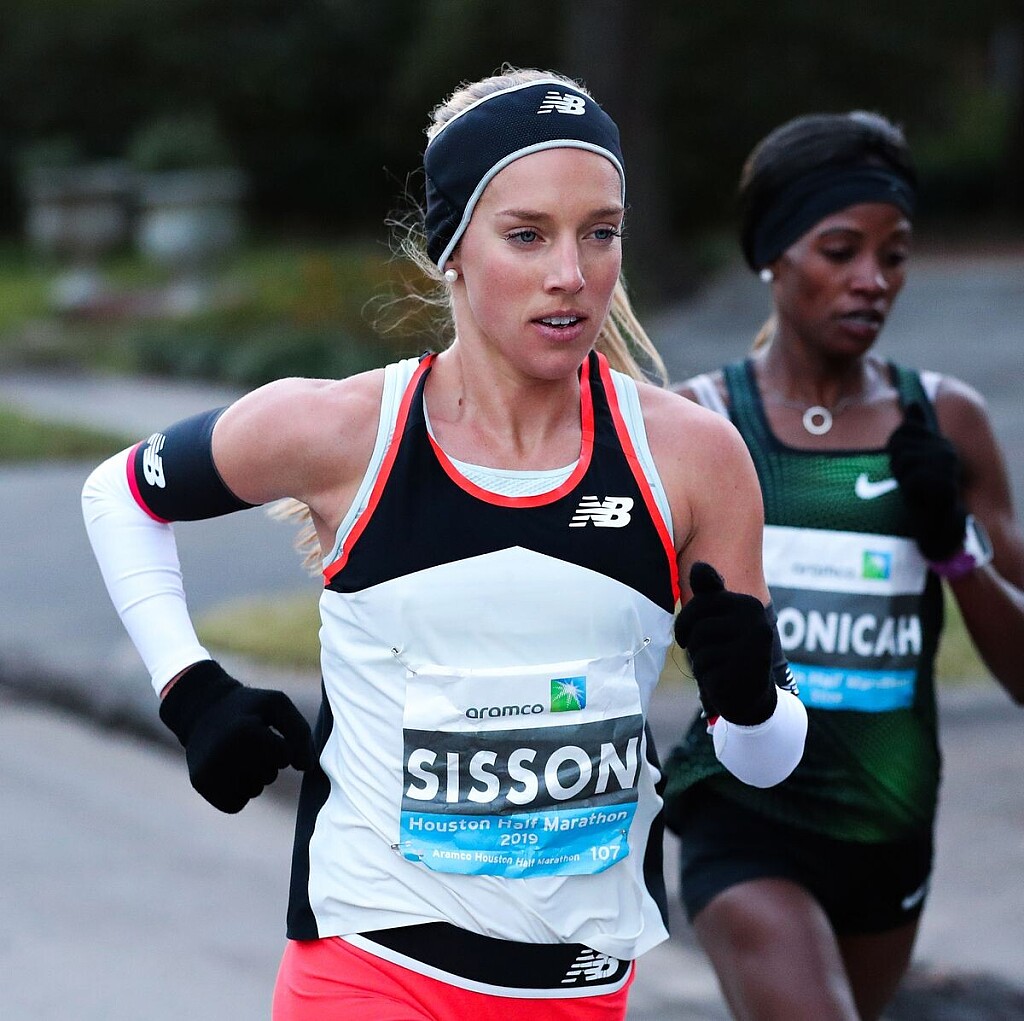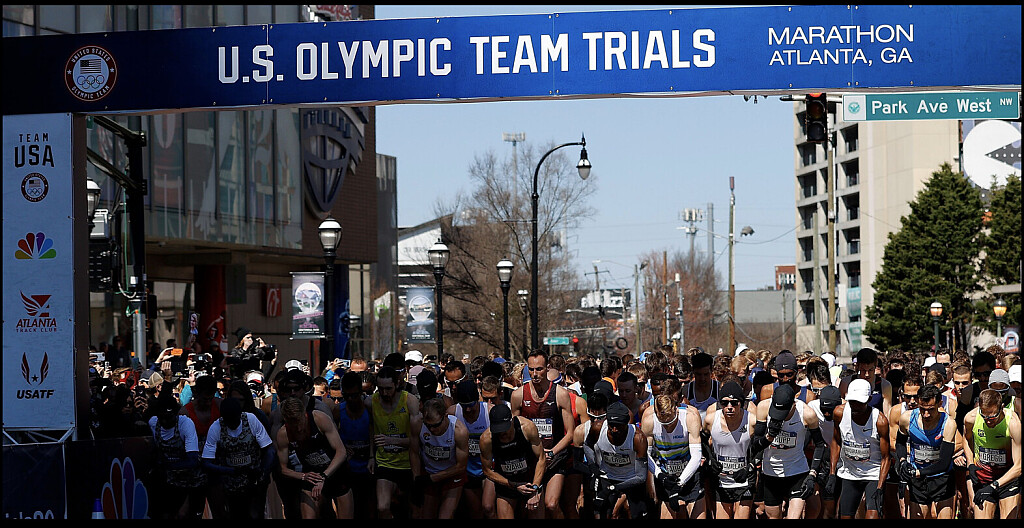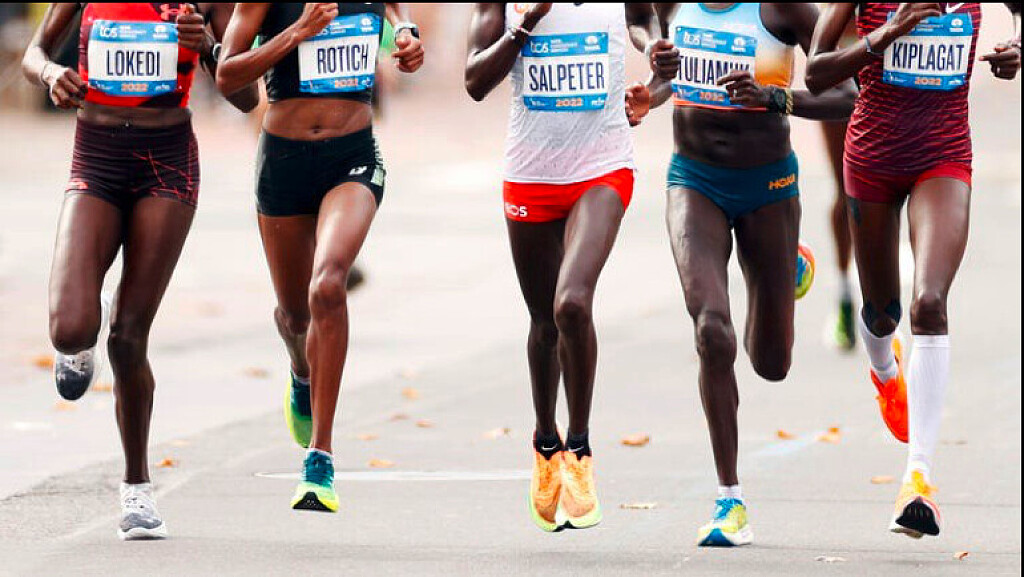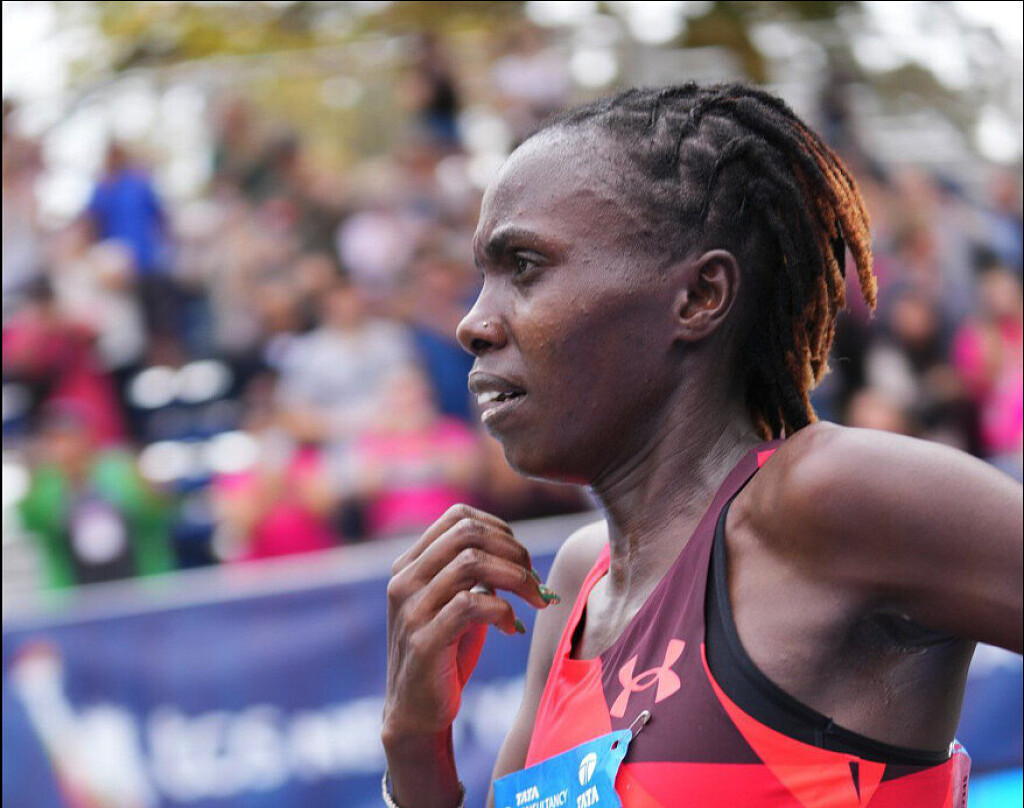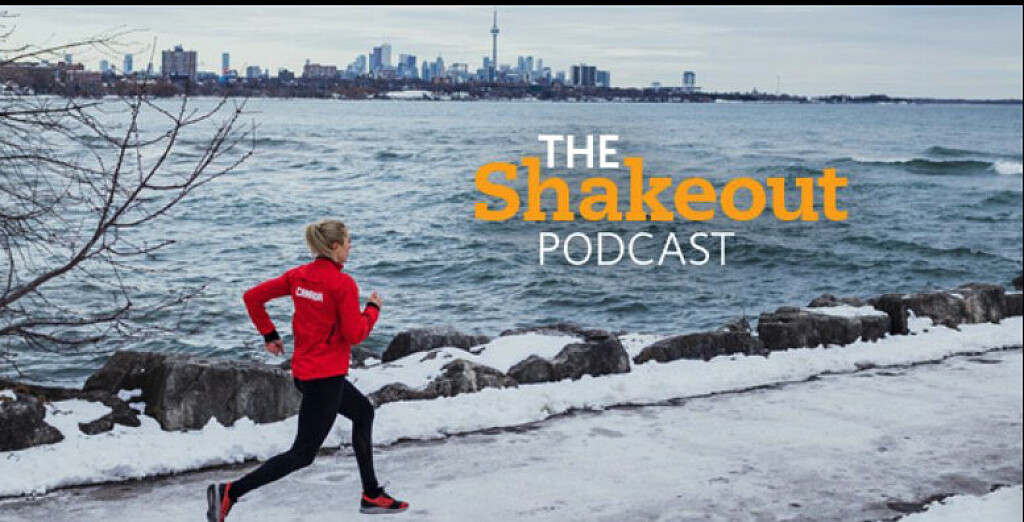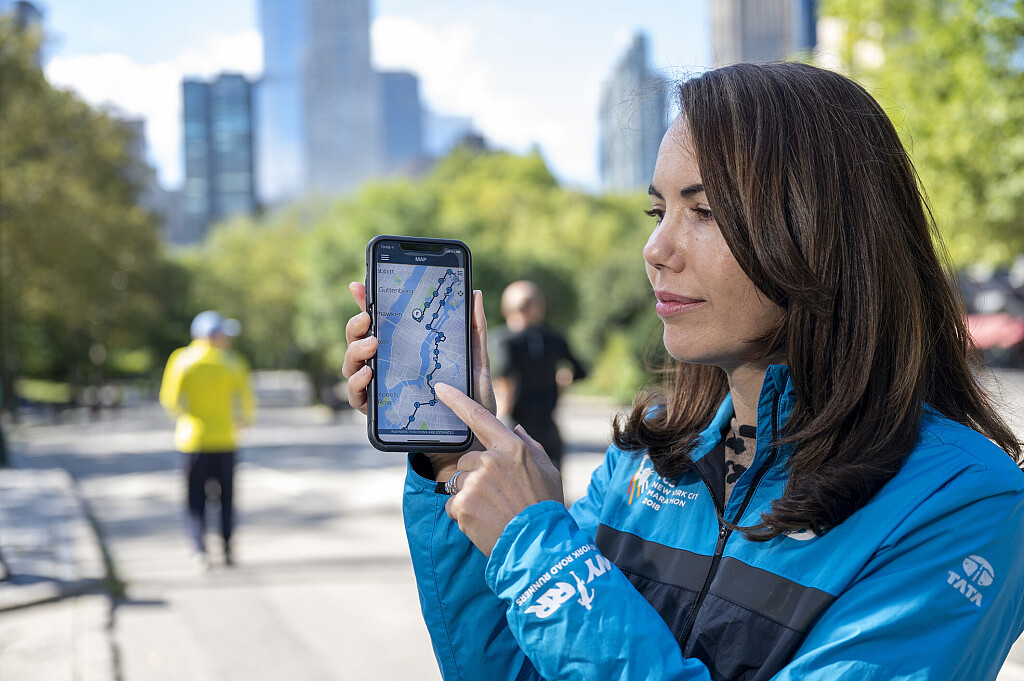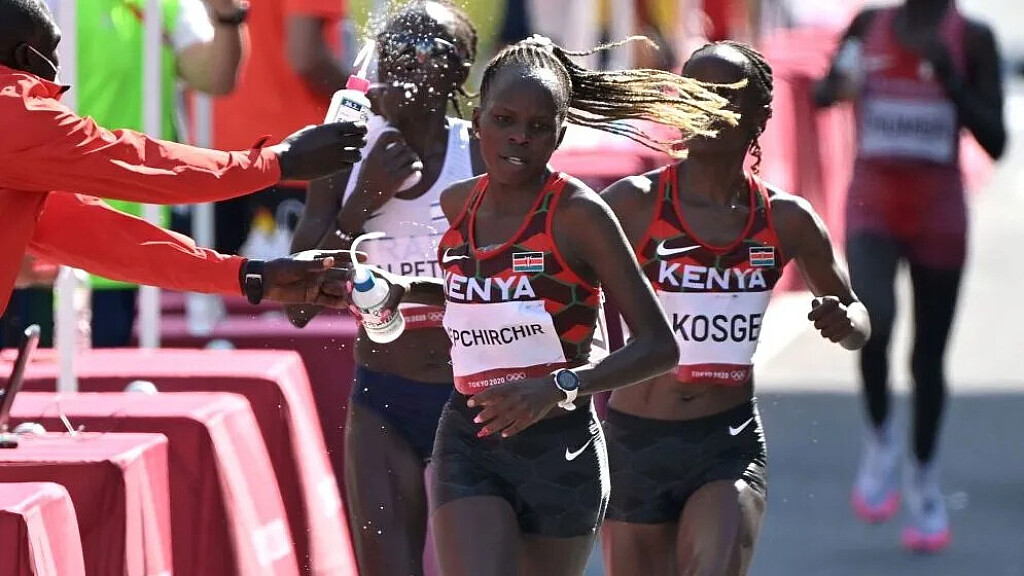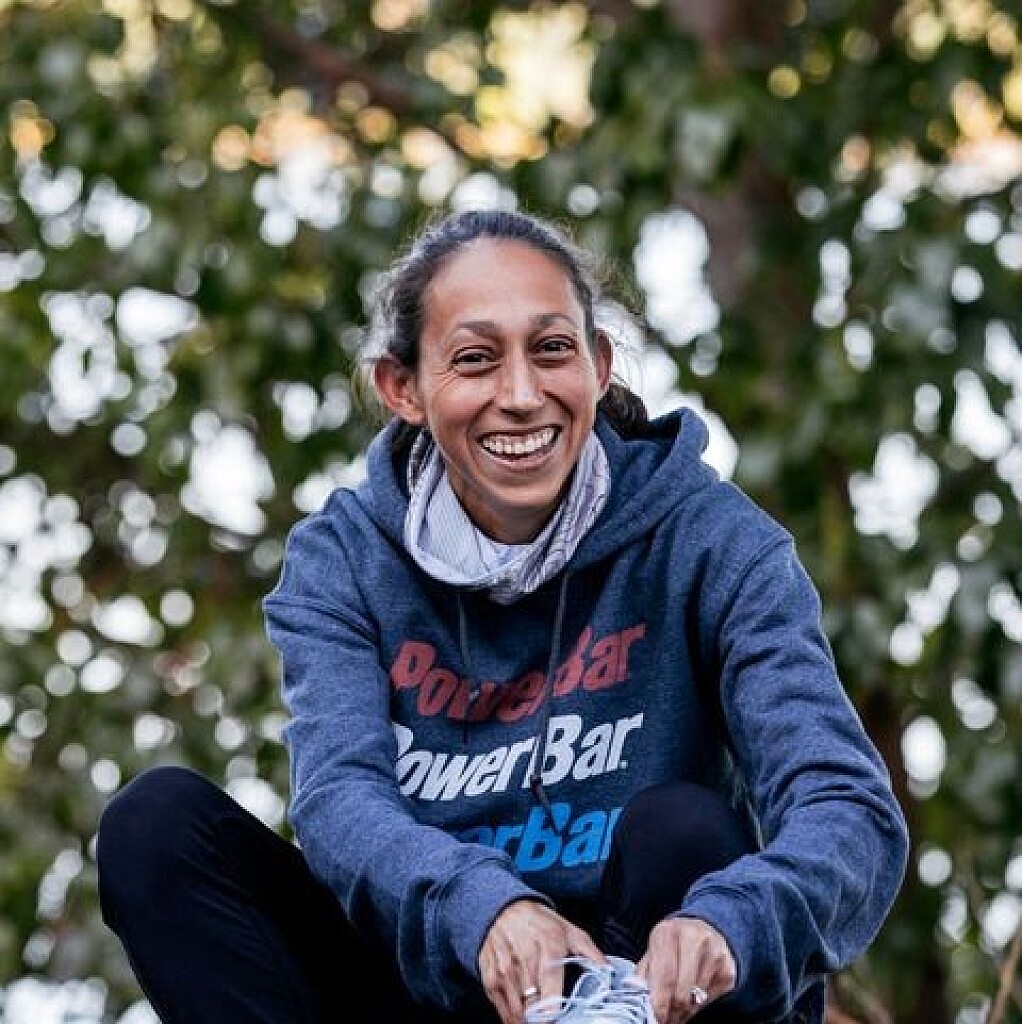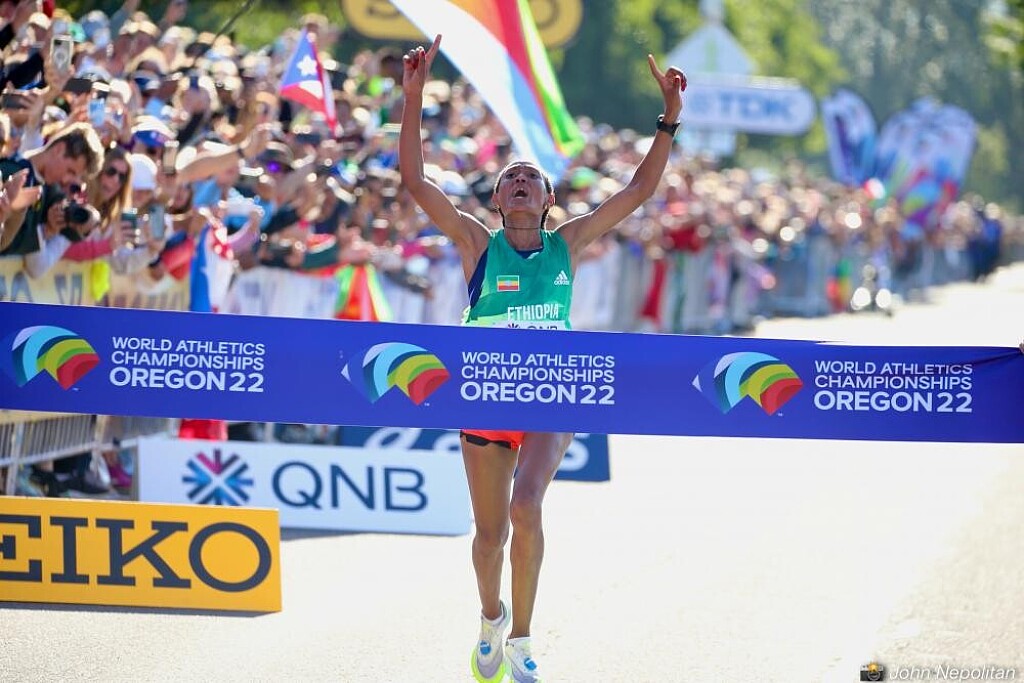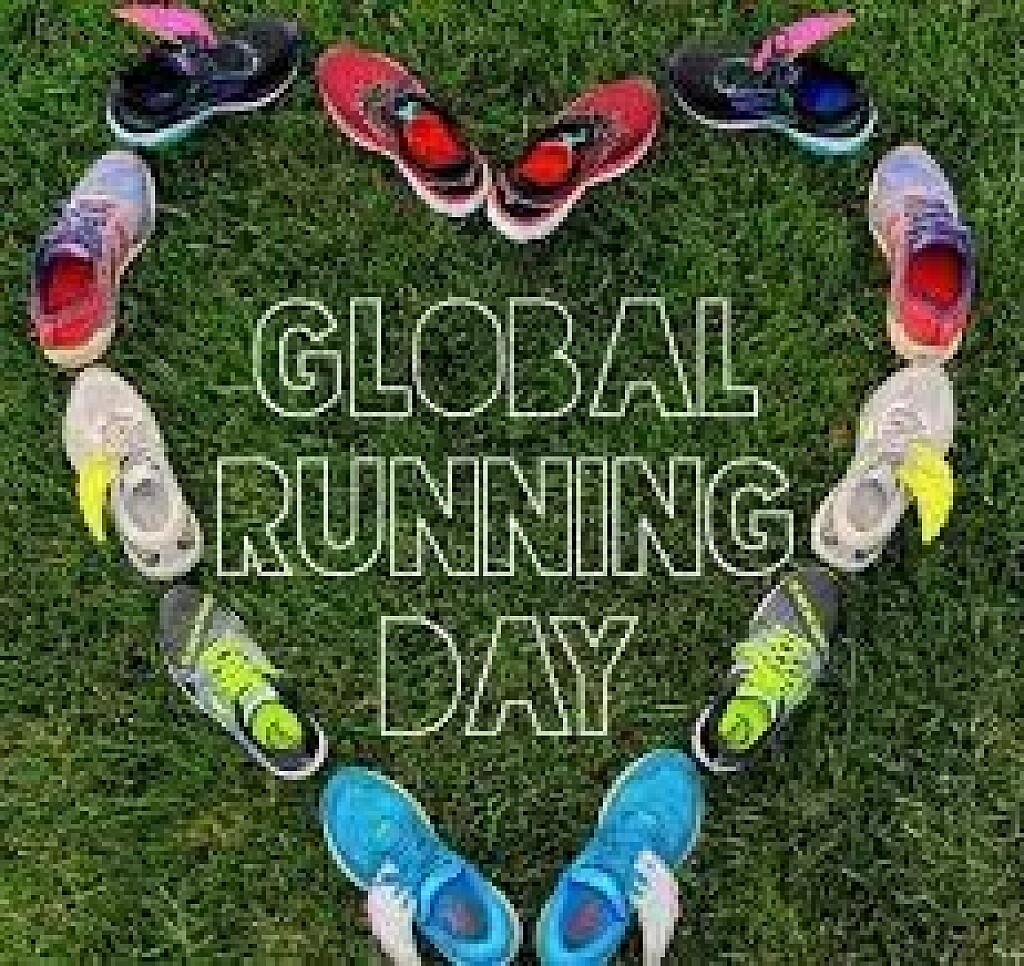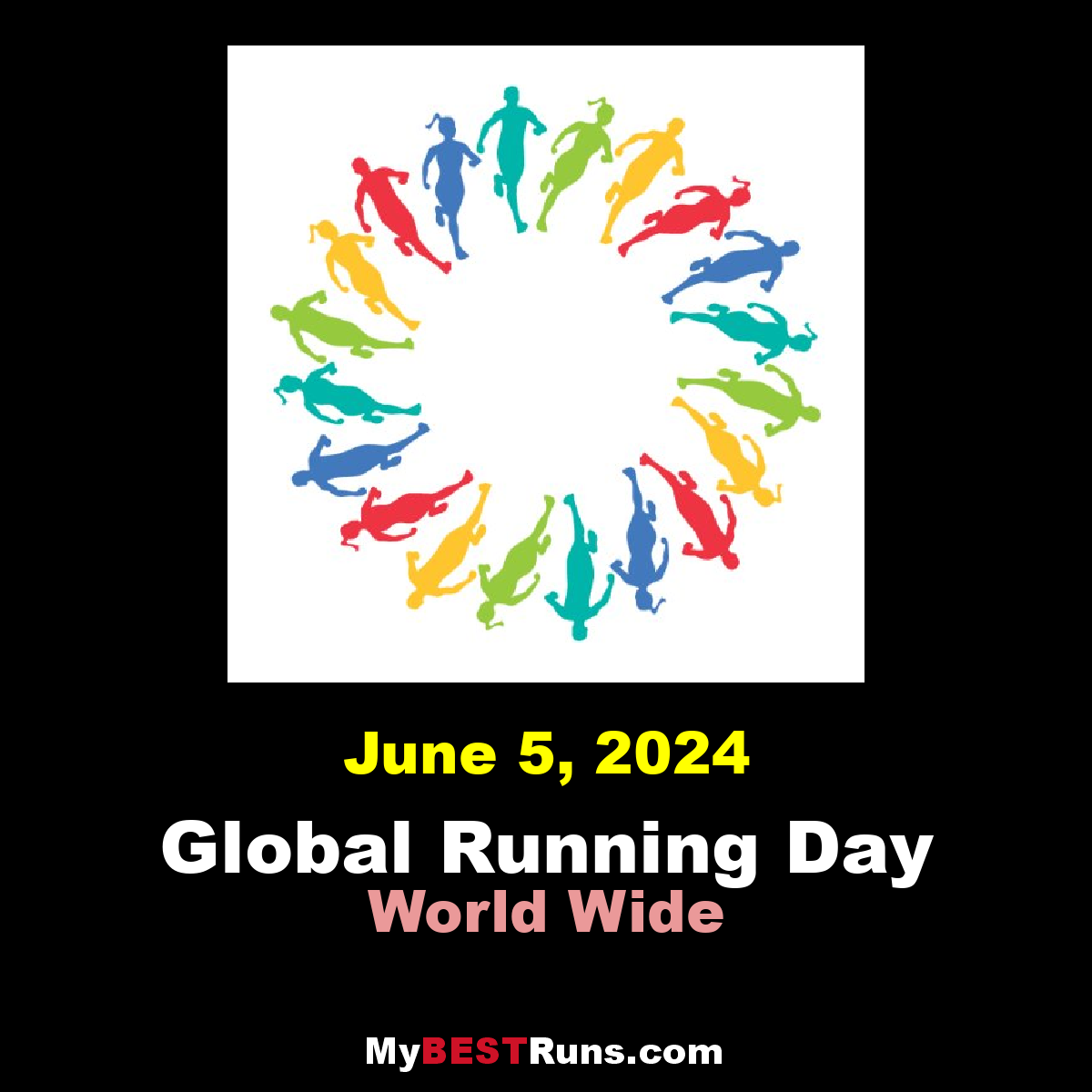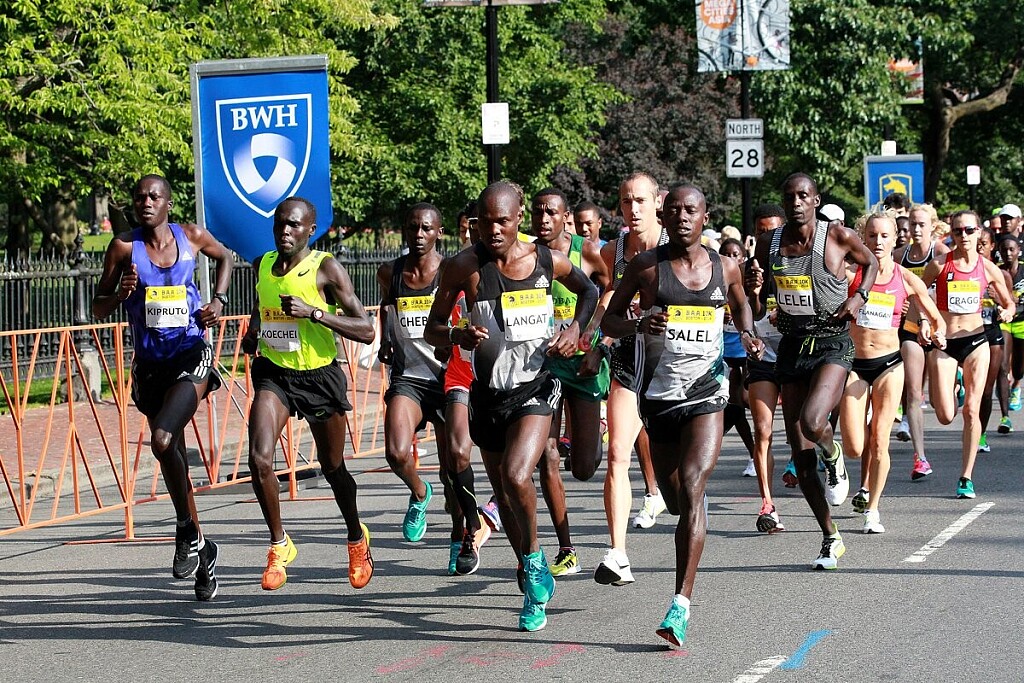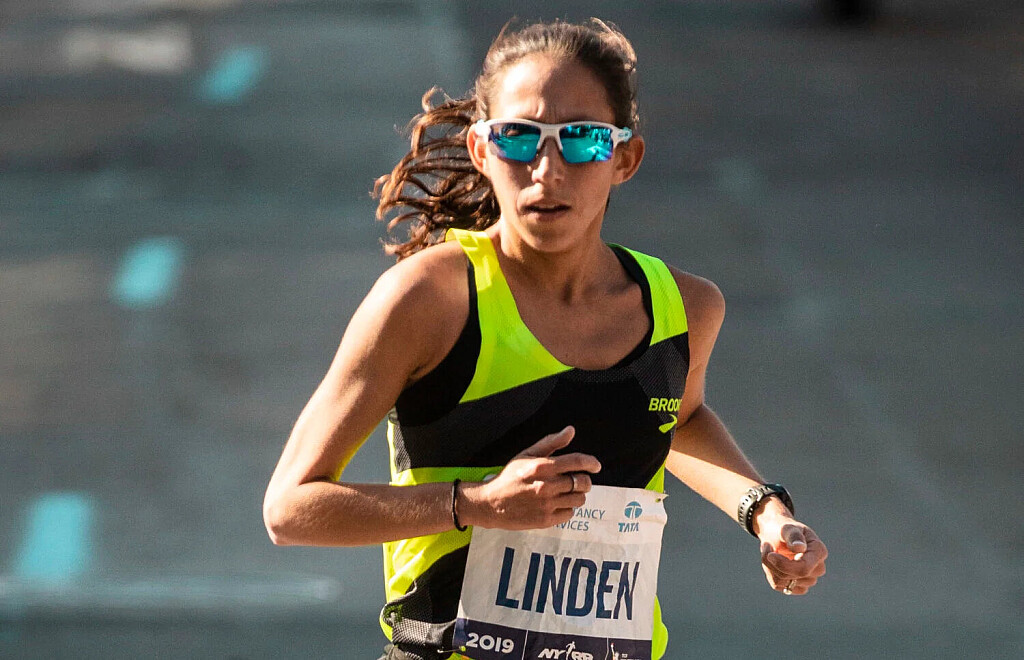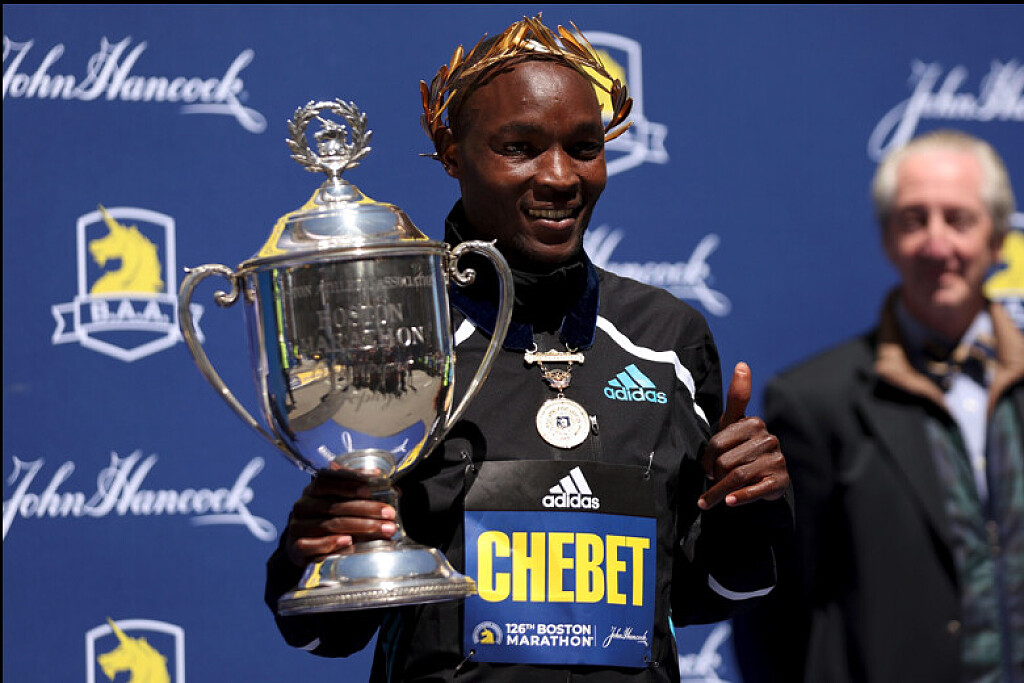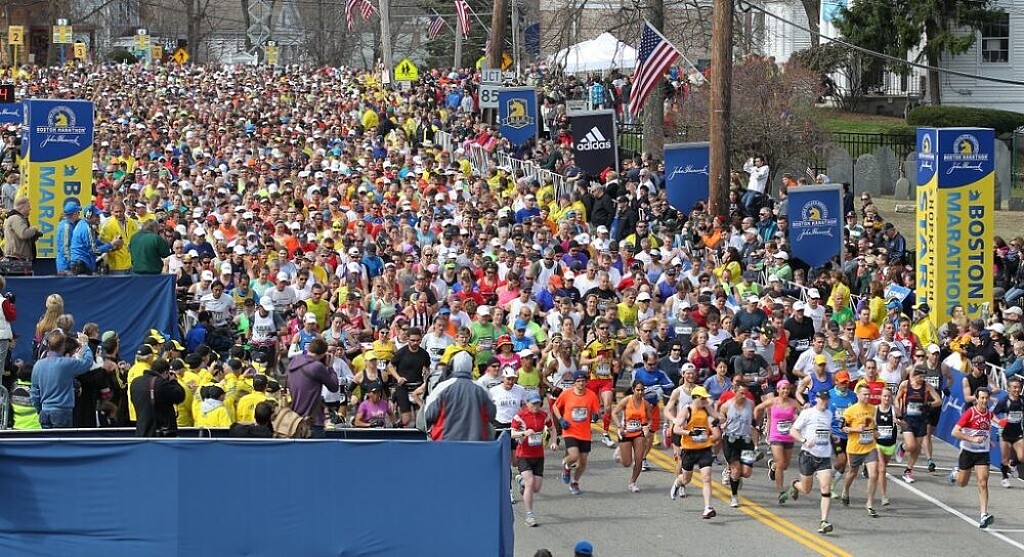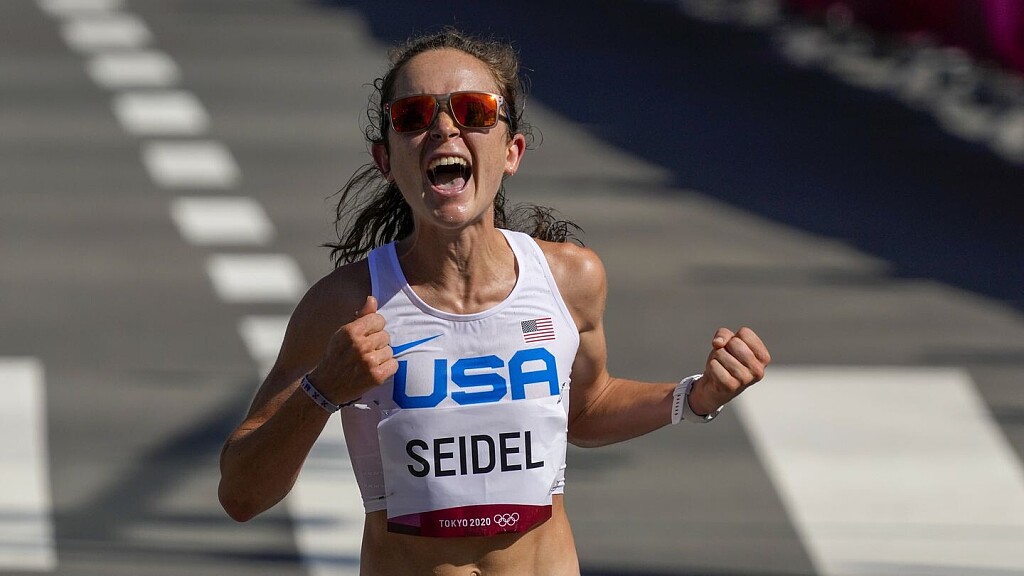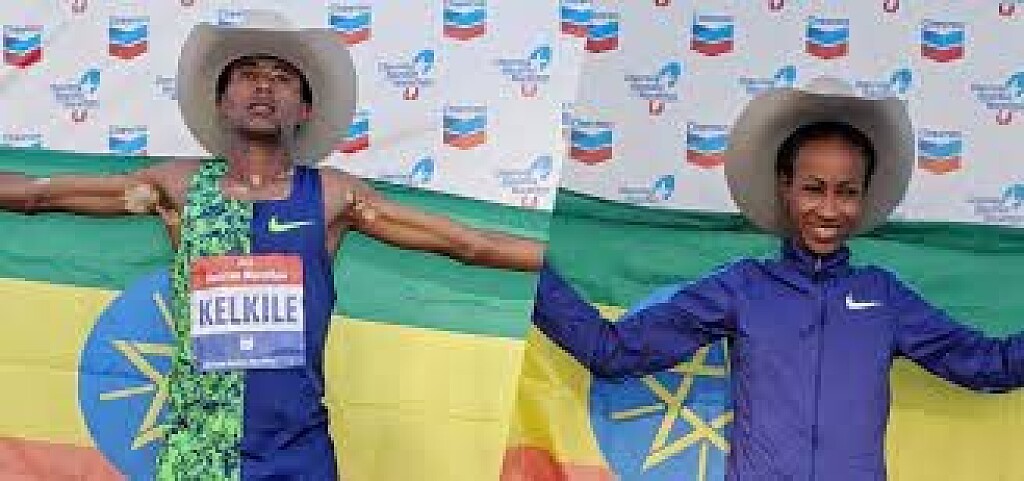Running News Daily
Running News Daily is edited by Bob Anderson. Send your news items to bob@mybestruns.com Advertising opportunities available. Train the Kenyan Way at KATA Kenya and Portugal owned and operated by Bob Anderson. Be sure to catch our movie A Long Run the movie KATA Running Camps and KATA Potato Farms - 31 now open in Kenya! https://kata.ke/
Index to Daily Posts · Sign Up For Updates · Run The World Feed
Articles tagged #Des Linden
Today's Running News
Why Sub-Elite Runners Are the Heartbeat of Major Races
While the spotlight at major marathons often shines brightest on the professional athletes chasing records and podiums, it’s the sub-elite runners—the dedicated amateurs bridging the gap between the front of the pack and the masses—who form the heartbeat of the sport.
Sub-elite runners are those capable of running remarkably fast, often finishing marathons in the 2:20s to low 3-hour range, but they don’t make a living from the sport. They juggle full-time jobs, family commitments, and daily life while chasing personal bests and qualifying standards for events like the Boston Marathon or the U.S. Olympic Trials.
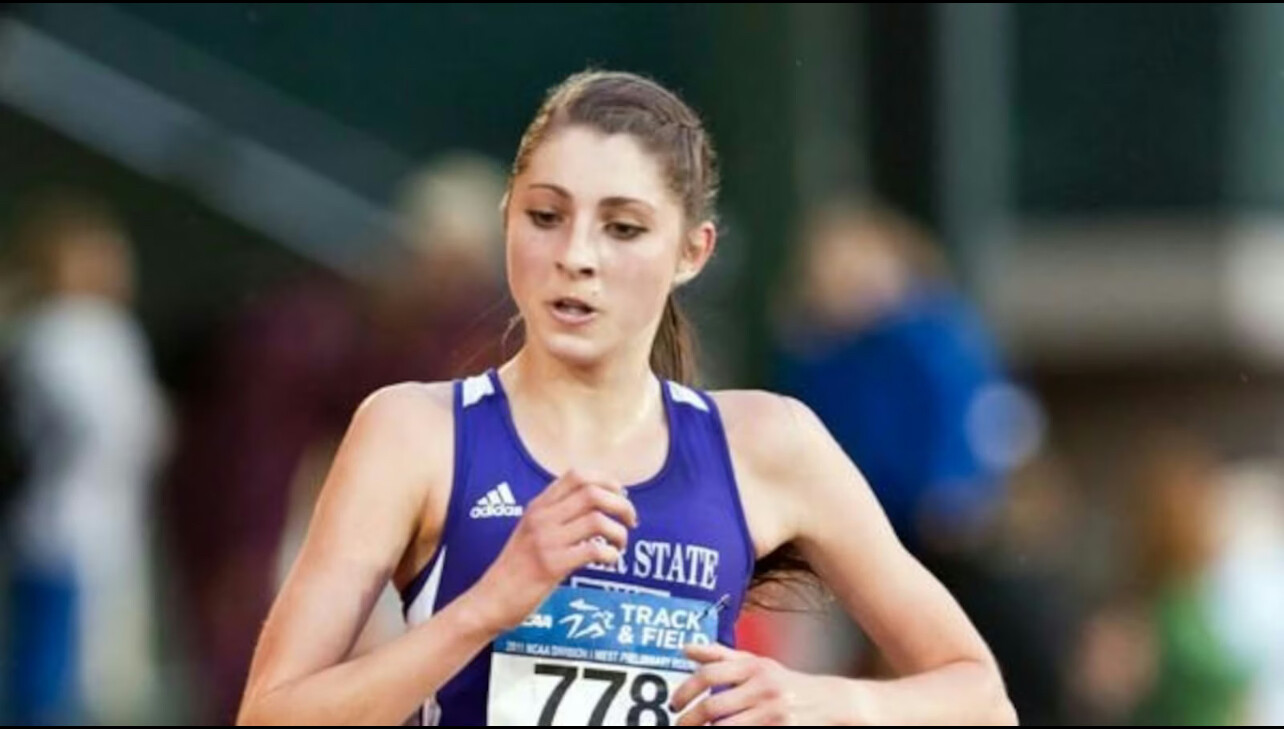
Their determination brings a unique energy to races. These runners inspire others on the course, often acting as unofficial pacers for those aiming to break through key barriers, like the coveted sub-3-hour marathon or a Boston qualifier. Their visible grit and resilience embody the spirit of racing, proving that running isn’t reserved for elite professionals—it’s a pursuit for anyone willing to put in the work.
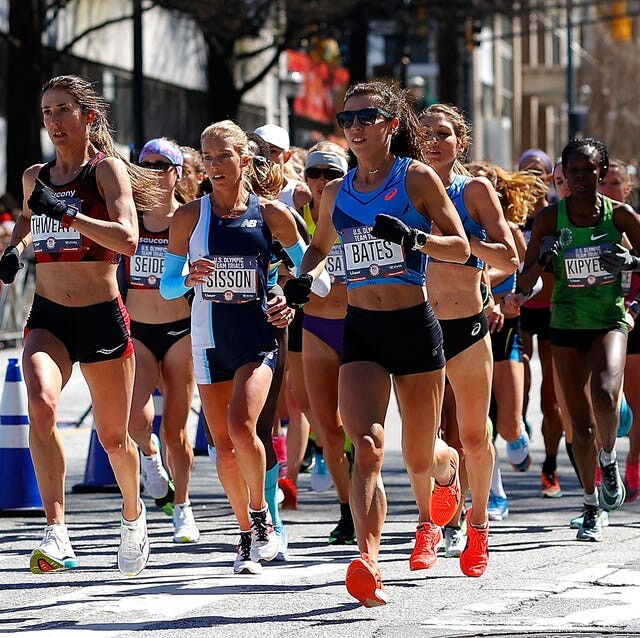
Beyond the Finish Line
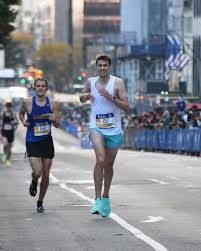
Beyond race day, sub-elites are often the backbone of local running communities. They coach local clubs, organize training groups, and mentor newcomers to the sport. Their presence bridges the gap between elite competition and mass participation, giving races a rich, layered dynamic that extends beyond who wins.
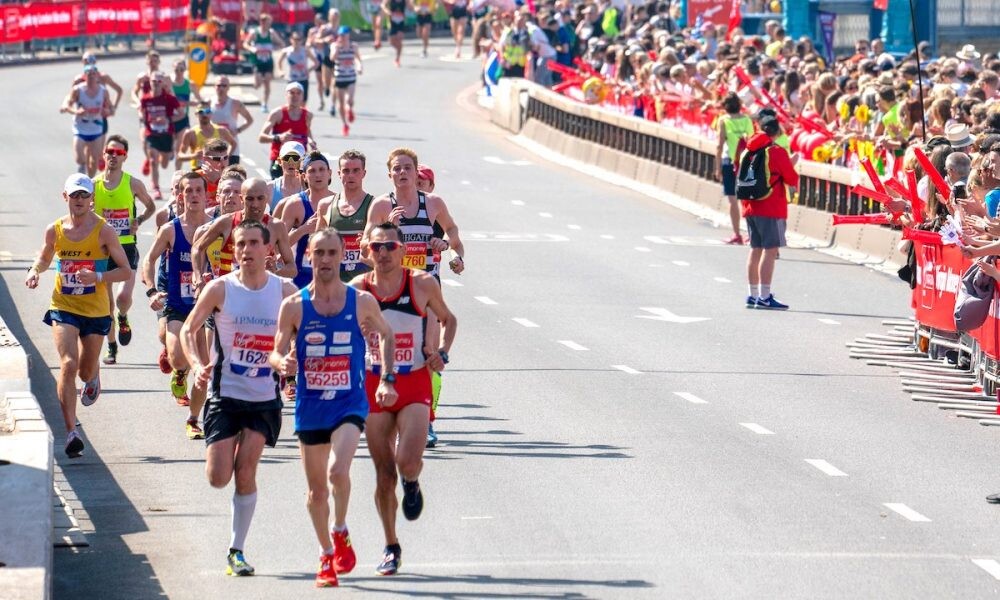
Many major races, like Boston, London, and Berlin, thrive because of this middle tier of talent. Their presence in the front corrals adds depth to the competition, pushing the elites to deliver their best while setting a pace for countless others. Without the sub-elites, these races would lose a vital layer of strategy, camaraderie, and spectacle.
Real Stories of Sub-Elite Grit
Take for example Sarah Sellers, who shocked the running world with her second-place finish behind Des Linden at the 2018 Boston Marathon. A virtual unknown in the sport at the time, she completed the course in 2:44:04—an impressive feat considering it was only her second attempt at the 26.2-mile distance. Sellers, a full-time nurse anesthetist, only signed up for Boston because her younger brother Ryan was running.
What made her performance even more remarkable was the terrible weather conditions that year. The race was plagued by freezing rain, strong headwinds, and temperatures in the low 30s Fahrenheit. Many elite runners struggled with the harsh conditions and dropped out, but Sellers persevered, drawing on her mental toughness and resilience. Her ability to adapt and push through led to a stunning result, proving that grit and determination can triumph over talent and experience on any given day.
Her breakthrough not only earned her a spot on the podium but also opened doors to sponsorships and elevated her profile within the sport. Sellers transitioned from an unknown amateur to a recognized name in running, showing how a standout performance can transform a sub-elite into a sponsored athlete.
Since then, she has continued to excel. Sellers achieved a personal best of 2:25:43 at the 2022 Grandma’s Marathon, qualifying for the 2024 U.S. Olympic Trials. Despite giving birth to her second child just nine months prior, she impressively finished 14th at the Trials in 2:30:17. Balancing motherhood, a demanding career, and elite-level training, Sellers exemplifies the resilience and dedication of sub-elite runners.
Another inspiring figure is Peter Bromka, a sub-elite runner known for his candid writings about the emotional journey of chasing ambitious goals. With a marathon personal best of 2:19:05, Bromka has been a prominent voice in the running community, sharing insights into the challenges and triumphs of striving for excellence while balancing life’s responsibilities.
In recent years, Bromka has expanded his influence by coaching aspiring runners and collaborating with brands like Cure Hydration. His storytelling continues to resonate, offering a window into the sub-elite experience and inspiring others to pursue their running aspirations with passion and authenticity.
A Personal Perspective
As a lifelong runner and race organizer, I’ve seen firsthand how sub-elites elevate the entire race experience. Their commitment sets the tone at the front of the pack and inspires the middle and back-of-the-pack runners to push harder. They remind us that running is about more than just winning—it’s about challenging yourself and those around you.
Looking Ahead
As major marathons continue to evolve, recognizing and celebrating sub-elite runners ensures the sport remains vibrant and inclusive. They are the bridge between the elites and the everyday runners, the pulse that keeps the sport alive and growing.
by Boris Baron
Login to leave a comment
Des Linden Says Goodbye to Boston, and Boston Says Thank You
Des Linden, one of America’s most beloved marathoners, ran her final professional marathon today on the streets of Boston—the place where her legacy was cemented in 2018 with a historic win. This year, she crossed the finish line in 2:26:19, finishing 17th overall and claiming the Masters division title in her last professional race.
At 40 years old, Linden ran a smart and steady race, hitting the halfway point in 1:11:44 before reeling in several competitors over the second half. It was her fastest time in Boston since 2017, a fitting performance for a farewell run on the course that made her a national hero.
Before race day, she announced that this would be her final time competing as a professional. “People say you should go out on top, and that’s what I’m doing—because getting to race my final professional marathon in Boston is indeed going out on top,” Linden said.
As she made her way down Boylston Street for the last time, cheers erupted from the crowd, and fellow runners paid tribute—bowing in admiration of her extraordinary career. It was a moment that captured the mutual respect between Linden and the city that has always embraced her grit, humility, and heart.
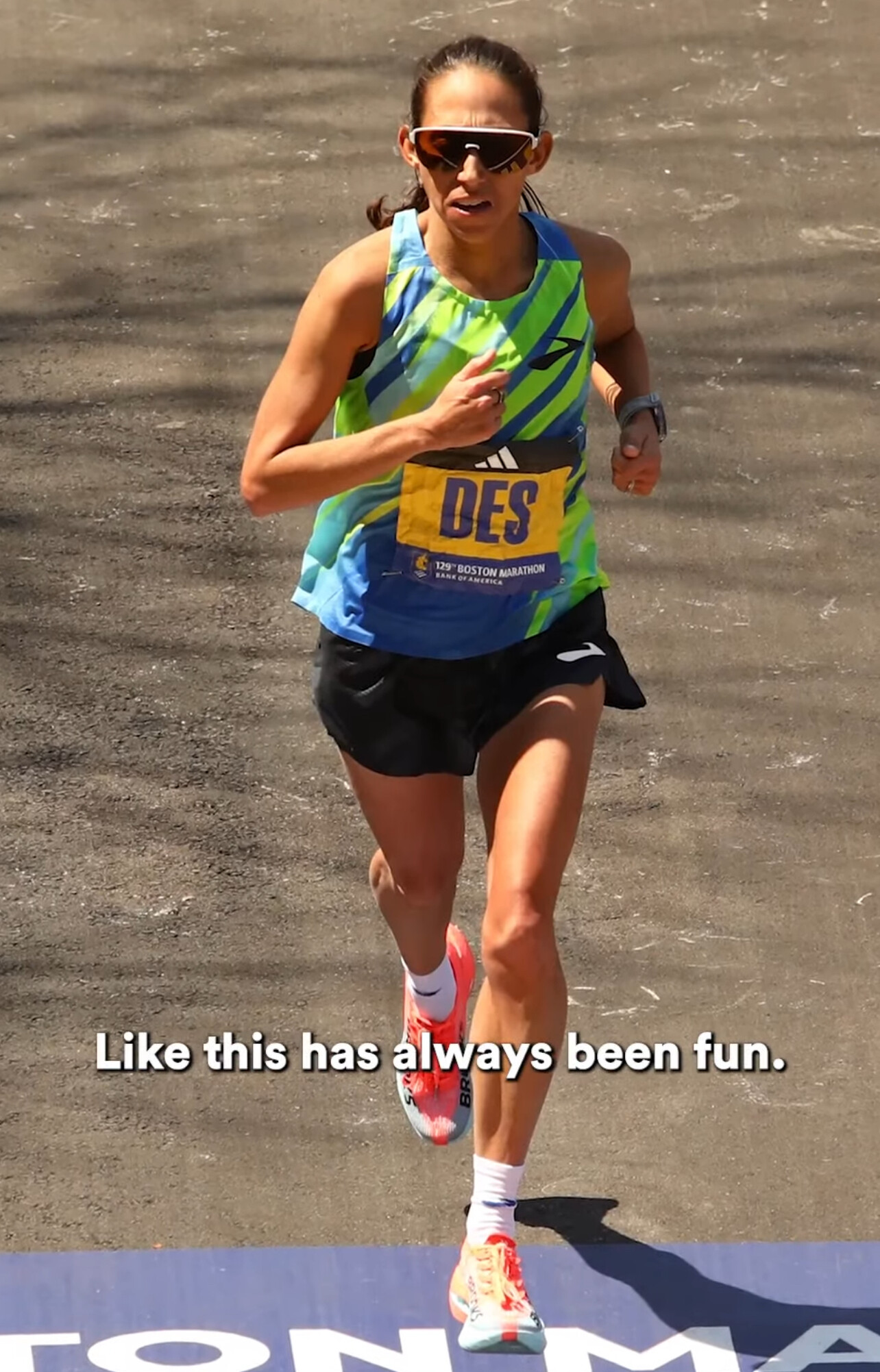
Over her 18-year professional career, Des Linden represented the U.S. in two Olympic Games, won the Boston Marathon in 2018 during brutal weather conditions, and set a world record in the 50K. She has inspired a generation of runners with her candor, consistency, and courage.
Today, Boston said goodbye—but more importantly, it said thank you.
by Boris Baron
Login to leave a comment
A Day for the History Books: Korir and Lokedi Shine at the 2025 Boston Marathon
The 129th edition of the Boston Marathon, held Monday, April 21, 2025, delivered unforgettable drama and record-setting performances on the iconic route from Hopkinton to Boylston Street. Under near-perfect running conditions—mid-50s temperatures, low humidity, and a light tailwind—elite runners took full advantage, producing some of the fastest times in race history.
John Korir Claims His Crown and Continues a Family Legacy
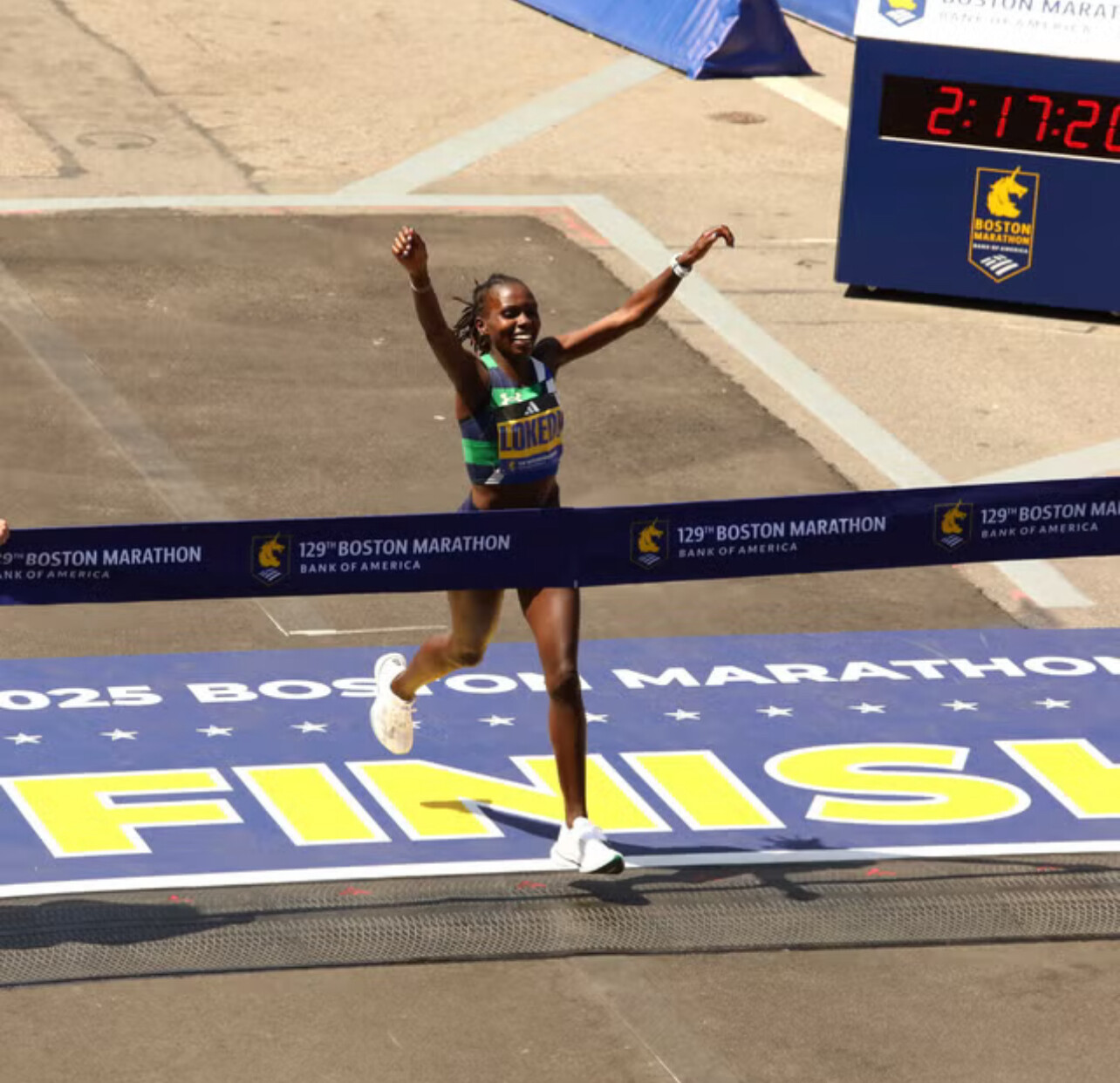
Kenya’s John Korir won the men’s race in a sensational 2:04:45, the second-fastest time ever run on the Boston course. The younger brother of 2012 Boston champion Wesley Korir, John added another chapter to his family’s Boston legacy by not only conquering the challenging course but doing so in dominant fashion.
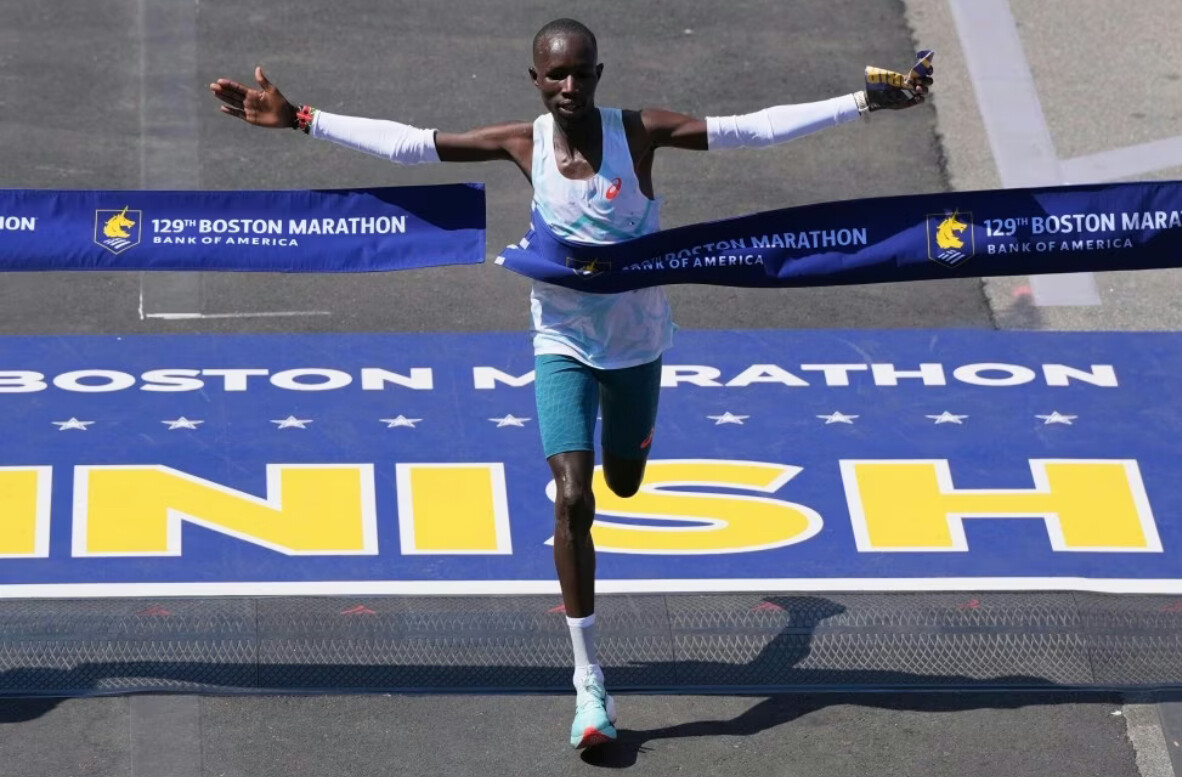
Despite a minor fall early in the race, Korir surged away from a deep international field after 20 miles, building a gap that no one could close. His finishing time was just over a minute shy of Geoffrey Mutai’s legendary 2:03:02 from 2011—the fastest time ever run in Boston but not eligible as a world record due to the course layout.
“I knew I was ready for something big,” Korir said post-race. “To follow in my brother’s footsteps and win Boston means everything.”
American hopes were high coming into the race, and Conner Mantz did not disappoint. Running a massive personal best of 2:05:08, he placed fourth overall and became the second-fastest American ever on the Boston course, behind only Ryan Hall’s 2:04:58 (set in 2011).
Sharon Lokedi Breaks the Tape—and the Record
The women’s race was equally historic. Sharon Lokedi, who won the 2022 New York City Marathon, delivered the performance of her life to win in 2:17:22, a new Boston Marathon course record, smashing the previous mark of 2:19:59 set by Buzunesh Deba in 2014.
Lokedi ran a smart, strategic race. She stayed tucked in a lead pack through the Newton Hills and then launched a powerful surge at mile 24, dropping two-time Boston champion Hellen Obiri and the rest of the field. Obiri finished second in a personal best 2:18:10, making it a Kenyan 1-2 sweep on the women’s podium.
“This course is tough, but I felt strong the whole way,” Lokedi said. “To run a course record here—it’s just unbelievable.”
Top 10 Elite Men – 2025 Boston Marathon
1. John Korir (Kenya) – 2:04:45
2. Alphonce Simbu (Tanzania) – 2:05:04
3. Cybrian Kotut (Kenya) – 2:05:04
4. Conner Mantz (USA) – 2:05:08
5. Muktar Edris (Ethiopia) – 2:05:59
6. Rory Linkletter (Canada) – 2:07:02
7. Clayton Young (USA) – 2:07:04
8. Tebello Ramakongoana (Lesotho) – 2:07:19
9. Daniel Mateiko (Kenya) – 2:07:52
10. Ryan Ford (USA) – 2:08:00
Top 10 Elite Women – 2025 Boston Marathon
1. Sharon Lokedi (Kenya) – 2:17:22 (Course Record)
2. Hellen Obiri (Kenya) – 2:17:41
3. Yalemzerf Yehualaw (Ethiopia) – 2:18:06
4. Irine Cheptai (Kenya) – 2:21:32
5. Amane Beriso (Ethiopia) – 2:21:58
6. Calli Thackery (Great Britain) – 2:22:38
7. Jess McClain (USA) – 2:22:43
8. Annie Frisbie (USA) – 2:23:21
9. Stacy Ndiwa (Kenya) – 2:23:29
10. Tsige Haileslase (Ethiopia) – 2:23:43
Notable American Performances
• Emma Bates finished 13th with a time of 2:25:10.
• Dakotah Popehn secured 16th place in 2:26:09.
• Des Linden completed her 28th and final professional marathon, finishing 17th in 2:26:19.
• Sara Hall placed 18th with a time of 2:26:32.
Looking Ahead
The 2025 Boston Marathon reaffirmed its place as one of the world’s premier races—not just for its history and prestige, but for its ability to showcase incredible athletic achievement. With deep American performances and Kenyan dominance at the front, it sets the stage for an exciting year.
For fans, runners, and historians, this year’s Boston will go down as one of the most memorable ever.
My Best Runs
Your front row seat to the world of running
by Boris Baron
Login to leave a comment
Boston Marathon
Among the nation’s oldest athletic clubs, the B.A.A. was established in 1887, and, in 1896, more than half of the U.S. Olympic Team at the first modern games was composed of B.A.A. club members. The Olympic Games provided the inspiration for the first Boston Marathon, which culminated the B.A.A. Games on April 19, 1897. John J. McDermott emerged from a...
more...Des Linden Announces Retirement From Professional Marathoning
2018 Boston Marathon Champion Eyes Ultra Distances as Her Next Frontier
Des Linden, one of America’s most celebrated distance runners and the 2018 Boston Marathon champion, has announced she is retiring from professional marathoning. Known for her grit, longevity, and no-nonsense approach to the sport, Linden is not stepping away from running altogether. Instead, she’s setting her sights on a new challenge—ultramarathons.
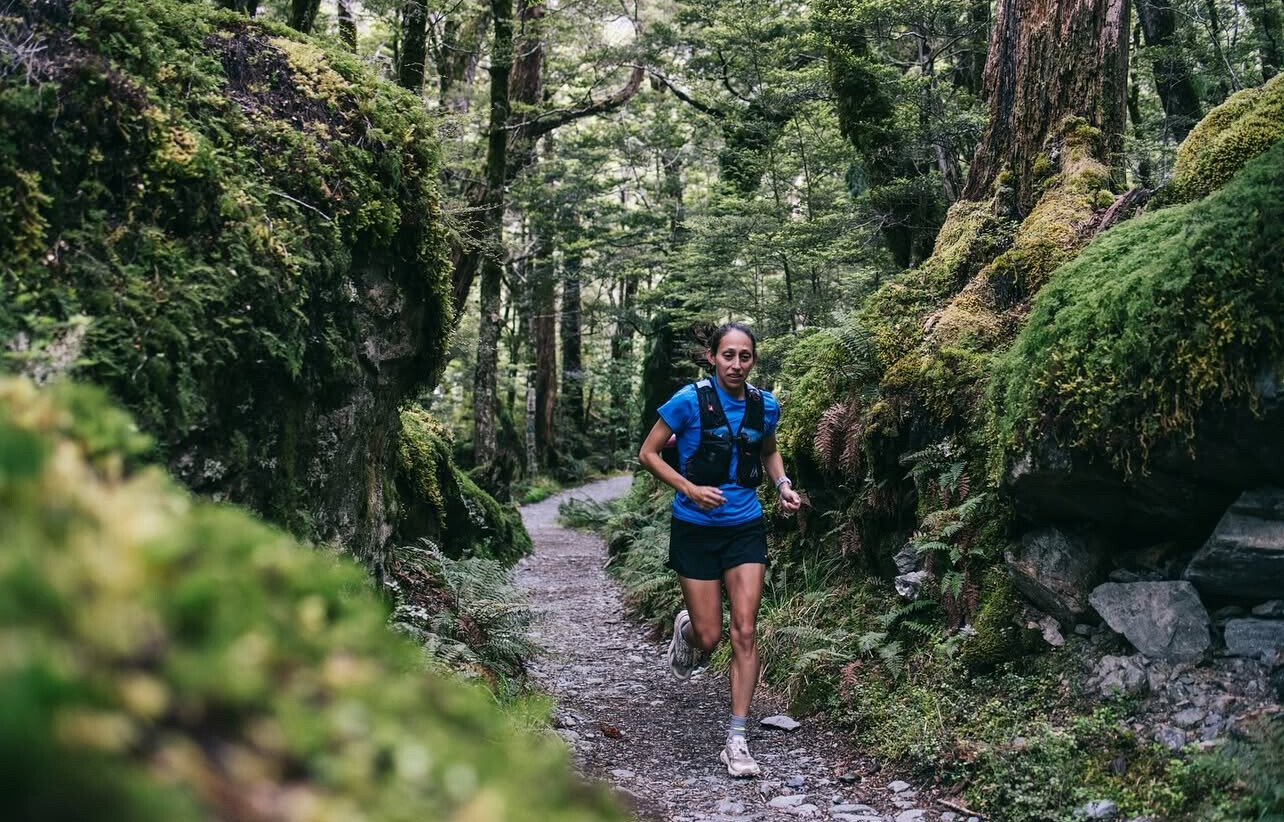
Linden, 40, made the announcement with characteristic clarity, emphasizing that while her days competing at the highest level in the marathon are behind her, her passion for endurance running is far from over. “The chapter on professional marathoning is closing,” she said, “but the book isn’t finished.”
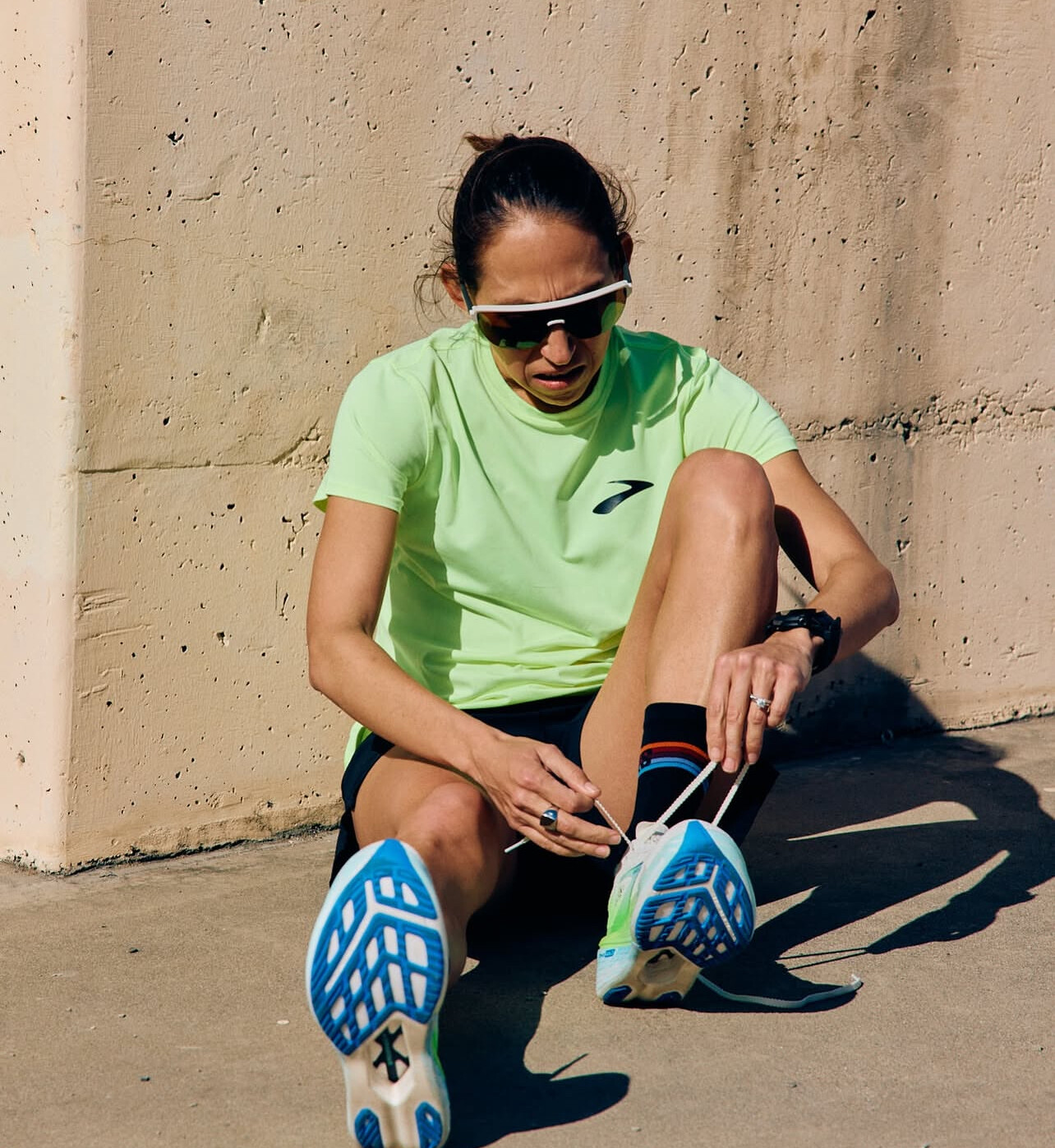
Her victory at the 2018 Boston Marathon remains one of the most iconic moments in U.S. distance running history. Battling freezing rain and headwinds, Linden surged through the elements to become the first American woman to win Boston in 33 years. That win elevated her status from elite competitor to running legend.
But Des has always been more than just one win. She’s represented the U.S. on the Olympic stage twice (London 2012, Rio 2016), placed second at the 2011 Boston Marathon, and has run more than 20 career marathons under 2:30. Her steady pacing, resilience, and loyalty to the grind have made her a fan favorite for over a decade.
In recent years, Des has hinted at her evolving interests in longer distances. She famously broke the women’s 50K world record in 2021, clocking 2:59:54—becoming the first woman to run sub-3:00 for the distance. That performance gave a glimpse of what might be next.
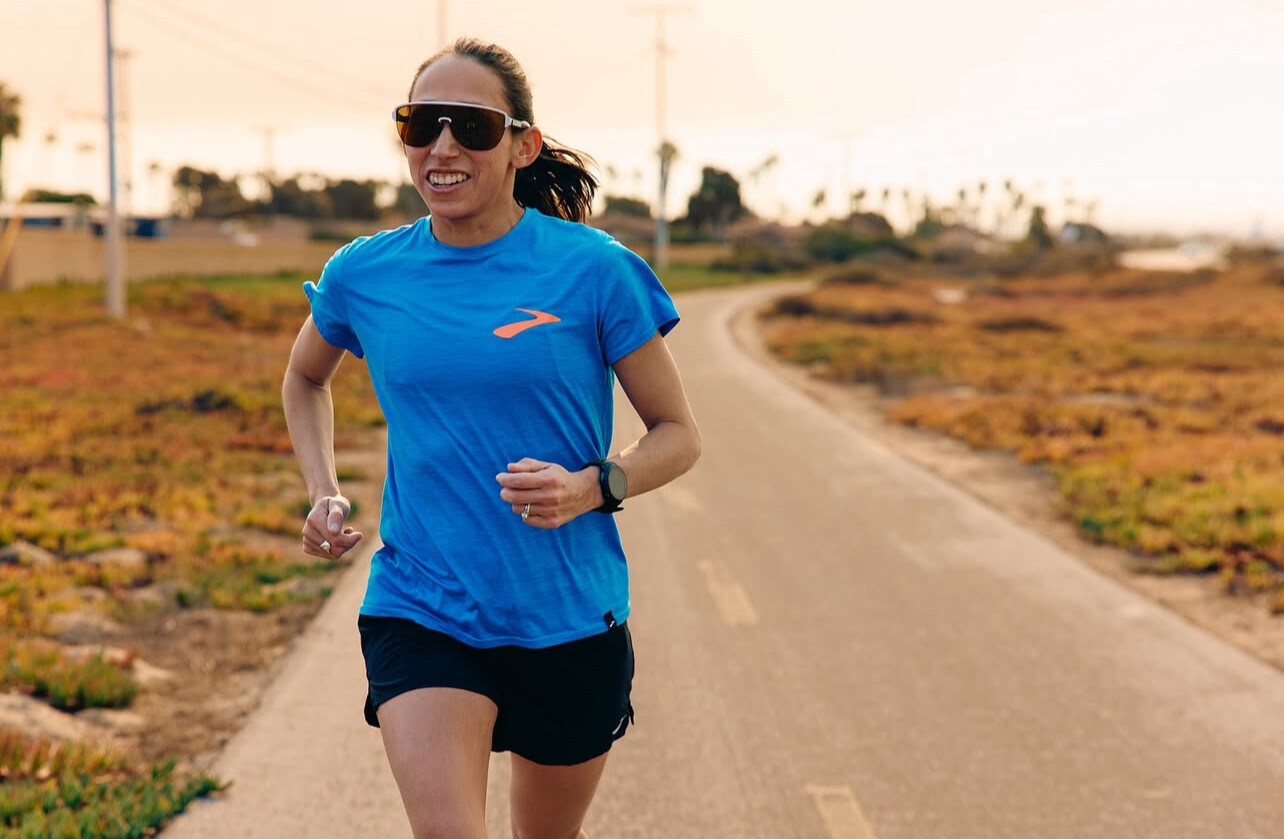
Now, with her professional marathoning career officially behind her, Linden plans to explore the world of trail and ultra running. “There’s something pure and raw about ultras,” she said. “It’s about effort, persistence, and the long game—things I’ve always loved about running.”
Linden’s legacy is already cemented, but her next chapter promises to be just as compelling. Whether it’s the Western States 100 or Comrades, fans can expect to see the same toughness and authenticity that made her a household name in the marathon world.
From Boston’s heartbreak hill to the rugged climbs of ultramarathon courses, Des Linden’s journey continues—just at a longer distance.
by Boris Baron
Login to leave a comment
Boston Marathon 2025 Race Preview and Predictions - Can one of the Americans pull off an upset?
The 129th Boston Marathon is set for Monday, April 21, 2025 in just over a month, once again taking place on Patriots’ Day in Massachusetts. This year’s edition marks the first under the sponsorship of Bank of America, signaling a new chapter for the world’s oldest annual marathon. With an elite field packed with world-class runners and unpredictable spring weather, the race promises another thrilling showdown from Hopkinton to Boston.
Race Details & Course Overview
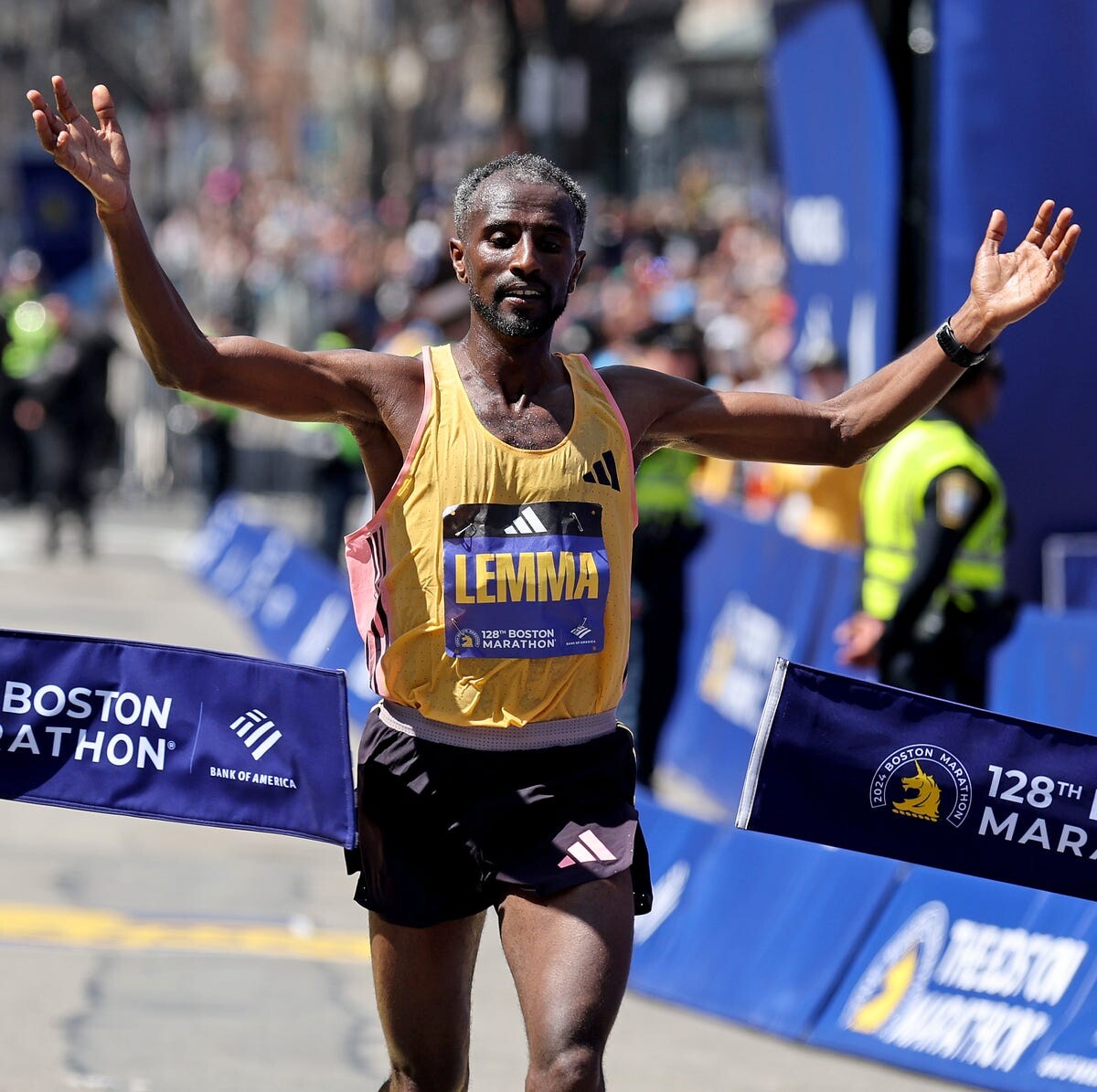
The Boston Marathon’s iconic point-to-point course spans 26.2 miles, starting in Hopkinton and ending on Boylston Street in Boston’s Copley Square. Runners will navigate rolling hills, including the challenging Newton Hills and the infamous Heartbreak Hill at mile 21. The course favors experienced runners who can manage both the early downhill sections and the later climbs.
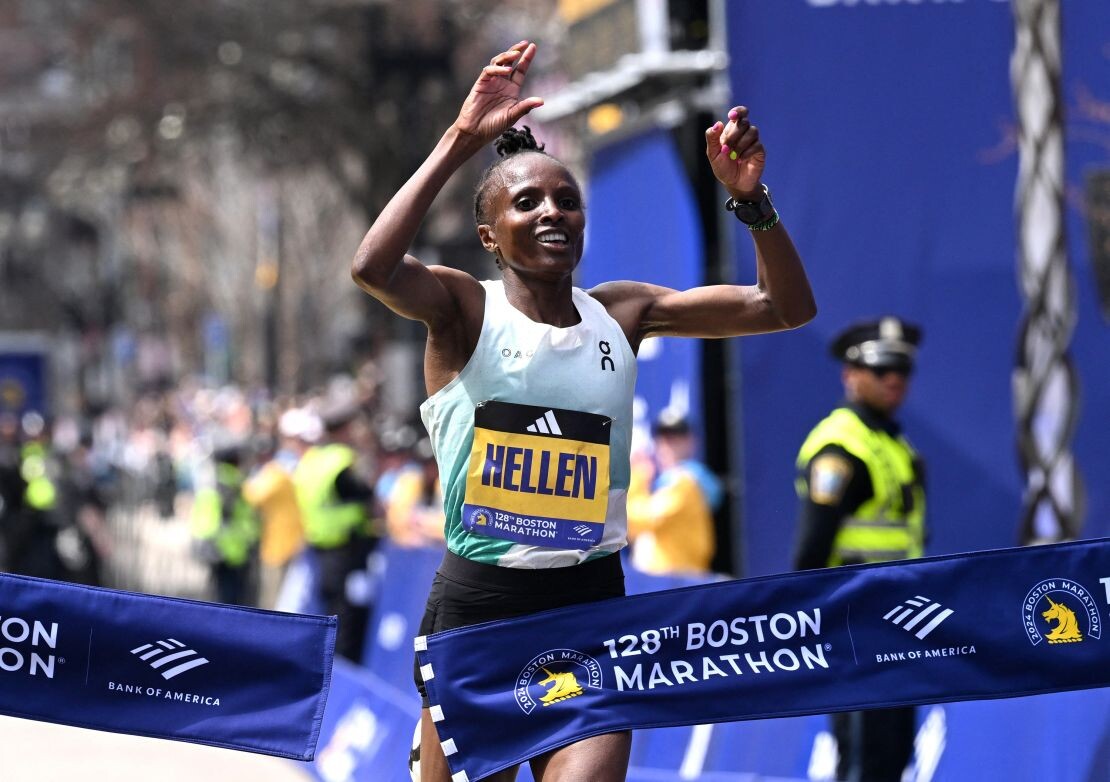
Weather will be a key factor, as New England’s spring climate is unpredictable. Ideal conditions for runners would be cool temperatures around 45–50°F with overcast skies and a tailwind, but past races have seen everything from heatwaves to freezing rain. Early forecasts suggest favorable conditions, but as always, runners must be prepared for anything.
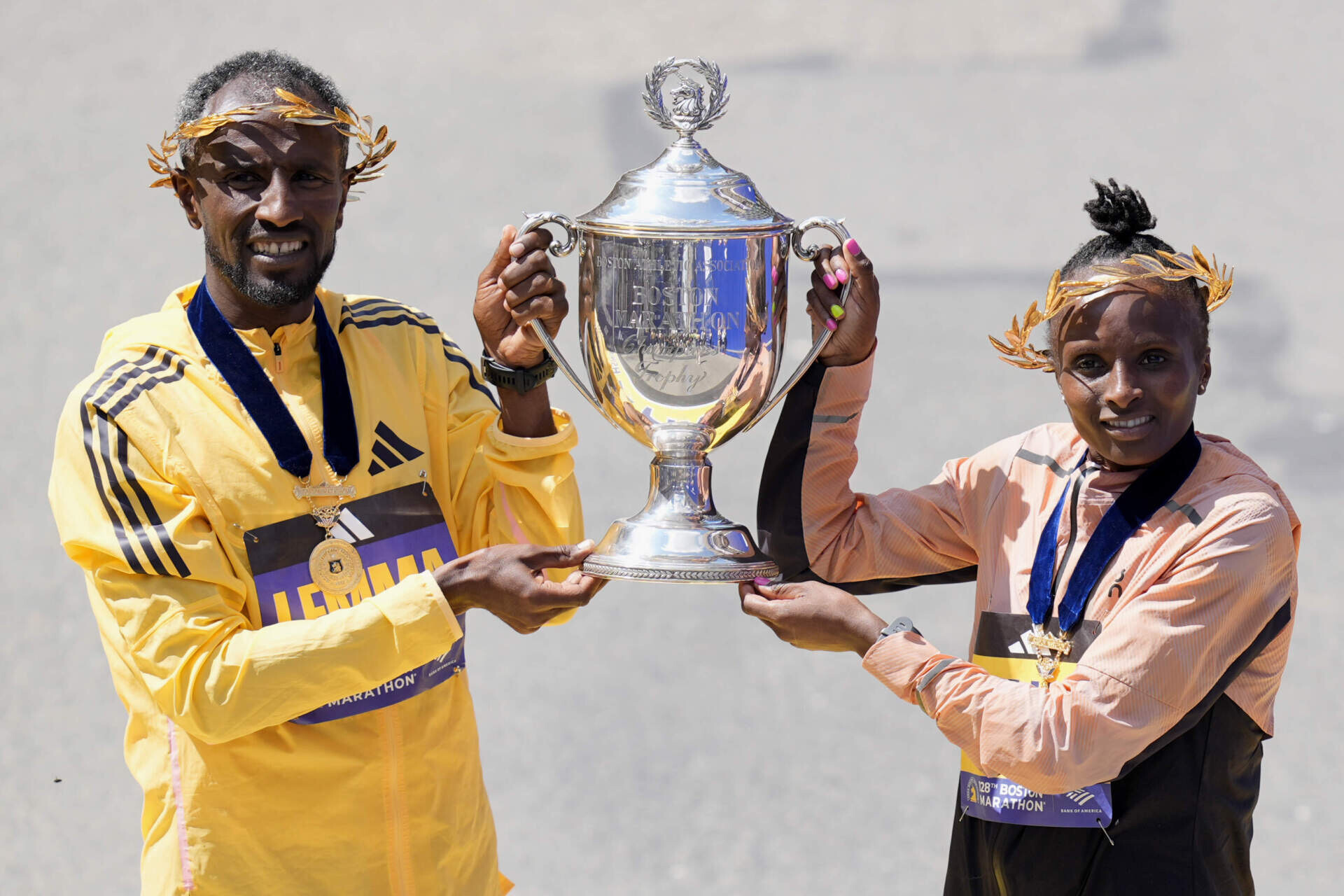
Men’s Elite Field
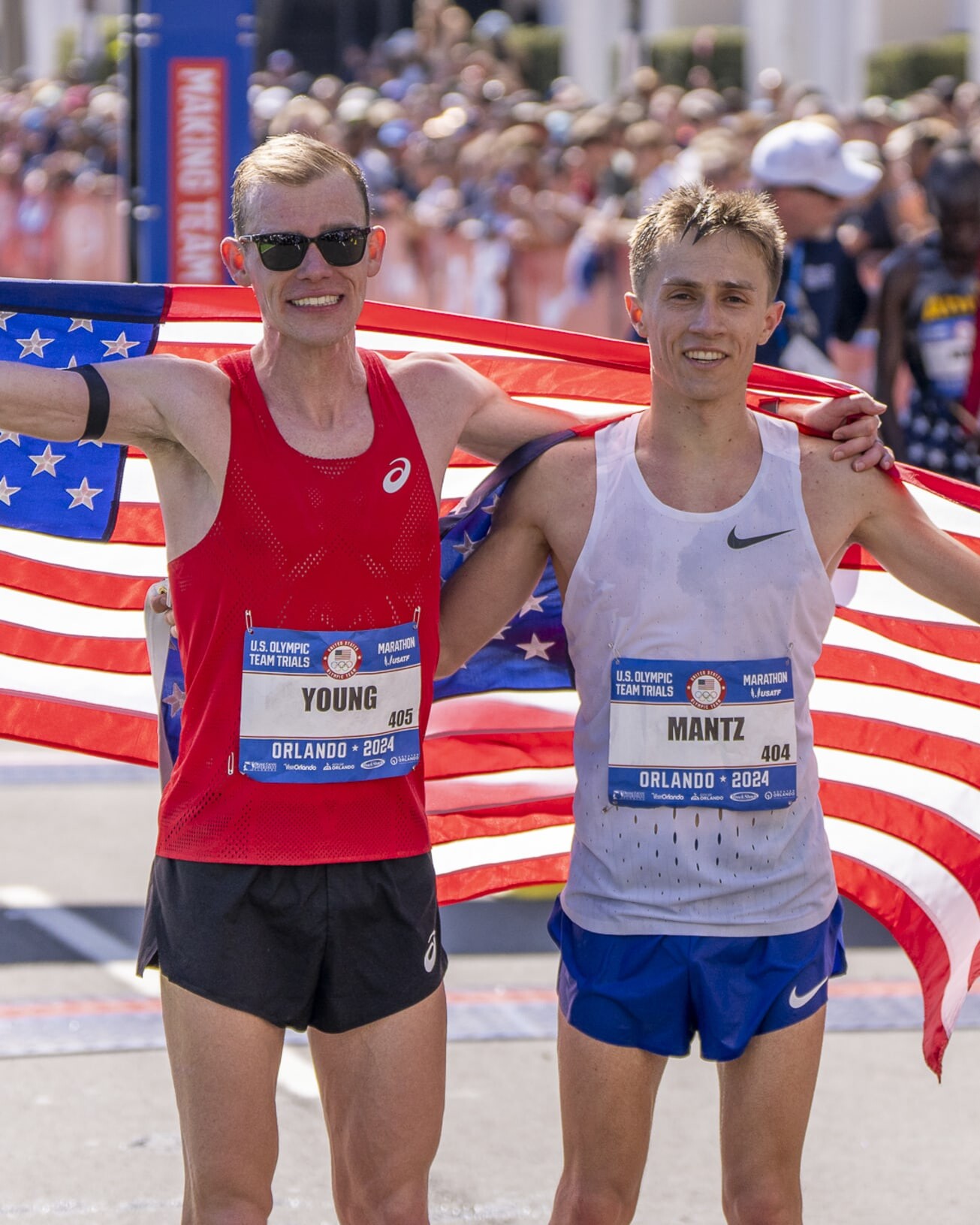
The men’s race features defending champion Sisay Lemma, who is aiming to retain his title after a dominant performance last year. Evans Chebet, the 2022 and 2023 champion, returns hungry to reclaim the crown. John Korir, fresh off a victory at the Chicago Marathon, brings world-class speed that could shake up the competition.
A strong American contingent is headlined by Conner Mantz and Clayton Young, both of whom finished in the top ten at the Olympic marathon. Mantz, in particular, has shown outstanding form, recently breaking the American half marathon record. CJ Albertson, a familiar name in Boston for his bold racing tactics, will also be in the mix, potentially pushing the early pace.
The race is expected to be tactical, with the Newton Hills playing a decisive role. If the pack remains tight through Heartbreak Hill, it could come down to a late-race battle along Boylston Street.
Women’s Elite Field
Hellen Obiri returns seeking a historic third consecutive Boston Marathon title, a feat not accomplished in over two decades. Known for her lethal finishing speed, Obiri has mastered the Boston course and will be the woman to beat.
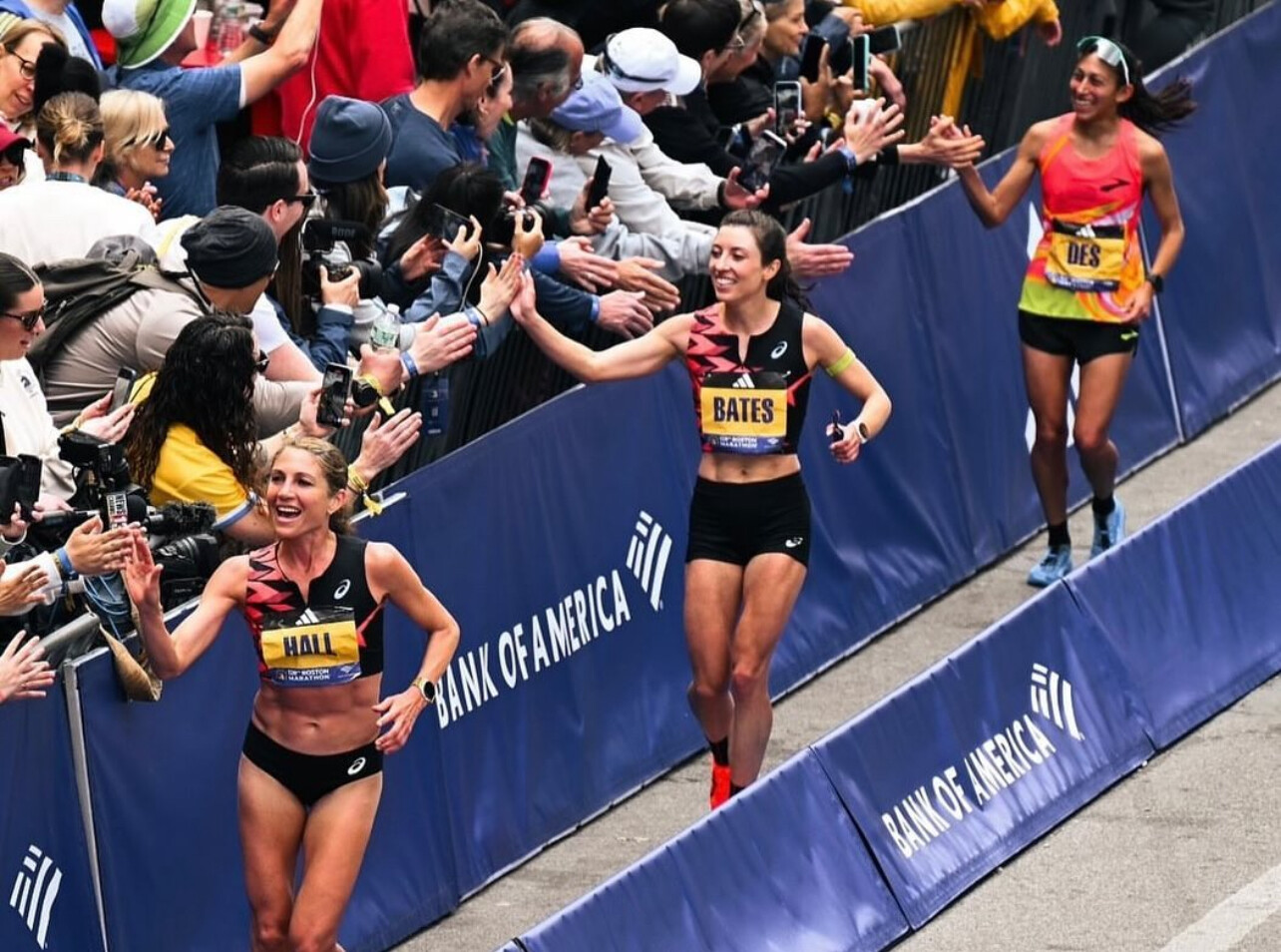
Challenging her will be Amane Beriso, the reigning world marathon champion, and Yalemzerf Yehualaw, a former London Marathon winner with sub-2:17 speed. Sharon Lokedi, last year’s runner-up, will also be in contention, having nearly edged out Obiri in a dramatic finish.
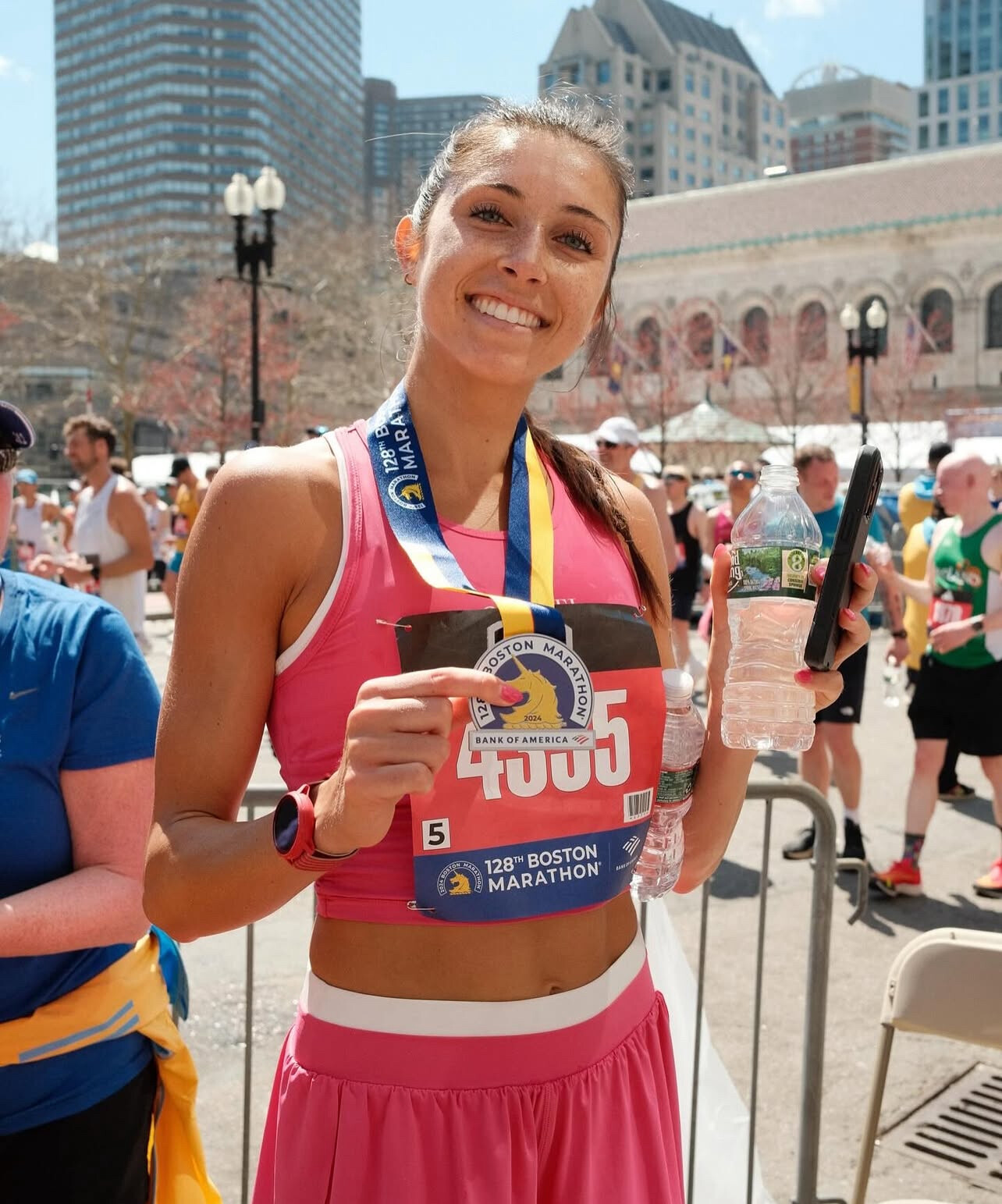
The American field is deep, with contenders including Sara Hall, Keira D’Amato, Emma Bates, and former champion Des Linden. While breaking into the top three will be a challenge, a top-five finish is within reach for the top U.S. women.
Predictions & Final Thoughts
The men’s race is expected to be a battle between the experienced champions and rising American stars. If the race is fast from the start, runners like Korir and Lemma may have the edge. However, if it becomes a strategic affair, Mantz and Young could position themselves for a breakthrough performance.
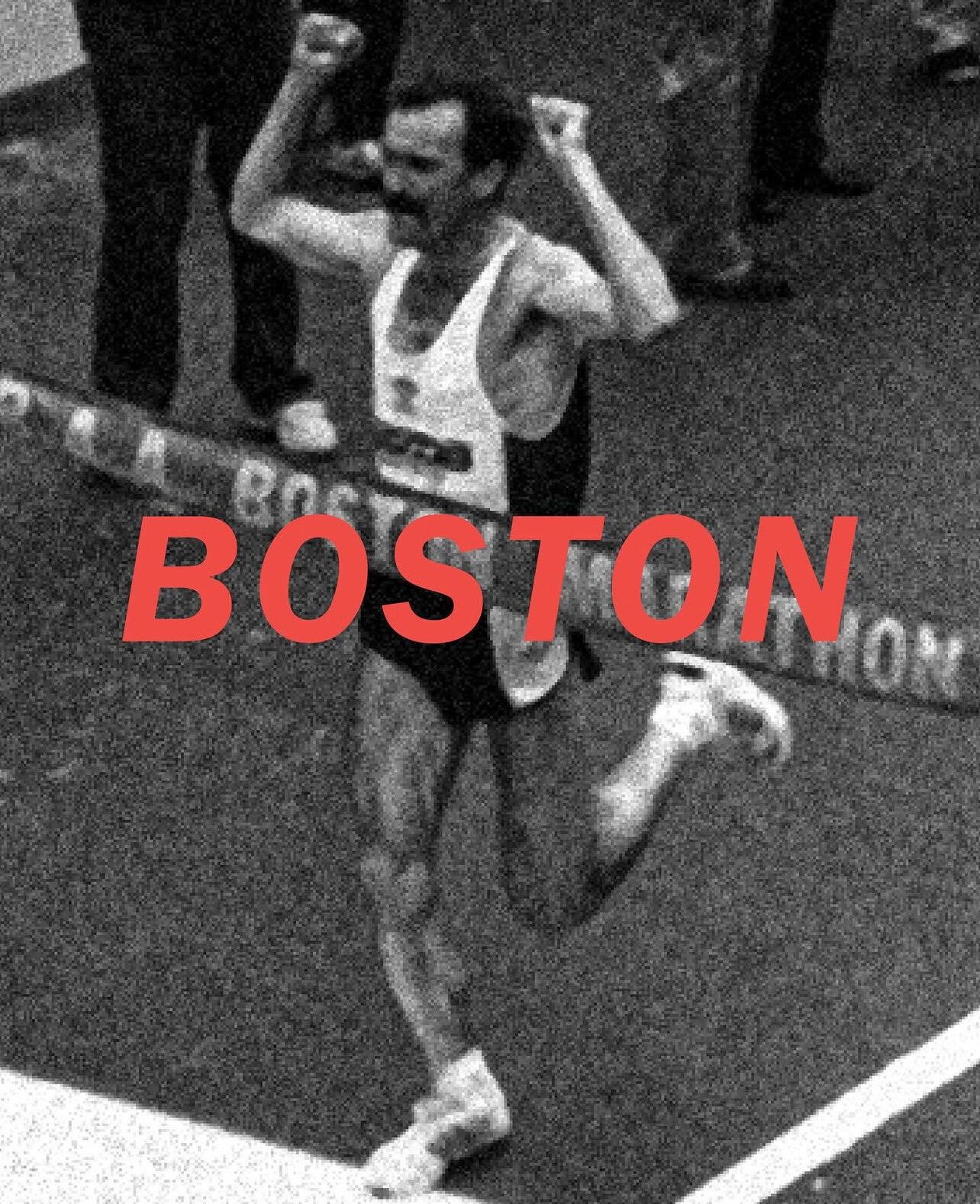
On the women’s side, Obiri’s experience and closing speed make her the favorite, but the depth of the field suggests another closely contested race. If Beriso or Yehualaw can push the pace early, it could disrupt Obiri’s plans for a late kick.
With a historic Patriots’ Day celebration and an elite field ready to compete, the 2025 Boston Marathon is shaping up to be an unforgettable race. Whether defending champions hold their ground or new winners emerge, all eyes will be on Boylston Street this April.
by Boris Baron
Login to leave a comment
Boston Marathon
Among the nation’s oldest athletic clubs, the B.A.A. was established in 1887, and, in 1896, more than half of the U.S. Olympic Team at the first modern games was composed of B.A.A. club members. The Olympic Games provided the inspiration for the first Boston Marathon, which culminated the B.A.A. Games on April 19, 1897. John J. McDermott emerged from a...
more...Hellen Obiri of Kenya will return to the Boston Marathon in April and attempt to win for the third time in a row.
In the race’s history, only four other women (Bobbi Gibb, Sara Mae Berman, Uta Pippig, and Fatuma Roba) have won three times a row, according to race organizers, who released the elite field today. The race is set for April 21.
Last year, Obiri broke the race open by covering the 24th mile in 4:41 and won in 2:22:37, 8 seconds ahead of her countrywoman Sharon Lokedi, who will also return to Boston.
Obiri, 35, trains in Boulder, Colorado, with the On Athletics Club, and she has been on the podium in five of the six marathons she has run. In addition to her two Boston titles, she won the New York City Marathon in 2023, finished second there in 2024, and won the Olympic bronze medal in Paris. (The only blemish on her marathon record was her sixth-place finish at her debut in New York in 2022.)
Obiri and Lokedi will be challenged by Amane Beriso and Yalemzerf Yehualaw of Ethiopia. Beriso has a personal best of 2:14:58 from the Valencia Marathon in 2022. She’s currently the fifth-fastest woman of all time.
Sisay Lemma of Ethiopia, the defending men’s champion, will also return to Boston. Lemma’s 2:01:48 from Valencia in 2023 makes him the fourth-fastest man in history.
Last year in Boston, Lemma got out to a large early lead, and the course record seemed almost certain to fall. But by the Newton hills, Lemma was feeling his hot early pace and slowed considerably. He held on to win in 2:06:17.
His challengers at the 2025 race will include Evans Chebet of Kenya, who has won the race twice (2022 and 2023) and was third in 2024. John Korir of Kenya, who won the 2024 Chicago Marathon in a fast 2:02:44, will also be back to race in Boston. He was fourth last year.
A Strong American Field
Many top Americans are entered into Boston. On the women’s side, they include Keira D’Amato, who briefly held the American record of 2:19:12 in 2022, and Sara Hall, who had a strong race at last fall’s Berlin Marathon, where she ran 2:23:45. She’ll turn 42 the week before the race.
D’Amato told Runner’s World in a text message that she is recovering from the injury in her left foot—stress reactions in her calcaneus and talus—that caused her to drop out of Chicago. “Hoping all the cross training has made me Boston Strong,” she wrote. “I’m building up conservatively to have a killer 2025.”
Olympians Dakotah Popehn and Des Lindenwill run (Linden for the 12th time), as will Emma Bates, the top American at Boston last year, Olympic Marathon Trials fourth-place finisher Jess McClain, and notables Sara Vaughn, Kellyn Taylor, and Lindsay Flanagan.
On the men’s side, Olympians and training partners Conner Mantz and Clayton Young, who finished eighth and ninth at the Games, respectively, will run Boston. They’ll be joined by CJ Albertson, who runs several fast marathons each year (five in 2024, including his PR of 2:08:17 in Chicago) and Zach Panning, who was fifth at the Olympic Marathon Trials.
by Runner’s World
Login to leave a comment
Boston Marathon
Among the nation’s oldest athletic clubs, the B.A.A. was established in 1887, and, in 1896, more than half of the U.S. Olympic Team at the first modern games was composed of B.A.A. club members. The Olympic Games provided the inspiration for the first Boston Marathon, which culminated the B.A.A. Games on April 19, 1897. John J. McDermott emerged from a...
more...Houston chases new American records elite fields include Yehaulaw and Kiptoo
The 2025 road racing year will open with an exciting chase for American records at the Aramco Houston Half Marathon and course records at the Chevron Houston Marathon on Sunday, January 19.
The Houston Marathon Committee announced the professional fields for both races today, featuring returning champions and all-time top performers.
The women’s half marathon field is led by the fifth fastest woman in history, Yalemzerf Yehaulaw of Ethiopia who will race in North America for the first time. Yehaulaw, 25, holds two of the top ten all-time half marathon performances including her personal best of 1:03:51 from Valencia in 2021. In 2024, Yehaulaw set a new personal best time in the marathon, winning the Amsterdam Marathon in 2:16:52, a course record.
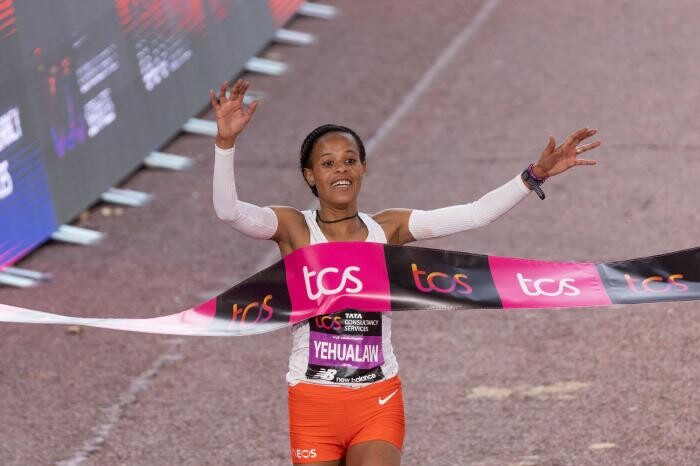
“It has always been my ambition to race in the United States and now the opportunity has finally come,” said Yehaulaw, the 2022 TCS London Marathon winner. “Running an early race means I get a chance to focus fully on the half marathon to go for a fast time. I am eager to win.”
The Aramco Houston Half Marathon women’s race also features the follow-up half marathon for the American record holder Weini Kelati. Kelati set the record of 1:06:25 in her debut half marathon here last year. She has not raced the distance since, instead focusing on the 10,000m in which she represented the United States at the 2024 Paris Games.
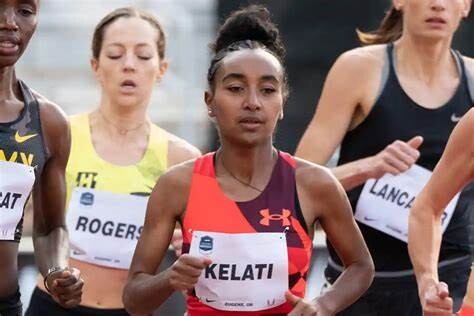
“I’m really excited to come back to Houston and run my second half marathon,” said Kelati, who finished fourth here in 2024. “Last year was great and I hope this year’s race will be even better. My training has been going well and I know the competition will be very good.”
The women’s professional field features 15 women who have run faster than 1:10 in the half marathon. Other top contenders include last year’s third place finisher Buze Diriba of Ethiopia; the third fastest British half marathoner in history, Jessica Warner-Judd, and fellow Brit and 2024 Olympic marathoner, Calli Hauger-Thackery. Hauger-Thackery won the California International Marathon last month.
The men’s competition will see a rematch of last year’s thrilling Aramco Houston Half Marathon. Wesley Kiptoo of Kenya who has been runner-up here for the past two years will again face off against Jemal Yimer of Ethiopia. Yimer outsprinted Kiptoo in 2024, beating him by just one second.
“I can’t wait to return to Houston to try to defend my 2024 title,” said Yimer, who also won here in 2020. “It’s a special place for me to kick off my 2025 road season.”
The pair will be joined by Tanzania Olympian and former Boston Marathon runner-up Gabriel Gaey who has a personal best of 59:42 from his seventh place finish here in 2020.
The men’s race will also see an attempt to finally topple the American half marathon record of 59:43 set here by Ryan Hall in 2007. Leading the chase on the 18-year-old record will be 2024 Olympic marathoners Conner Mantz and Clayton Young. Mantz and Young, who finished eighth and ninth in Paris, train together in Provo, Utah. In November, they were the top two American finishers in the TCS New York City Marathon with Mantz breaking the American course record. This will be Young’s Houston debut. Mantz last ran here in 2023, finishing in sixth place.
“I want to race the Aramco Houston Half Marathon because there are other fast Americans going for the American Record,” said Mantz, who also set the American record in the 10 mile last October. “The opportunities to race in a field like this, on a fast and record-eligible course are rare.”
Mantz and Young will face competition for a spot in the record books from Diego Estrada, the ninth fastest American in history and 2015 Houston champion who had a career-best performance here last year when he finished fifth in 1:00:49. Joe Klecker, an Olympian in the 10,000m, will look to play a factor in his half marathon debut along with his training partner Morgan Pearson, a two-time Olympic silver medalist in the triathlon with a personal best of 1:01:08. Klecker comes to Houston with family history. His mother Janis Klecker is the 1992 Houston Marathon champion.
The Chevron Houston Marathon features the return of two-time champion Dominic Ondoro of Kenya. Ondoro, who won here in 2017 and 2023, will be part of a field that includes two men who have run under Zouhair Talbi’s course record of 2:06:39 set in 2024: Haimro Alame (Israel, 2:06:04) and Ande Filmon (Eritrea, 2:06:38). The field also includes last year’s third place finisher, Hendrik Pfeiffer of Germany. Pfeiffer led nearly 22 miles of last year’s race and finished with a personal best of 2:07:14.
“Houston was the best marathon race in my career so far. I have great memories of the fast course and the impressive city,” said Pfeiffer, whose wife Esther is in the women’s half marathon elite field. “I have already experienced how it feels to lead the race for more than 35 kilometers and I‘m hungry for more. I will definitely try to chase a fast time again.“
A new winner will be crowned in the Chevron Houston Marathon women’s race. After making her half marathon debut here in 2023, Anna Dibaba will return to Houston to run just the second marathon of her career. The sister of Ethiopian legends Tirunesh, Ejegayehu and Genzebe, Dibaba ran 2:23:56 in her debut in Amsterdam last October.
“As I race in more marathons I am sure that I will understand better what I am capable of,” said Dibaba who placed fourth in the 2023 Aramco Houston Half Marathon. “You have to respect the distance of the marathon and it is not enough to be in shape. You must know how to interpret each race, the various courses and conditions. I am looking forward to seeing what I am now able to do in my next race in Houston."
There are two Ethiopian women who have run faster than Dibaba entered in the race. Tsigie Hailesale who has run 2:22:10 and has marathon victories in Stockholm and Cape Town is the fastest and Sifan Melaku, also a past winner in Stockholm with a 2:23:49 personal best.
American Erika Kemp will line up for only her second career marathon in Houston. Kemp, a two-time U.S. champion will look to build on her experience from the Boston Marathon last spring.
“In 2023 I learned what it was like to be out there competing for over two hours,” said Kemp, who runs for Brooks, the footwear and apparel sponsor of the Houston Marathon Weekend of Events. “I’m hoping to utilize the course karma I’ve built up in Houston to have a great marathon.”
“We are excited to see so many top runners kick off their 2025 racing season with us in Houston,” said Wade Morehead, Executive Director of the Houston Marathon Committee. “We are expecting a historic day that will add to this event’s reputation as one of the best races in the world.”
More than USD 190,000 in prize money and bonuses will be awarded to the top finishers of the Chevron Houston Marathon and USD 70,000 plus time bonuses for the top finishers in the Aramco Houston Half Marathon. The races will be broadcast live on ABC13 and feature commentary from Olympic Marathoner and Boston Marathon champion Des Linden.
by AIMS
Login to leave a comment
Chevron Houston Marathon
The Chevron Houston Marathon offers participants a unique running experience in America's fourth largest city. The fast, flat, scenic single-loop course has been ranked as the "fastest winter marathon" and "second fastest marathon overall" by Ultimate Guide To Marathons. Additionally, with more than 200,000 spectators annually, the Chevron Houston Marathon enjoys tremendous crowd support. Established in 1972, the Houston Marathon...
more...How an Indian tech company built a $19 billion brand by sponsoring the New York City marathon
Typically, when a company decides to sponsor a major event, it is looking to build awareness throughout a broad cross section of consumers for its products. So when TCS, the tech services unit of Tata Group, a large Indian conglomerate that is hardly a household name in the U.S., first announced it would be the title sponsor of the New York City marathon in 2013, it was a bit of a head-scratcher.
After all, TCS sells its services to businesses, not individual consumers, nor is it in the running business. But on the eve of the 10th anniversary of the first race in that sponsorship, which has since been renewed through 2029, TCS chief marketing officer (second photo) Abhinav Kumar says it has been a massive success. “It’s a phenomenal, phenomenal event for engagement,” Kumar tells Fortune in an interview over Zoom, speaking from his office in Brussels. Kumar cites a statistic from an outfit called Brand Finance, saying that the TCS brand is now worth $19.2 billion, up almost ninefold from 2010, thanks in large part to growing awareness of the name.
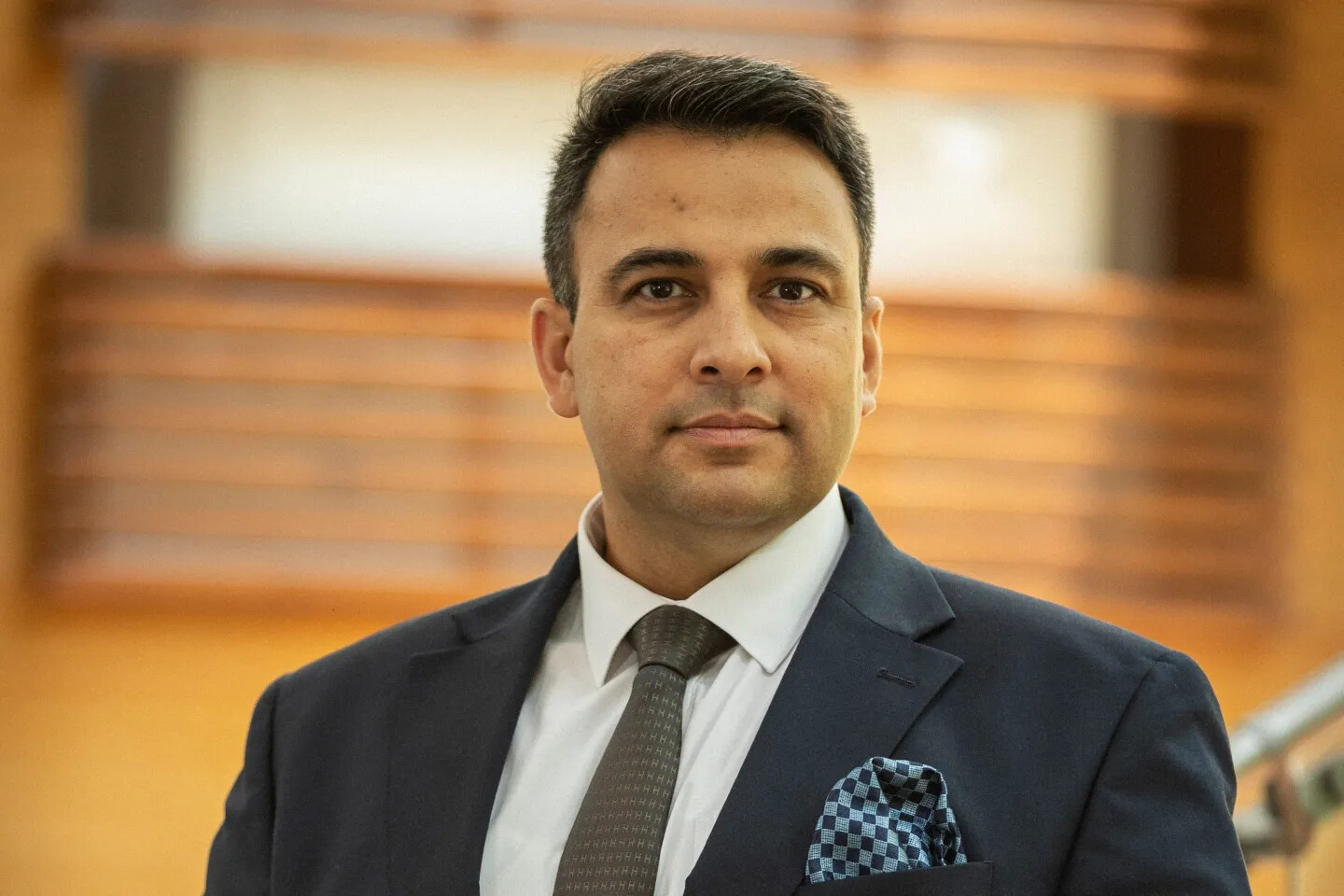
When TCS announced the sponsorship with the New York City marathon organizer, New York Road Runners, it was already the sponsor of a race in Mumbai, where it is headquartered, and the Amsterdam marathon. But it was also sponsoring events in other sports like cricket, and TCS realized it would be better off concentrating its efforts in one sport. (It still sponsors a Formula E event, but otherwise it’s focused on running.)
Since landing New York’s marathon, TCS, which spends $40 million a year on sports sponsorships, has picked up the London and Toronto marathons, with the recent addition of Sydney, Australia. In all, TCS sponsors 15 road races around the world, all but two of them marathons. (It is the title sponsor for most of those races, but for the Chicago and Boston marathons it is the technology sponsor only, not the title sponsor.)
Consolidating its sports sponsorship dollars into one sport is allowing TCS to get more marketing bang for its buck by creating visibility more regularly throughout the year, rather than diffusely at unrelated events, Kumar adds. So while this sponsorship is unusual in that it is not by a brand like New Balance, Brooks, or Nike looking to sell to consumers, it raises TCS’s visibility very strategically, reaching as many people as possible through a relatively small number of major events. The New York City marathon is the biggest in the world with more than 50,000 finishers and hundreds of thousands of spectators lining the 26.2-mile run through the city’s five boroughs.
“Our industry, our product is invisible,” says Kumar. So the focus on running allows TCS, which is part of the massive Tata Group, crucially to get in front of a lot of executives given running’s deep reach into the professional class. “We are engaging with 4,000 business executives with our running platform. But we also see a rise in the sport, and the corporate sector is taking up fitness in a big way,” he says.
TCS’s sponsorship work with the big marathons goes beyond just slapping its name on the race. For the 2014 New York marathon, TCS built an app for both athletes and spectators. (TCS’ predecessor as the New York marathon sponsor was Dutch bank ING, which had planned on using the sponsorship to develop a larger retail banking presence in the U.S., a business from which it has since withdrawn.)
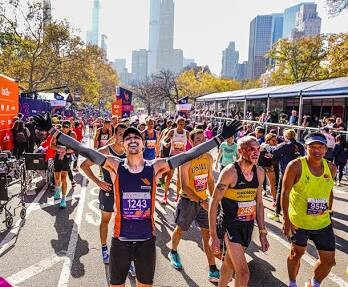
Over the years, the New York City marathon app has grown more sophisticated with a view to making the race what Kumar calls “the most technologically advanced marathon.” For years, the app offered athlete tracking. And then two years ago, TCS added live broadcast capabilities, enabling the race to be seen in 150 countries, bringing the event to new audiences.
Now TCS is tinkering with augmented reality and last year created what it calls the first digital heart of a professional runner, namely prominent female marathoner Des Linden, meaning it helped build a digital twin that allowed her to measure her health and performance and transform her training. Kumar says he hopes the tech can eventually help a runner finally break the two-hour marathon barrier. But perhaps more crucially, this aspect of the sponsorship allows TCS to showcase its tech in a way that could garner interest from clients like health care providers and medical device makers.
“It’s an opportunity for us to get our brand engaged with a larger set of people in an experiential manner,” says Kumar. Still, don’t expect TCS to go around snapping up all that many more races, given the costs of sponsorship. The marathons TCS wants to sponsor are typically large events in gateway cities and where it has a large business presence.
There’s a personal side to this story, too, Kumar says. TCS’s former CEO N. Chandrasekaran took up running for health reasons. To spread the word about the value of running for health and wellness, he created a health app for employees years ago. Now, of the 600,000 TCS employees, some 200,000 are runners at a variety of distances, says Kumar, who despite his nickname as TCS’s “chief marathon officer,” a play on the CMO title, does not himself run.
“It’s become part of the identity of our company, and it’s unleashed this revolution of wellness inside our company,” says Kumar.
by Phil Wahwa (Fortune)
Login to leave a comment
Tola and Obiri lead elite fields for New York City Marathon
Organisers of the 2024 TCS New York City Marathon have revealed a world-class line up for this year’s World Athletics Platinum Label road race on 3 November, led by defending champions Tamirat Tola and Hellen Obiri.
Since winning last year in a course record of 2:04:58, Tola won the Olympic title in Paris in a Games record of 2:06:26. What made his feat all the more impressive is that he was only drafted into the Ethiopian team two weeks before the Games, having initially been named as a reserve.
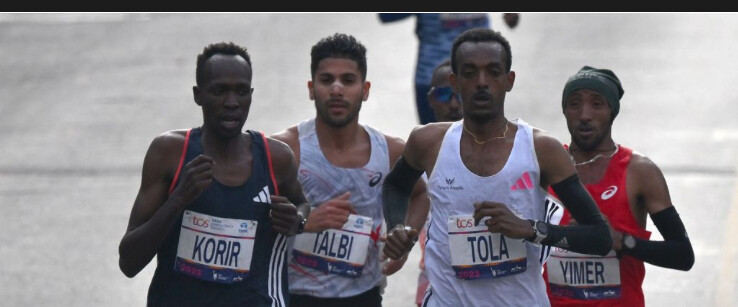
“I’m excited to defend my title in New York, especially coming off an Olympic-record marathon performance,” said Tola. “The hilly course and crowds in Paris definitely prepared me well for the bridges and spectators in New York, where maybe I can go even faster this year.”
Two-time Olympic medallist Bashir Abdi will also be one to watch; the Belgian earned silver at the recent Olympics, having taken bronze at the Tokyo Olympics in 2021 and at the 2022 World Championships.
Three past winners – all from Kenya – are also in the field: 2022 champion Evans Chebet, 2021 winner Albert Korir, and 2019 and 2017 victor Geoffrey Kamworor. Chebet has twice won the Boston Marathon, and has finished first or second in 13 marathons. Kamworor has made it on to the podium in all four of his New York Marathon appearances.
Fellow Kenyan Abel Kipchumba, who won this year’s NYC Half Marathon, will be making his New York City Marathon debut.
The US charge is led by Conner Mantz and Clayton Young, who finished eighth and ninth respectively in the Paris Olympic marathon.
Women’s Open Division
Obiri is a three-time Olympic medallist and seven-time world medallist. Last year the Kenyan became the first woman in 34 years to win both Boston and New York in the same calendar year. So far this year, she retained her Boston Marathon title and went on to earn bronze in the Olympic marathon.
“There’s no place like New York, and I am so ready to defend my title,” said Obiri. “I have been racing very well on the roads in the US, and I hope I can have another good day that sees me in contention once we enter the final stages in Central Park.”
Fellow Kenyan Sharon Lokedi, the 2022 NYC Marathon winner, will return after finishing third last year and fourth in the Olympic marathon in Paris. The Kenyan delegation will also include 2010 champion Edna Kiplagat, four-time Olympic medallist Vivian Cheruiyot, and Sheila Chepkirui, who owns the fastest personal best in the field.
Ethiopia’s Tirunesh Dibaba will make her New York City Marathon debut and is one of the world’s most accomplished long-distance runners as a three-time Olympic and 16-time world champion. She will be joined by compatriot Senbere Teferi.
Dakotah Lindwurm, the top US finisher in the marathon at the Paris Olympics, will lead the US contingent.
Elite field
WomenSheila Chepkirui (KEN) 2:17:29Tirunesh Dibaba (ETH) 2:17:56Vivian Cheruiyot (KEN) 2:18:31Senbere Teferi (ETH) 2:19:21Dera Dida (ETH) 2:19:24Edna Kiplagat (KEN) 2:19:50Eunice Chumba (BRN) 2:20:02Sharon Lokedi (KEN) 2:22:45Hellen Obiri (KEN) 2:23:10Fatima Gardadi (MAR) 2:24:12Kellyn Taylor (USA) 2:24:29Fabienne Schlumpf (SUI) 2:24:30Aliphine Tuliamuk (USA) 2:24:37Dakotah Lindwurm (USA) 2:24:40Lily Partridge (GBR) 2:25:12Jessica McClain (USA) 2:25:46Des Linden (USA) 2:25:55Tristin Van Ord (USA) 2:25:58Khishigasaikhan Galbadrakh (MGL) 2:26:32Maggie Montoya (USA) 2:28:07Katja Goldring (USA) 2:29:01Savannah Berry (USA) 2:29:13
MenEvans Chebet (KEN) 2:03:00Gabriel Geay (TAN) 2:03:00Bashir Abdi (BEL) 2:03:36Tamirat Tola (ETH) 2:03:39Geoffrey Kamworor (KEN) 2:04:23Abdi Nageeye (NED) 2:04:45Addisu Gobena (ETH) 2:05:01Abel Kipchumba (KEN) 2:06:49Albert Korir (KEN) 2:06:57Conner Mantz (USA) 2:07:47Clayton Young (USA) 2:08:00Rory Linkletter (CAN) 2:08:01Callum Hawkins (GBR) 2:08:14Ser-Od Bat-Ochir (MGL) 2:08:50Elkanah Kibet (USA) 2:09:07Noah Droddy (USA) 2:09:09Jonny Mellor (GBR) 2:09:09Jared Ward (USA) 2:09:25Colin Bennie (USA) 2:09:38Futsum Zienasellassie (USA) 2:09:40CJ Albertson (USA) 2:09:53Nico Montanez (USA) 2:09:55Yuma Morii (JPN) 2:09:59
by World Athletics
Login to leave a comment
Another Marathon Already? Top Americans from Paris Will Run New York in 11 Weeks
On Tuesday, the New York Road Runners announced the elite fields for this year’s New York City Marathon on November 3. The reigning champions are returning—Hellen Obiri and Tamirat Tola—as are three of the top Americans from the Paris Olympics marathon in August: Conner Mantz, Clayton Young, and Dakotah Lindwurm.
Also running New York are Evans Chebet, the 2022 champion and a two-time winner of the Boston Marathon, and Bashir Abdi, who won the silver medal in Paris. Tola, a last-minute addition to the Ethiopian Olympic team and NYC course record holder, enters as the presumptive favorite after winning the gold medal in Paris.
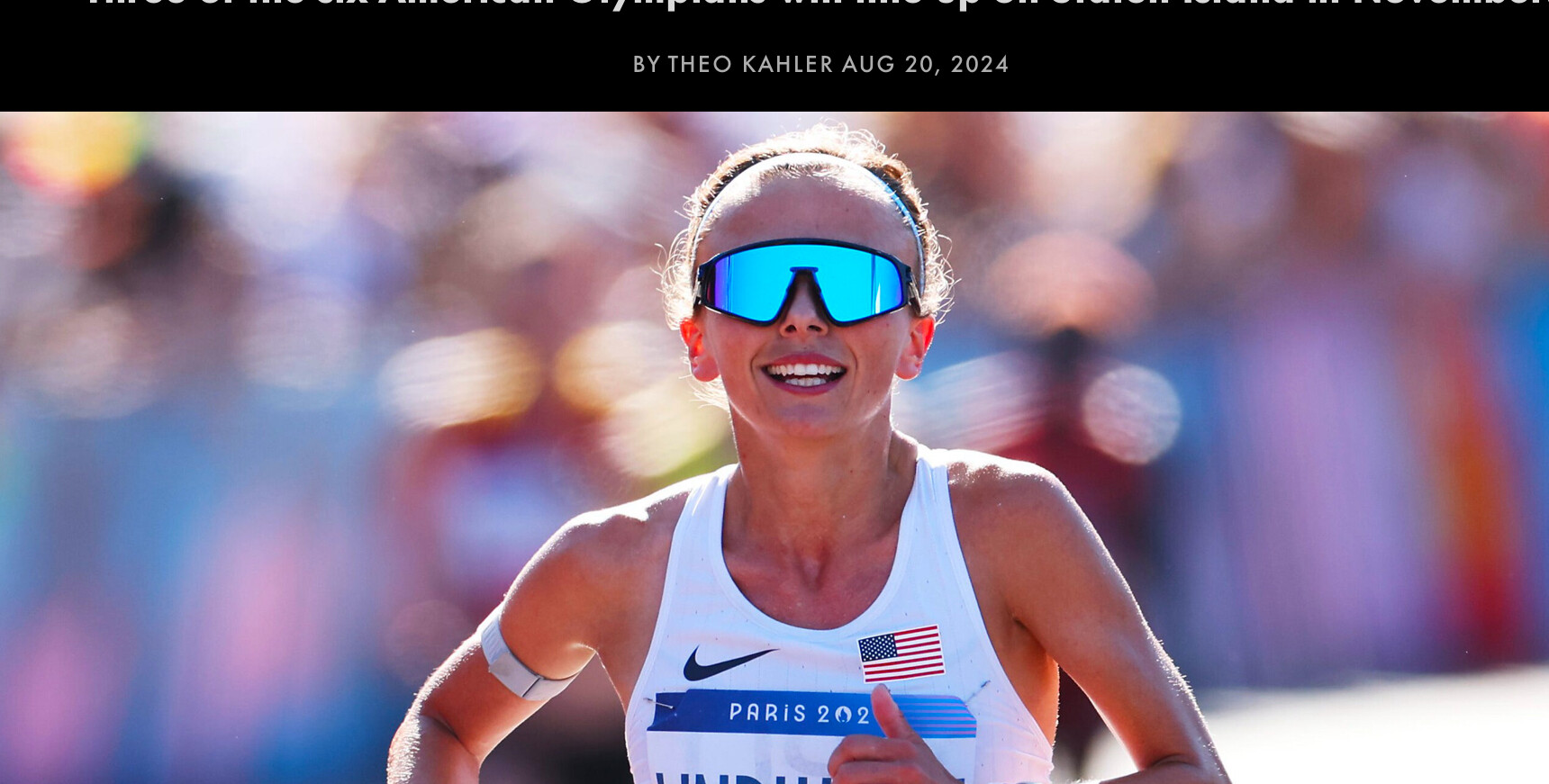
In addition to Mantz and Young, the American men will be represented by Elkanah Kibet, CJ Albertson, and Futsum Zienasellassie, among others.
The biggest competition for Obiri, who took bronze in Paris, will likely come from Sharon Lokedi, the winner of the 2022 New York City Marathon. Lokedi was just off the podium in Paris, finishing four seconds behind Obiri in fourth (2:23:14). Lindwurm, who placed 12th in Paris, will lead the Americans, but Jess McClain, Kellyn Taylor, and Aliphine Tuliamuk are all experienced, as is 2018 Boston Marathon winner Des Linden.
You can view the full elite fields here.
The two courses are both hilly, but the inclines in New York are more gradual. The Paris course had two major climbs, including a steep segment during mile 18 that averaged a 10.5 percent grade. In the men’s race, Tola made a strong move on the hill to separate from the field, which ended up getting him the gold medal. Although New York has 810 feet of elevation compared to 1,430 feet in Paris, it’s still a tough course—in fact, we ranked it the toughest of the six World Marathon Majors.
There’s a relatively tight 11-week turnaround from Paris (after you factor in a week for rest). The men’s Olympic race was August 10 and the women’s race was August 11. The New York City Marathon is scheduled for Sunday, November 3.
Young, who placed ninth at the Olympics, knows 11 weeks isn’t ideal for a full marathon build—he took 16 weeks for Paris—but he’s confident he can run well in November. He’ll resume full-on training next week and is being careful to take a physical and mental break after Paris.
“I think there can be this mentality that you want to hold onto that fitness from Paris, and that can be a debilitating mentality because if you try too hard to hang on to that fitness, you’re gonna be toast by race day by not taking a proper break,” he said. “It’s a tricky balance.”
Lindwurm, on the other hand, is used to running three marathons a year. The past two years, she’s raced the Boston Marathon in the spring, Grandma’s Marathon in June, and either the Chicago or New York City Marathon in the fall.
“For courses like New York, I like to say it’s better to show up al dente than overcooked,” she said. “I have no issues looking at an 11 week build, especially because I’ve done Boston to Grandma’s, which I think is like seven or eight weeks, quite a few times. So that never really scares me. I feel like every marathon build you’re just building off of what you did last time, so even if I don’t get any more fit than I was in Paris, I think I’m still in a really good spot.”
In 2022, when she ran New York, she had a tough race and dropped out at mile 18. But Lindwurm said she’s a totally different runner now, so this time, she’s “back for revenge.” She’s coming in with ‘A,’ ‘B,’ and ‘C’ goals: C is to finish the race, B is to crack the top 10, and A is to get on the podium.
Young wants to be more competitive, too.
He ran a fairly conservative race in Paris, holding back slightly on the steep hill at mile 18, but his apprehension caused him to run most of the later miles by himself. “I missed the move,” he admitted.
At New York, he hopes to race more aggressively, even if it comes with the risk of pushing too hard. “I’m excited to be able to cover more moves late in the race and to be more competitive towards the end, instead of finding myself in no man’s land,” he said.
He’ll run the race alongside his training partner, Conner Mantz, who finished one spot ahead of him in Paris, in eighth place. The two are longtime friends, but, at the end of the day, they’re competitors. And Young is 0-4 against Mantz in marathons.
Young wants to chip away at the score.
“I love training with Conner every day, and he’s a big reason why I was able to have such a great day in Paris and at the [U.S. Olympic] Trials and previous marathons, but man, I gotta beat him sometime, right?” he said.
“I wanna be competitive with him, and so I’m excited to toe the line with him again and to have that rivalry continue, as well as our friendship.”
Login to leave a comment
How to Watch the 2024 Boston Marathon
The world’s oldest annual marathon is back for its 128th edition.
On Monday, April 15, the World Marathon Majors will return stateside to the 2024 Boston Marathon. In its 128th year, the world’s oldest annual marathon features must-see storylines, including the return of defending women’s champion Hellen Obiri and two-time men’s winner Evans Chebet.
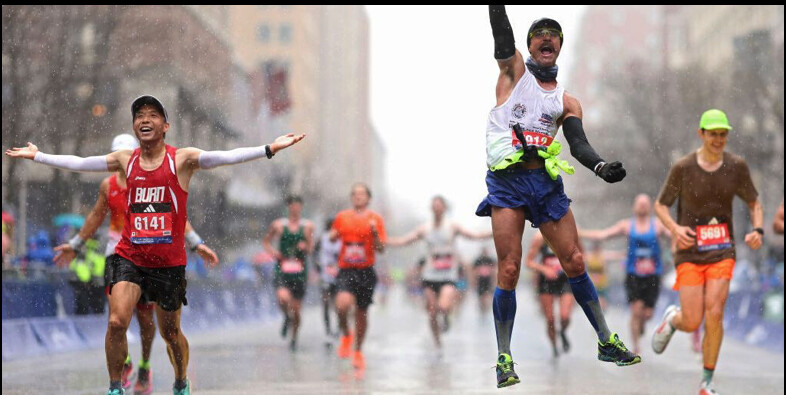
The point-to-point race is scheduled to begin in Hopkinton, Massachusetts, and ends in the Back Bay neighborhood of Boston. The weather forecast for Patriots’ Day is showing slightly warmer temperatures than average in the city. The conditions could make race day more challenging on a course famous for its hills (we ranked Boston as the second-toughest of the six World Marathon Majors).
Here’s everything you need to know about this year’s race.
How to watch the 2024 Boston Marathon
ESPN2 will broadcast the Boston Marathon from 8:30 a.m. ET to 12:30 p.m. ET. You can also live stream the race with an ESPN+ subscription, which costs $10.99 a month.
For those tuning in from Boston, live coverage will be provided by WCVB beginning at 4:00 a.m. ET and lasting throughout the day.
Boston Marathon start times (ET)
Men’s wheelchair division—9:02 a.m.
Women’s wheelchair division—9:05 a.m.
Men’s elite race—9:37 a.m.
Women’s elite race—9:47 a.m.
Para athletics division—9:50 a.m.
First wave—10 a.m.
Second wave—10:25 a.m.
Third wave—10:50 a.m.
Fourth wave—11:15 a.m.
Race preview
This year’s elite race comes with added high stakes for many international athletes. Countries that don’t host Olympic Trials for the marathon are currently in the national team selection process. A standout performance in Boston could be a game-changer for athletes looking to represent their country in Paris this summer.
Women’s race
On the women’s side, Boston podium contenders Hellen Obiri and Sharon Lokedi were included in the shortlist of marathoners under national team consideration by Athletics Kenya.
Obiri, 34, is set to return to Boston after a stellar 2023 campaign. Last year, the On Athletics Club runner won the Boston Marathon and the New York City Marathon. A former track standout with two world championship titles, Obiri aims to continue her winning streak on Monday.
Lokedi, 30, is looking to top the podium at a key moment in her career. The University of Kansas graduate is set to run her first 26.2 since finishing third at the New York City Marathon last fall—a race she won in her marathon debut two years ago.
Kenya will also be represented by 2022 World Championship silver medalist Judith Korir and two-time Boston Marathon champion Edna Kiplagat, among other standouts.
The Ethiopian contingent should be strong as well. Ababel Yeshaneh finished second at Boston in 2022 and fourth in 2023. Plus, 2:17 marathoner Tadu Teshome will be one to watch in her Boston debut.
In the weeks after the U.S. Olympic Marathon Trials in February, more Americans were added to the field. Sara Hall, 40, enters the race after finishing fifth in a new American masters record (2:26:06) at the Trials in Orlando, Florida. 2015 Boston champion Caroline Rotich, 39, joins the field after placing sixth at the Trials. Jenny Simpson, 37, also entered after dropping out in her marathon debut in Orlando. And keep an eye out for 2018 Boston Marathon champion Des Linden, 40, and Emma Bates, 31, who finished fifth in Boston last year.
Men’s race
Evans Chebet is looking for a hat trick. Last year, the Kenyan became the first athlete to repeat as men’s champion since Robert Kipkoech Cheruiyot won three in a row between 2006 and 2008. In the process, the 35-year-old took down two-time Olympic champion Eliud Kipchoge in Boston.
His biggest challenger will likely be Sisay Lemma of Ethiopia, who is returning after a breakthrough season in 2023. In December, Lemma, 33, won the Valencia Marathon in 2:01:48, making him the fourth-fastest marathoner in history. Lemma also won the Runkara International Half Marathon in 1:01:09, a new personal best.
Gabriel Geay, last year’s Boston runner-up, is returning to the field on Monday. The 27-year-old from Tanzania is coming off a fifth-place finish at the Valencia Marathon.
Other runners to watch include 2023 New York City runner-up Albert Korir; Shura Kitata, who placed third in New York last year; and Zouhair Talbi, who finished fifth in Boston last year.
The American men’s field also grew after the Olympic Trials with the addition of Elkanah Kibet and Sam Chelanga. Kibet finished fourth in Orlando in a 2:10:02 personal best, and after dropping out after mile 18 of the Trials, Chelanga will aim for redemption in Boston. They join 50K world record-holder CJ Albertson and the BAA’s Matt McDonald in the elite race.
by Runner’s World
Login to leave a comment
Grovdal, Kipchumba Take Victories At United Airlines NYC Half
Norway’s Karoline Bjerkeli Grøvdal and Kenya’s Abel Kipchumba won this morning’s hilly and chilly United Airlines NYC Half in 1:09:09 and 1:00:25, respectively. Grøvdal, 33, a three-time European Athletics cross country champion, became the first European woman to win the race since Britain’s Mara Yamauchi in 2010.
Kipchumba, 30, last November’s B.A.A. Half-Marathon champion in Boston, was the race’s ninth Kenyan male champion over its 17-year history. Both athletes won $20,000 in prize money.
The two dozen women in the elite field were in no hurry to establish a fast pace when the race set off from Prospect Park in Brooklyn just after sunrise. Calli Thackery of Great Britain, recently named to her country’s Olympic Marathon team, was the early leader and a pack of seven went through the 5-K checkpoint in a gentle 17:07. Grøvdal was in that pack along with Kenya’s Gladys Chepkurui, Edna Kiplagat and Cynthia Limo; the Netherlands’ Diane Van Es; and Switzerland’s Fabienne Schlumpf. The two top Americans, Des Linden and Jenny Simpson, were five seconds back.
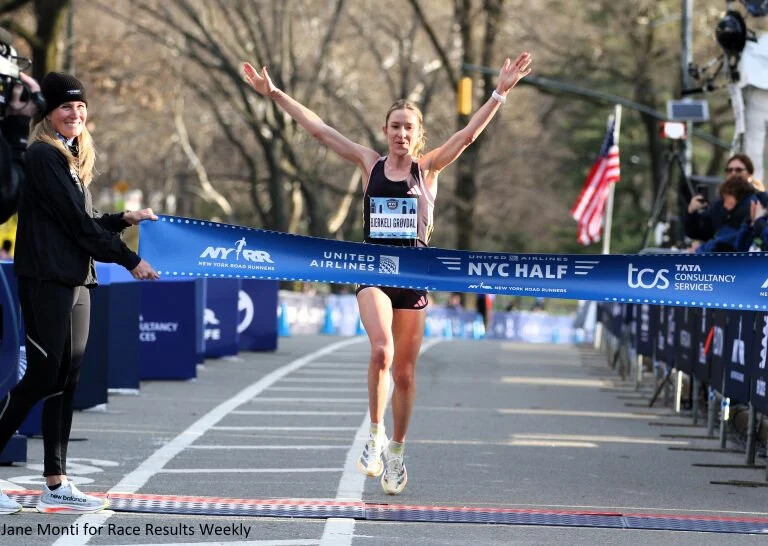
The next five kilometers would be critical. As the leaders ascended the Manhattan Bridge to cross the East River, the pace became too difficult for Thackery, Van Es and Schlumpf who all slid back. At the 10-K mark on the Manhattan side (33:26) the race was down to four: Grøvdal, Chepkurui, Kiplagat, and Limo.
Limo, the reigning Honolulu Marathon champion, was next to lose contact after Chepkurui pushed the pace up the FDR Drive along the East River. By 15-K, Limo was nearly 20 seconds behind and would finish a distant fourth in 1:11:54.
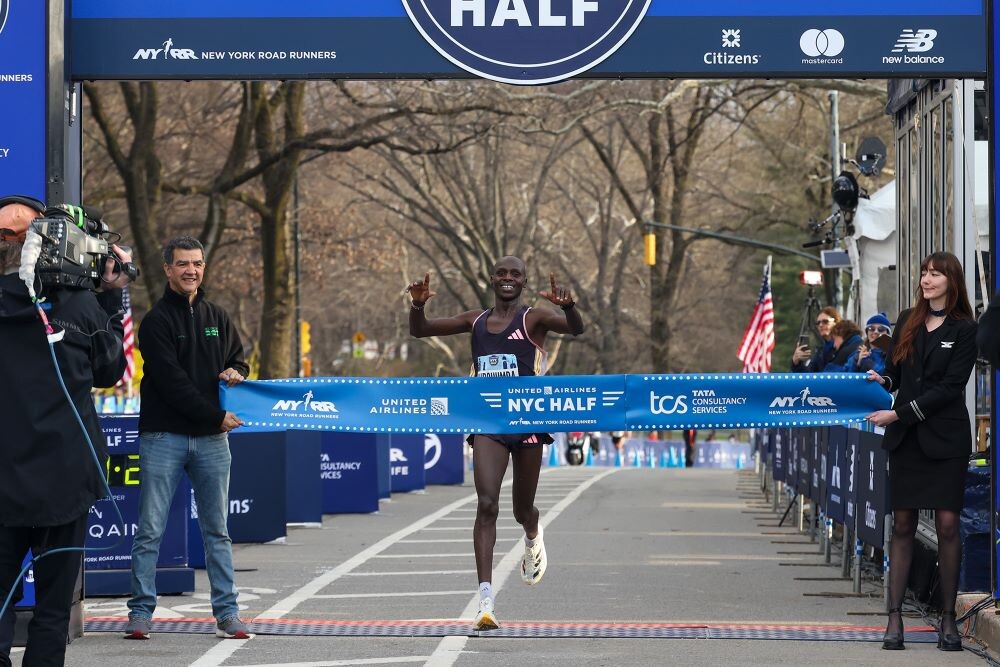
Grøvdal Comes Back
But Grøvdal was also hurting. In the tenth mile (17th kilometer) as the race went up Seventh Avenue past Times Square, Grøvdal began to lose contact with Chepkurui and Kiplagat. It looked like she would finish third for the third year in a row.
“I was so tired then,” Grøvdal told reporters. “Just thinking, it’s third this year also. But then, I don’t know. I just tried to don’t get the gap too big. Suddenly, I was just behind them again.”
The final seven kilometers of this race are particularly tough. The race climbs about 30 meters from 15-K to the finish, and the finish straight itself is uphill. Grøvdal knew the course well and was ready.
“Then something in me just, OK, now it’s the finish,” Grøvdal explained. “It’s 3-K left, so I was planning to have a strong finish the last 2-K and I did that.” She added: “I just went for it.”
The men’s race began much more aggressively than the women’s. By the 5-K mark (14:23) Kipchumba and Morocco’s Zouhair Talbi had already reduced the lead pack to four. Along for the ride were two Olympic steeplechasers, American Hillary Bor and Eritrean Yemane Haileselassie. The four stayed together through 10-K (28:38), but then Kipchumba and Talbi began to trade surges. That kind of racing was too punishing for Haileselassie, who drifted off the pace. Bor, running in just his first half-marathon, hung on.
“I wanted a fast race and I think the same for him,” said Talbi, who is observing Ramadan and had to fast in the days leading up to today’s race. “He (Kipchumba) wanted to push… so both of us keep pushing from the start. I pushed until the end, basically.”
By 15-K (42:54) Bor was 12 seconds back and Haileselassie was 32 seconds in arrears. It would be either the Kenyan or the Moroccan who would take the victory today. Kipchumba was determined and recognized Talbi as a formidable opponent.
“Today was not easy,” Kipchumba told Race Results Weekly. “The guy was strong.”
Kipchumba finally shook off Talbi in the race’s final stages, leading by 10 seconds at 20-K (57:18) and, ultimately, 17 seconds at the finish. His time of 1:00:25 was the fastest since 2017 when the race was held on a different –and much easier– course from Central Park to lower Manhattan.
“I tried my best; I won the race,” Kipchumba said. “(With) three kilometers remaining I said it’s time to win.”
Talbi was second in 1:00:41, and Haileselassie passed Bor in the final kilometer to take third in 1:01:37 to Bor’s 1:01:47. Another American, Reed Fischer, rounded out the top 5 in 1:03:06.
by David Monti
Login to leave a comment
United Airlines NYC Half-Marathon
The United Airlines NYC Half takes runners from around the city and the globe on a 13.1-mile tour of NYC. Led by a talent-packed roster of American and international elites, runners will stop traffic in the Big Apple this March! Runners will begin their journey on Prospect Park’s Center Drive before taking the race onto Brooklyn’s streets. For the third...
more...Edna Kiplagat to fight for top honors at NYC Half Marathon
Double world marathon champion, Edna Kiplagat will lead a stellar team of deep elite women at the 18th edition of the New York City Half Marathon scheduled for Sunday (17) in New York City.
The 44 year-old who is the oldest athlete to grace this event, comes to this race with the second fastest time on paper of 1:07.52 that she got last year at the Houston Half Marathon.
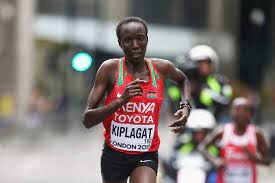
Kiplagat who is also a four time world major marathon winner will have to get past the two-time U.S. Olympian and Boston Marathon winner Des Linden and Rio Olympics 1500m bronze medallist, Jenny Simpson.
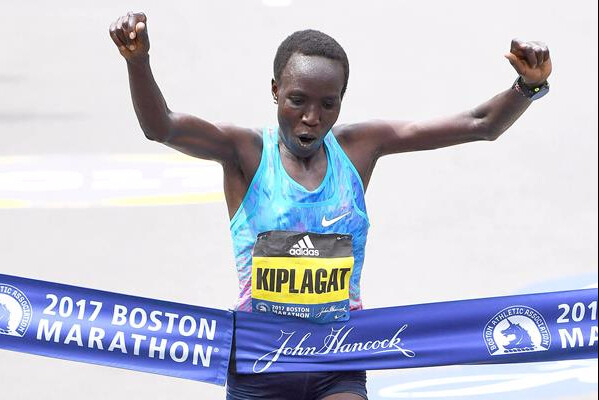
Other title contenders include former European 10,000m bronze medallist, Karoline Bjerkeli Grøvdal, who is also the fastest athlete on paper with a time of 1:07.34, world marathon bronze medallist, Fatima Gardadi, and Canadian marathon record holder Malindi Elmore.
The race organisers have assembled this strong team to target the race course record of 1:07.35 set eight years ago by Molly Huddle of United States.
LEADING TIME
21KM WOMEN
Karoline Grøvdal (NOR) 1:07.34
Edna Kiplagat (KEN) 1:07.52
Malindi Elmore (CAN) 1:10.11
Des Linden (USA) 1:10.34
Jenny Simpson (USA) 1:10.35
Fatima Gardadi (MOR)1:10.28
by James Koech
Login to leave a comment
Kenenisa Bekele, Connor Mantz & Clayton Young To Headline 2024 United Airlines NYC Half
The New York Road Runners (NYRR) has announced that the 2024 United Airlines NYC Half, taking place Sunday, March 17, will feature 11 Olympians, seven Paralympians, and several more professional athletes who have their eyes on the Paris 2024 Games this summer.
Conner Mantz and Clayton Young, fresh off finishing first and second, respectively, at the U.S. Olympic Marathon Trials, will headline the men’s open division at the United Airlines NYC Half, while two-time U.S. Olympian Hillary Bor will race 13.1 miles for the first time in his career and the world’s most-decorated distance runner, Kenenisa Bekele, will return to New York for his second NYRR event. The women’s open division will be chock-full of established contenders, including Olympians Des Linden, Jenny Simpson, Edna Kiplagat, Karoline Bjerkeli Grøvdal, and Malindi Elmore, in addition to World Championships marathon bronze medalist Fatima Gardadi.
These athletes will lead more than 25,000 runners during the United Airlines NYC Half, the world’s premier half marathon, organized by NYRR, which runs from Brooklyn to Manhattan, passing historic landmarks, diverse neighborhoods, and sweeping views of the city along the way before finishing in Central Park.
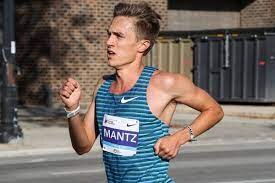
Men’s Open Division
Mantz and Young, training partners from Provo, Utah, will line up together at the start in New York less than two months after finishing one-two at the U.S. Olympic Marathon Trials in Orlando and qualifying for the Paris 2024 Games. Mantz was fifth in his first United Airlines NYC Half in 2022, and last year became the seventh-fastest American marathoner in history when running 2:07:47 to finish sixth at the Chicago Marathon. Young finished right behind him in seventh in 2:08:00 and will be making his United Airlines NYC Half debut.
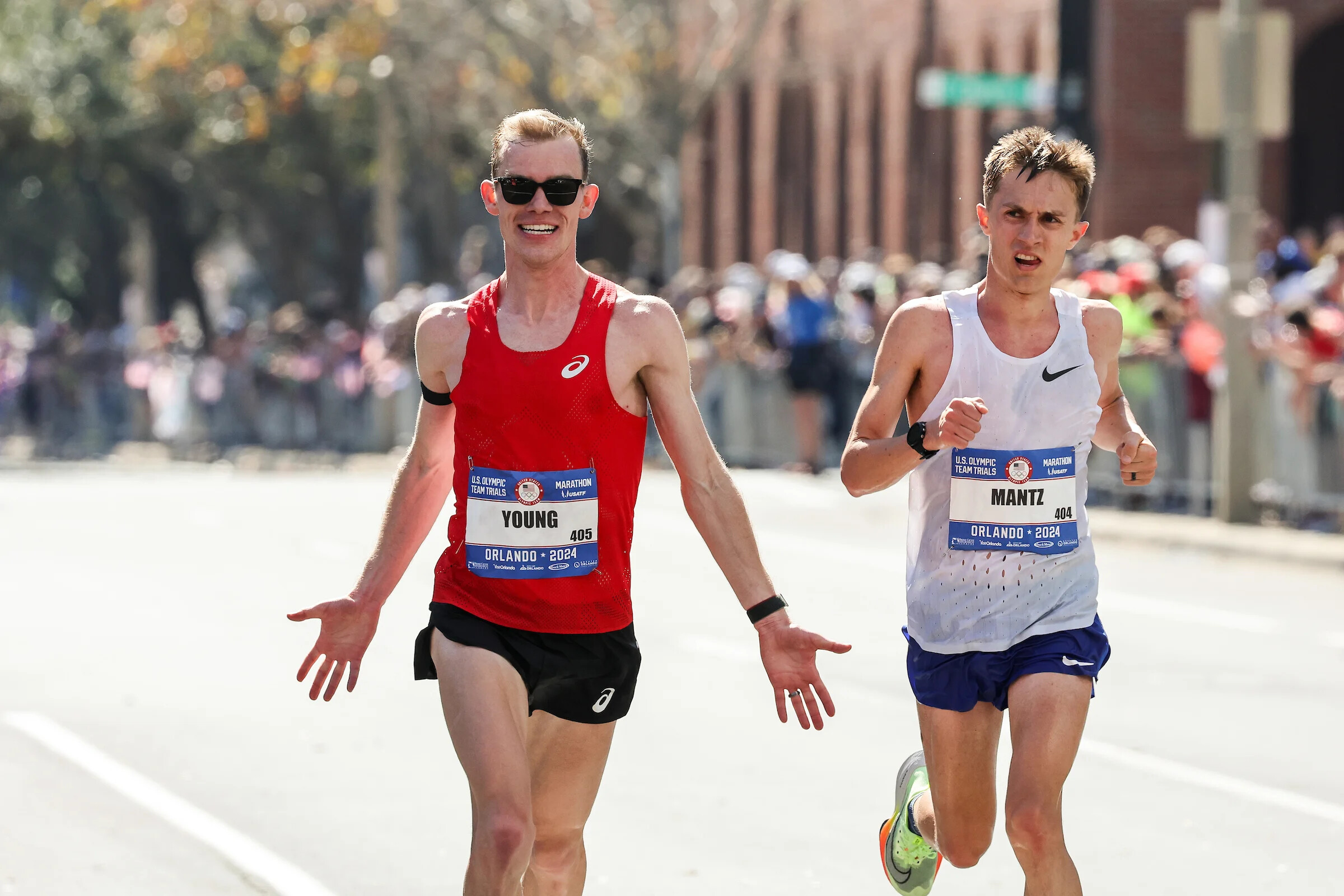
“I think I have a lot of room to improve in the halfs,” Mantz said on the latest episode of NYRR Set the Pace, Feb. 22, 2024. “I want to get these halfs in so I can have more confidence heading into Paris. I ran [the United Airlines NYC Half] in 2022…which was probably one of the most special experiences and it was a huge learning [experience]. It was probably my first race where I was competing against a big international field…so it was a really good experience for me, and I think it’s one I want to repeat and take what I’ve learned in the last two years and use it.”
Ethiopia’s Bekele, a four-time Olympic medalist, 16-time world champion, and the third-fastest marathoner in history, will challenge the American duo, racing with NYRR for the second time after finishing sixth at the 2021 TCS New York City Marathon. He will be joined at the starting line by Kenya’s Abel Kipchumba, the reigning champion of the B.A.A. Boston Half Marathon who owns one of the top-10 half-marathon times in history.
by Letsrun
Login to leave a comment
United Airlines NYC Half-Marathon
The United Airlines NYC Half takes runners from around the city and the globe on a 13.1-mile tour of NYC. Led by a talent-packed roster of American and international elites, runners will stop traffic in the Big Apple this March! Runners will begin their journey on Prospect Park’s Center Drive before taking the race onto Brooklyn’s streets. For the third...
more...Malindi Elmore and Tristan Woodfine to run 2024 NYC Half
On Thursday, the New York Road Runners (NYRR) announced the field for the 2024 NYC Half on March 17, which will feature Canadian marathoners Malindi Elmore and Tristan Woodfine alongside 11 Olympians and one of the world’s most decorated distance runners, Ethiopia’s Kenenisa Bekele.
This will be Bekele’s first time at the NYC Half and only his second career road race in New York City. (He finished sixth at the TCS New York City Marathon in 2021.) Bekele is one of the most prolific runners of all time, having been at the top of the sport for more than two decades. His personal best of 2:01:41 from the 2019 Berlin Marathon still stands as the Ethiopian national record, and makes him the third-fastest marathoner in history.
Bekele will headline the men’s race alongside top U.S. marathoners Conner Mantz and Clayton Young, who are fresh off finishing first and second, respectively, at the U.S. Olympic Marathon Trials in Orlando, Fla., on Feb. 3. Also joining the men’s field is Cobden, Ont.’s Woodfine, who is coming off an impressive 2:10:39 personal best and sixth-place finish at the 2024 Houston Marathon. The 30-year-old is currently training for the 2024 Boston Marathon, where he hopes to place in the top five to potentially secure a spot on the Canadian Olympic marathon team in Paris.
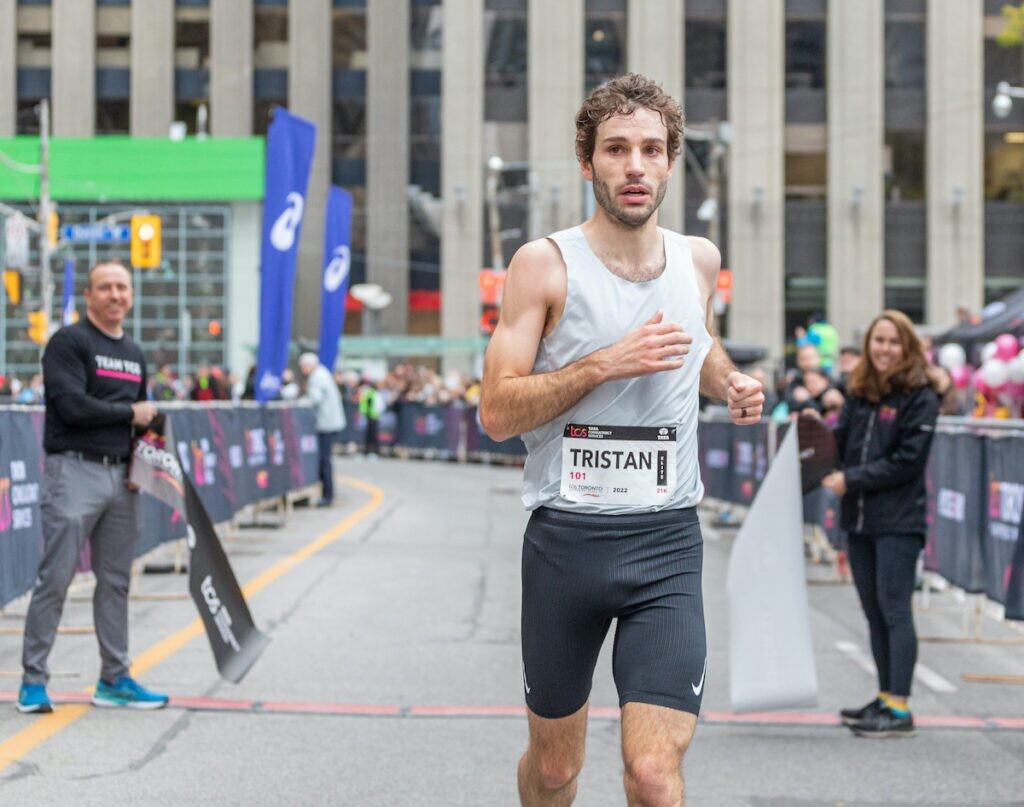
The women’s elite field will be full of established distance runners, including Olympians Des Linden, Jenny Simpson, Edna Kiplagat and Elmore, who was recently nominated to her third Olympic Games. Elmore secured her spot on the Canadian team last fall with a 2:23:30 clocking at the 2023 Berlin Marathon, the second-fastest Canadian women’s marathon time. Like Woodfine, Elmore is also training for the 2024 Boston Marathon, which she hopes will prepare her for the hilly marathon course at the 2024 Paris Olympics, which is expected to be the hilliest Olympic marathon course to date.
The men’s and women’s elite field will lead more than 25,000 runners during the United Airlines NYC Half, the world’s premier half marathon, which runs from Brooklyn to Manhattan, passing historic landmarks, diverse neighbourhoods and sweeping views of The Big Apple before finishing in the middle of Central Park.
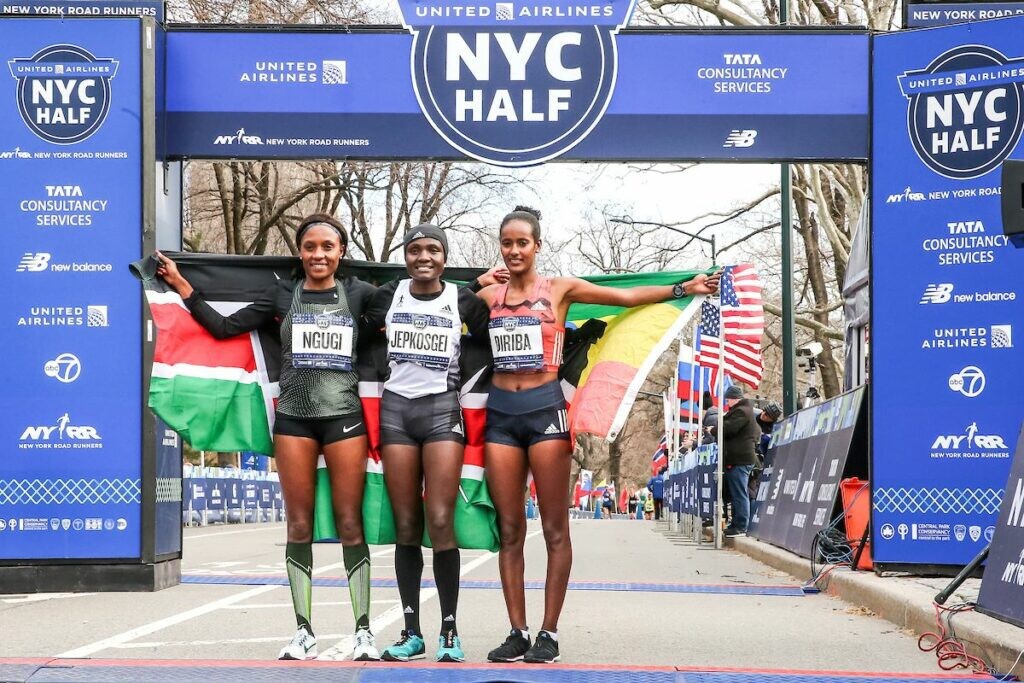
by Marley Dickinson
Login to leave a comment
United Airlines NYC Half-Marathon
The United Airlines NYC Half takes runners from around the city and the globe on a 13.1-mile tour of NYC. Led by a talent-packed roster of American and international elites, runners will stop traffic in the Big Apple this March! Runners will begin their journey on Prospect Park’s Center Drive before taking the race onto Brooklyn’s streets. For the third...
more...Kara Goucher Inks New Sponsorship Deal with Brooks
Her first brand appearance will be at the U.S. Olympic Marathon Trials in Orlando this weekend, where she’ll be part of the official NBC broadcast.
Brooks announced on Monday that the shoe company has signed a new deal with Kara Goucher, which entails not only footwear sponsorship, but speaking engagement and athlete collaboration opportunities. Everything officially goes into effect starting this weekend in Orlando at the U.S. Olympic Marathon Trials, where Goucher will be helping to tell the stories of the runners vying for Olympic spots on the NBC broadcast.
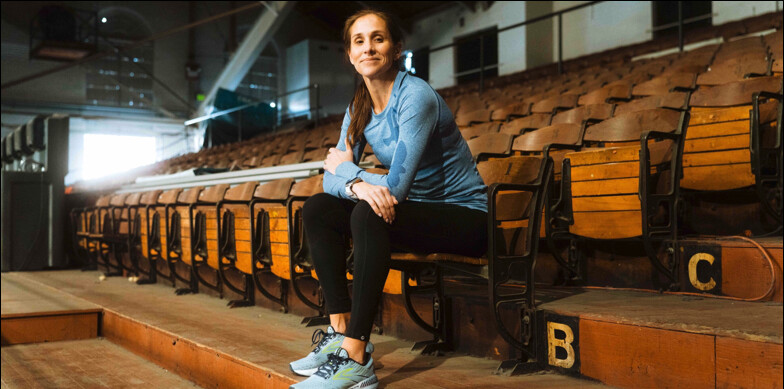
Footwearnews.com reports that the two-time U.S. Olympian and World Championship medalist will be the primary face of Brooks’ events throughout 2024, both at competitions and at Brooks’ community impact programs like Future Run, the company’s $10 million commitment to running programs across the country. She will also make appearances at the Track and Field Olympic Trials in Eugene and the 2024 Paris Olympics.
“I’m excited to work with Brooks on this new partnership and share my excitement and belief of the impact that running can have,” Goucher said in a statement. “Telling the amazing stories of runners is something I’ve always been passionate about, and Brooks makes for an incredible teammate as we continue to advocate for the power of the run to improve the sport for future generations.”
Goucher began her professional running career with Nike—an experience she detailed in her tell-all memoir last year, The Longest Race: Inside the Secret World of Abuse, Doping, and Deception on Nike’s Elite Running Team. She moved on to the Skechers Performance Elite Team and signed with Oiselle in 2014 and then switched to Altra in 2018, but lost her ability to compete at a high level in 2021, when she was diagnosed with dystonia, a neurological movement disorder.
Even so, at 45, Goucher remains an important and respected voice in the running community, through her work as a mental health advocate, sports broadcaster and co-host of the podcast Nobody Asked Us with fellow Brooks athlete Des Linden.
“Kara’s lived experiences and her passion for bringing attention to the humans behind incredible performances,” a release from Brooks read. “The goal is for Goucher to help inspire runners and show how the sport can help change lives.”
by Runner’s World
Login to leave a comment
Orlando Unveils 2024 US Olympic Marathon Trials Course, Announces Races Will Start at 12:10 and 12:20 pm ET
Just over six months out from race day, organizers revealed the course for the 2024 U.S. Olympic Team Trials – Marathon on Tuesday morning. The race, which will be held on February 3, 2024, in Orlando, Fla., will consist of one 2.2-mile loop through the downtown business district and three 8-mile loops through the city’s Milk District — so-called because it features the headquarters of T.G. Lee Dairy, which has been based in the area for 98 years. It will start and finish at the Walt Disney Amphitheater at Lake Eola Park. None of the course will run through Disney World, which is located to the southeast of the city of Orlando.
Unlike the Paris Olympic marathon course, which features considerable climbing and descending during the middle of the race, the Orlando course is relatively flat, with few small inclines but a variation of just 38 feet (11.6 meters) between the course’s lowest and highest points.
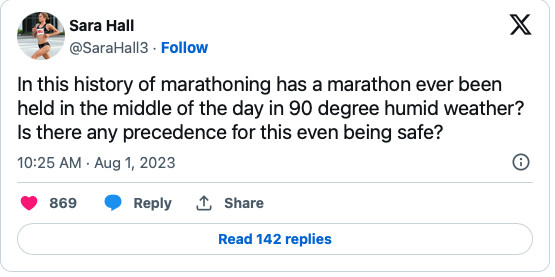
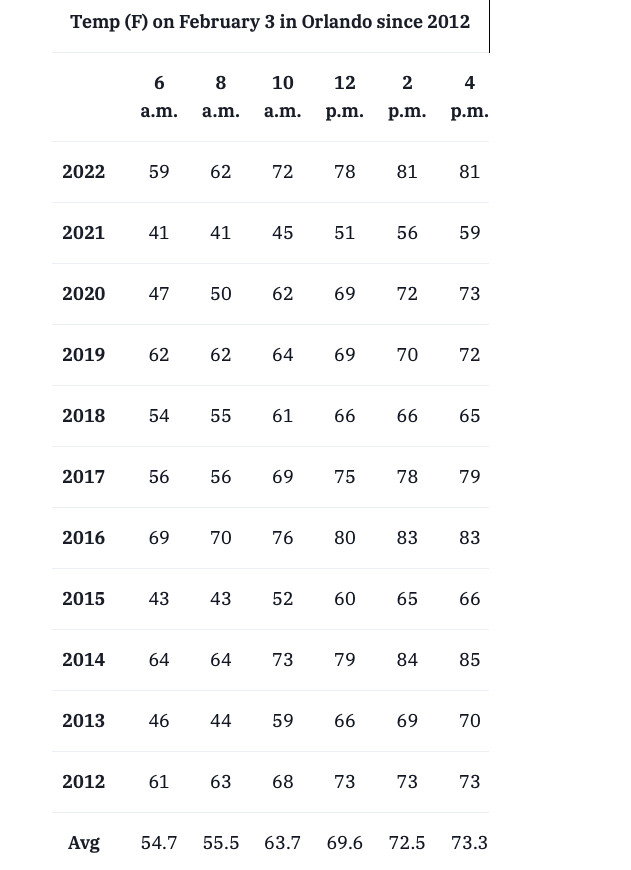
Mid-Day Start Time
Getting the actual course layout is nice but not that significant. We knew the course was going to be mostly flat as Orlando is mostly flat.
Organizers also announced something more significant: the start times for the race. The men will begin at 12:10 p.m. ET with the women to follow at 12:20 p.m. ET. Both races will be shown in their entirety on NBC.
With basically a noon start in Florida, it’s possible the race could be run in quite warm conditions. The debate of the once-rumored but now confirmed 12ish start times has been intense on the LRC forums for over a month now.
A couple of Trials veterans have already shared their thoughts, with Sara Halland Des Linden offering contrasting viewpoints. Hall, who is known to not like racing in hot weather, expressed concern about the heat and the safety of the athletes. She even challenged USATF CEO Max Siegel to run a hot weather marathon this summer.
It must be noted that Orlando has not seen a 90-degree day in February since 1962.
Meanwhile, two-time Olympian Linden had no issue with the start time and thought it could boost her chances of making the team by running smart.
For those interested in what the weather is typically like in Orlando on February 3, here’s a look at the temperature, wind, and dew point at specific times from 2012-22.
If the goal of the Olympic Marathon Trials was for every athlete to run their fastest possible race, obviously it would be better to start the race earlier, but there are other concerns. Television is the reason why the race is being held in the afternoon (there’s not a huge amount of West Coasters watching TV at 5 or 6 a.m. on a Saturday). The 2016 Trials began at 1:06 p.m. ET (10:06 a.m. local in Los Angeles) while the 2020 Trials in Atlanta began at 12:08 p.m. ET. Both races were shown on NBC in their entirety.
The fact is, in professional sports, there are often competing interests — what’s best for the athletes isn’t always what’s best for TV, and someone is going to be unhappy. USATF designed its US championships schedule this year with athletes in mind but the result was that USATF could not get the US outdoor championships shown on NBC. With the Trials, USATF is prioritizing the broadcast on NBC with the athletes a secondary consideration. You can be mad about one of those two things, but not both.
Orlando can be warm in February, no doubt about it — from 2012-22, the average temperature at 2 p.m. on February 3 was 73 degrees. But guess which race also is warm? The Olympic marathon. The Olympic marathons will be held on July 10-11, 2024. On July 10-11 this year, it was 73 degreees at 10 a.m. in Paris, which is when the marathons would be nearing their completion (8 a.m. start times).
In general, we are for athletics to be on live TV so we are fine with the races being scheduled for 12:10 and 12:20. We do believe if the temperatures are truly extreme (say 75 or higher at the start, certainly 80), USATF should move the race up and show it on tape-delay. But if you’re looking for conditions that mirror the Olympic marathon, Orlando in February is not a bad facsimile.
The one big issue we still have is with the new Olympic qualifying system. If you haven’t run under 2:11:30 for the men or 2:29:30 for the women during the qualifying window, you aren’t going to the Olympics even if you are in the top three. We think that’s ridiculous but those are the rules. That’s tough to do in warm weather. While it’s very unlikely someone who hasn’t run at least 2:11:30 or 2:29:30 in the window finishes top three, it could happen in the case of someone just moving up the marathon like Molly Seidel did in 2020 or someone coming back from injury or maternity leave like Kellyn Taylor.
We really wish WA would simply accept the top three from the Trials since the US is sending three per gender most likely no matter what happens, but we’d rather take the small risk that someone without the 2:11:30/2:29:30 times is top three and have the race be on live TV than put it early in the morning. Plus athletes could chase the time up until April 30 and we’d love to see WA have to take the PR hit of someone on the way back from maternity leave having to run a time. Maybe it would finally make them let the spots go to countries as long as the countries hold legitimate trials.
(To cover all our bases, it’s worth noting there’s a small chance on the men’s side that the US has only one or two qualified men’s athletes at the start of the Trials. We’re pretty sure we’ll have at least three but it’s not set in stone and we won’t know for sure until after the fall marathon season is over. If that’s the case, then the start time is more problematic as the US men would either have to hit the 2:08:10 auto standard or run fast enough to raise their world ranking into a qualification spot. If that’s the case and the US men don’t have three spots guaranteed, we think the men’s start time should be moved up and shown on tape delay but keep the women’s race as scheduled).
Talk about the trials on our forum:
by Let’s Run
Login to leave a comment
47-Year-Old Marathoner to Run Fifth Olympic Trials
Dot McMahan qualified with a 2:35:20 at Grandma’s Marathon, averaging 5:56 per mile pace.
In the closing miles of the 2023 Grandma’s Marathon, last June in Duluth, Minnesota, Dot McMahan struggled to calculate how close she was to the Olympic Marathon Trials standard.
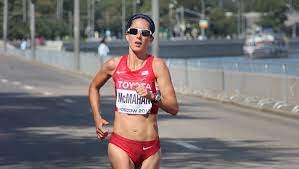
“I was just trying to run under 2:37, but you know, math, when you’re running a marathon, isn’t always so good,” she said.
McMahan was more than fine. In her 20th marathon, she ran 2:35:20, smashing the standard and qualifying for her fifth Olympic Marathon Trials.
Her coach, Kevin Hanson, of Hansons-Brooks Distance Project, was ecstatic. And so was her husband, Tim, and their 14-year-old daughter, El, who is also a runner. El told her mom when they FaceTimed after the race that she had run her fastest time since turning 40. “She knew all my stats,” McMahan said. “She was over the moon.”
McMahan, 47, and Des Linden, 40, are thought to be the only female athletes in the field running a fifth marathon trials. McMahan is the oldest women’s qualifier. On the men’s side, Fernando Cabada, 41, has qualified for five marathon trials and is entered in the race. Abdi Abdirahman, a five-time Olympian, is also 47, the oldest in the men’s field.
It was never a given that McMahan would make a fifth trials, especially after USA Track & Field announced in late 2021 the tougher entry standards for the 2024 race. For the 2020 race, held in Atlanta, women had to run 2:45 to make the Trials. This time around, they had to be 8 minutes faster.
“I was very supportive of the fact that they needed to make it quicker, for the women, at least,” she said. “It kind of loses its luster if we make it too easy. That said, I think it was a little harder than I [predicted], which was maybe 2:40, 2:39. So 2:37 was like, woah, okay, we’ve got a real goal here. I never assumed that was going to be a walk in the park.”
McMahan, who was eighth at the Trials in 2008 and ninth in 2012, knows she’s unlikely to finish that close to the front again, unless something unexpected happens in Orlando. While her teammates have moved to Orlando for the month to prepare for potential heat and humidity, McMahan is still training in Rochester Hills, Michigan, where she works as an assistant track coach at nearby Oakland University and has a pet sitting business. (She’s also an online coach with McKirdy Trained.)
And she wants to be home with her family. McMahan’s only warm weather preparations at the moment are the occasional treadmill run. “It’s in a space that we can enclose a little more and turn the heat up,” she said. But simulating humidity “gets a little tricky. You don’t want to grow a bunch of mold in your house.”
That’s typical of the practicality McMahan brings to her training. Her longevity, she says, is a function of doing most of the same hard work she’s always done. She’ll reach 105–110 miles per week at her peak training for a marathon, and she’ll double three or four days per week. She used to run 120.
“I’ve tapered back a little bit, but I’m still doing the majority of it,” she said of the Hansons-Brooks training. “That’s what it takes.” On January 14, McMahan ran the Houston Half Marathon as a tuneup and finished in 1:16:02, averaging 5:48 pace. She was very happy with the result.
Hanson said he and McMahan frequently joke that she’s old enough to be the mother to some of the athletes on the team who are fresh out of college. But he notes McMahan’s durability. She has avoided serious injuries. “That’s what becomes career-ending in your 40s,” he said. “In your late 40s, any injury that sets you back sometimes ends things, because it’s just to hard to get back into it.”
McMahan is practical about other matters, too.
For one, she refuses to dye her hair. “I do have a considerable amount of gray hair,” she said. “I’m not doing anything about it; I’m just going to let it come in.” Plus, she said, her husband has gray hair. They’d look silly together if she dyed her hair and he didn’t. “We’re aging,” she said. “It’s just life.”
She devotes about an hour to getting ready for her morning runs—warming up, doing mobility exercises, and “making sure things are firing.”
When her pace slows on afternoon recovery runs, she doesn’t dwell on it. On December 26, she did a hard 20-miler. The next day, she was tired, and she had 10 miles in the morning, and 4 miles in the afternoon on the schedule. She did those runs, but she ran them slowly—for her.
“I think in the past, I would have beat myself up mentally looking at my watch and being like, ‘You’re running 8-minute pace; this is so ridiculous,’” she said.
Now, she thinks: Are you happy? Are you healthy? Does anything hurt? This is what recovery pace is for you. “I listen to my body, and I don’t get upset thinking it should be a certain pace,” she said. “That’s my concession to age.”
by Runner’s World
Login to leave a comment
Calgary woman distraught after F-word engraved on marathon medal
A marathon medal represents months of dedication, perseverance and the sense of personal accomplishment that comes from completing 42.2 gruelling kilometres. Adorchita Di Perno of Calgary felt that way about her 2023 Chicago Marathon medal, until she saw that the expletive “F***” had been engraved onto the back of it.
Di Perno had just finished her 22nd marathon in 3:34:29, achieving a Boston-qualifying time. She was able to get 2018 Boston Marathon champion Des Linden to sign the back of her medal and, for the first time, decided to get it engraved. After the race, she dropped it off at the U.S. running chain Fleet Feet Chicago, where she wrote down her name, phone number and bib information for the engraving.
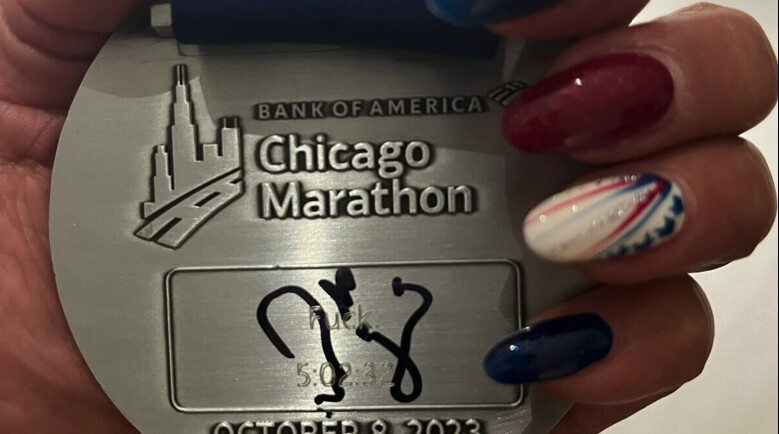
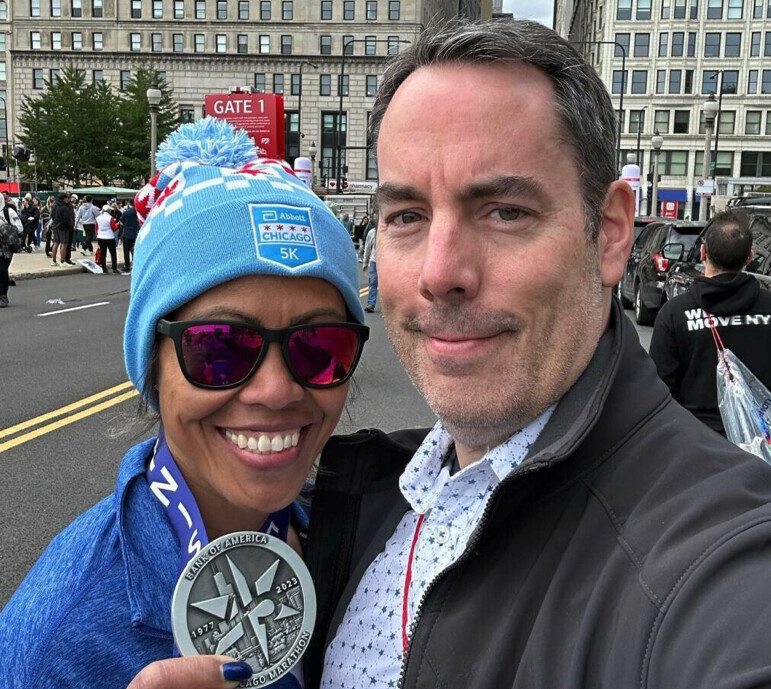
After waiting a few hours, Di Perno arrived back at the store to collect her medal. She wasn’t wearing her glasses at the time, but immediately noticed that it had the wrong time (5:02:32). Then, when she put on her glasses, her heart stopped as she read the profanity engraved onto the medal.
“This is my medal, but this is not my time or name,” says Di Perno. “And I did not ask for the F-word.”
Di Perno immediately spoke to store management, and after much confusion, they apologized for the mistake, giving her the option of a new, untarnished medal. “I did not want to give it up, because I ran for it and earned it,” says Di Perno.
Later that day, staff at the store figured out that Di Perno, whose bib number was 5773, had dropped off her medal at the store at around the same time as another runner, with a bib number 57731, dropped off her own medal, and the engravers got the two customers confused.
We reached the other runner, who told us, “I was supposed to get my medal back on Oct. 12,” and who confirmed that they requested the F-word be engraved on her medal, but declined to say why. “I haven’t heard from [Fleet Feet] and did not know [my medal] was given to someone else,” they said.
When Canadian Running showed them a photo of the medal, they were unhappy about the black marker on it, not realizing it was Linden’s signature.
Looking back on the mishap, Di Perno says she was upset at the time, but now, it’s hard not to laugh about it.
The Calgarian hopes to one day become an Abbott World Marathon Major six-star finisher, and is waiting to hear whether she’s been selected to race the Tokyo Marathon in 2024.
by Running Magazine
Login to leave a comment
Scientists Are Trying to Clone Des Linden’s Heart
“Digital twin” technology might unlock new insights into performance and health—for everyone
In the age of lab-tested super shoes, blood lactate testing, and endless GPS watch data, companies are constantly searching for new ways to improve athletic performance. The next step for precious marginal gains might be in the virtual world.
This week, the IT and consulting firm Tata Consultancy Services (TCS) announced they’re creating a “digital twin” of marathon runner Des Linden’s heart. According to TCS, which is the title sponsor for road races like the New York City Marathon and London Marathon, “A Digital Twin Heart is a real-time, virtual replica of a person’s heart, offering precise data on its function, efficiency, and response to varying conditions.” If that sounds like something out of a Stanley Kubrick film, we’re right there with you. In plain English, TCS hopes that a digital heart can provide precise, real-time training feedback to help inform athletes in the future. For example, imagine if you could analyze your cardiac activity at a certain point in a race. Say, mile 15 of the New York City Marathon, on hilly Queensboro Bridge.
TCS believes that using that kind of data could unlock new insights: “Imagine the difference it might make to see, measure, and monitor a heart going through such significant stress—and predict with high accuracy how it will perform. Imagine you could hold a realistic digital copy of this heart in your hand or explore inside its ventricles at every beat.”
Linden, 40, is a two-time Olympian and is perhaps most known for winning the 2018 Boston Marathon. On Sunday, she set a new American masters record for the marathon, running 2:27:35 to break Deena Kastor’s previous time from 2015 by 12 seconds. Before the race, Linden told Runner’s World that she’s excited about the digital twin, although she hasn’t integrated it into her training yet. She admitted the concept is sci fi-esque. Linden’s virtual heart is still in the early stages, but TCS (which sponsors Linden and Kara Goucher’s podcast Nobody Asked Us with Des & Kara) hopes to have her twin ready in November. Linden has already sat for an MRI, which the TCS team is using to model the replica. Debashis Ghosh, President of the Life Sciences and Healthcare Business Group at TCS, believes that digital twin technology has the potential to not only improve running but inform broader healthcare decisions.
“Des’s Digital Heart can optimize her training, performance, and recovery but this technology is important for reasons far beyond sports—it can ignite a personal healthcare revolution,” he said in a press release. “With heart disease the leading cause of death in the U.S., it is more important than ever to innovate techniques to keep hearts healthy.”
The impact of the emerging tech is to-be-determined, but TCS believes that digital twins will be commonplace for civilians by 2035, thanks to recent advancements in fields like AI, machine learning, and virtual reality.
Who knows—maybe we’ll all be checking the stats of our digital hearts just as much as our cadence or average pace after a run.
by Runner’s World
Login to leave a comment
Two American men achieve the Olympic standard at Chicago Marathon
The American contingent was led by Conner Mantz, who finished sixth overall and ran a personal best of 2:07:47. His former BYU teammate Clayton Young placed seventh in 2:08:00. Both athletes dipped under the Olympic qualifying standard of 2:08:10.
Running his first marathon since the 2022 World Athletics Championships in Eugene, Oregon, Galen Rupp finished eighth in 2:08:48.
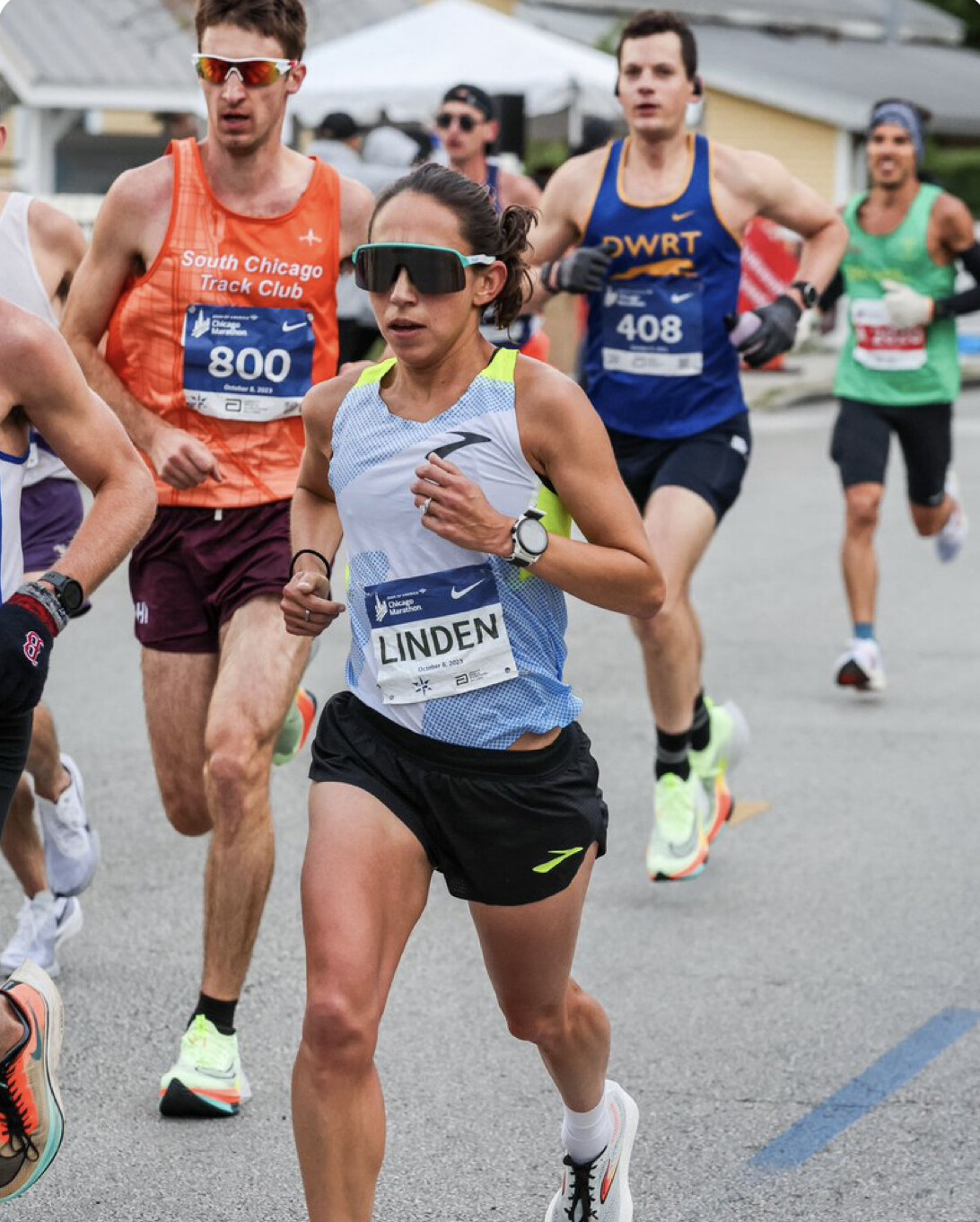
Three American women crack the top 10
A year after breaking the national record in Chicago, Emily Sisson returned as the top American with a seventh-place finish in 2:22:09. Olympic bronze medalist Molly Seidel finished eighth overall in 2:23:07, and Sara Vaughn placed 10th in 2:23:24.
After turning 40 in July, Des Linden broke the American masters record by running 2:27:35, beating the previous record (2:27:47) set by Deena Kastor.
Login to leave a comment
Bank of America Chicago
Running the Bank of America Chicago Marathon is the pinnacle of achievement for elite athletes and everyday runners alike. On race day, runners from all 50 states and more than 100 countries will set out to accomplish a personal dream by reaching the finish line in Grant Park. The Bank of America Chicago Marathon is known for its flat and...
more...The Road to the Paris Olympics and here is What You Need to Know.
American runners are about to begin training for the U.S. Olympic Trials Marathon
It’s early October, which means it’s the peak marathon season for many runners. But with an Olympic year on the horizon, it also means America’s top marathoners are about to hit the road to Paris.
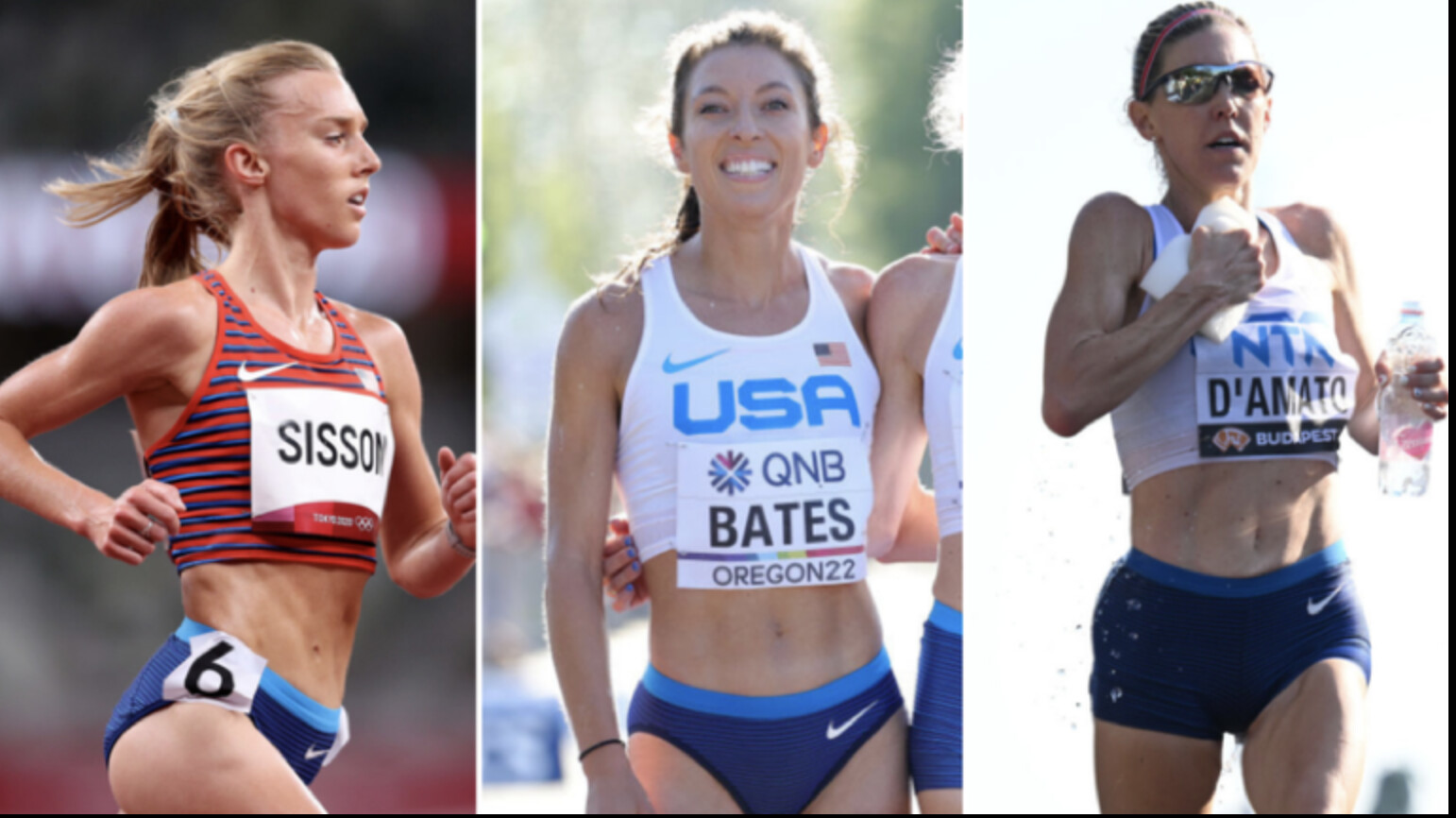
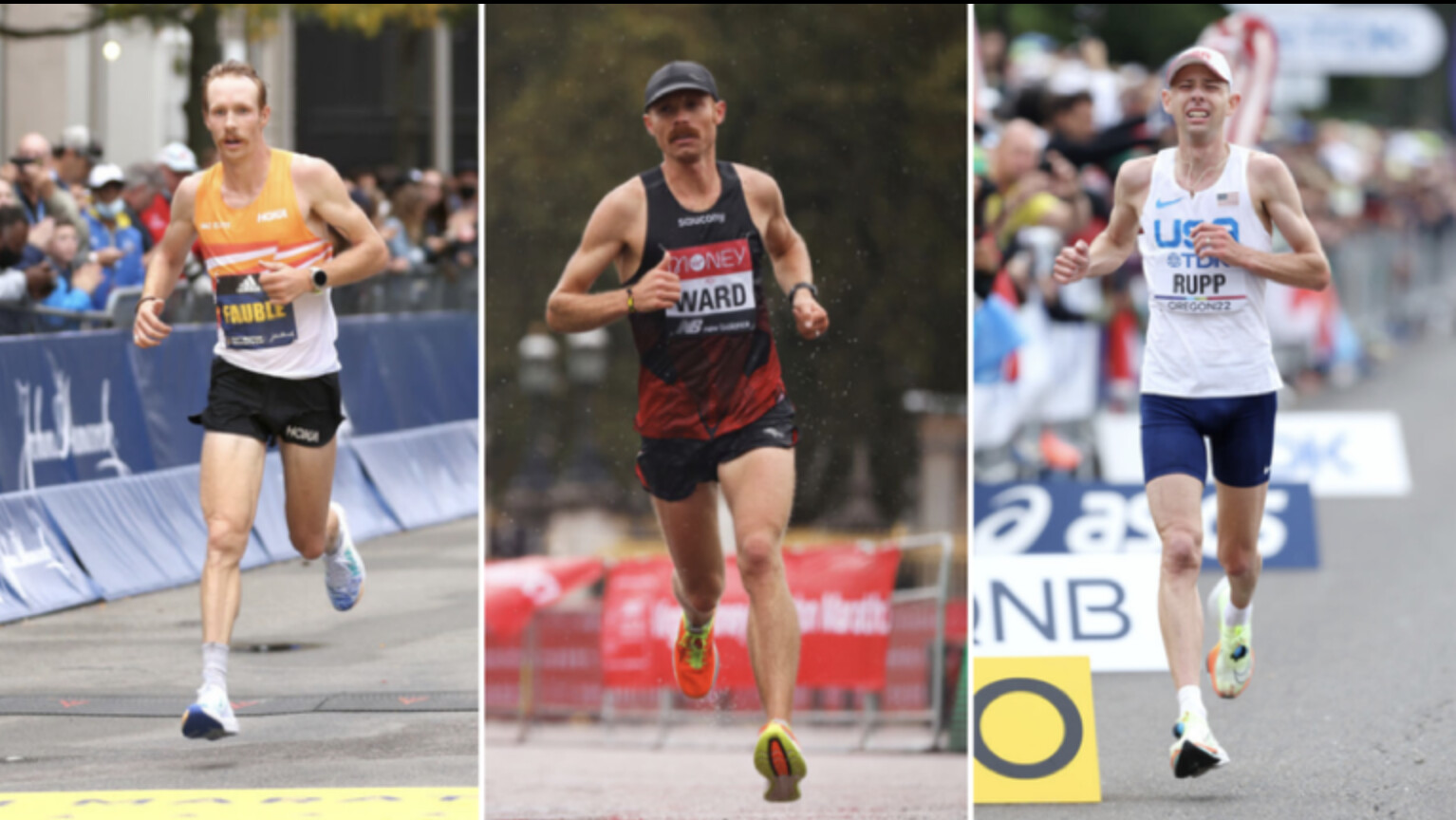
More specifically, the men’s and women’s 2024 U.S. Olympic Trials Marathon races—scheduled for February 3 in Orlando, Florida—are just four months away. And that means the top U.S. runners hoping to represent their country at next summer’s Olympics are about to begin preparing for the all-or-nothing qualifying race that decides which six runners will represent Team USA next summer on the streets of Paris.
Although several top American runners are racing the Chicago Marathon on October 8, even they have their eyes on a much bigger prize next February.
“There’s nothing in my mind that compares with being an Olympian and being in the Olympic Games,” says 26-year-old Utah-based Nike pro Conner Mantz, who returns to Chicago after finishing seventh last year in 2:08:16 in his debut at the distance. “So putting that first has been the plan for a long time. We’re just putting that first and we’re working backwards through the season with other races.”
Registration will open for the U.S. Olympic Trials Marathon in early November for runners who have surpassed the qualifying times in the marathon (2:18:00 for men, 2:37:00 for women) or half marathon (1:03:00 for men, 1:12:00 for women). The qualifying window extends through December 3—the race date of the last-chance California International Marathon, which for decades has been one of the most popular Olympic Trials qualifying races.
In 2020, a record 708 runners—465 women and 243 men—qualified for the U.S. Olympic Trials Marathon in Atlanta just before the onset of the Covid-19 pandemic. But USA Track & Field lowered the women’s qualifying standard by eight minutes from the more attainable 2:45:00 plateau, which means there will most likely be a much smaller women’s field this year.
But even so, amid the handful of runners who have a legitimate shot at making the Olympic team, there will also be dozens of dreamers, wannabes, and just-happy-to-be-there elite amateurs who have worked hard, put in the miles, and earned the chance to be on the start line of the deepest and most competitive U.S. distance-running races that only happen once every four years.
The men’s and women’s races will run simultaneously with the men beginning at 12:10 P.M. EST. and the women starting 10 minutes later. Runners have complained that a high noon start means they will be forced to race in hot, humid conditions. Over the past decade, the average temperature on February 3 in Orlando has been 69.6 degrees Fahrenheit at noon, rising to 73.3 at 4 PM. But actual temperatures have varied drastically, from 81 degrees Fahrenheit at 2 P.M. last year to 56 at the same time the year before. USATF officials have responded by saying that the start times are to accommodate live coverage on NBC and to match the expected conditions in Paris.
Here’s an update and overview of what’s next, who the top contenders are, the course, and what to expect in the next four months.
The 26.2-mile U.S. Olympic Trials course runs through downtown Orlando and consists of one 2.2-mile loop and three eight-mile loops. The marathon course will run through several neighborhoods, main streets, and business districts in Orlando, including Central Business District, City District, South Eola, Lake Eola Heights Historic District, Lake Cherokee Historic District, Lake Davis Greenwood, Lake Como, North Quarter, Lawsona/Fern Creek, SoDo District, and the Thornton Park neighborhood. It will then head east to and around The Milk District neighborhood and Main Street. (Notably, the course will come close to Disney World, which is about 15 miles to the southwest.)
Unlike the Olympic Marathon course in Paris, which will challenge runners with significant hills in the middle, the Orlando course is mostly flat. Each loop has a few minor variations in pitch, but only 38 feet separate the high and low points on the course. Ultimately, though, it’s a spectator-friendly route with chances for family, friends, and fans of runners to see the action several times.
The top women—based on personal best times and recent race results—are Emily Sisson, Emma Bates, Keira D’Amato, Betsy Saina, and Lindsay Flanagan. But the U.S. Olympic Trials races almost always produce surprises with a few great runners having off days and a few good runners having exceptional days, so there is reason to expect the unexpected.
Sisson lowered the American record to 2:18:29 last year when she finished second in the Chicago Marathon. She’s running Chicago again on October 8 along with Bates, who has said she’s hoping to break the American record. In January, Sisson, 31, chopped her own American record in the half marathon in Houston with a 1:06:52 effort, and most recently won the U.S. 20K Championships (1:06:09) on September 4 in New Haven, Connecticut. Bates, also 31, hasn’t raced at all since her sterling fifth-place effort at the Boston Marathon in April, when she slashed her personal best to 2:22:10.
While Chicago will be another good place to test themselves, both have unfinished business after Bates was seventh at the 2020 Trials and Sisson dropped out near the 21-mile mark.
The same goes for Flanagan, 32, who has been one of America’s best and most consistent marathoners for the past five years. She placed 12th at the trials in 2020. She had a breakthrough win (2:24:43) at the Gold Coast Marathon in 2022 followed by a strong, eighth-place finish (2:26:08) at the Tokyo Marathon earlier this year. In August, she ran perhaps the best race of her career, when she finished ninth (2:27:47) at the world championships in Budapest amid hot, humid conditions.
The 38-year-old D’Amato, meanwhile, just capped off another strong season with a 17th-place showing (2:31:35) at the World Athletics Championships in Budapest, a year after finishing eighth in the world championships and setting an American record 2:19:12 at the 2022 Houston Marathon. She was 15th at the Trials in 2020 in 2:34:24, just two years into her competitive return to the sport after having two kids and starting a career in real estate in her early 20s.
“It’s such a huge goal of mine to become an Olympian,” says D’Amato, who lowered Sisson’s U.S. record in the half marathon with a 1:06:39 effort at the Gold Coast Half Marathon on July 1 in Australia. “It’s really hard for me to put words into this because my whole life, wearing a Team USA jersey has been like a huge dream. And when I left the sport (temporarily), I felt like I said goodbye to that dream and I kind of mourned the loss of being able to represent my country. I feel like it’s the greatest honor in our sport to be able to wear our flag and race as hard as possible.”
Saina, a 35-year-old Kenya-born runner who ran collegiately for Iowa State University, became a U.S. citizen in late 2021. She placed fifth in the 10,000-meters at the 2016 Olympics in Rio de Janeiro while competing for Kenya. She’s spent the past several years splitting time between Kenya and Nashville, Tennessee, where she gave birth to a son, Kalya, in December 2021.
She’s returned with a strong fourth-place 1:11:40 result at the Tokyo Half Marathon last October and a fifth-place 2:21:40 showing at the Tokyo Marathon in February. In May, Saina won the U.S. 25K Championships in Michigan. Two weeks ago she broke the tape at the Blackmores Sydney Marathon in Australia in 2:26:47.
Other top contenders include but are not limited to Tokyo Olympics bronze medalist Molly Seidel (who’s personal best is 2:24:42), 2022 U.S. Olympic Trials champion Aliphine Tuliamuk (2:24:37, 11th in Boston this year), Susanna Sullivan (2:24:27 personal best, 10th in London this year), two-time Olympian and 2018 Boston Marathon winner Des Linden (2:22:38), and Sara Hall (2:20:32, fifth at last year’s world championships), plus Kellyn Taylor (2:24:29), Nell Rojas (2:24:51), Sarah Sellers (2:25:43), Lauren Paquette (2:25:56), Dakotah Lindwurm (2:25:01), Annie Frisbie (2:26:18), Sara Vaughn (2:26:23), Tristin Van Ord (2:27:07), and Jacqueline Gaughan (2:27:08).
The list of potential men’s top contenders isn’t as clear-cut, partially because there are so many sub-2:11 runners and several fast runners who are relatively new to the marathon. But all that suggests a wide-open men’s race where more than a dozen runners are legitimately in the mix for the three Olympic team spots. That said, the top runners on paper, based on both time and consistent results over the past few years, are Scott Fauble, Jared Ward, Galen Rupp, Conner Mantz, Leonard Korir, Matt McDonald, and C.J. Albertson.
The 31-year-old Fauble, who was 12th in the Olympic Trials in 2020 and owns a 2:08:52 personal best, has finished seventh in the Boston Marathon three times since 2019 and also finished seventh in the New York City Marathon in 2018. Ward is a 2016 U.S. Olympian and has three top-10 finishes at the New York City Marathon and a 2:09:25 personal best from Boston in 2019. He’s 35, but he just ran a 2:11:44 (27th place) at the Berlin Marathon in late September.
Rupp, who won the past two U.S. Olympic Trials Marathons and earned the bronze medal in the marathon at the 2016 Olympics, is nearing the end of his competitive career. He boasts a 2:06:07 personal best and has run under 2:10 more than any American in history, including when he finished 19th at the world championships (2:09:36) last year. He’s a bit of a wild card because he’s 37 and hasn’t raced since his lackluster 17th-place showing at the NYC Half Marathon (1:04:57) in March, but the world will get a glimpse of his fitness in Chicago this weekend.
Mantz followed up his solid debut in Chicago last fall with a good Boston Marathon in April (11th, 2:10:25) and solid racing on the track and roads all year, including his recent runner-up showings at the Beach to Beacon 10K in August and the U.S. 20K Championships in September.
McDonald, 30, who was 10th in the 2020 U.S. Olympic Trials, has quietly become one of the best marathoners in the U.S. while serving as a postdoctoral associate in chemical engineering at M.I.T. His last three races have clocked in at 2:10:35 (Boston 2022), 2:09:49 (Chicago 2022), and 2:10:17 (Boston 2023). The only other runner who rivals that kind of consistency is Albertson, 29, who has run 2:10:23 (Boston 2022), 2:10:52 (Grandma’s Marathon 2022) and 2:10:33 (Boston 2022) in his past three marathons and was seventh in the U.S. Olympic Trials in 2020 (2:11:49).
The men’s race will likely have a mix of veteran runners and newcomers who have run in the 2:09 to 2:10 range since 2022. Among those are 2020 U.S. Olympic Trials runner-up Jake Riley (2:10:02 personal best), who is returning from double Achilles surgery; 2016 U.S. 10,000-meter Olympian Leonard Korir (2:07:56), who ran a 2:09:31 in Paris in April; Zach Panning (2:09:28, plus 13th at the world championships in August); U.S. 25K record-holder Parker Stinson (2:10.53); Futsum Zienasellassie who won the California International Marathon last December in his debut (2:11:01) and then doubled-back with a new personal best (2:09:40) at the Rotterdam Marathon in the spring; Abbabiya Simbassa, who ran a solid debut marathon (2:10:34) in Prague this spring; and Eritrean-born Daniel Mesfun (2:10:06) and Ethiopian-born Teshome Mekonen (2:10:16), who both received U.S. citizenship within the past year; and solid veterans Nico Montanez (2:09:55), Elkanah Kibet (2:10:43) and Nathan Martin (2:10:45).
Additional sub-2:12 runners who will be in the mix are Andrew Colley (2:11:26), Clayton Young (2:11:51), Brendan Gregg (2:11:21), Josh Izewski (2:11:26), Jacob Thompson (2:11:40), and Kevin Salvano (2:11:49).
As noted previously, some top contenders will season their marathon legs one final time at the flat and fast Chicago Marathon on October 8. An even more select few will opt for the New York City Marathon on November 5. After that, nearly every American with eyes set on an Olympic berth will double-down over the holiday season for that one final, critical marathon training cycle. Expect to see a wide range in heat training, from sauna protocols, to warm weather training trips, to simply an adjusted race day strategy.
Of course, with the Olympic Marathon falling under the purview of World Athletics, qualifying for the U.S. Olympic Marathon team is not quite as simple as finishing on the podium in Orlando. Any American looking to have a breakout performance and finish within the top three at the U.S. Olympic Trials Marathon will need to have run under 2:11:30 for men and 2:29:30 for women within the qualification window, which spans from November 1, 2022 to April 30, 2024. Given the possibility of oppressively hot and humid temps on February 3 in Orlando, they’re best bet is to secure that time now.
These qualification standards are in accordance with a new rule from World Athletics, which allows national Olympic committees to circumvent the typical Olympic qualification process of running under 2:08:10 for men and 2:26:50 for women, or being ranked among the top 65 in the world on a filtered list of the top three athletes from each country. The catch, though, is that three other runners from said country must have met one of these two standards. If this sounds complicated, that’s because it is.
For the hundreds of elite amateurs on the cusp of hitting that coveted U.S. Olympic Trials qualifying time, it’s do or die mode. While a few made the cut at the Berlin Marathon on September 24, one of those opportunities was lost when the Twin Cities Marathon was canceled on October 1 because of excessive heat. Temperatures are shaping up for an auspicious day in Chicago this weekend, and many more will give it a final shot at the Columbus Marathon on October 15; Indianapolis Monumental Marathon on October 28; the Philadelphia Marathon on November 18; and the last-call California International Marathon, a point-to-point race ending in Sacramento, California on December 3.
Ultimately, only six American runners will likely continue on along the road to Paris and earn the chance to run in the men’s and women’s Olympic marathons next August 10-11. For a handful of younger runners, the 2024 U.S. Olympic Trials will be a motivation to reinvigorate the Olympic dream or keep a faint hope alive, at least until the 2028 U.S. Olympic Trials that will determine the team for the Los Angeles Olympics. But for many runners, the journey to the U.S. Olympic Trials in Orlando will lead to the end of their competitive road running careers as new jobs, young families, a switch to trail running, and other priorities will take hold.
“I think the Olympic Trials is an important part of American distance running,” says Kurt Roeser, 36, a two-time U.S. Olympic Trials Marathon qualifier who works full-time as a physical therapist in Boulder, Colorado. “I’m glad that they kept it the same event for this cycle and hopefully for future cycles because it gives people like me a reason to keep training. I’m older now and I’m not going to actually have a chance to make an Olympic team, but for somebody that’s fresh out out of college and maybe they just barely squeak in under the qualifying time, maybe that’s the catalyst they need to start training more seriously through the next cycle. And maybe four years from now, they are a serious factor for making the team.”
by Outside Online
Login to leave a comment
Should I Tune In or Tune Out During My Run?
How to think on challenging runs depends on your intention. Here’s what the research says. Runners often develop a type of tunnel vision. Case in point: In 2006, Scott Douglas went to India to cover a five-day stage race in the Himalayan foothills. The day before the race, he and the eventual winner went for a run from the race headquarters in Mirik. There was a small lake with a perimeter path nearby that was perfect for the occasion—they could easily settle into a rhythm and crank out several 10-minute loops until it was time to call it a day.
When Douglas got back to the lodge, his wife, Stacey, asked, “Wasn’t that amazing!?” It turned out that Stacey had also gone to the lake for a stroll and had come upon a couple dozen women celebrating the Diwali festival. Clad in bright yellow and red wraps and head scarves, they squatted next to the lakeside trail with big bowls of bananas, melons, other fruits, vegetables, and flowers as offerings.
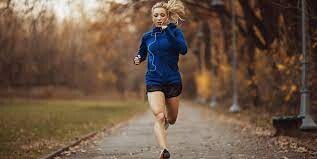
Douglas can relay these details, thanks to a photo Stacey took, but he hadn’t noticed them—not on the first loop around the lake, or the third, or any other one. Without making a conscious decision to do so, he’d been entirely focused on his run.There are far loftier examples of intense concentration in running history. In the 2004 Olympic marathon, Deena Kastor didn’t realize she was in the bronze-medal position until the final 100 meters. During the 2018 Boston Marathon, which was run in an apocalyptic rain-and-wind storm, eventual winners Des Linden and Yuki Kawauchi didn’t know they had taken the lead until well after doing so.
Some of this seeming tunnel vision stems from runners focusing on what are known as “process goals,” such as running the next mile as well as they’re able, rather than thinking about outcomes, such as winning an Olympic medal. Also, during hard efforts, seasoned runners are good at suppressing strong emotions like anxiety that can lead to focusing on distracting and irrelevant information.
Let’s look in more detail at how successful runners hone their ability to concentrate on the task at hand to the point of seeming oblivious to much of what’s going on around them.
Throughout his career as one of the world’s leading exercise psychology researchers, Noel Brick asked athletes ranging from beginners to Olympians a simple question: What were you thinking? The answers provide fascinating insight into what athletes think about during peak performances. Brick has lost count of the number of times he has sat captivated as athletes recounted how they struggled with, and overcame, the challenges they experienced when racing and training.
One of the most common themes that emerges is that running fast is incredibly hard, both physically and mentally. This is true for novices and Olympians alike. But what separates the best from the rest is their ability to extract exceptional performances through a process of deep focus and concentration. These athletes know what they need to focus on and, more importantly, have the mental tools in their kit to do it. Take this example from an elite cross-country runner whom Brick interviewed following one of her toughest races:
I went through two and four [kilometers] on the back of the leading group. And going into the third lap, I started falling off the leading group. And it was everything for me to stay attached [because I was distracted by a spectator] and suddenly I just lost a second’s concentration, and it was like, “Don’t lose concentration, concentrate now,” and I covered the move. I finished second in that race. But if I had fallen off that group, I wouldn’t have gotten back on and that would have been it.
Triumph in a footrace—however that’s defined for you—often requires winning the battle that takes place within your mind. For athletes like the one quoted above, this means resisting a range of different distractions. Some are external, like a spectator who momentarily captures the athlete’s attention. Others are internal thoughts, like worry or the sometimes-irresistible urge to stop or quit.
So how do they do it? What tools do athletes use to remain focused and on task? Just as important, how do they get their concentration back if they lose it?
The first answers to these questions began to emerge in the late 1970s. Across a series of studies, psychologist William Morgan and exercise physiologist Michael Pollock interviewed recreational and elite distance runners to discover what they focused on during training and competition.
Their findings revealed that national- and world-class marathoners adopted what Morgan and Pollock called an “associative strategy.” As described in a classic study, these runners “paid very close attention to bodily input such as feelings and sensations arising in their feet, calves, and thighs, as well as their respiration; . . . [their] pace was largely governed by ‘reading their bodies’; . . . [and] they constantly reminded or told themselves to ‘relax,’ ‘stay loose,’ and so forth.”
The details of what elite runners paid attention to when racing surprised the research team. Up until this point, the consensus was that it was best to tune out from bodily sensations. After all, if running fast was hard, then surely paying less attention to physical feelings would be better than focusing in on them.
But Morgan and Pollock soon realized that these elite marathoners were different from the recreational athletes they usually interviewed. Not only were their physical performances miles apart, literally and figuratively; so, too, were their mental strategies.
What non-elites preferred to do was adopt a range of distraction strategies. In other words, they preferred to tune out from the physical sensations they experienced. They did so by thinking about past memories, imagining listening to music (remember, this was pre-earbuds), singing, or, for one runner, visualizing stepping on the faces of two coworkers she detested.
With these two separate ways of thinking, we’ve now got a dilemma. What is the best way for athletes to think? Which type of strategy helps most: tuning out or tuning in?
These were the questions that grabbed Brick’s attention when he began to plot his PhD research in 2012. By 2014, he had published a review of 112 studies on the attentional strategies of endurance athletes—that is, what they focus their attention on. In it, he sifted through the evidence supporting distraction, on the one hand, and association, on the other.
Before we can answer this question, we first need to consider a much simpler one. What do we mean by best? If better—that is, faster—performance is the goal, then athletes probably want to avoid being distracted at all costs.
But that’s not the full picture. In Brick’s review, he noted that distractions, such as daydreaming, conversing with a training partner, or focusing on scenic views, can help to reduce boredom and make a run more enjoyable. In other words, when the outcomes are less about going faster and more about feeling better, then distraction is best. A recreational runner whom Brick interviewed put it like this:
My mind just wanders whenever I’m out. It’s as if it’s a freedom. It’s my time and it’s me thinking about my things, you know? You’re not sitting in the house or you’re not working or you’re not thinking about things. You’re just thinking about your things.
What these insights tell us is that distraction has its place in our mental tool kit. It can be a useful way to manage our emotions, especially when we need to switch off, chill out, and get away from it all.
One great way to do this is to spend time in natural spaces, such as the countryside or a park. Studies have found increased brain activity relating to calmness and meditative thoughts when people exercise in a park versus crowded urban settings. In the latter, brain activity linked with negative thoughts such as rumination has been found to be much higher than when people exercise in more natural settings.
But this is only half the story. Although positive distractions like nature have benefits, performing to the best of their capabilities is a more immediate priority for athletes during competition. In these instances, tuning in might be a better approach than tuning out.
When Brick dug deeper into the results of more than 35 years of research, he soon discovered that the effects of association strategies on performance were much more nuanced than previously thought. When athletes focused excessively on bodily sensations like breathing or muscle soreness, their performance suffered. Doing so made tasks feel harder. In contrast, strategies like keeping relaxed or optimizing movement technique improved performance, sometimes without increasing how hard a task felt.
An intricate study involving 60 experienced runners helps to explain some of these nuances. These individuals completed three 5-kilometer runs, once on a laboratory treadmill, once on a 200-meter indoor running track, and once on a flat outdoor road route. Half the runners—the association group—were asked to tune in every 30 seconds during each run to the heart rate and pace readings on their watch. The other half were assigned to a distraction strategy of listening to music through headphones. All participants were instructed to run as fast as they would like during each 5-kilometer run. The research team also recorded how good or bad runners felt, how hard each run was perceived to be, and their final 5-kilometer times.
In line with research on other distraction strategies, the findings revealed that those who listened to music felt calmer and more tranquil during their runs. Runners also felt better when running outdoors than they did in the indoor settings.In terms of performance, however, runners in the heart rate and pace-monitoring group ran faster than the music group by an average of 1 minute and 47 seconds. In a sport in which participants obsess over every second of a race time, that’s a significant difference!
Just as interesting were the effects of location on performance. Although 5-kilometer times were slower on the treadmill than both the track (by 3 minutes and 46 seconds) and the road route (by 4 minutes and 2 seconds), running on the treadmill felt hardest. This was most likely because of the treadmill environment, devoid of mental stimulation or distraction. In this setting, athletes probably focused on little else other than how tough their run felt. In contrast, running the outdoor road route, the fastest location of all, felt easiest.
Periodically monitoring bodily sensations and tuning into pace allows for better performance. In contrast, tuning out might result in a slower pace but can help make an activity feel more pleasant. In effect, our focus matters, and when best performance is a priority, then having the mental skill to focus effectively is essential.
Login to leave a comment
Des Linden and Kara Goucher Demystify Drug Testing Requirements in Pro Running
Specifically, how the “whereabouts” policy really works.
Drug testing in professional running has made plenty of headlines over the years—even as the process itself has remained somewhat mysterious to spectators of the sport. But on this week’s episode of Nobody Asked Us, Des Linden and Kara Goucher pulled back the curtain and offered a rare peek inside anti-doping practices, including the scoop on “whereabouts” policy.

Linden began the conversation by recalling that she’d been drug tested in the early morning of the previous weekend. “We could demystify the process because I think… people don’t hear too much about it except as just a quick tweet or [via] somebody who hasn’t really been through it or has a story that is uninformed because they heard it from someone who heard it from someone,” said Linden. “We’ve been through this a number of times so I thought we could talk about the process a little bit.”
According to the World Anti-Doping Agency, athletes who are part of the Registered Testing Pool (those operating at the highest level of their sport) must submit to regular drug testing year-round. To accommodate the testing, these athletes must offer up their home address (or address for their overnight accommodations), competition schedules, and any alternative locations where they may be found. They also must provide a 60-minute time slot for each day where they will be available for testing.
“You have one hour where they will not inform you that you’re there or that they’re looking for you. They will just knock and you have to be where you put your whereabouts for the day,” said Linden. The WADA stipulates that those who miss the test may be liable for, you guessed it, a ‘missed test,’ and infraction that can lead to bans.
Linden shared that her hour window is first thing in the morning when she knows she’ll have to pee. “Five to six a.m. is my hour window usually at home, and then they wake me up and I have to go to the bathroom right away,” she said. Goucher shared that she also opted for a morning slot for drug testing until her son was born. “After I had Colt, I did change it to the afternoon—just because there were many a time where he got woken up… so I did change it to like two because I was always home by then and just napping or playing with him,” she shared.
The WADA also reserves the right to test athletes directly post-race. Goucher and Linden said this process often involves waiting around after you’ve crossed the finish line until you have to go. In this case, drug testers follow athletes into the bathroom. The process can be awkward—especially if it’s a numbers one and two kind of situation. “They’re like tuck your shirt up into your bra and pull your pants down, I’m going to watch,” explained Kara. “At first it feels weird, but later in life you’re like ‘Pfff, whatever. Here we go.’”
Once, athletes had to fax their schedules to the governing bodies for drug testing, according to Linden and Goucher. But nowadays, the test scheduling happens via an app. “If you’re in a certain pool… then you have to put in one hour where you’re going to be and they can’t inform you,” said Linden. “And then you have the rest of the day where you sort of give them an idea of where you are and how they can get a hold of you.” They may choose to test runners outside their chosen hour; however, they must work with the athlete to find a location that works, per the two runners’ conversation. Goucher said that a drug tester once met her at a preschool orientation, for example.
“[The calendar] is really easy to change if your life changes. It’s not like you’re married to the calendar or anything,” said Goucher. “You have up to one minute prior,” agreed Linden, adding that she updated it last minute on a recent vacation. “It’s not impossible, and for me, what I get frustrated with is that this should be a priority in your life,” said Goucher. “This is what you do for a living. You’re trying to achieve all your goals.”
Linden and Goucher also shared personal stories about their testing experience, so make sure to check out the full episode.
by Runner’s World
Login to leave a comment
Stacy Ndiwa debuts World Marathon Majors in Chicago
Seven months after winning the Los Angeles Marathon, Stacy Ndiwa will be returning to American soil in search of her first World Marathon Majors title at the Chicago Marathon on October 8.
The former Commonwealth Games 10,000m silver medalist, will be up against top marathon runners across the world led by the defending champion Ruth Chepngetich.
Chepngetich has a personal best of 2:14:18. Another Kenyan Joyciline Jepkosgei (2:17:43) will also be competing.
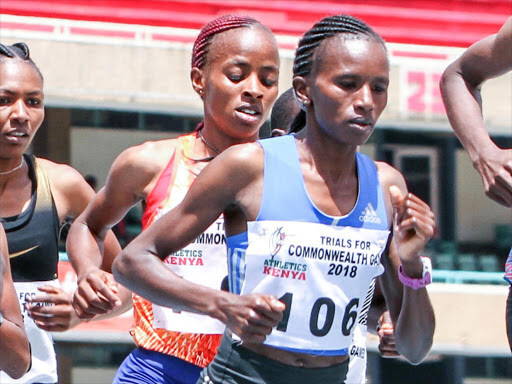
Ndiwa, who is now training in Iten, said her preparations are in top gear and she is hoping to return good results.
“This will be my first time to compete in World Marathon Majors and I am ready for the world,” she said.
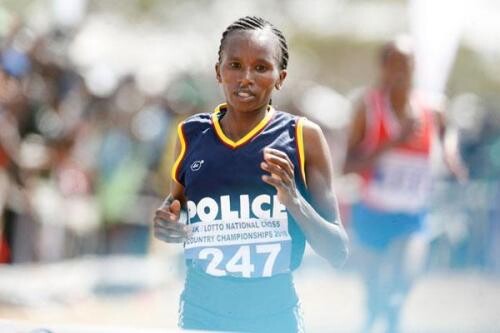
The former Africa 10,000m champion made her debut in the 42km race last year, placing fourth at the Istanbul Marathon in 2:31.53 and went ahead to win the Los Angeles Marathon in 2:31.00 in March last year.
In May, Ndiwa won the second edition of the Iten 15km Road race and went ahead to finish second at the Boston 10km in 31:25 behind champion Hellen Obiri (32:21) with Sheila Chepkirui (31:27) third in an all-podium Kenyan sweep.
“This time, I have had a very busy schedule and I need to crown it all by posting better results in Chicago,” said the athlete who compete for the National Police Service.
“This will be an avenue for me to enter into the big marathon big league. Competing at the World Majors Marathon is not a walk in the park and I really need to work hard,” she said.
Others in the race will be the Ethiopian quartet of Genzebe Dibaba (2:18:05), Tigist Girma (2:18:52), Sutume Kebede (2:18:12) and Ababel Yesheneh (2:20:51).
Emily Sisson (2:18:29) will lead the home team consisting of Des Linden (2:22:38), Emma Bates (2:23:18), Aliphine Tuliamuk (2:24:37), Nell Rojas (2:24:51), Molly Seidel (2:24:42), Dakotah Lindwurm (2:25:01), Sara Vaughn (2:26:23), Gabriella Rooker ( 2:27:38), Diane Nukuri (2:27:50) and Maggie Montoya (2:28:07).
Reigning London Marathon champion Sifan Hassan (2:18:33) from the Netherlands will also be in the contest.
by Emmanuel Sabuni
Login to leave a comment
Bank of America Chicago
Running the Bank of America Chicago Marathon is the pinnacle of achievement for elite athletes and everyday runners alike. On race day, runners from all 50 states and more than 100 countries will set out to accomplish a personal dream by reaching the finish line in Grant Park. The Bank of America Chicago Marathon is known for its flat and...
more...2024 U.S. Olympic Marathon Trials to start at 12 noon
USA Track and Field (USATF) caused a stir on social media on Tuesday after announcing in an email addressed to athletes that the 2024 Olympic Marathon Trials would begin at 12 noon, due to broadcasting rights. The marathon trials are scheduled to take place in Orlando, Fla., on Feb. 3, 2024.
The late start time has already caused worry for many coaches and athletes due to the potential for high temperatures. In February, the average temperatures in Orlando range from a low of 13 C to a high of 23 C, but in recent years, it has not been uncommon for temperatures to soar to 30 C–which would be detrimental to performance and potentially unsafe for elite marathoners.
According to Runners World, the email sent to athletes mentions that the Local Organizing Committee (LOC) in Orlando has extensive experience in planning and executing high-level events and has contingencies in place for any potential challenges, including weather-related ones.
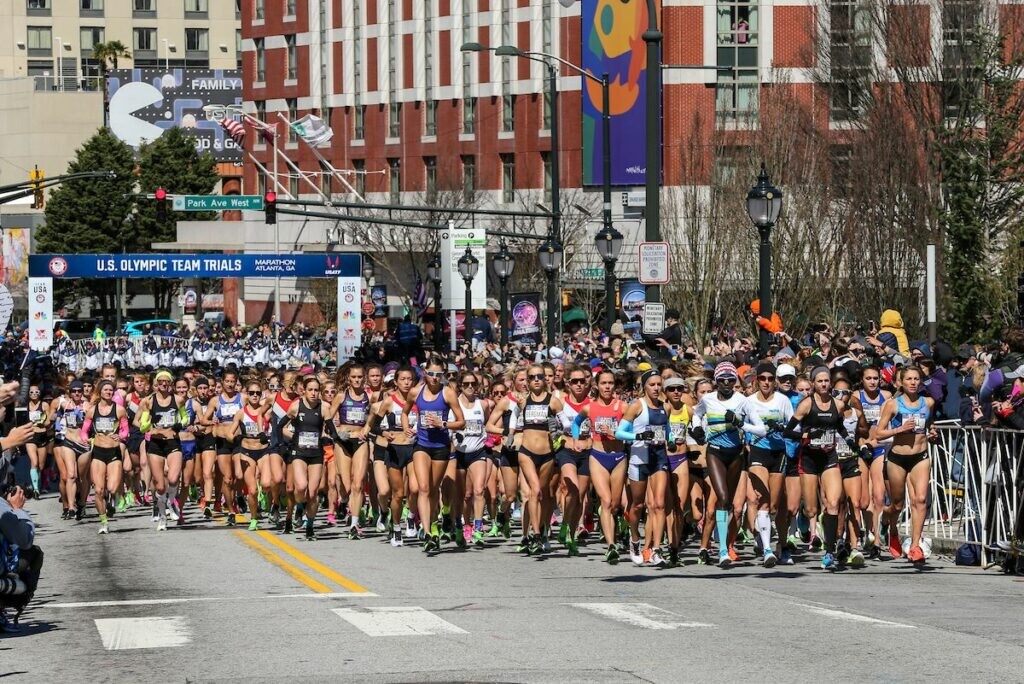
The decision to set the start time at noon is believed to be influenced by executives at NBC, the network broadcasting the event. The email highlights that the race will be televised live on NBC for three hours, providing coverage of the men’s and women’s runners and races.
The Paris Olympic marathon, which is also expected to be warm, is scheduled for Aug. 10–the middle of summer in the French capital. But both the men’s and women’s races are set to begin at 8 a.m. local time. This disparity in start times has added to the concerns raised by the late start for the U.S. Trials in Orlando.
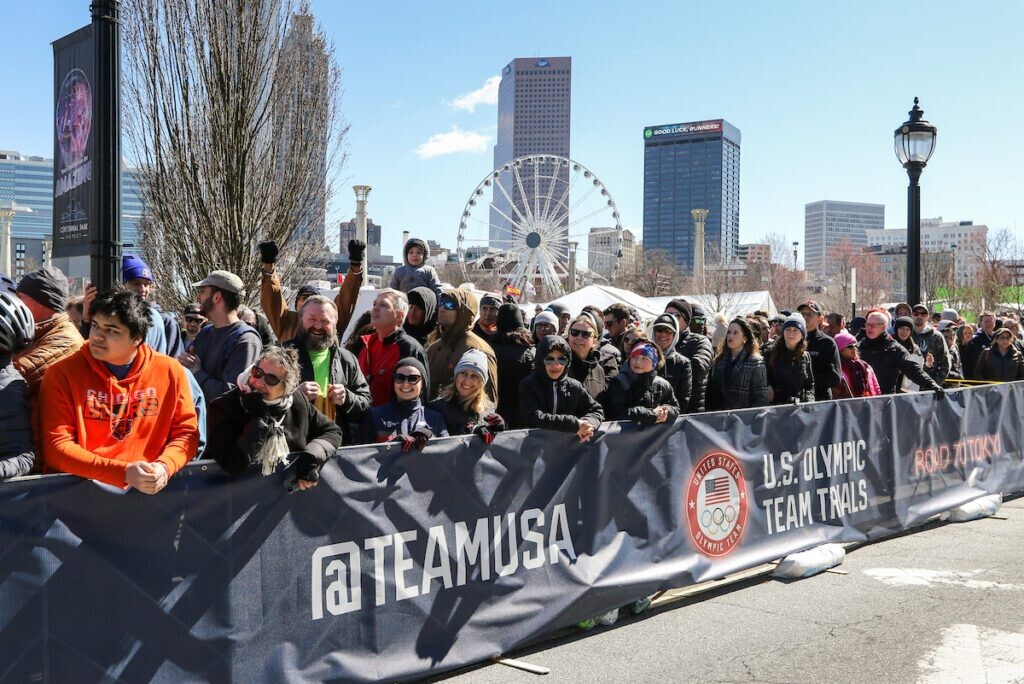
The U.S. Olympic Marathon Trials serves as the selection race for the men’s and women’s Olympic teams that will compete at the Summer Games in Paris. The top three finishers who also meet World Athletics’ qualifying standards will go on to represent Team USA at the Olympics.
Some athletes and coaches have expressed concern, while others seem to be looking forward to it. 2018 Boston Marathon champion Des Linden tweeted: “Warmer temps should slightly minimize the pace of super shoes and reward smarter racing. Count me in!”
U.S. ultrarunner Camille Herron said “We are seven months out from the Olympic Marathon Trials. No excuses to not be prepared for a potentially hot day in Florida.”
Renowned U.S. marathon coach Kevin Hanson, who currently has 13 athletes (eight women and five men) qualified for the U.S. Trials, stressed his disappointment that athletes’ health is not taken into consideration. “There is no amount of TV coverage that is worth the health of our athletes,” Hanson tweeted.
This isn’t the first time USATF has faced criticism for its handling of extreme heat during events. At the 2021 Olympic Track and Field Trials in Eugene, Ore., where temperatures were forecasted to reach highs of 40 C, several events were rescheduled for safety. However, the heptathlon was not, and athlete Taliyah Brooks collapsed on the track due to the heat and later filed a lawsuit against USATF.
In the 2016 Olympic Marathon Trials in Los Angeles, which began at 9 a.m., some athletes struggled on an unusually warm day, with temperatures reaching the mid-70s Fahrenheit. Shalane Flanagan, who placed third in 2:29:19, collapsed at the finish line, and the organizing committee and USATF later faced criticism for not providing adequate water on the course for the athletes.
by Marley Dickinson
Login to leave a comment
2028 US Olympic Trials Marathon
Most countries around the world use a selection committee to choose their Olympic Team Members, but not the USA. Prior to 1968, a series of races were used to select the USA Olympic Marathon team, but beginning in 1968 the format was changed to a single race on a single day with the top three finishers selected to be part...
more...The Boston Marathon has never been easy, that’s why Des Linden keeps coming back
The conditions were wretched when Des Linden first toed the starting line in Hopkinton in 2007. An amped-up nor’easter brought rain, a 30-mile-per-hour headwind, and soggy, chilly misery for the runners.
“I was one probably of the few people who felt, that was one of the best things I’ve ever done,” Linden recalled years later. “I’m going to do this forever. I loved it.”
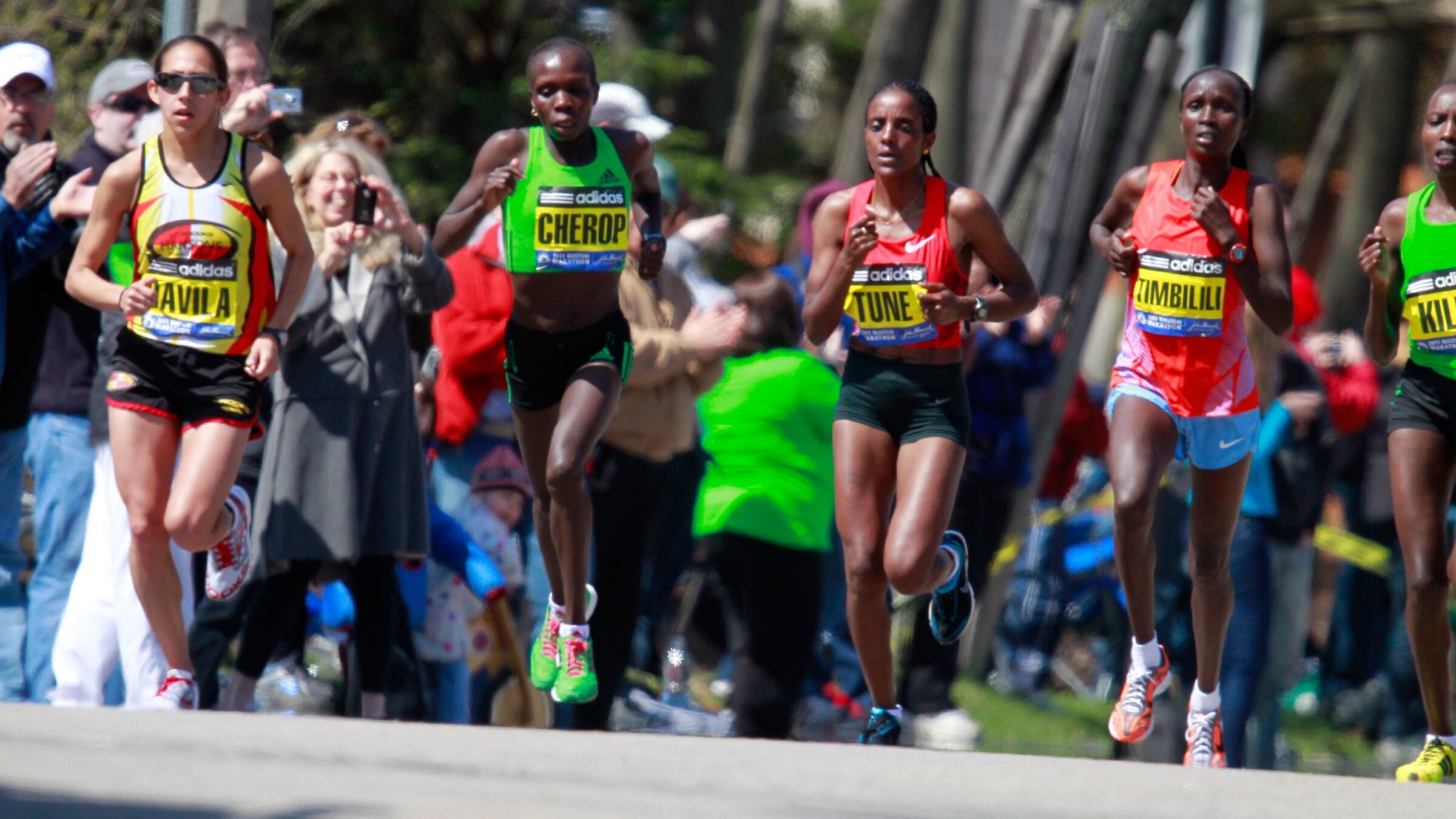
On Patriots Day Linden will lace up for her 10th Boston Marathon. During the 16 years since her first appearance here, which also was her 26-mile debut, Linden has won the laurel wreath (”storybook stuff”), lost by two seconds on a sprint down Boylston Street, finished fourth twice, and 17th in a “total suffer-fest.”
Every trip here is a homecoming, said the California native and Michigan resident who has a dog named Boston. What brings Linden back is the race’s incomparable history, the feeling of family that she gets from the Boston Athletic Association, the exuberant crowds along the course, “the greatest finish line in our sport,” and the unchanging challenge from the lumpy layout and mercurial weather.
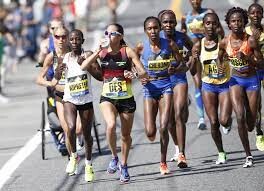
“We’re in this era where we want the marathon to be easier than ever before,” said Linden. “We want it faster, we want it flatter, we want wind blockers, we want shoes that bounce you forward, we want better gels. You name it, we’re trying to dumb this thing down. Boston is already not going to manage well with a lot of those things, then you throw in the weather conditions. I’ll take the tough one every time.”
Boston never has been easy. For decades there were no mile markers or water on the course. There was no prize money until 1986 — the reward was a medal and a bowl of canned beef stew. The starter fired the gun and sent you off. If you ended up sitting on the curb, cramped and blistered, the “meat wagon” picked you up.
Linden loves the purity of a race that always has the same course but rarely the same conditions. “A lot of people get surprised by it,” she said. “Well, it’s Boston in the spring.”
Boston is the recurring theme of “Choosing To Run,” Linden’s new memoir written with Bonnie D. Ford. Chapters recounting her 2018 triumph, the first by an American woman here in 33 years, are interspersed with a narrative of her evolution from a track racer to a marathoner.
Linden, who’ll officially become a master when she turns 40 in late July, is in the final stretch of her elite career, which she hopes will include a third Olympic team next year in Paris. Maybe she’ll run a fall marathon to prep for the Orlando trials in February. “Or maybe I just spin the legs and do some fast stuff,” she mused.
At this stage of her career it’s all about being smart and patient. “It’s a challenge letting go of your prime years, but there’s also a reality to it,” Linden said. “It’s recalibrating and readjusting what the goal is. I’m learning.”
One significant concession is her weekly mileage, which Linden has reduced from 120 to between 95 and 105. “I have this mentality that I’m being lazy if I’m not doing 115-120-mile weeks,” she said. “ ‘You’re not being lazy,’ my coach [Walt Drenth] said. ‘It’s just not practical.’ ”
At her age, maintaining speed and power are more important than training volume. “So work on what’s going away,” Linden said, “and rely on what you’ve done in the past as far as the volume goes.”
The lighter workload paid dividends at the recent New York City Half Marathon, where she placed fifth in 1 hour, 12 minutes, 21 seconds, the top American finisher. “It was the first time in a while that I got good momentum from a race,” she said.
Up against a stacked Boston field that includes Gotytom Gebreslase and Lonah Salpeter, the world gold and bronze medalists; two-time Boston victor Edna Kiplagat; returning medalists Ababel Yeshaneh and Mary Ngugi; two-time Olympic track medalist Hellen Obiri; and Amane Beriso, a sub-2:15er, Linden is realistic about her chances.
“Top 10 is a great goal at times and particularly this year — the field’s incredible,” said Linden, who was 13th last year. “Just mixing it up and racing is fun for me.”
At this point in her career Linden has little left to chase. She was seventh in the 2016 Olympics, cracked the top 10 at the 2009 world championships, and has posted top-five efforts in New York, Chicago, and Berlin.
But her crowning achievement came in Boston five years ago when she slogged her way through punishing wind and chilly rain to win a race that she didn’t plan on finishing. “It’s not gonna be my day,” Linden told Shalane Flanagan after 6 miles. “I think I’m going to drop out soon.”
But she pushed on, thinking more about survival than victory. “I was running in fear for most of the race,” Linden said. “Even halfway through Boylston I was thinking, if someone comes up on my shoulder I know I can respond.”
She won by more than four minutes, to her astonishment. Linden’s jacket and headband were added to the BAA memorabilia collection, whose artifacts date from the 19th century. “The same museum I had once viewed as an unattainable sanctum,” she wrote in “Choosing To Run.”
Gloria Ratti, the BAA’s longtime first lady, had given Linden the tour before her 2007 debut. That, she said, “made me fall in love with 26.2.”
“Everyone talks about Boston’s special history,” Linden said. “You can feel it on the course, you can see it on race day. But to have that collection of the very first medals and the shoes that were being worn … ”
by John Powers
Login to leave a comment
Boston Marathon
Among the nation’s oldest athletic clubs, the B.A.A. was established in 1887, and, in 1896, more than half of the U.S. Olympic Team at the first modern games was composed of B.A.A. club members. The Olympic Games provided the inspiration for the first Boston Marathon, which culminated the B.A.A. Games on April 19, 1897. John J. McDermott emerged from a...
more...3-time champion Molly Huddle is ready for 2023 NYC Half
The United Airlines NYC Half came into Molly Huddle‘s life in 2014 and it was one of the key turning points in the now 38 year-old’s storied career. Never a fan of cross country or indoor track, the 28-time national champion liked to de-camp from her Providence, R.I., home in the winter to put in her pre-season base miles in the warmth of Arizona. The NYC Half, with its mid-March date, was the perfect race to close-out her winter training block. Her long-time coach Ray Treacy, whom Huddle affectionately calls “The Guru,” gave his blessing and she signed-up for the 2014 race. It would be her first-ever half-marathon.
With the temperature right at the freezing mark, Huddle ran the entire race with the leaders. She went through the first 10-K in 33:01, and the second in a much faster 32:21 as the pace heated up. Although too far behind eventual winner Sally Kipyego (1:08:31), she finished a close third to eventual 2014 Boston Marathon champion Buzunesh Deba, 1:08:59 to 1:09:04.
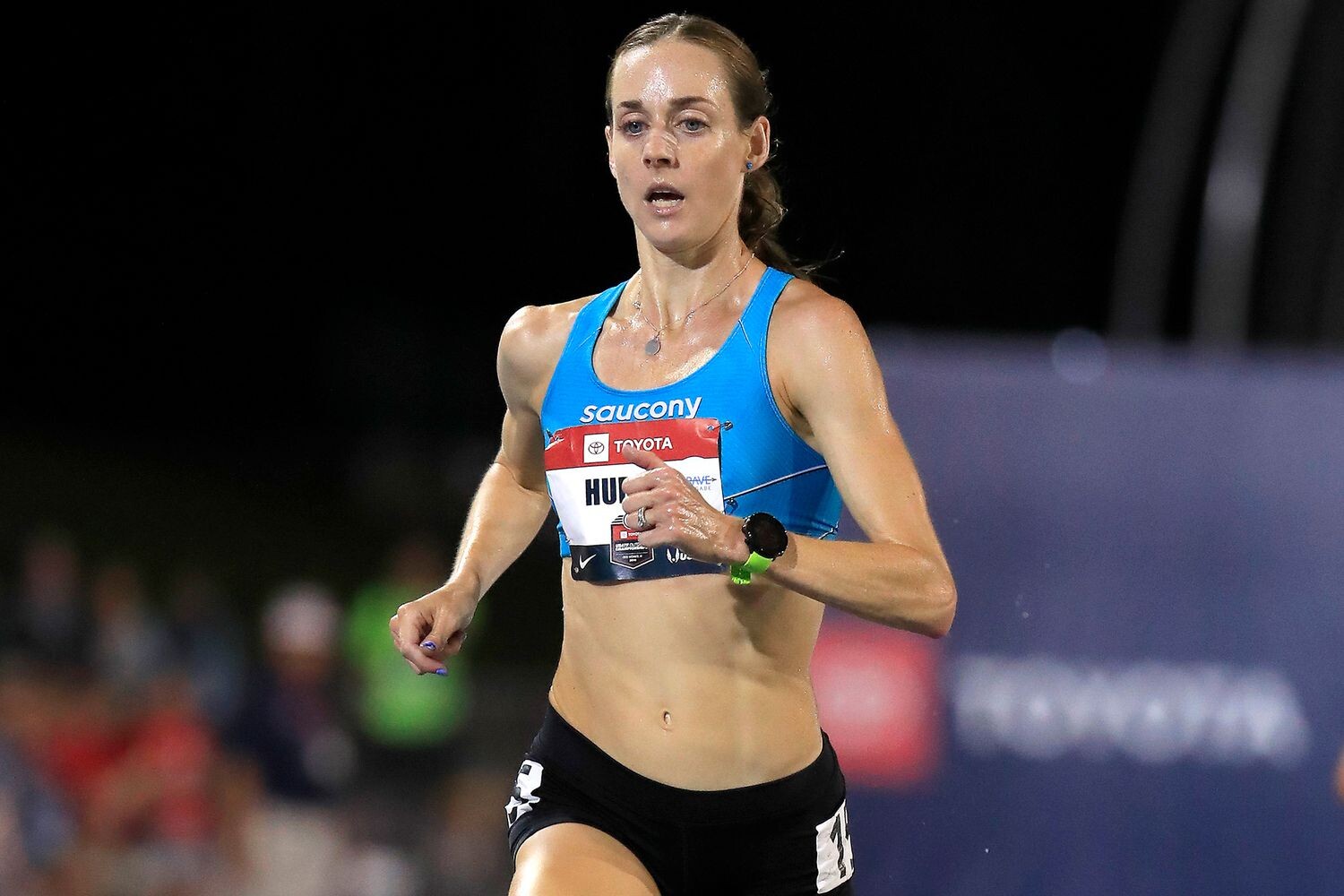
“It was good,” a shivering Huddle told Race Results Weekly’s Chris Lotsbom that day. “I think I stuck my nose in it in the beginning and the distance got to me a little in the end, but it was definitely a fun experience. I definitely want to do another one.”
The rest, shall we say, is history.
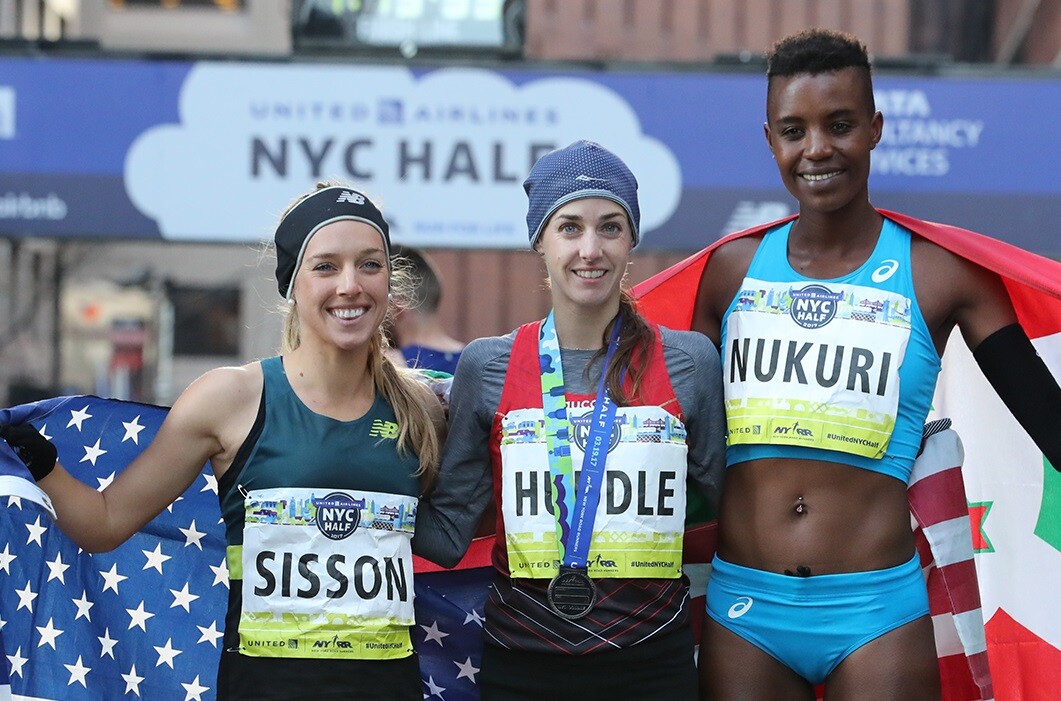
For the next three years Huddle would repeat the same winter program, training in Arizona then coming to New York for the NYC Half before starting her track season*. She won in 2015, 2016 and 2017, and in the 2016 race she set the still-standing USATF record for an all-women’s race: 1:07:41. During her reign at the top, she beat top athletes like Sally Kipyego, Caroline Rotich, Des Linden, Aliphine Tuliamuk, Buzunesh Deba, Emily Sisson, Edna Kiplagat, Diane Nukuri, and Amy Cragg. She also lowered her 10,000m personal best from 31:28.66 to an American record 30:13.17, a mark which would stand for more than six years until Alicia Monson broke it just 11 days ago at The Ten in San Juan Capistrano, Calif. She also collected $65,500 in prize money from the event which is organized by New York Road Runners.
Huddle returns to the NYC Half for the first time in six years on Sunday, but she’s no longer focused on winning. The race comes about 11 months after she, and husband Kurt Benninger, had their first child, daughter Josephine Valerie Benninger, whom Huddle calls “JoJo.” Speaking to Race Results Weekly at a press event yesterday in Times Square, she reflected on her history with the race.
“The last time I did the Half was 2017, I think, so a long time,” said Huddle, wearing a warm hat and jacket on a cold, late-winter day. “Great to be back. Great to be running again seriously after having the baby in April. So, this will be a good test.”
Huddle has been slowly building her fitness since giving birth to Josephine. She first returned to racing last August at the low-key Bobby Doyle Summer Classic 5 Mile in Narragansett, R.I., –very close to her home– clocking 29:17. Since then she has run in a series of local races in New England –a pair of 10-K’s, a 5-K cross country, and a half-marathon– to regain her racing chops.
Then, in January of this year, she ran the super-competitive Aramco Houston Half-Marathon and clocked a very good 1:10:01, a mark which qualified her for the 2024 USA Olympic Team Trials Marathon. She went back to training, and the NYC Half should give her a good reading on her progress.
“I’m really happy to fit it back in the schedule,” said Huddle, who is still breastfeeding and will be pumping while she is in New York (Kurt is with Josephine at home in Providence). “I feel like I’m having more baseline workouts now, less of a building phase and more back to normal. I’ve had a few little injury problems last month, but I’m coming around.”
A well-traveled athlete, Huddle is sticking close to home for her races now. New York is a three and one-half hour drive (or train ride) from Providence.
“I love racing within a drive distance of home now because of the baby, and this is an easier race for me to get to,” Huddle said. “So that’s good.”
Sunday’s race has yet another purpose for Huddle. It will kick-off her training for her next marathon, a distance that she hasn’t taken on since the 2020 Olympic Trials in Atlanta when she was forced to drop out with an injury. Although she wasn’t at liberty to reveal which race it will be, she said that the timing of the NYC Half was perfect, just like it always was.
“So, I’m really focusing more on the roads now; it fits in really well with that plan now,” Huddle said. She continued: “This is going to kick off a marathon build-up for me, so this will be a really good race to fit into my marathon block as we go forward the next two months.”
by David Monti
Login to leave a comment
United Airlines NYC Half-Marathon
The United Airlines NYC Half takes runners from around the city and the globe on a 13.1-mile tour of NYC. Led by a talent-packed roster of American and international elites, runners will stop traffic in the Big Apple this March! Runners will begin their journey on Prospect Park’s Center Drive before taking the race onto Brooklyn’s streets. For the third...
more...Eilish McColgan will tackle NYC Half on the road to London
In-form Brit is set to face Hellen Obiri, Molly Huddle, Senbere Teferi and Karoline Grøvdal in New York next week as Joshua Cheptegei and Jacob Kiplimo lead the men’s field
After breaking Paula Radcliffe’s long-standing British 10,000m record in California last weekend, Eilish McColgan’s next big race in the run-up to her marathon debut in London is the United Airlines NYC Half on March 19.
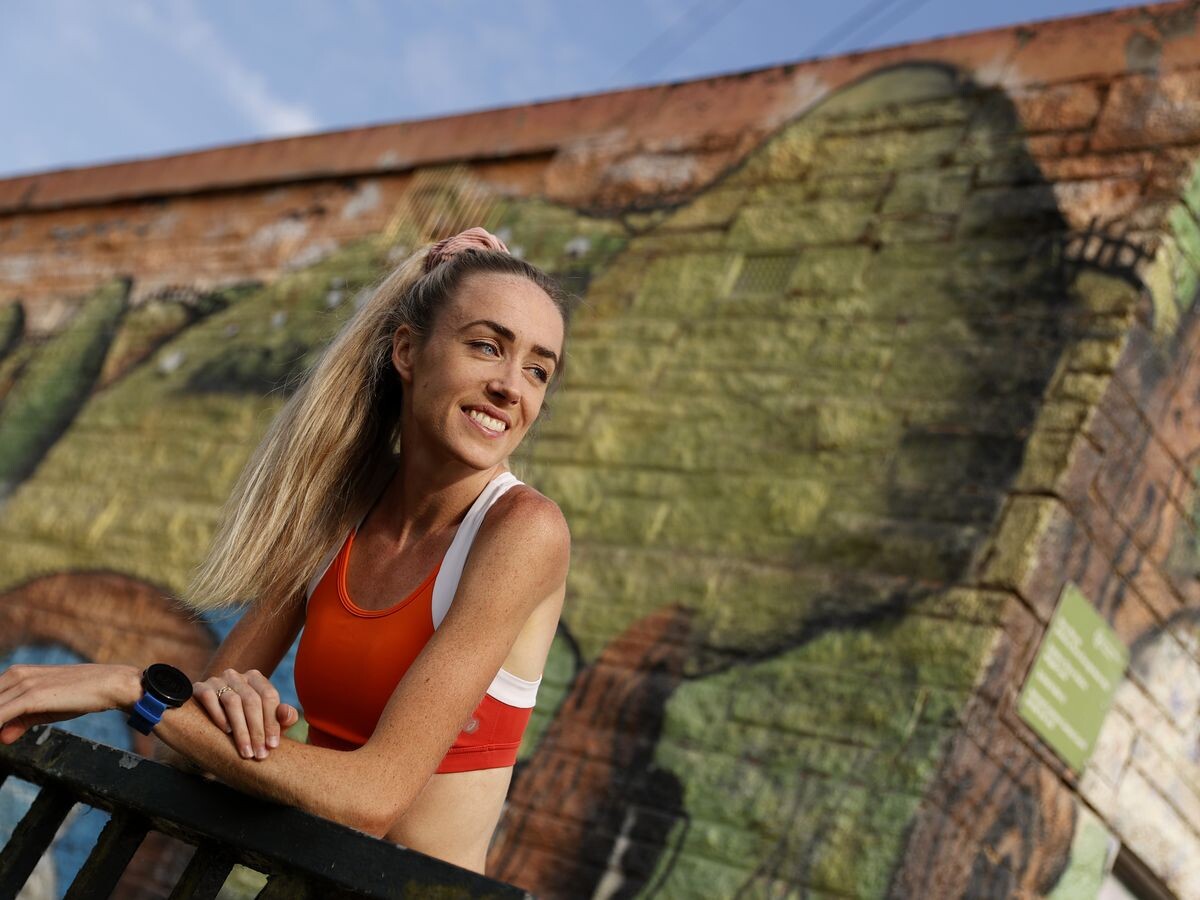
She will face Hellen Obiri, the former world cross-country champion and two-time Olympic medalist, plus three-time NYC Half winner Molly Huddle of the United States.
Senbere Teferi of Ethiopia, who holds the course record with 67:35, also runs, in addition to 2018 Boston Marathon champion Des Linden of the US and reigning European cross-country champion Karoline Bjerkeli-Grøvdal of Norway.
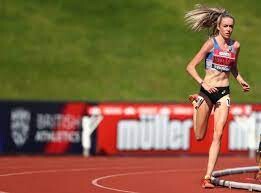
McColgan’s British record is 66:26 from last year’s RAK Half, but Obiri’s best is 64:22 from the same RAK Half, Teferi ran 65:32 in Valencia in 2019 and Huddle has a best of 67:41 from 2016.
Obiri and McColgan clashed at the Great North Run in 2021 with the Kenyan breaking away in the latter stages to win by six seconds. But the Briton has been in terrific form lately with a 30:00.86 national record for 10,000m at the Sound Running Ten event in California.
Her marathon debut in London is set to take place on April 23 too.
McColgan is among a number of Brits set to race in New York City too with others being Jess Warner-Judd, Chris Thompson and Andy Butchart. Warner-Judd ran a half-marathon PB of 67:19 in Houston in January and will be looking to revise those figures.
by Jason Henderson
Login to leave a comment
United Airlines NYC Half-Marathon
The United Airlines NYC Half takes runners from around the city and the globe on a 13.1-mile tour of NYC. Led by a talent-packed roster of American and international elites, runners will stop traffic in the Big Apple this March! Runners will begin their journey on Prospect Park’s Center Drive before taking the race onto Brooklyn’s streets. For the third...
more...Ethiopian runner breaks women-only world 50K record in South Africa
Ethiopia’s Emane Seifu Hayile broke the women-only 50K record at a race in South Africa on Sunday, running 3:00:29. Competing in the Nedbank Runified Breaking Barriers Ultramarathon in Gqeberha, a coastal South African city, Hayile shaved almost four full minutes off the previous women-only world record. She was less than a minute off American Des Linden‘s 50K women’s mixed-gender race world record of 2:59:54 from 2021.
Women-only races mean that there are no men in the field. Because of the potential benefit that female runners can receive while pacing off male athletes, World Athletics recognizes two types of records for road races, making it possible for Hayile’s 50K record to co-exist with the one belonging to Linden, which she ran alongside male pacers.
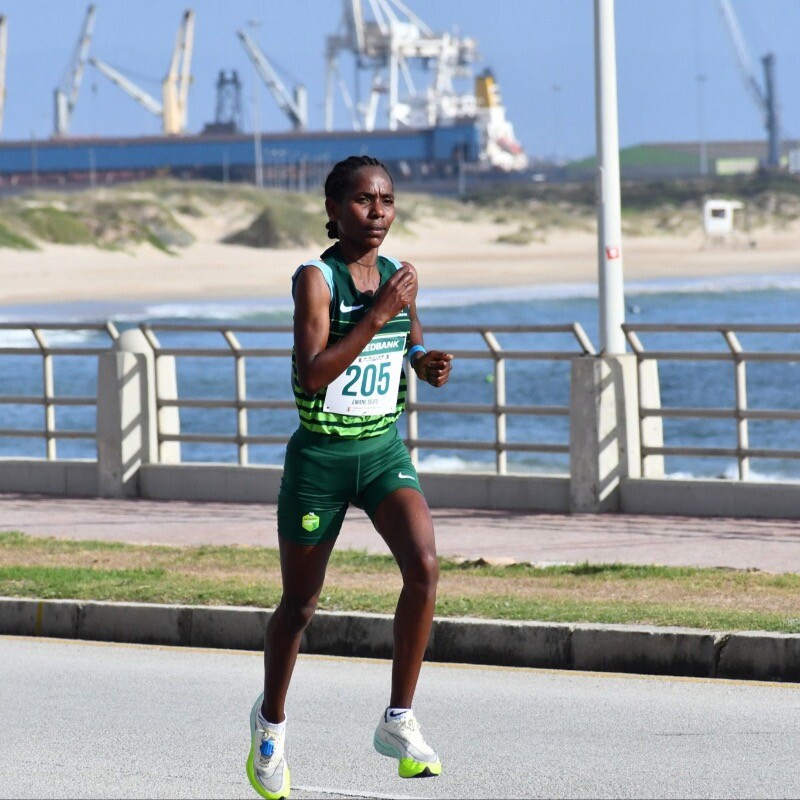
Despite running in a women-only race, Hayile came extremely close to claiming the outright 50K world record, finishing mere seconds behind Linden’s time. She ran with two fellow Ethiopians and a Swedish athlete in the opening stages of the race, passing through 10K in just over 36 minutes and 15K in 54. At around 20K, Hayile and her compatriots dropped the Swedish runner and carried on in a three-way battle. At the halfway mark, the trio clocked a split of 1:30:28, just shy of sub-three-hour pace.
Over the next 10K or so, Hayile dropped her two remaining challengers, and by the 40K checkpoint she was almost a minute ahead of second place. She clocked a 2:32 marathon and managed to accelerate as she neared the finish, crossing the line just north of three hours. Hayile won the race by six minutes and bettered the women-only record by four minutes.
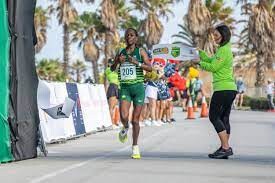
“I am lost for words and don’t know how to describe it,” Hayile told World Athletics after the race. “All in all, it was an exciting event. I’m very happy.”
In the men’s race, South Africa’s Tete Dijana ran a course record of 2:39:04. This result is the second-fastest 50K of all time, sitting just 20 seconds behind American CJ Albertson‘s world record of 2:38:44, which he ran in Oct. 2022.
by Ben Snider-McGrath
Login to leave a comment
New Mom and Elite Runner Molly Huddle is Ready to Take on the NYC Half
Molly Huddle admits making time for running is considerably more challenging since giving birth to a baby girl last April, but she’s excited to be back racing at a high level as a healthy and fit mother.
The 38-year-old two-time U.S. Olympian ran so well at the Houston Half Marathon on January 15, she’s optimistic about racing a late spring marathon. Next up, Huddle will be racing in the deep women’s elite field at the United Airlines NYC Half on March 19 for the first time since taking her third consecutive victory in the event in 2017.
Huddle began to gradually increase her training late last summer under the guidance of longtime coach Ray Treacy and ran a couple of moderately fast 10Ks and a half marathon last fall. But then she had a big breakthrough when she ran 1:10:01 in Houston. Even though that was well off the 1:07:25 PR she recorded while setting an American record in 2018, it was still an impressive effort.
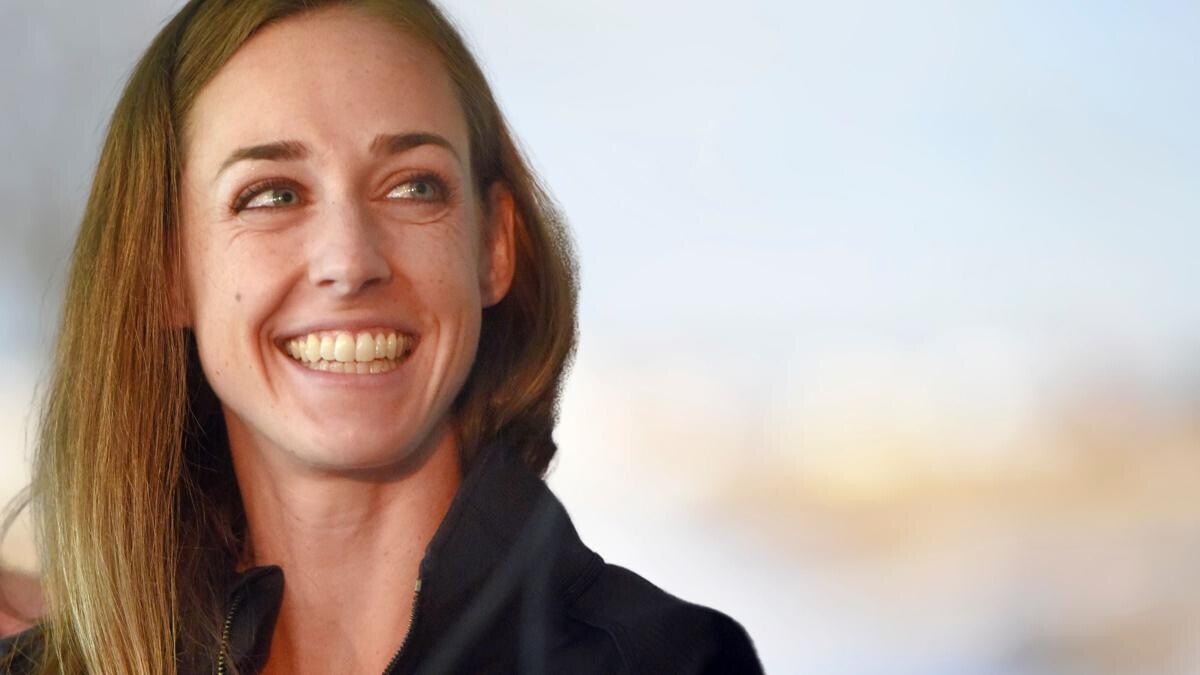
“I wasn’t sure if I’d get back to even doing that, so that was good,” Huddle said. “Sometimes it’s good to just start 100 percent over and slowly build back. I think that was the only way I was gonna do it. I haven’t really been tested at a level that would be like trying to PR or qualify for a U.S. team, so we’ll see how it goes. But I think there’s a lot out there. I mean, just because you’re not making the Olympic team, you can still do a lot in the sport.”
Huddle said she generally felt good while running about 40 miles a week through eight months of her pregnancy, but then backed off and did whatever she could manage in the final month before Josephine was born on April 26. After giving birth, Huddle took extra time to recover until she felt like she could run consistently, but she also consulted with a pelvic floor specialist to make sure she wouldn’t risk injury by incorporating too much training intensity too soon.
While she’s earnestly back to training at a high level, she admits she’s still managing the physical challenges of breastfeeding, as well as the new time constraints as she and her partner, Kurt Benninger, the head cross country coach and assistant track coach at Brown University, juggle their schedules to maintain their professional lives while prioritizing their efforts to care for their daughter.
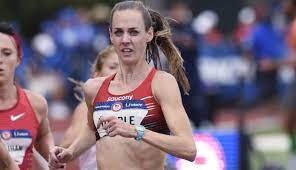
Huddle is grateful for the continued support from her longtime sponsor Saucony, as well as the increased honest public and social media conversations among women athletes becoming mothers. She says she’s taken cues, inspiration and advice from fellow elite-runner moms Aliphine Tuliamuk, Faith Kipygeon and Sara Vaughn, among others.
“It’s just a long timeline, but it’s been great to see other women do it,” Huddle says. “It takes some time and some, you know, intentional exercises and some pacing yourself, but then once you get the green light after, you know, a certain amount of months, I feel like you can do everything you were doing before.”
Huddle won the NYC Half in 2015, 2016, and 2017,with her winning time of 1:07:41 from 2016 setting an event record that stood until last year. She’ll line up against Ethiopia’s two-time Olympian Senbere Teferi, who last year broke Huddle’s event record while winning in 1:07:35. She is also a two-time world championships silver medalist and the 5K world-record holder (14:29) for a women-only race.
Other Notable Runners for the NYC Half
Two-time Olympic medalist and seven-time world championships medalist Hellen Obiri of Kenya, three-time Olympian and four-time European Championships medalist Eilish McColgan of Scotland, and two-time U.S. Olympian and 2018 Boston Marathon champion Des Linden will also toe the line in New York. Other top Americans include Dakotah Lindwurm, Erika Kemp, Maggie Montoya, Annie Frisbie and Jeralyn Poe.
Huddle hasn’t announced which marathon she’ll run in late April or early May. Her last effort at 26.2 miles was four years ago this spring, when, despite having had an off day in London, she finished 12th place in a new PR of 2:26:33. She was considered one of the favorites to finish in the top three at the 2020 U.S. Olympic Trials Marathon in Atlanta three years ago this week, but dropped out near mile 20, partially because she was still struggling with an Achilles injury.
by Brian Metzler, Melanie Mitchell
Login to leave a comment
United Airlines NYC Half-Marathon
The United Airlines NYC Half takes runners from around the city and the globe on a 13.1-mile tour of NYC. Led by a talent-packed roster of American and international elites, runners will stop traffic in the Big Apple this March! Runners will begin their journey on Prospect Park’s Center Drive before taking the race onto Brooklyn’s streets. For the third...
more...Joshua Cheptegei will battle Jacob Kiplimo and Galen Rupp at 2023 United Airlines NYC Half
The 2023 United Airlines NYC Half on Sunday, March 19 will feature professional athletes from 17 different countries, including 19 Olympians, 11 Paralympians, and seven past event champions, making it one of the most diverse fields in the race’s history.
The men’s open division will be headlined by Olympic champion Joshua Cheptegei, half-marathon world-record holder Jacob Kiplimo, and Olympic medalist Galen Rupp. Defending champion Senbere Teferi, Olympic and World Championships medalist Hellen Obiri, and three-time event champion Molly Huddle will lead the women’s open division. A trio of past TCS New York City Marathon and United Airlines NYC Half champions – Susannah Scaroni, Manuela Schär, and Daniel Romanchuk – will feature in the strongest wheelchair field in event history, which will also welcome Paralympic medalists Catherine Debrunner and Jetze Plat for the first time.
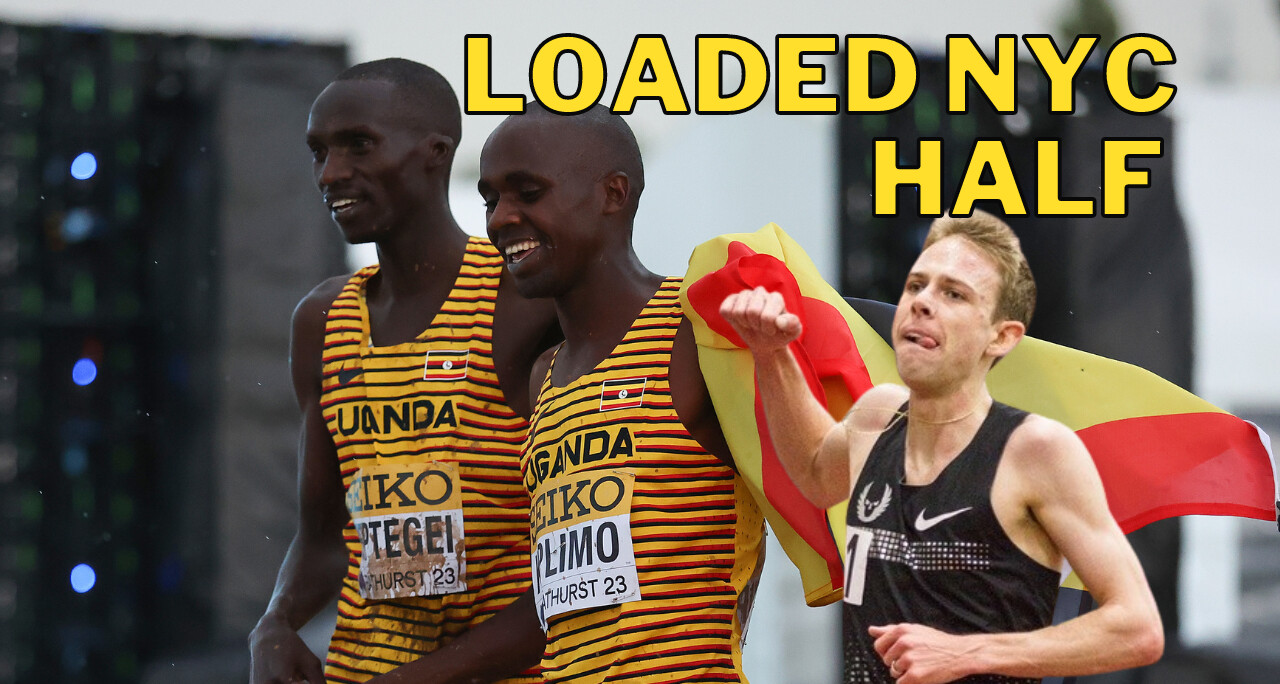
These athletes will lead more than 25,000 runners at the United Airlines NYC Half, which goes from Brooklyn to Manhattan, passing historic landmarks, diverse neighborhoods and sweeping views of the city along the way before ending in Central Park.
Men’s Open Division
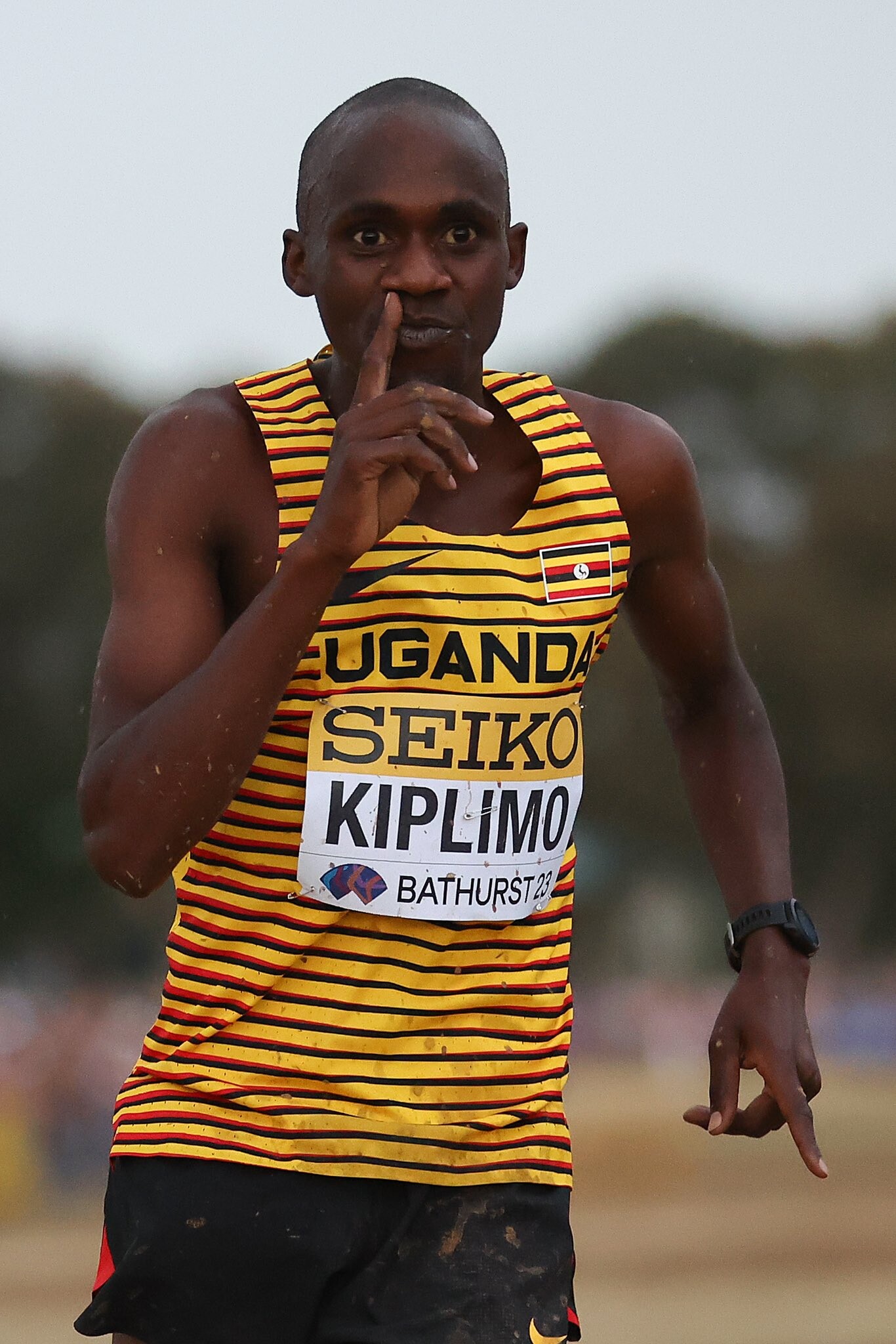
A pair of Ugandans, two-time Olympic and four-time World Championships medalist Cheptegei and Olympic medalist and two-time World Champion Kiplimo, will race head-to-head in the men’s open division as they take on an NYRR race for the first time. At 26 years old, Cheptegei is the reigning Olympic gold medalist in the 5,000 meters and world champion in the 10,000 meters, as well as the world-record holder in both the 5,000 and 10,000 meters. In November 2021, Kiplimo set the half marathon world record of 57:31 to win the Lisbon Half three months after taking a bronze medal at the Tokyo Olympics in the 10,000 meters. Then last year, the 22-year-old won bronze in the 10,000 meters at the World Championships. He won the gold medal, ahead of Cheptegei’s bronze, at the World Cross Country Championships in Bathurst, Australia, on February 18.
“I’m very excited for my first race in New York City, the United Airlines NYC Half,” said Cheptegei. “One of the primary goals for 2023 is to defend my 10,000-meter gold medal from the World Championships, and this half marathon is an important part of those preparations. The race seems like a great tour of New York City and it’s very cool that we get to run through Times Square. There’s so much running history in New York, and the city has seen so many champions battling it out in iconic races. I want to add to that history.”
“It will be my USA road racing debut at the United Airlines NYC Half next month, and I will try hard to become the first champion from Uganda,” Kiplimo said. “My gold medal from the World Cross Country Championships last weekend shows that everybody will need to be at their best to beat me. I have been told that the NYC Half course is difficult, and a record may not be possible, so I will focus on being the first across the finish line in Central Park.”
Challenging the Ugandan pair will be two-time U.S. Olympic medalist and Chicago Marathon champion Rupp, last year’s United Airlines NYC Half runner-up Edward Cheserek of Kenya, and past event champions Ben True of the United States and Belay Tilahun of Ethiopia.
Women’s Open DivisionTwo-time Olympian Huddle will be racing the United Airlines NYC Half for the first time since taking her third consecutive victory in the event in 2017. Huddle won the race in 2015, 2016, and 2017, with her winning time of 1:07:41 from 2016 setting an event record that stood until last year. The former American record-holder in the half marathon was fifth at the Houston Half Marathon in January, nine months after giving birth to her daughter.
“In a lot of ways, my three-straight wins at the United Airlines NYC Half really began my transition to full-time road racing. I’m excited to return to the race for the first time in six years, with a different mindset towards training and racing since the birth of my daughter,” Huddle said. “I’m inspired to teach her the value of hard work and resilience, and where better to do that than the city that has seen some of my career’s greatest successes?”
Huddle will line up against Ethiopia’s two-time Olympian Teferi, who last year broke Huddle’s event record, finishing in a time of 1:07:35 to win the race, and returned to Central Park three months later to win her first Mastercard New York Mini 10K. She is also a two-time World Championships silver medalist and the 5K world-record holder for a women-only race.
Two-time Olympic medalist and seven-time world championships medalist Obiriof Kenya, three-time Olympian and four-time European Championships medalist Eilish McColgan, andtwo-time U.S. Olympian and 2018 Boston Marathon champion Des Linden will also toe the line.
The event will be covered locally in the tri-state area by ABC New York, Channel 7 with live news cut-ins between 6:00 a.m. to 10:00 a.m. Additionally, the four professional fields will be covered by a livestream, distributed internationally from NYRR’s digital channels, abc7ny.com, and the ESPN App, beginning at 7:00 a.m. ET.
by NYRR Press Release
Login to leave a comment
United Airlines NYC Half-Marathon
The United Airlines NYC Half takes runners from around the city and the globe on a 13.1-mile tour of NYC. Led by a talent-packed roster of American and international elites, runners will stop traffic in the Big Apple this March! Runners will begin their journey on Prospect Park’s Center Drive before taking the race onto Brooklyn’s streets. For the third...
more...B.A.A. announces women’s elite field for 127th Boston Marathon
The Boston Athletics Association (B.A.A.) has revealed the women’s elite field for the 127th Boston Marathon on Monday, April 17. The field features 16 women who have run under 2:21, including the 2022 world marathon champion Gotytom Gebreslase and two-time Boston champion Edna Kiplagat.
Three other notable athletes who are making their Boston debuts are 2022 world championship bronze medallist Lonah Salpeter of Israel, 2022 NYC Marathon champion Sharon Lokedi, and 2022 Valencia Marathon champion (and third fastest woman of all-time 2:14:58) Amane Beriso of Ethiopia.
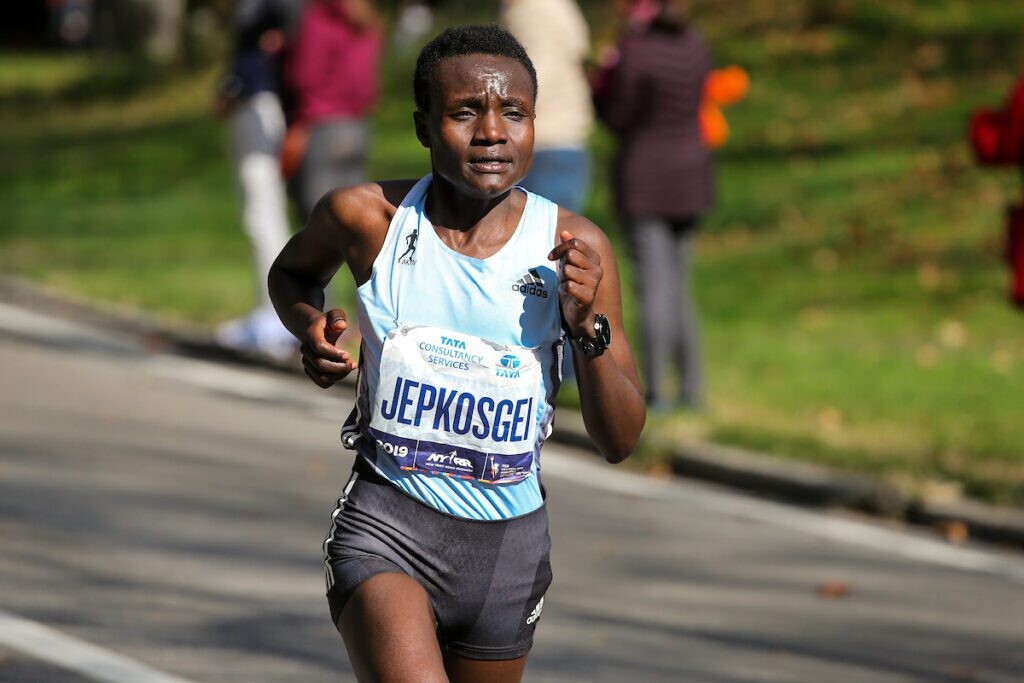
“I am very excited to run the B.A.A. Boston Marathon this year,” said Salpeter in a press release. “It has always been my dream to run on this course and to experience the incredible atmosphere.” Salpeter is coming off a second-place finish at the New York City Marathon in November and a bronze medal in the 10,000m at the European Championships in August.
Last year’s second and third-place finishers in Boston, Ababel Yeshaneh of Ethiopia and Mary Ngugi of Kenya, both return with hopes of claiming the top spot on the podium. Yeshaneh came within four seconds of victory, while Ngugi placed second and third in Boston in back-to-back years.
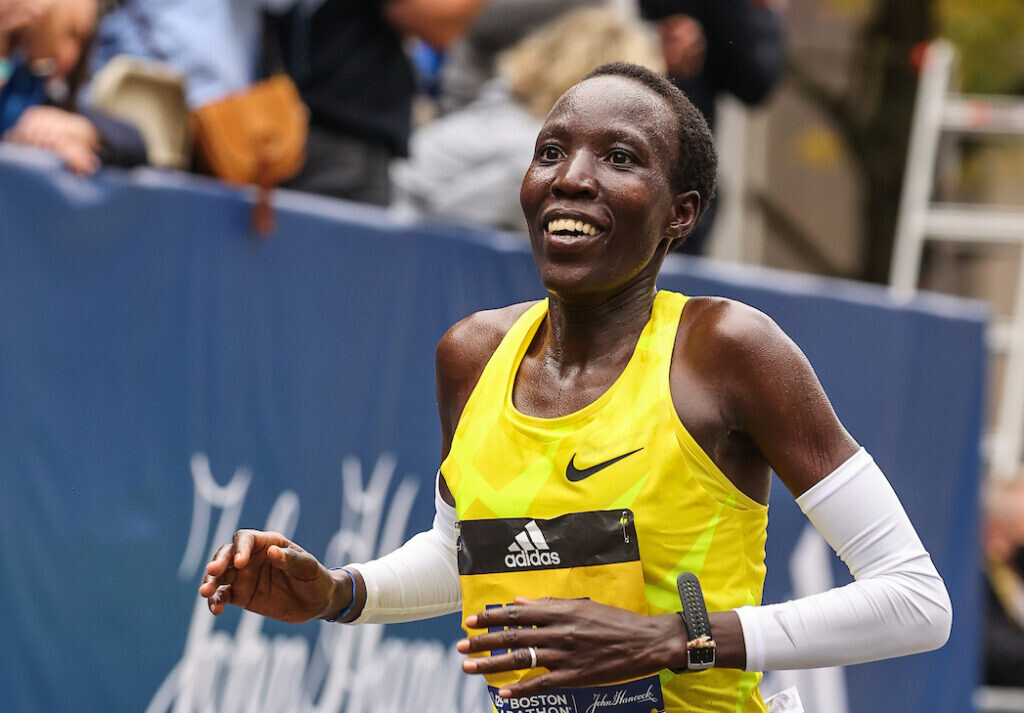
Also back is Joyciline Jepkosgei of Kenya, a past winner of the New York City and London Marathons. Jepkosgei fell shy of her expectations in her 2022 debut, with a seventh-place finish. She will look to better her time of 2:24:43 in 2023.
Among the American contingent are Sara Hall, Aliphine Tuliamuk, Emma Bates, Nell Rojas and 2018 champion Des Linden. Rojas has finished as the top American at Boston two years in a row (fifth in 2021 and 10th, 2:25:57 in April 2022), while Hall and Bates were fifth and seventh in the marathon at the 2022 World Athletics Championships in Eugene, Ore.
Canada will be well represented in Boston with three athletes on the elite list. Liza Howard, the top Canadian at the 2022 Chicago Marathon, will lead the way with the top qualifying mark of 2:35:29. Howard is an up-and-coming marathoner out of Toronto, who had a breakthrough 2022 with a 19th-place finish in Chicago and a 12th-place result at the Canadian 10K Championships in Ottawa last May.
Other Canadians on the elite list are 2004 1,500m Olympian and masters athlete Carmen Hussar, who has returned to racing recently, coming off a Boxing Day 10 Miler win in Hamilton, Ont., and Julie Lajeunesse of Montreal, with a personal best of 2:44:49 from the 2022 Chicago Marathon.
by Marley Dickinson
Login to leave a comment
Boston Marathon
Among the nation’s oldest athletic clubs, the B.A.A. was established in 1887, and, in 1896, more than half of the U.S. Olympic Team at the first modern games was composed of B.A.A. club members. The Olympic Games provided the inspiration for the first Boston Marathon, which culminated the B.A.A. Games on April 19, 1897. John J. McDermott emerged from a...
more...Emily Sisson, Conner Mantz, Jenny Simpson, Tirunesh Dibaba Headline 2023 Aramco Houston Half Marathon
The Houston Marathon Committee announced today the elite athletes who will chase the $10,000 first-place prize in this historically fast race. Elite fields for the Chevron Houston Marathon which is held simultaneously on Sunday, January 15, will be announced tomorrow.
American records in the half marathon and marathon were set in Houston last year, but by the end of 2022, Emily Sisson had broken them both. Houston will be Sisson’s first race since running 2:18:29 at the Bank of America Chicago Marathon in October, shattering Keira D’Amato’s record by 43 seconds. Earlier in the year, her 1:07:11 performance in Indianapolis shaved four seconds off Sara Hall’s half marathon record.
“I have really enjoyed racing here in the past and am excited to start my 2023 season in Houston,” said Sisson who finished fifth in the 2019 Aramco Houston Half Marathon. “I felt good coming out of Chicago and am really looking forward to another opportunity to race.”
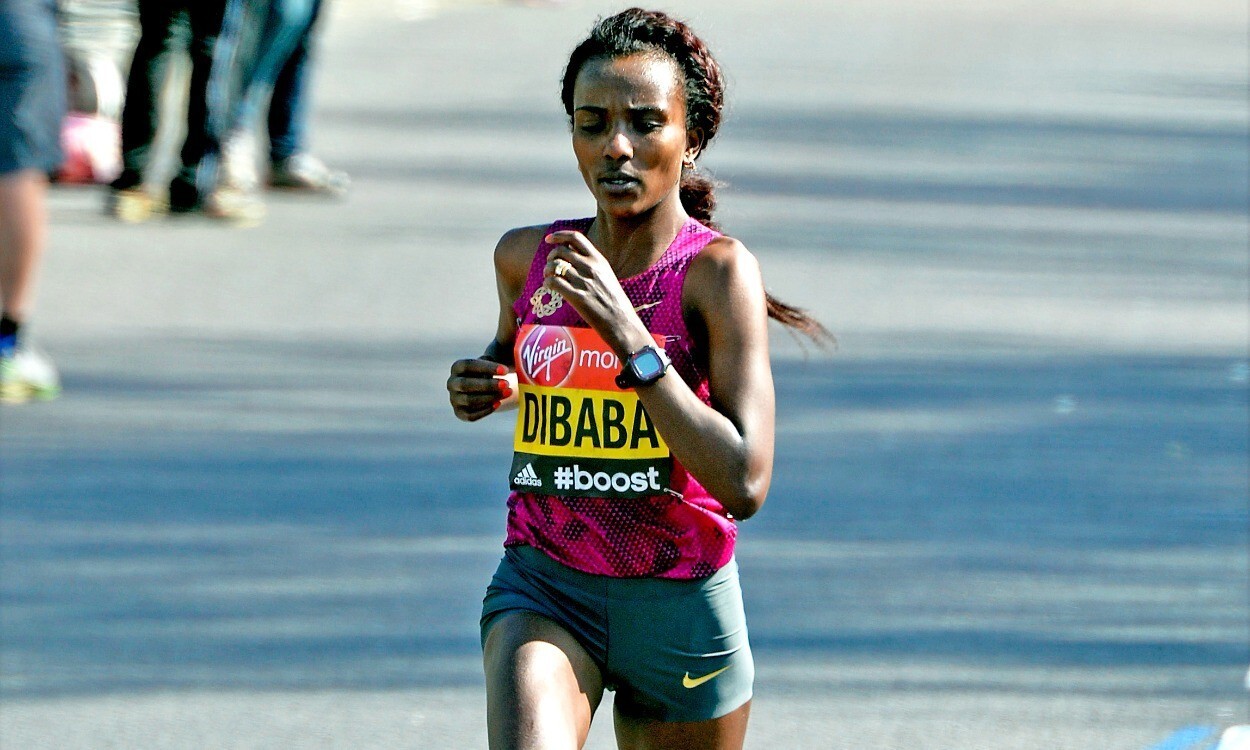
Sisson will have to contend with one of the greatest distance runners of all time as Tirunesh Dibaba of Ethiopia makes a return to competition after a more than four-year hiatus. The three-time Olympic gold medalist and five-time world champion has not raced since 2018 but says after giving birth to a second child in 2019 and then battling COVID-19, she is ready to add another chapter to her storied career.
“Houston is a famous race and my training has been going well,” said Dibaba, the 2017 Chicago Marathon Champion. “It seemed like the best way to test myself and see what could be next.”
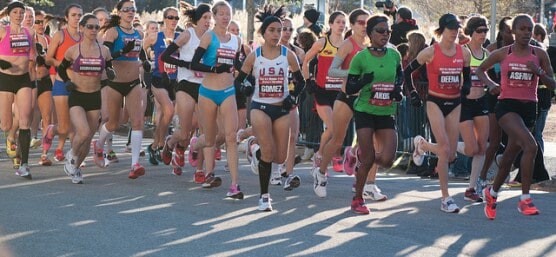
Other top contenders in the women’s half marathon elite field include 2021 Berlin Marathon runner-up Hiwot Gebrekidan of Ethiopia and 2022 World Championship Marathon fourth-place finisher Nazret Weldu of Eritrea. Dom Scott will attempt to break the South African half marathon record of 1:06:44, after a 3rd place finish in Houston last year. The top Americans include 28-time U.S. Champion Molly Huddle who set the then-American record here in 2018, as well as World Champion and Olympic Bronze Medalist Jenny Simpson who will make her half marathon debut.
“All of the racers I am learning from speak so highly of their experience with the Aramco Houston Half Marathon,” said Simpson. “It’s the perfect place for me to make my half marathon debut because the timing, course and organization are so well tested.”
In the men’s race, Edward Cheserek of Kenya, known to fans as “King Ches,” will look to trade in his crown for a king-sized belt buckle. Cheserek is coming off a 1:00:13 half marathon personal best in Valencia last month. “After Valencia this fall, I’ve trained harder and think sub-60 is possible,” said Cheserek, a 17-time NCAA Champion at the University of Oregon. “Houston is known for being a fast course and I want to have a chance at a personal best.”
Cheserek will face off against 2019 champion Shura Kitata of Ethiopia who lines up for his fourth Aramco Houston Half Marathon. With career marathon victories in London, Frankfurt and Rome, Kitata says he “feels home and comfortable in Houston.”
Other contenders to watch are Ethiopia’s Leul Gebresilase Aleme, runner up at last year’s London Marathon, and 2020 Olympian Mohamed El Aaraby of Morocco. The top American in the field is Conner Mantz of Utah. Mantz, the 2020 and 2021 NCAA Cross Country Champion at BYU, made his much-anticipated marathon debut in Chicago last October running 2:08:16, the fastest debut ever by an American-born runner.
Houston-native Frank Lara will return for a second consecutive year. Lara, a former Gatorade Texas High School Runner of the Year, was the top American finisher in the marathon last year. This year he competes in the half marathon.
The HMC is the only organizer to host two World Athletic Gold Label events simultaneously, which are Sunday’s Chevron Houston Marathon and Aramco Houston Half Marathon. These two races will have over 27,000 registrants, with an additional 6,000 registrants in the We Are Houston 5K presented by Aramco and Chevron, held on Saturday, January 14.
“Whether you are an elite athlete or a new runner, our committee is dedicated to hosting your individual pursuits with the utmost care and respect for the extraordinary efforts made to toe the start line with us,” said Wade Morehead, Executive Director of the Houston Marathon Committee.
The Aramco Houston Half Marathon and Chevron Houston Marathon will be broadcast on ABC13 from 7 a.m.-10 a.m., on Sunday, January 15 with a race day recap at 10:35 p.m. Joining ABC13’s Greg Bailey and Gina Gaston as expert commentator will be Des Linden, the 2018 Boston Marathon winner and 50K world-record holder. Linden made the first of her two U.S. Olympic Marathon teams in Houston in 2012. The trio will be joined by long-time analyst and Rice University cross country coach Jon Warren.
by Letsrun
Login to leave a comment
Aramco Houston Half Marathon
The Chevron Houston Marathon provides runners with a one-of-a-kind experience in the vibrant and dynamic setting of America's fourth-largest city. Renowned for its fast, flat, and scenic single-loop course, the race has earned accolades as the "fastest winter marathon" and the "second fastest marathon overall," according to the Ultimate Guide to Marathons. It’s a perfect opportunity for both elite athletes...
more...Questions Arise About Selection of 2024 Olympic Marathon Trials Site
The USATF national office overrode a recommendation from its board of directors that Chattanooga host the Trials.
Despite a recommendation from the USA Track & Field (USATF) board of directors that Chattanooga be named the host city for the 2024 Olympic Marathon Trials, the city will not host the event. Instead, Orlando, the only other city to bid on the Trials, was named as the host city.
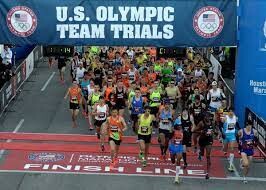
According to minutes from the October 9 USATF board meeting held in Miami Beach, recently posted to USATF’s website, the board issued “an advisory vote of approval for the 2024 USATF U.S. Olympic Trials - Marathon bid to be awarded to Chattanooga, Tennessee. Final approval still remains with the USATF National Office.”
The vote was unanimously carried with one abstention. But the national office announced on November 8 that Orlando would be getting the nod.
Runner’s World asked USATF spokesperson Natalie Uhl and CEO Max Siegel for clarification on why the national office overrode the board of directors. Uhl referred questions on the matter to Mike Conley, the chairman of the board of directors.
Conley wrote in an email to Runner’s World, “The [United States Olympic & Paralympic Committee] is looking into the matter and until I hear back from them I have no comment.”
The USOPC was unable to provide comment to Runner’s World immediately, but a spokesman said he would do so at a later time.
Multiple sources told Runner’s World both Orlando and Chattanooga performed well at site visits. But late in the selection process, after the board vote, Chattanooga’s bid was disqualified.
Neither USATF nor Conley would confirm that Chattanooga was disqualified nor explain why.
A board member, Jim Estes, had been involved as an advisor on Chattanooga’s bid. Estes had disclosed the relationship from the beginning—board members and other volunteers with USATF are required to file conflict of interest forms and keep them up to date—and Estes recused himself from voting on anything related to the Olympic Marathon Trials. His recusal is noted in the meeting minutes.
According to his LinkedIn profile, Estes previously worked in the USATF national office in Indianapolis for almost 12 years, from 2005 to 2016. For the last four, he was the director of events. He is now a consultant for events in the running industry.
Estes declined to comment to Runner’s World. The chief sports officer at the Chattanooga Sports Commission, Tim Morgan, was directing Chattanooga’s bid for the Trials. He did not return multiple calls and messages requesting comment.
The board bases its vote on recommendations from members of the men’s and women’s long distance running committees, volunteers who visit potential sites and evaluate the bids for what will help produce the strongest Olympic team and be best for the athletes.
At a November virtual meeting of USATF’s board of directors, the topic of the bid for the Olympic Marathon Trials came up again. But the discussion was held in executive session, meaning that what was discussed remains private. The executive session lasted for 15 minutes. Again, Estes recused himself from the session.
A similar disagreement marred the selection of the 2016 Olympic Marathon Trials. For that event, the men’s and women’s long distance running committees recommended that the Trials return to Houston, which had staged a successful Trials in 2012. Siegel overrode that decision and decided the Trials should be in Los Angeles, a larger media market.
That race in Los Angeles went off in warm conditions. February temperatures reached into the mid-70s, and several athletes struggled in the heat, with many claiming inadequate fluids on the course. For the men, Galen Rupp, Meb Keflezighi, and Jared Ward made the team. On the women’s side, Amy Cragg and Des Linden finished first and second, and Shalane Flanagan collapsed at the finish line in third place.
USATF is facing scrutiny about other administrative matters. In November, when the nonprofit organization’s most recent tax forms were made public, it showed Siegel had a total compensation package of $3.8 million in 2021. The chief operating officer, Renee Washington, made more than $1.6 million. Together, those two salaries represented more than 16 percent of the organization’s revenues.
Earlier this month, heptathlete Taliyah Brooks filed a lawsuit against USATF for failing to reschedule the heptathlon during extreme heat at the 2021 Olympic Track and Field Trials.
by Runner’s World
Login to leave a comment
Who Wore Which Shoes at the New York City Marathon?
The running shoe hype train was high in New York City with a few fast yet-to-be-released shoes in the men’s and women’s elite fields.
For a few miles early in the New York City Marathon, Desi Linden surged into the lead of the women’s elite field. The two-time Olympian and 2018 Boston Marathon champion didn’t think she’d run away and win the race that way, but she was just trying to keep the pace honest.
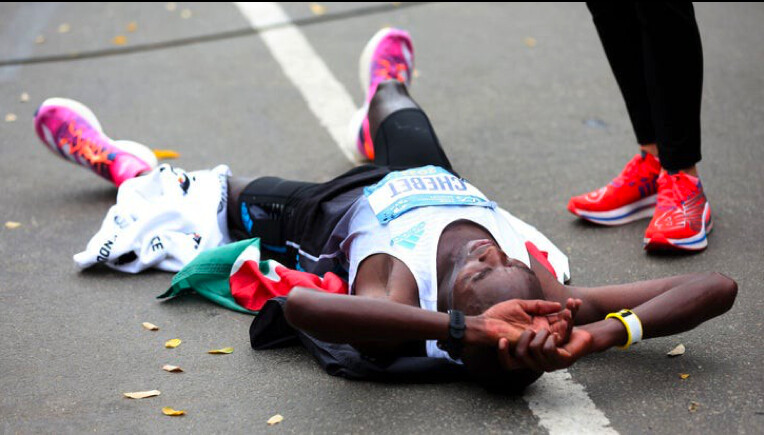
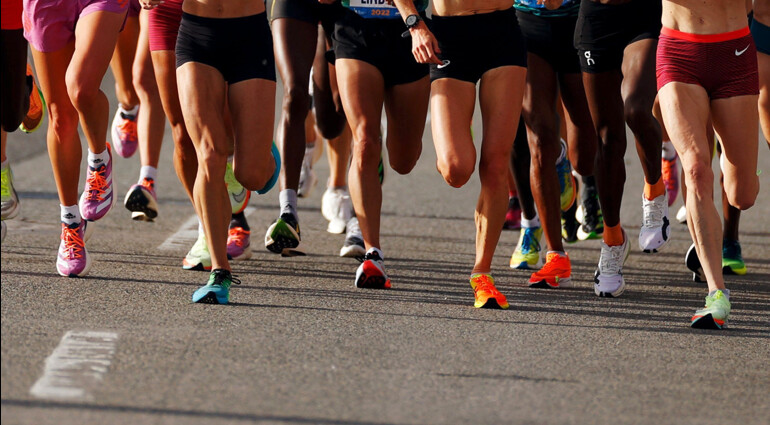
However, hiding in plain sight on her feet as she was off the front of the pack was a yet-to-be-released pair of orange, white and black Brooks prototype racing shoes. A day later, no one is willing to give up any details of the shoe, except that, like all of the other top-tier racing shoes in both the men’s and women’s elite fields, it features a carbon plate embedded in a hyper-responsive foam midsole. And although it’s all in accordance with World Athletics regulations, it won’t be released in Spring 2024 … so we’ll all have to wait a bit to see what that shoe is all about.
Linden’s shoes weren’t the only speedy outliers among the top 25 men’s and women’s finishers. While Nike, Adidas and ASICS shoes were the most prevalent brands among elite runners, there were several shoes that aren’t yet available to the public.
For example, the first runner to cross the finish line of this year’s New York City Marathon, women’s winner Sharon Lokedi, was wearing a pair of Under Armour Velociti Elite shoes. That’s notable for several reasons—because it was Lokedi’s first marathon, because the shoe won’t become available until early 2023 and because it’s the first podium finish at a major international marathon for a runner wearing Under Armour shoes.
There were also three pairs of yet-to-be-released Hoka Rocket X 2 shoes on the feet of three Hoka NAZ Elite runners — two of whom set new personal best times, Aliphine Tuliamuk (7th, 2:26:18) Matthew Baxter (12th, 2:17:15). Those fluorescent yellow shoes with orange, white and blue accents and blue laces were on the feet of Hoka pros at the Boston Marathon in April and Ironman World Championships in Hawaii in October, but they won’t be released to the public until late February or early March.
Meanwhile, the winner of the men’s race, Evans Chebet, was wearing a pair of Adidas Adizero Adios Pro 3, a shoe worn by four other runners in the top 25 of the men’s race and six among the women’s top 25, making it the second most prevalent model among the elites. Oddly, that was the same shoe worn by Brazil’s Daniel do Nascimento, who went out at record-setting sub-2:03 pace on his own, only to crumple to the ground at mile 21 after succumbing to fatigue and cramping.
The most common shoe among the top finishers was the Nike ZoomX Vaporfly Next% 2, which was on the feet of 11 of the 50 runners among the women’s and men’s top 25 finishers. There were eight runners wearing either the first or second version of the ASICS MetaSpeed Sky.
Six runners wore Nike Air Zoom Alphafly Flyknit shoes, three wore Nike Air Zoom Alphalfy NEXT% 2. There were two pairs of On Cloudboom Echo 3 in the field, including those worn by Hellen Obiri who finished sixth while running a 2:25:49 in her marathon debut, while three runners wore Puma Fast R Nitro Elite.
And what about actor Ashton Kutcher? He wore a pair of purple Nike Air Zoom Alphafly NEXT% Flyknit shoes and finished in a very respectable 3:54:01.
Matt James, the former lead of the Bachelor, finished in 3:46:45 with Shalane Flanagan as his guide wearing a pair of New Balance FuelCell Comp Trainer shoes. Flanagan wore Nike Air Zoom Alphafly Next% Flyknit shoes, as did Meghan Duggan, an Olympic gold medalist hockey player who ran a solid 3:52:03. Lauren Ridloff, actress from “The Walking Dead,” ran in a pair of Brooks Glycerin 20 and finished in 4:05:48, while Chelsea Clinton, daughter of Bill and Hillary Clinton finished in 4:20:34 wearing a pair of Brooks Ghost 14 and Tommy Rivers Puzey (aka “Tommy Rivs,” a former elite runner who survived a deadly bout of cancer in 2020, wore a pair of Craft CTM Ultra Carbon Race Rebel and finished in 6:13:54.
Here’s a rundown of what was on the feet of the top 25 women’s and men’s finishers in the Big Apple.
1. Sharon Lokedi (Kenya) 2:23:23 — Under Armour Velociti Elite
2. Lonah Salpeter (Israel) 2:23:30 — Nike ZoomX Vaporfly Next% 2
3. Gotytom Gebreslase (Ethiopia) 2:23:39 – Nike ZoomX Vaporfly Next% 2
4. Edna Kiplagat (Kenya) 2:24:16 — Nike ZoomX Vaporfly Next% 2
5. Viola Cheptoo (Kenya) 2:25:34 — Adidas Adizero Adios Pro 3
6. Hellen Obiri (Kenya) 2:25:49 — On Cloudboom Echo 3
7. Aliphine Tuliamuk (USA) 2:26:18 — Hoka Rocket X 2
8. Emma Bates (USA) 2:26:53 — ASICS MetaSpeed Sky+
9. Jessica Stenson (Australia) 2:27:27 – ASICS MetaSpeed Sky
10. Nell Rojas (USA) 2:28:32 — Nike Air Zoom Alphafly Flyknit
11. Lindsay Flanagan (USA) 2:29:28 – ASICS MetaSpeed Sky
12. Gerda Steyn (South Africa) 2:30:22 — Adidas Adizero Adios Pro 3
13. Stephanie Bruce (USA) 2:30:34 — Hoka Rocket X 2
14. Caroline Rotich (Kenya) 2:30:59 — ASICS MetaSpeed Sky+
15. Keira D’Amato (USA) 2:31:31 — Nike Air Zoom Alphafly Flyknit
16. Des Linden (USA) 2:32:37 — Brooks Prototype
17. Mao Uesugi (Japan) 2:32:56 — Adidas Adizero Adios Pro 3
18. Eloise Wellings (Australia) 2:34:50 — Adidas Adizero Adios Pro 3
19. Sarah Pagano (USA) 2:35:03 — Adidas Adizero Adios Pro 3
20. Grace Kahura (Kenya) 2:35:32 — Nike ZoomX Vaporfly Next% 2
21. Annie Frisbie (USA) 2:35:35 — Puma Fast R Nitro Elite
22. Molly Grabill (USA) 2:39:45 — Nike Air Zoom Alphafly NEXT% Flyknit
23. Kayla Lampe (USA) 2:40:42 — ASICS MetaSpeed Sky+
24. Maegan Krifchin (USA) 2:40:52 — Adidas Adizero Adios Pro 3
25. Roberta Groner (USA) 2:43:06 — Nike Air Zoom Alphafly NEXT% 2
1. Evans Chebet (Kenya) 2:08:41 — Adidas Adizero Adios Pro 3
2. Shura Kitata (Ethiopia) 2:08:54 — Nike ZoomX Vaporfly Next% 2
3. Abdi Nageeye (Netherlands) 2:10:31 — Nike ZoomX Vaporfly Next% 2
4. Mohamed El Aaraby (Morocco) 2:11:00 — ASICS MetaSpeed Sky+
5. Suguru Osako (Japan) 2:11:31 — Nike ZoomX Vaporfly Next% 2
6. Tetsuya Yoroizaka (Japan) 2:12:12 — Nike ZoomX Vaporfly Next% 2
7. Albert Korir (Kenya) 2:13:27 — Adidas Adizero Adios Pro 3
8. Daniele Meucci (Italy) 2:13:29 — ASICS MetaSpeed Sky+
9. Scott Fauble (USA) 2:13:35 — Nike Air Zoom Alphafly NEXT% 2
10. Reed Fischer (USA) 2:15:23 — Adidas Adizero Adios Pro 3
11. Jared Ward (USA) 2:17:09 — Saucony Endorphin Pro 3
12. Matthew Baxter (New Zealand) 2:17:15 — Hoka Rocket X 2
13. Leonard Korir (USA) 2:17:29 — Nike ZoomX Vaporfly Next% 2
14. Matthew Llano (USA) 2:20:04 — Under Armour Velociti Elite
15. Olivier Irabaruta (Burundi) 2:20:14 — On Cloudboom Echo 3
16. Hendrik Pfeiffer (Germany) 2:22:31 — Puma Fast R Nitro Elite
17. Jonas Hampton (USA) 2:22:58 — Adidas Adizero Adios Pro 3
18. Alberto Mena (USA) 2:23:10 — Nike ZoomX Vaporfly Next% 2
19. Jacob Shiohira (USA) 2:23:33 — Nike Air Zoom Alphafly Flyknit
20. Edward Mulder (USA) 2:23:42 — Nike Air Zoom Alphafly Flyknit
21. Jordan Daniel (USA) 2:24:27 — Nike ZoomX Vaporfly Next% 2
22. Nathan Martin (USA) 2:25:27 — ASICS MetaSpeed Sky+
23. Jeff Thies (USA) 2:25:45 — Nike Air Zoom Alphafly NEXT% 2
24. Shadrack Kipchirchir (USA) 2:28:15 — Puma Fast R Nitro Elite
25. Abi Joseph (USA) 2:29:16 — Nike Air Zoom Alphafly Flyknit
by Outside
Login to leave a comment
Sharon Lokedi's New York City Marathon won a "major" victory for Under Armour
One thing Sharon Lokedi of Kenya and her sponsor, Under Armour, have in common is they both came into the 2022 New York City Marathon as underdogs. Lokedi, a standout collegiate athlete in the NCAA at the University of Kansas, was making her marathon debut in NYC, but since turning pro in 2019, she did not have a breakthrough performance on her resume. And every major marathon since Des Linden at the Boston Marathon with Brooks in 2018 has been won by an athlete wearing either Nike, Adidas or Asics.On Sunday, the two made history together. Lokedi became only the second woman to win NYC in her marathon debut, following in the footsteps of her Kenyan compatriot Tegla Loroupe, who won in 1994. Lokedi was the first athlete to win an Abbott World Marathon Major wearing a pair of Under Armour shoes.The shoes she wore were a World Athletics-approved prototype of the new iterations of the Flow Velociti Elite—a shoe designed for 10K and half marathon distances to help you move forward with speed and efficiency.Designed as a contender to rival the top competitors in the market, the Flow Velociti Elite is for runners who need a balance of flexibility and cushioning in their racing shoes. Every stride with the Velociti Elite is amplified by a full-length carbon-fibre plate sandwiched in a soft midsole foam, which compresses and springs back for added lift and energy return, delivering an explosive lift-off.
The UA Flow Velociti Elite comes in at 212 grams and has an 8 mm offset.When Lokedi signed with Under Armour after winning the 10,000m at the 2019 NCAA Championships, they promised her top-of-the-line footwear development and innovation, to set her up for success.
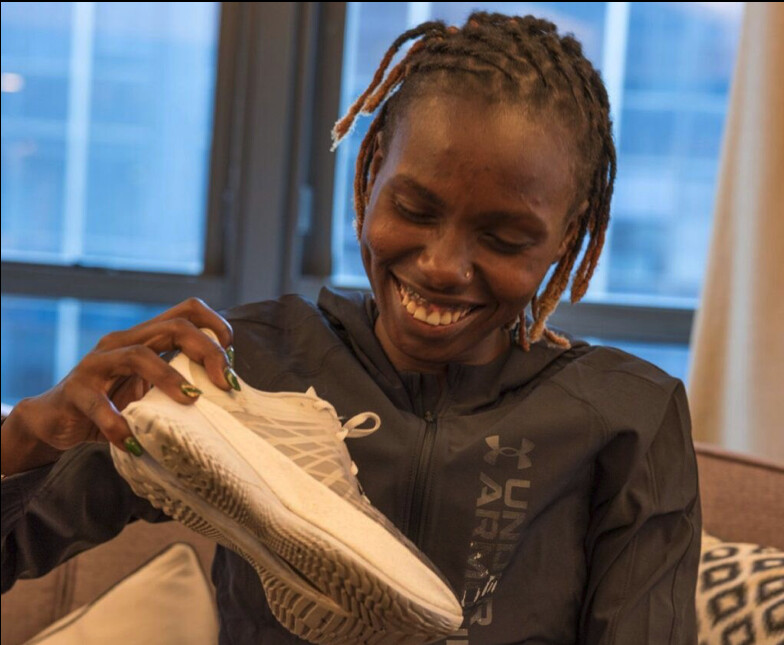
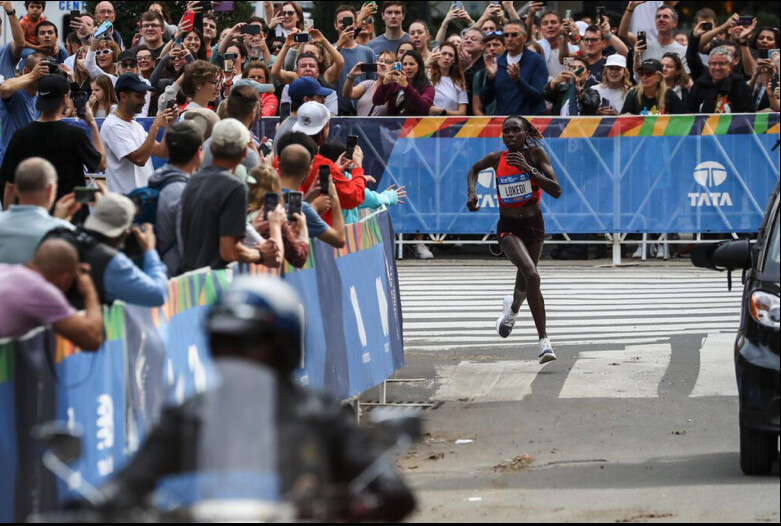
“It’s an honour to be the first Under Armour athlete to win a major marathon,” said Lokedi. “I am so grateful to be a part of a brand that builds and supports their athletes to be the best they can be.”
She currently trains in Flagstaff, Ariz., under the direction of coach Stephen Haas and Pat Casey with the UA Misson Run Dark Sky Distance Project.In 2020, when the group was founded, Haas and Casey worked with Under Armour to build a team of athletes who could train with Lokedi. Although she has resided in the U.S. since 2014, she holds Kenyan citizenship and competed at Kenyan Olympic Trials in 2021 (finishing seventh in the 10,000m).
The new variation of the UA Flow Velociti Elite will hit the Canadian market with limited availability on UA.com in the spring of 2023.
by Running Magazine
Login to leave a comment
Podcasts for the long run: time will fly by while you listen to one of our faves
Whether you are looking for something entertaining to pass the time on your weekly long runs, or want some running and wellness-related content to turn on while you’re driving or cooking, we’ve got the line-up for you.
Legacy of Speed

Hosted by Malcolm Gladwell (also of the Revisionist History podcast), this podcast tells the story behind the 1968 Olympic Games, when two Black sprinters raised their fists in protest, shaking the world. More than 50 years later, the ripple effects of their activism are still felt. Legacy of Speed tells the story of a small university track team who unexpectedly took the world’s stage, the runners who took a stand, and the coaches who helped make them both fast enough and courageous enough to rise up. Once you start, you won’t be able to stop listening.
The Shakeout Podcast
Canadian Running‘s own podcast is hosted and produced by the multi-talented Olympian Kate Van Buskirk and celebrates running and its transformative power. Van Buskirk connects with sport leaders, coaches, advocates and visionary athletes to dig deep on important topics. Van Buskirk is joined by fellow Olympian and CR staff writer Maddy Kelly for a weekly recap of events in the running world called The Rundown. Whether you’re a regular runner or simply interested in intelligent and meaningful conversations within sport, The Shakeout is a must-listen.
The Singletrack Podcast
Whether you run in the woods on the daily, or you’re just learning what singletrack is, you’ll love Finn Melanson‘s exploration of the world of trail and ultrarunning. Melanson talks to all the big names in the sport to find out what makes them tick, and does an excellent job of explaining, previewing and recapping trail and ultra and trail races across the world. From obsessive ultratrail fan to newbie, The Singletrack Podcast is the place to go.
The Rich Roll Podcast
Endurance athlete and plant-based nutrition advocate Rich Roll also hosts one of the world’s most popular wellness podcasts. On each episode, Rich dives deep into diverse topics, discussing everything from track and field to the science of longevity; from mental strength to enlightenment. “Rich delves deep into all things wellness with some of the brightest and most forward-thinking, paradigm-busting minds in health, fitness, nutrition, art, entertainment, entrepreneurship & spirituality,” touts the podcast website, and it’s true: the vast range of past guests include Boston Marathon champ Des Linden, boxer Laila Ali, ultrarunner Harvey Lewis and neuroscientist Andrew Huberman.
Running for Real with Tina Muir
Tina Muir is a former pro-marathoner from the UK, now US-based. Her show deals with the darker, less glamorous side of professional sport. Muir is not afraid to bring up tough topics and is a staunch advocate for mental health and women in sport, and her belief that “running has the power to change the world” is evident in every conversation. Muir endeavors to make this clear in her podcast, which opens up with a quote that describes this perfectly: “The podcast for runners who know that for every runner’s high, there are just as many lows.”
Radiolab
While not running-focused, Radiolab has some episodes about running that are fascinating–as is every single other podcast in their history. Hosted by Lulu Miller and Latif Nasser, Radiolab digs into deep questions and uses investigative journalism to get the answers. On any episode, you may find yourself immersed in science, legal history and incredible stories about humans around the world.
Women Run Canada
This podcast, hosted by Kirsten Parker, celebrates Canadian women runners from all walks of life. It tackles a wide variety of topics–and while listening, you’ll feel even more connected to the Canadian running community. Perfect when you’re needing some motivation to get moving, you’ll learn, laugh and be inspired by this pod.
by Running Magazine
Login to leave a comment
TCS New York City Marathon App to Debut Livestreaming of All Pro Races in Their Entirety
Tata Consultancy Services (TCS) and New York Road Runners (NYRR) launched the official 2022 TCS New York City Marathon App with a groundbreaking Second Screen feature that will transform the marathon experience for runners and fans alike. For the first time in the history of major marathons, the professional men’s and women’s wheelchair and open division races will be livestreamed on the app in their entirety, empowering fans to swipe between feeds and watch the race of their choice.
The Professional Runner Feed, available free on the 2022 TCS New York City Marathon app, will enhance the broadcast coverage through a Second Screen that features uninterrupted coverage of the leaders in all four races. It will complement the race broadcast available domestically on WABC/ESPN and internationally in 182 countries and territories so that spectators from around the world can watch every move as the fastest marathoners in the world battle for victory on the streets of New York City. The 51st running of the TCS New York City Marathon will take place on November 6.
“I’m excited to race the TCS New York City Marathon again as I go for my sixth title, and it’s so incredible that everyone around the world can follow along the professional wheelchair races in full in the TCS Mobile App,” said Tatyana McFadden, a five-time TCS New York City Marathon champion and 20-time Paralympic medalist. “It’s so important to have platforms such as this that reach the masses to showcase our sport and bring parity to the wheelchair division.”
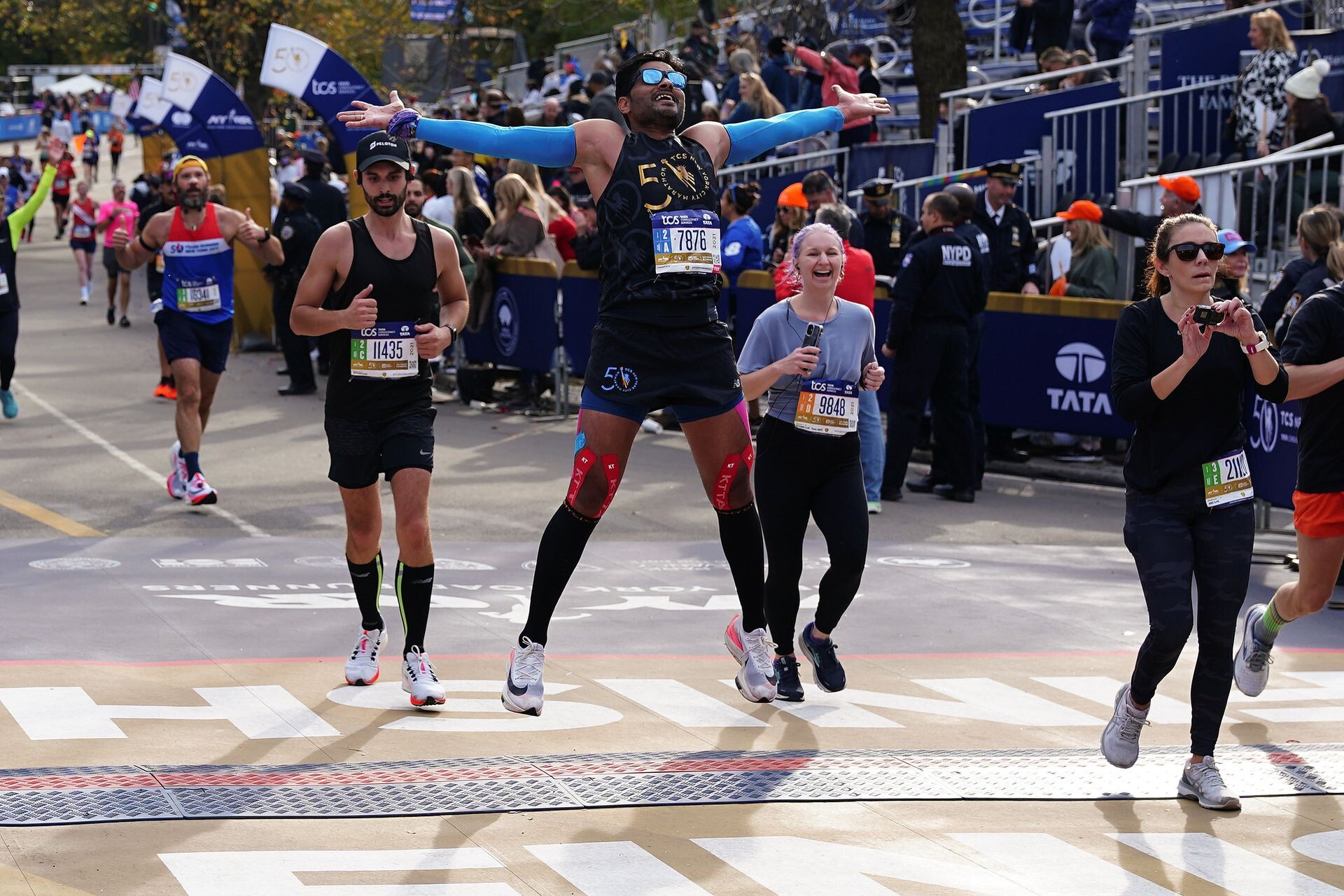
The TCS New York City Marathon has historically broken ground and set the pace for equal opportunities for both women and wheelchair athletes. This year, every step taken by the leaders can be seen on the app – from the big lead pack often seen in Brooklyn to the surges on 1st Avenue that separate the competitors. Fans can watch every race-defining move throughout the marathon.
“Livestreaming the pro races on the TCS New York City Marathon app is a win for fans and a win for athletes,” said Des Linden, a two-time Olympian and 2018 Boston Marathon champion. “Allowing the long form stories to develop over the course of 26.2 miles will give fans the chance to learn about the contenders and appreciate the nuances of racing that they’ve never seen before.”
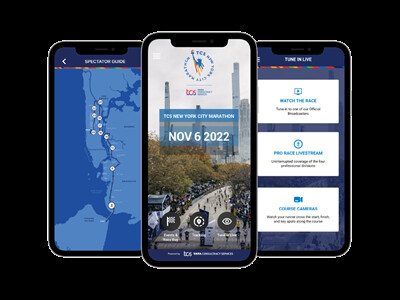
The 2022 TCS New York City Marathon App also sets a new standard for runner tracking. The app allows spectators to track the elapsed time and pace of an unlimited number of runners. The first of its kind Course Camera feature lets fans watch a live feed of their favorite runners at five key points along the course – at the start, mile 8 in Brooklyn, mile 17 in the Upper East Side, mile 20 in the Bronx, and at the finish. This new feature also gives runners the comfort that their family and friends can watch them at key points on the course and cheer for them from anywhere in the world.
“Fans of an iconic global event like the TCS New York City Marathon deserve the most technologically advanced race app,” said Suresh Muthuswami, Chairman of North America, TCS. “We are proud to raise the bar this year by bringing all of the exciting action from the streets of New York City to the world in an inclusive fan experience.”
"Every year, it is exciting to see the TCS New York City Marathon partnership come to life through the mobile app, and this year’s enhancements will elevate the experience to a whole new level for both spectators and viewers,” said Christine Burke, NYRR Senior Vice President of Strategic Partnerships and Runner Products. “Whether it be fans following the every stride of their favorite professional athletes or checking out the Course Camera feed to find their family and friends, the new features in the app are guaranteed to bring in a whole new audience.”
TCS is the first ever premier partner of NYRR, a relationship that began in 2012. From the beginning, TCS and NYRR committed to enhancing the marathon experience for runners, spectators, and fans around the world through technology. The award-winning TCS New York City Marathon app is typically downloaded a half-million times every year.
Other Key Features
Share Tracking: This feature on the Runner Details page allows users to share a link that initiates an automatic app download with a specific runner already selected to be tracked during the race.
Optimized Spectator Guides: The app’s spectator guide helps fans create an itinerary to navigate New York City, so they’re able to see runners on the course. The shareable guide provides a runner’s estimated times of arrival, along with transportation directions and recommended viewing locations along the course.
Cheer Cards: Allows fans to support runners using the app to share messages on social media.
Live Pro Athlete Leader Board and Bios: Closely track the race day leaders in real time, as well as have access to bios, records, and images of professional athletes running the race.
Team Inspire Profiles: For the first time, the app will include stories of Team Inspire, a group of runners with some of the most inspiring stories in this year’s mass runner field.
The mobile app for the 2022 TCS New York City Marathon is available now for iPhone and Android devices on the App Store and Google Play, respectively.
by Running USA
Login to leave a comment
TCS New York City Marathon
The first New York City Marathon, organized in 1970 by Fred Lebow and Vince Chiappetta, was held entirely in Central Park. Of 127 entrants, only 55 men finished; the sole female entrant dropped out due to illness. Winners were given inexpensive wristwatches and recycled baseball and bowling trophies. The entry fee was $1 and the total event budget...
more...New York City Marathon: Kenyan Peres Jepchirchir out, Keira D’Amato in
Olympic champion Peres Jepchirchir withdrew from defending her New York City Marathon title on Nov. 6, citing an unspecified injury.
Keira D’Amato, the second-fastest American female marathoner in history, was also added to the field in Friday’s announcement.
Jepchirchir, 29, is the only person to win the Olympic, Boston and New York City Marathons in a career, doing so in a nine-month span in 2021 and 2022. She won New York City last November in 2:22:39, prevailing by five seconds over countrywoman Viola Cheptoo.
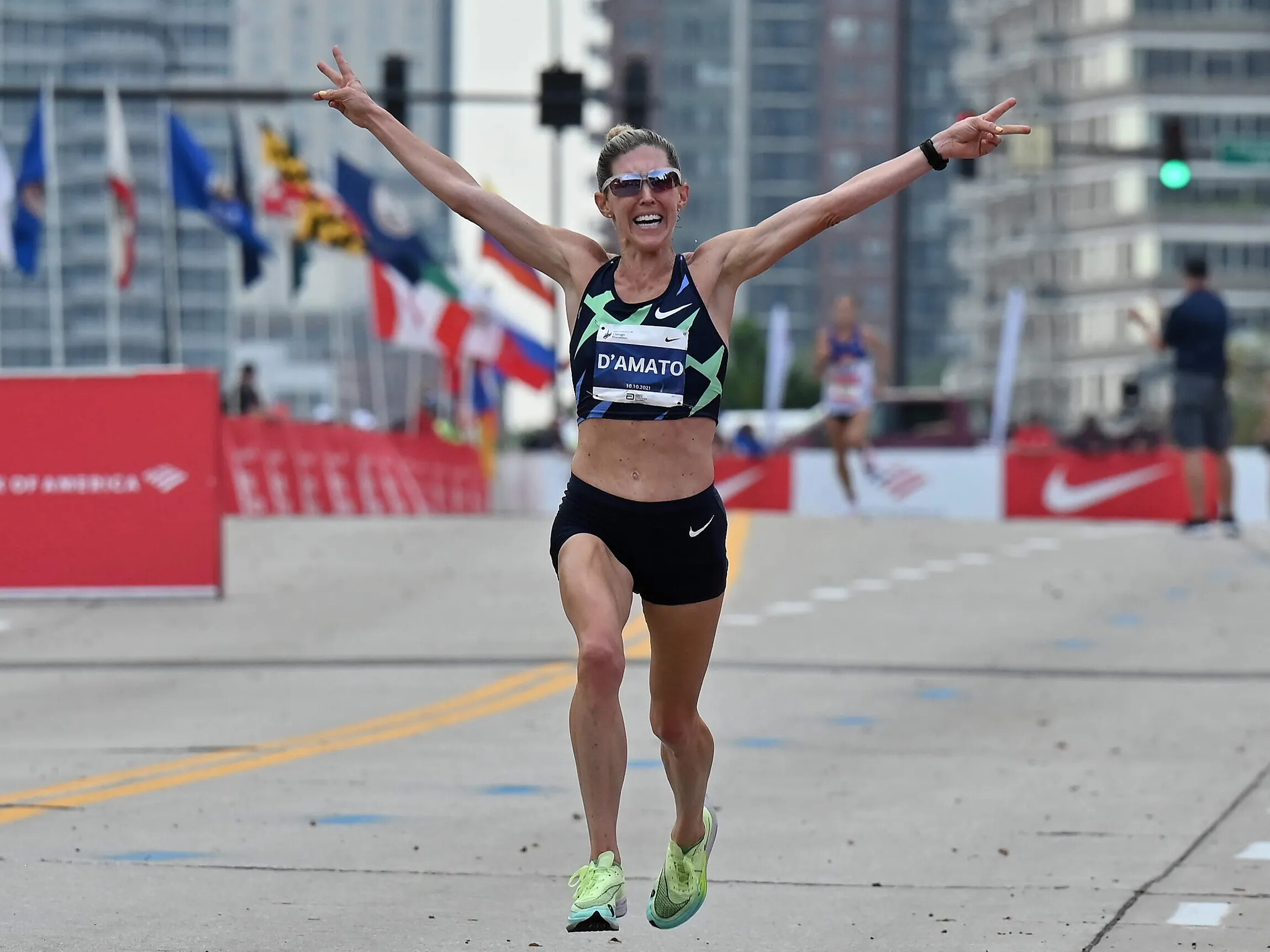
D’Amato, a 37-year-old mother of two, broke a 16-year-old American record in the women’s marathon on Jan. 16 by clocking 2:19:12 in Houston. Emily Sisson took the record last Sunday in Chicago in 2:18:29.
D’Amato, who went nearly a decade between competitive races after a middle-distance stint at American University, will make her New York City Marathon debut six weeks after running the Berlin Marathon in 2:21:48.
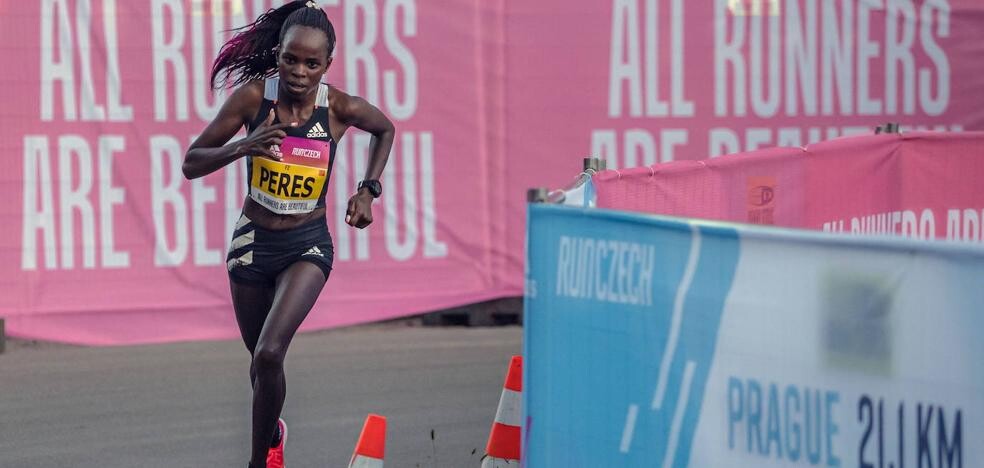
Elkanah Kibet also withdrew from the Nov. 6 race, a year after he was the top finisher among American male runners in fourth place. Kibet, a lieutenant in the U.S. Army, received orders to report overseas, according to the New York Road Runners.
Other race headliners include: 2018 Boston Marathon winner Des Linden and world champions Gotytom Gebreslase of Ethiopia and Edna Kiplagat of Kenya for the women. And two-time Olympic medalist Galen Rupp, defending champion Albert Korir of Kenya, reigning Boston Marathon champion Evans Chebet, Olympic silver medalist Abdi Nageeye of the Netherlands and 2020 London Marathon winner Shura Kitata for the men.
by Olympic Talk
Login to leave a comment
TCS New York City Marathon
The first New York City Marathon, organized in 1970 by Fred Lebow and Vince Chiappetta, was held entirely in Central Park. Of 127 entrants, only 55 men finished; the sole female entrant dropped out due to illness. Winners were given inexpensive wristwatches and recycled baseball and bowling trophies. The entry fee was $1 and the total event budget...
more...Tips for Running a Marathon and Half-Marathon from World Record holder Des Linden
Running a marathon is not easy. First, you must train your body and your training. It takes months to prepare your body physically, mentally, and nutritionally. And you must train your training with planning, preparation, and consistency. If you can follow these principles, you will be successful. You don’t want to be undertrained or underprepared; that is how strains, pains, and injuries happen.
But don’t take it from me. Des Linden is the expert. Marathoner, Des Linden, was an American woman to break the 33-year dry spell for an American to win the Boston Marathon, finishing it in 2:39:55. Also, last year, she was the first woman to run a 50K under three hours in 2:59:54.
Here are Des Linden’s insider tips to help you improve your marathon. Of course, you don’t have to follow her process entirely, but you can incorporate some or all the things she does that create success for her.
Pace Your Training
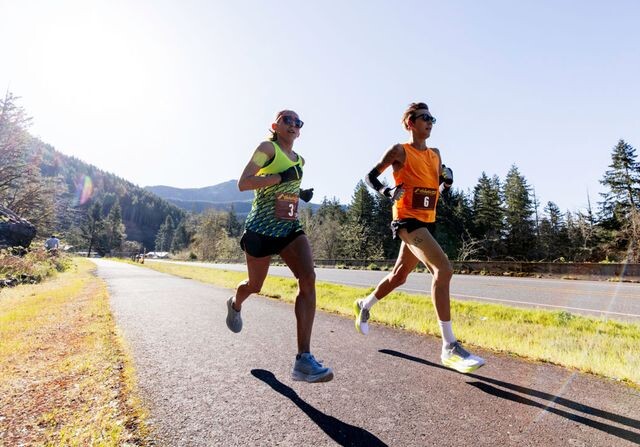
When it comes to running and training for a marathon, there is no quick way. You train, rest, recover, and then your body adapts. Forcing in extra miles is overtraining and not going to make up for missed training days. The body does not work like that. Des says you must be consistent with your training. Training too hard or too much can be disastrous, especially in the middle of your training phase. Consistency is the key. So, don’t up the mileage for your next run if you miss a day.
Be Patient with Running
Distance running is different from running just a few miles or sprinting. First, des says you must love running and the training that comes with it. If you don’t love it, you will force your body to do it. That is bad for you mentally. Physically, the body needs consistent training and time to adapt and improve. She also says there are no quick ways to get better, “You just have to show up.”
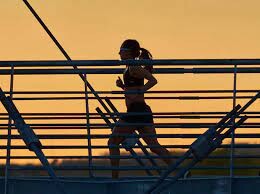
You Need Calories
Des says runners are famous for not eating enough to fuel their run. You must eat the right foods for energy. She says good nutrition will keep you strong and healthy and prevent setbacks. It is terrible for your body when you are out on a run, and your body struggles with energy. Not enough calories mean the training will force your body. But she also stresses eating poor nutritional food is better than an empty tank.
Nevertheless, try to eat natural, wholesome foods like vegetables, nuts, and fruits. Des says simplicity works best. Just make sure you get fueled up.
Learn How to Re-Fuel
Post nutrition for your run is essential and the basis of how your energy will replenish. Des says eating 15 to 20 minutes after your workout is critical. Eating a meal right after training is hard, so you must prepare. The most important thing to consume is a protein shake to start repairing muscles immediately. Along with protein, eat carbohydrates that absorb quickly to boost your energy levels. So, drinking a protein shake and eating carbs like bananas are simple and easy ways to refuel and recover.
Des says her stomach is still not ready to digest a full meal after her run. So, she says she will increase her protein when her stomach has recovered, which can take longer than an hour. Then, she plans her bigger sit-down meal of about 15 to 25 grams of protein. But, to refuel properly, you must understand digestion.
Experiment with Your Nutrition
There are so many different foods to eat and supplements to use. But not all foods are created equal and have the same effect for each person. Des says you must test different foods before running and know which ones work best for you. Experimenting and trial and error are your best ways. She says she has tested many foods to develop her nutritional plan over the years. For example, she says she can eat anything during easy runs. But before long training runs or races, she chooses simple foods to avoid the risk of longer digestion, which has the possibility of upsetting her stomach. An upset stomach equals slower runs.
The Key to Speed is Relaxation
Des says you must find the balance between pushing and forcing yourself. If you push yourself, you can stay more relaxed. And, if your force yourself, you create tension that will work against you running faster and longer. Also, the more relaxed you are, the more energy you conserve. If you are tense, it will eat up your energy. And you need that energy when mile 20 arrives to pick up the speed a bit.
For Aspiring Runners
Des says just be patient because running a marathon is a process. On day one, you will think and feel how hard it was to run. And that difficulty will continue for ten days. She mentions that you will want to and feel like quitting, but you must get over that hump. Over the hump is when your routine begins. Des states that getting in shape is hard, but it is awesome once you are in shape. Don’t throw yourself into it; ease into it so you will stick with it. Too much too hard, and you will quit.
Once Des crosses the finish line, her recovery begins. After every marathon, she does not train for two weeks to recover. After that, however, she will get into the pool to do passive recovery. Des says taking two weeks off is essential to heal her body and get excited to train for the next race.
“Sometimes you chase results, and you lose sight of the bigger picture. You need to step back and get back to enjoying the process of running versus chasing down a win.” – Des Linden
by Jason Kelly
Login to leave a comment
World Championships Medalists Gotytom Gebreslase, Lonah Chemtai Salpeter, and Hellen Obiri to Join Women’s Field at 2022 TCS New York
Sara Hall, Emma Bates, Aliphine Tuliamuk, Des Linden, Nell Rojas, and Stephanie Bruce to anchor star-studded contingent of American women.
World Championships medalists Gotytom Gebreslase of Ethiopia, Lonah Chemtai Salpeter of Israel, and Hellen Obiri of Kenya will join previously announced New York City and Olympic champion Peres Jepchirchir in the women’s professional athlete division at this year’s TCS New York City Marathon on Sunday November 6. All three will make their TCS New York City Marathon debuts, with Obiri making her 26.2-mile debut across any course, and will line up against a star-studded contingent of American women that includes Sara Hall, Emma Bates, Aliphine Tuliamuk, Des Linden, Nell Rojas, and Stephanie Bruce. The 2022 TCS New York City Marathon women’s professional athlete field is presented by Mastercard®.
Women’s Open Division
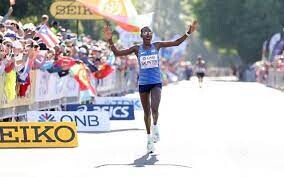
Fresh off her victory at the world championships marathon, where she finished the course in a championship-record time of 2:18:11, Gebreslase will make New York City her next stop. She will look to add a five-borough title to her resume, having previously won the 2021 Berlin Marathon and finished third at the 2022 Tokyo Marathon.
“Winning the World Championships was like a dream, and I am honored to run my next marathon in New York City,” Gebreslase said. “It’s home to the biggest marathon in the world, and many of the top athletes have run there. I understand it’s a challenging course, and I’m looking forward to seeing further success there.”
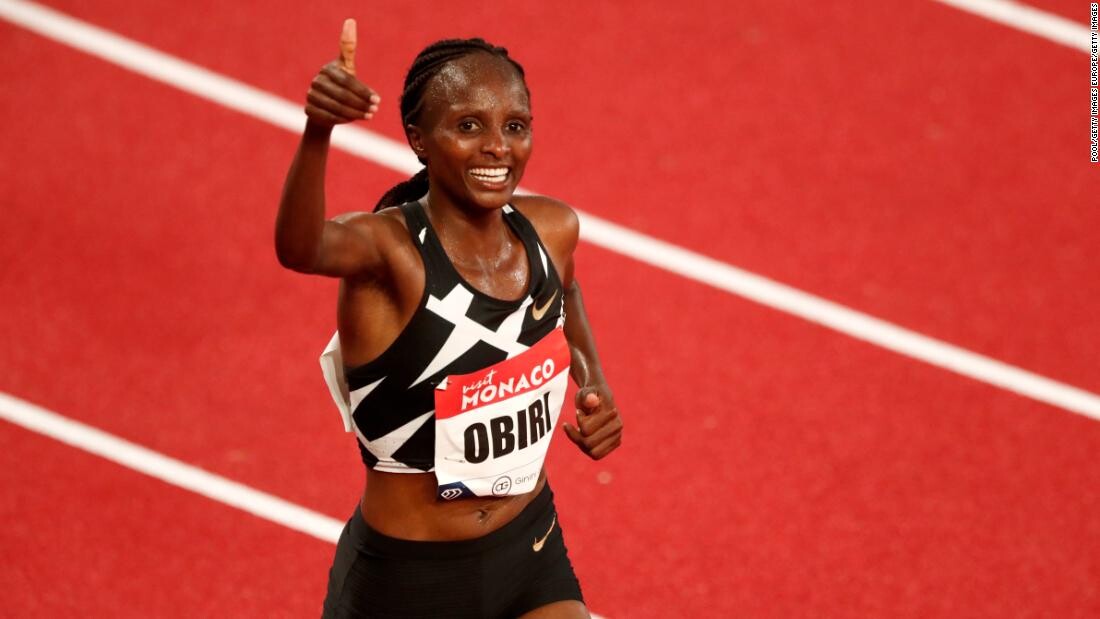
Two-time Olympian Salpeter, a Kenyan-born Israeli who won the bronze medal at the world championships marathon and was the 2020 Tokyo Marathon winner, will challenge Gebreslase once again. Obiri, a two-time Olympic medalist and seven-time individual world championships medalist, will make her highly anticipated marathon debut shortly after winning a world championships silver over 10,000 meters.
“I’m very excited to make my marathon debut at the TCS New York City Marathon,” Obiri said. “I have watched the race many times on TV and have seen my Kenyan colleagues compete there. I know New York is a tough course, but I hope my experience on track, road, and cross-country will help me navigate the ups and downs. I also plan to get advice and tips from coach Dathan Ritzenhein, who competed in the race several times in the past.”
In addition to Jepchirchir, the group will be racing against Ethiopia’s Senbere Teferi, who will look to become the first athlete to win the United Airlines NYC Half, Mastercard New York Mini 10K, and TCS New York City Marathon in one year. Three other Kenyans will also be strong contenders for podium places, including the 2010 New York City, 2014 London and 2017 Boston Marathon champion Edna Kiplagat, last year’s runner-up Viola Cheptoo, and newcomer Sharon Lokedi.
The American effort will be led by 10-time national champion Hall, who was the top world championships marathon finisher from the U.S. last month in Oregon, where she placed fifth. She is also the former half marathon national record holder, the runner-up from the 2020 London Marathon, and a two-time winner of the Mastercard New York Mini 10K. She will be joined at the Staten Island start line by Bates, who clocked a personal best to finish seventh at the world championships and was the runner-up at last year’s Chicago Marathon.
“From winning the Millrose mile to back-to-back Mini 10K wins, most of my favorite career moments have happened in NYC,” Hall said. “I’m all-in to add to that by having my best marathon yet at the TCS New York City Marathon. I can’t wait to be back racing my heart out in the five boroughs of my favorite city.”
Tokyo 2020 Olympian Aliphine Tuliamuk, and two-time Olympian and 2018 Boston Marathon champion Des Linden, will also return to New York, as will national champion Stephanie Bruce, who will race the five boroughs for the final time before retiring. The deep U.S. women’s group will additionally include Nell Rojas, the top American finisher from the last two Boston Marathons, Lindsay Flanagan, the top American finisher from the 2022 United Airlines NYC Half, Annie Frisbie, last year’s seventh-place finisher, and her training partner Dakotah Lindwurm, who won Grandma’s Marathon in June. Emily Durgin, the sixth-fastest U.S. half marathoner of all-time, will make her marathon debut.
by Running USA
Login to leave a comment
TCS New York City Marathon
The first New York City Marathon, organized in 1970 by Fred Lebow and Vince Chiappetta, was held entirely in Central Park. Of 127 entrants, only 55 men finished; the sole female entrant dropped out due to illness. Winners were given inexpensive wristwatches and recycled baseball and bowling trophies. The entry fee was $1 and the total event budget...
more...How to celebrate global running day
Global Running Day is today, June 1. And though running might be something you do several days a week, or even every day, this particular day is made for celebrating the sport we all love. It’s a great time to focus on what running does for your body, for your mind, for the community that it brings together, for the friendships made on the run. After so long spent apart, it’s time to come together and run again.
Here are a few ideas on how to give back and make the most of your miles on this special day.
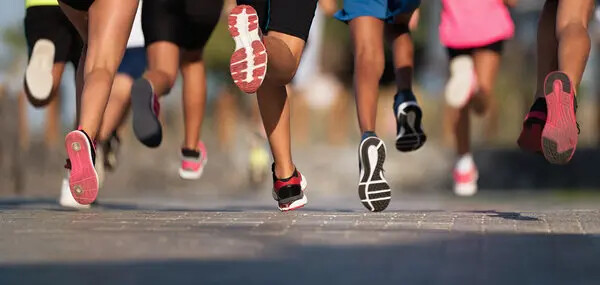
Run for Yourself
We’re totally on board with lacing up purely for the mental and physical benefits you get in return. Taking care of yourself is more than enough cause for celebration. And if you’re looking for a race medal, some kudos, or even some free swag to go with your movement, these brands have you covered.
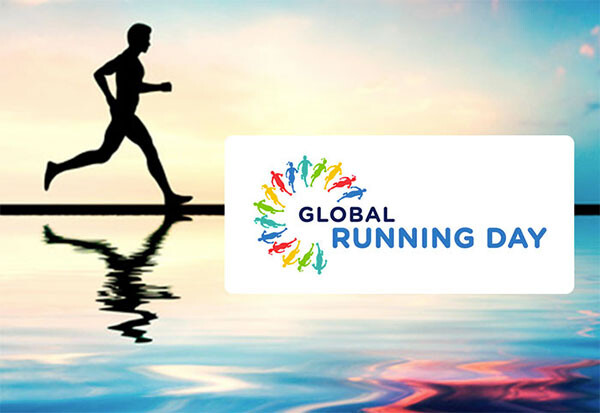
Coros Global Running Day Challenge
Endurance tech brand Coros enlisted the likes of pro marathoners Molly Seidel and Des Linden to create a special GRD 5K workout. Those who participate will be entered to win a $50 gift card to Coros. Note: You must have the Coros app to participate.
Virtual NYRR Global Running Day 5K
Run this virtual race, hosted by New York Road Runners, now through Sunday June 5. Runners are also invited to join their virtual racer Facebook group for daily inspiration and community building.
“It’s Your Run” with Brooks
Running shoe and apparel brand Brooks is encouraging everyone to get out and run no matter the distance or speed. “It doesn’t matter how far they go; it all counts, because It’s Your Run,” the brand told Women’s Running in an email. Post your run with the hashtag #ItsYourRun on Instagram and receive surprise shout-outs and “medals.”
Run for Others
If you’d like to make Global Running Day an intentional way to give to others while still getting in your miles, the following brands have some goodwill on deck for the holiday.
Under Armour All Out Mile
Under Armour is back this year encouraging runners to “go all out on Global Running Day” by attempting to run the fastest mile. Starting tomorrow through Sunday June 5, runners can attempt the mile race as many times as they want using FitRankings and Under Armour’s MapMyRun. The three fastest women and men will receive cash and gear prizes.
Runners can also compete as a team in attempt to nab the most participants. The teams in America, Europe, Asia, and South Asia with the most mile runners will receive $10,000 donated to a charity of their choice.
Run For the Oceans With Adidas
Going on now through Wednesday, June 8, Adidas has pledged to clean up the ocean in exchange for your sweat. For every 10 minutes run, the brand will remove one plastic bottle from the ocean (or the equivalent in weight). Download the Adidas Running app to track your miles.
Dick’s Sporting Goods Global Running Day Challenge
If you’re also in the market for some new gear, Dick’s Sporting Goods has teamed up with Run to Change Lives to donate to SportsMatter, a Dick’s Sporting Goods Foundation initiative that aims to raise awareness around the youth sports funding crisis.
How this GRD campaign works: Post your running selfie to the RUN to Change Lives Facebook group on June 1 using the hashtag #GlobalRunningDay. Print out your Dick’s Sporting Goods coupon given upon registration. When you shop at DSG using the coupon, Run to Change Lives will donate $5 to SportsMatter.
Global Running Day With Ventures Endurance
Event company Ventures Endurance is supporting Shoes That Fit, a national organization that helps kids get shoes. On Global Running Day, a $10 registration means $5 will go to Shoes That Fit. In return, runners will receive a $15 voucher toward a Ventures Endurance Race.
by Women´s Running
Login to leave a comment
Global Running Day
What is Global Running Day? Global Running Day is a worldwide celebration of running that encourages everyone to get moving. It doesn’t matter how fast you run or how far you go—what’s important is that you take part, and how you do it is up to you. Run a lap around your block, take your dog for a long walk,...
more...Boston Marathon Champions & National Record Holders Headline Professional Field for 2022 B.A.A. 10K
The Boston Athletic Association (B.A.A.) has announced a star-studded field for the 2022 B.A.A. 10K, presented by Brigham and Women’s Hospital, to be held on Sunday, June 26. Evans Chebet, the 2022 Boston Marathon men’s open division champion, will return to Boston, while recently crowned American half marathon record holder Emily Sisson will lead the women’s field on the roads of Back Bay. Four-time B.A.A. 5K champion and American 5K record holder Ben True will also make his B.A.A. 10K debut.
The B.A.A. 10K starts and finishes on Charles Street adjacent to Boston Common and Boston Public Garden, and is widely regarded as one of the fastest 10K races in the world. Registration remains open at www.baa.org, while athletes interested in supporting Brigham and Women's Hospital, the B.A.A. 10K’s presenting sponsor and exclusive fundraising partner, are encouraged to visit www.runbwh.org/10k.
“We’re excited to continue to showcase the world’s most accomplished runners at our B.A.A. events,” said Mary Kate Shea, the B.A.A.’s Director of Professional Athletes and Technical Support. “We’re looking forward to cheering on all participants as they race towards the finish.”
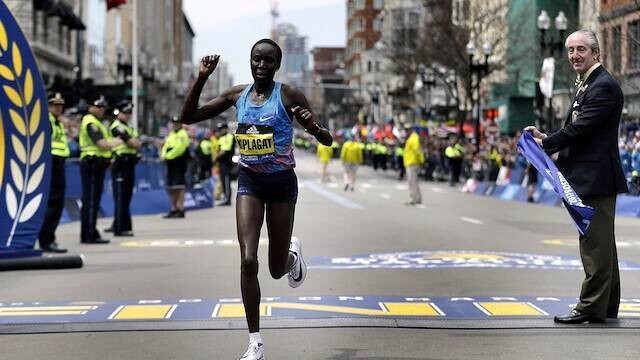
The B.A.A. 10K women’s race brings together Boston Marathon champions Des Linden (2018) and Edna Kiplagat (2017), American record holder Sisson, 2017 B.A.A. 10K winner Joan Chelimo Melly, 2022 Boston Marathon top American Nell Rojas, 2016 USA Olympian Marielle Hall, and USA 15K runner-up Emily Durgin.
Sisson, a Providence College graduate and 2021 Olympian, ran 1:07:11 on May 7 to win the USATF Half Marathon Championships in a new national record. She’s also the defending USA 15K champion.
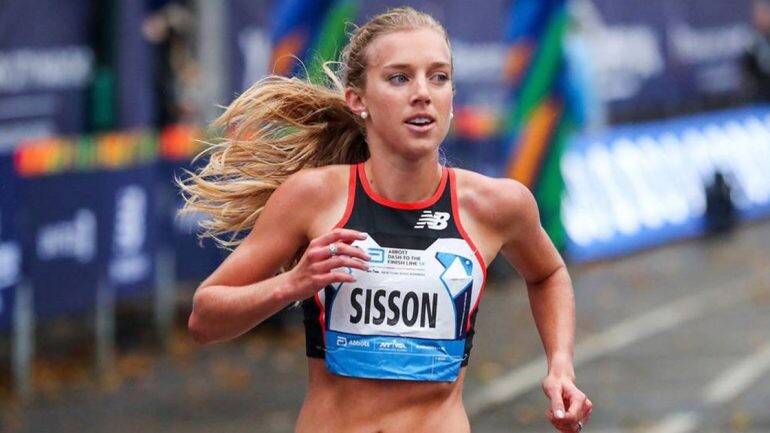
“Breaking the American record in the half marathon was very exciting and I'm now looking forward to switching things up and racing different distances,” said Sisson. “The 10K is a fun and different challenge and I always love racing in Boston.”
Additional international entrants include Biruktayit Degefa of Ethiopia, who has won a quartet of American road races this spring, and Kenya’s Sharon Lokedi, who placed third at the 2022 B.A.A. 5K in April. From the B.A.A. High Performance team are Erika Kemp and Abbey Wheeler; Kemp is a two-time national champion.
In the men’s race, Chebet looks to become only the second Boston Marathon champion to win the B.A.A. 10K, joining the likes of 2011 winner and course record holder Geoffrey Mutai. Chebet stormed to his first Boston Marathon victory in 2:06:51 on April 18.
“After winning the 2022 Boston Marathon, I’m excited to return to the city to run the B.A.A. 10K with a world class field,” said Chebet. “Boston feels like a second home to me now.”
Challenging Chebet from Kenya are David Bett, the reigning 2019 B.A.A. 10K winner; Kennedy Kimutai, the fastest man in the field with a 27:09 lifetime best; Bravin Kiptoo, the 2019 African junior 10,000m champion; and Nicholas Kosimbei, winner of this year’s Cherry Blossom 10 Miler in Washington, D.C. Brothers Jake and Zane Robertson, a dynamic pair from New Zealand who have lived and trained in Kenya, will also race. Recent Iowa State graduate and NCAA champion Wesley Kiptoo will make his Boston road racing debut.
Maine-native Ben True will return to familiar territory, having won the B.A.A. 5K four times, including a national-record setting run of 13:20 in 2017. Fellow American contenders include Olympians Leonard Korir and Shadrack Kipchirchir, Princeton, Mass.-native Colin Bennie, and a quartet of B.A.A. High Performance Team members in Jerrell Mock, Matt McDonald, Jonas Hampton, and Paul Hogan. Korir enters the B.A.A. 10K hot off a pair of national title wins at the USATF Half Marathon and USATF 25K Championships in May.
In the wheelchair division, Jenna Fesemyer, the 2022 B.A.A. 5K women’s winner, Susannah Scaroni, the 2022 Boston Marathon runner-up, and 2020 Paralympian Yen Hoang are entered. Scaroni earned a gold medal on the track at the 2021 Paralympic Games in the 5000m, and is the fastest women’s wheelchair marathoner in U.S. history. James Senbeta and Hermin Garic are the top men’s wheelchair entrants.
For the first time in race history, Para Athletics Divisions will be offered for athletes with upper-limb, lower-limb, and visual impairments. Among the entrants confirmed include Marko Cheseto Lemtukei, Chaz Davis, and Liz Willis, each of whom won Para Division titles at April’s 126th Boston Marathon. Jacky Hunt-Broersma, who ran 104 marathons in 104 consecutive days for a Guinness World Record, and local Para athlete Adrianne Haslet are also entered.
In addition to racing, top professional athletes will participate in the first-ever B.A.A. 10K Fest & Field Day on Saturday, June 25, one day prior to the race. From 2:00 p.m. to 6:00 p.m. at Boston Common, 10K Fest & Field Day will feature youth fitness activities, games, appearances by professional athletes, running clinics, and more. Participants will also be able to pick-up their participant shirts and bib numbers at 10K Fest. Additional details will be available on baa.org in the coming weeks.
Registration for the 2022 B.A.A. 10K, presented by Brigham and Women’s Hospital, is currently open through the B.A.A.’s online platform Athletes’ Village. All participants who enter will receive an adidas participant shirt, unique bib number, and finisher medal. Additional participant information can be found on baa.org. The race will start at 8:00 a.m. ET on Sunday, June 26 on Charles Street adjacent to Boston Common and Boston Public Garden.
Brigham and Women's Hospital, the B.A.A. 10K’s presenting sponsor and exclusive fundraising partner, will again field a team of fundraising runners. Since 2016, more than 2,100 runners and 180 teams have raised $1.2 million to fuel life-giving breakthroughs at Brigham and Women’s Hospital. Learn more and register at www.runbwh.org/10k.
On June 1, the B.A.A. will celebrate Global Running Day with a special pop-up location at the Boston Marathon Finish Line between 3:00-6:00 p.m. Runners can take a picture with the Boston Marathon trophy, receive giveaways, refreshments, and more! RSVP for the free event on our Facebook page, and log miles throughout the day as part of the Abbott World Marathon Majors Global Running Day Challenge. Visit https://bstnmar.org/GRD22 to sign up for free, track your miles, and print a bib to wear as you join a global community of athletes around the world logging miles.
2022 B.A.A. 10K WOMEN’S FIELD (NAME, COUNTRY, ROAD 10K PB)
Joan Chelimo Melly, Romania, 30:14^
Edna Kiplagat, Kenya, 31:06*
Sharon Lokedi, Kenya, 31:06
Mary Munanu, Kenya, 31:20
Biruktayit Degefa, Ethiopia, 31:23
Emily Sisson, USA, 31:47
Emily Durgin, USA, 31:49
Diane Nukuri, USA, 31:49
Lanni Marchant, Canada, 31:49
Vibian Chepkirui, Kenya, 31:49
Nell Rojas, USA, 31:52
Erika Kemp, USA, 32:18
Laura Thweatt, USA, 32:20
Elaina Tabb, USA, 32:40
Rachel Schneider Smith, USA, 32:47
Abbey Wheeler, USA, DB (32:53.50 10,000m)
Grayson Murphy, USA, 32:55
Fiona O’Keeffe, USA, 32:57
Katie Kellner, USA, 33:05
Des Linden, USA, 33:06*
Taylor Werner, USA, 33:35
Marielle Hall, USA, 33:36 (31:05.71 10,000m)
Allie Hackett, USA, 35:17
Jesca Chelangat, Kenya, DB (15:16 5K)
Courtney Hawkins, USA, DB (37:59.99 10,000m)
^ = Previous B.A.A. 10K Champion
* = Previous Boston Marathon Champion
2022 B.A.A. 10K MEN’S FIELD (NAME, COUNTRY, ROAD 10K PB)
Kennedy Kimutai, Kenya, 27:09
Bravin Kiptoo, Kenya, 27:12
Philemon Kiplimo, Kenya, 27:23
Zane Robertson, New Zealand, 27:28
Jake Robertson, New Zealand, 27:28
Wesley Kiptoo, Kenya, N/A (27:37.29 10,000m)
Ben True, USA, 27:51
Nicholas Kosimbei, Kenya, 27:52
John Dressel, USA, N/A (27:57.51 10,000m)
David Bett, Kenya, 28:08^
Dominic Korir, Kenya, 28:08
Leonard Korir, USA, 28:09
Shadrack Kipchirchir, USA, 28:12
David Nilsson, Sweden, 28:13
Tsegay Tuemay, Eritrea, 28:13
Bethwell Yegon, Kenya, 28:24
Reuben Mosip, Kenya, 28:28
Paul Hogan, USA, N/A (28:49.55 10,000m)
Johannes Motschmann, Germany, 28:51
Alex Masai, Kenya, 28:53
Colin Bennie, USA, 28:55
Futsum Zienasellassie, USA, 29:03
Matt McClintock, USA, 29:02
Jacob Thomson, USA, 29:07
John Raneri, USA, 29:19
Evans Chebet, Kenya, 29:30*
Jerrell Mock, USA, 29:36
Aaron Dinzeo, USA, 29:37
Matt McDonald, USA, 29:38
Diego Estrada, USA, 29:41
Fabiano Sulle, Tanzania, 29:53
Jonas Hampton, USA, 30:15
Tim McGowan, USA, 30:17
Connor McMillan, USA, 30:20
Josh Kalapos, USA, N/A (14:33.88 5,000m)
^ = Previous B.A.A. 10K Champion
* = Previous Boston Marathon Champion
Login to leave a comment
B.A.A. 10K
The 6.2-mile course is a scenic tour through Boston's Back Bay. Notable neighborhoods and attractions include the legendary Bull and Finch Pub, after which the television series "Cheers" was developed, the campus of Boston University, and trendy Kenmore Square. ...
more...Why you should aim for a negative split in the marathon
Ideally, when running a marathon, your goal should be to run even splits, i.e. to run the second half of the race in the same time as it took you to run the first half, rather than slowing down. (2018 Boston Marathon champion Des Linden is famous for running perfectly even splits in a lot of her races.) If you’re well trained and everything goes well on race day, you might come close to achieving this; with a few marathons under your belt, you might even try to aim for a negative split, which means running the second half of the race slightly faster than the first.
Negative splitting is a challenging proposition for most runners. By 30 km or so (sometimes much earlier), physical and mental fatigue are starting to accumulate, and you might find yourself walking through water stations. Your rate of perceived exertion (RPE) increases with each passing kilometer, and the pace you started at feels harder and harder.
Why negative split?
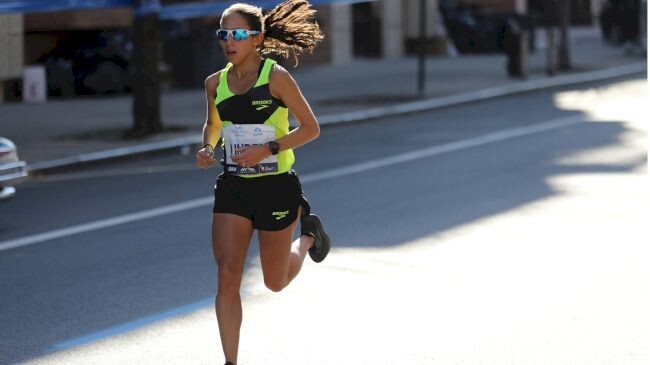
But with a little experience, trying to achieve a negative split can bring a new challenge to your marathons, and there are good reasons to try it.
Andrew McKay of Toronto remembers the second time he qualified for Boston, at the Philadelphia Marathon in 2016. “It was a really bad weather day, and my iPod failed a few kilometers in, so I was just focused on clicking off Ks, and didn’t have high race goals,” he says. “So instead, I focused on my mental game, and doing only what I was capable of on the day. Each time it felt hard, I asked myself ‘is that all you have today?’ And when the answer was no, I pushed a tiny bit harder… My splits were 1:40:18 and 1:39:54, and it was a PB by four minutes, 45 seconds.”
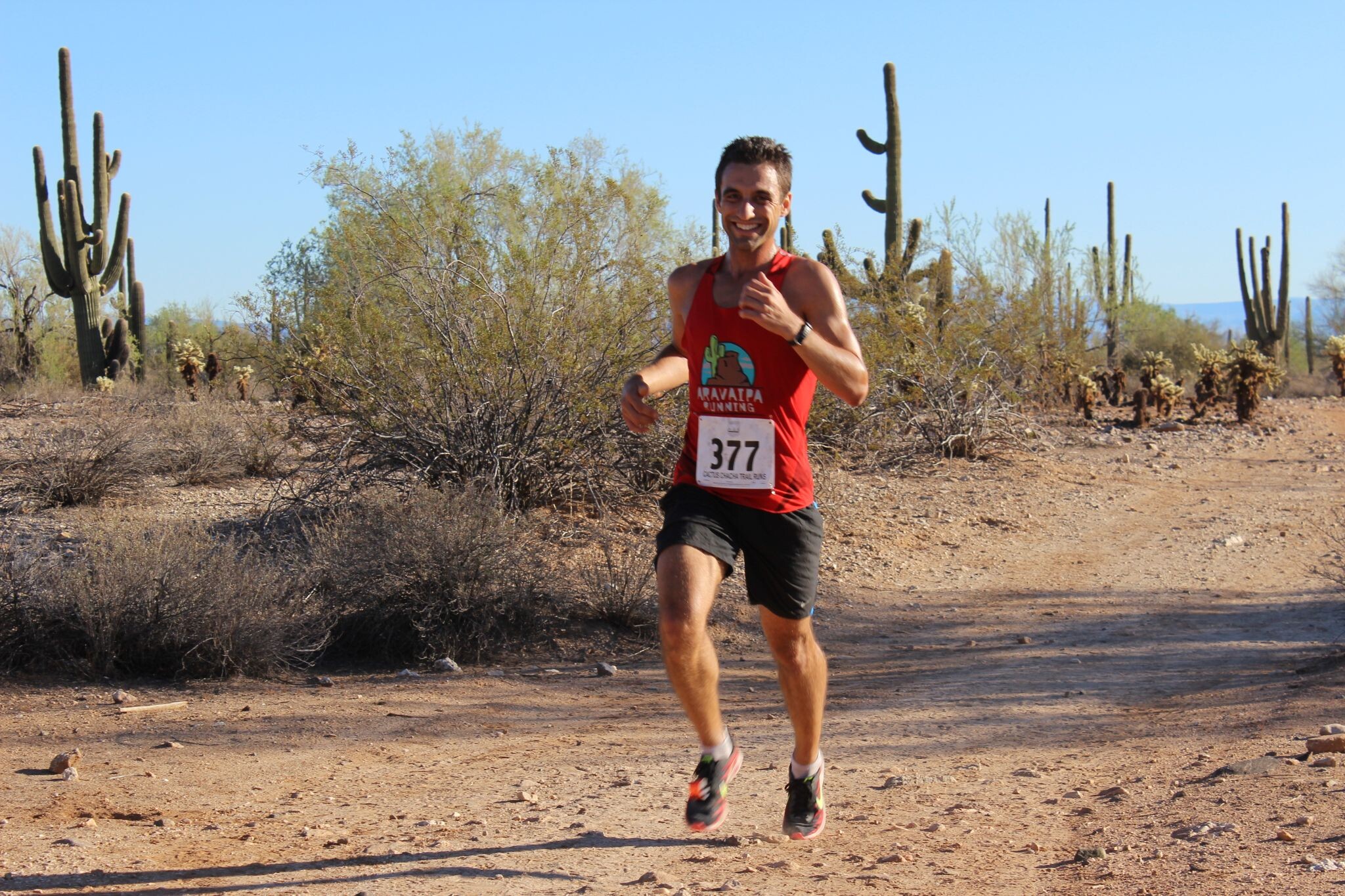
U.S. ultrarunner Nick Coury has written about negative splitting ultras, but the same principles apply in the marathon, or even the half-marathon. (Coury, 34, won the Desert Solstice 24-hour race in Arizona in 2020, with 250 km; his Ultrasignup.com results go back to 2005, which means he’s been racing ultras since he was 17, and he has a slew of podium finishes and victories.) For example, you’re much less likely to “blow up” if you go out a little slower than your goal pace and maintain that through the first half. “The longer the race, the more time there is for something to go wrong,” Coury writes. “Blowing up at mile 22 of a marathon means four miles of suffering … Going out slow enough to negative split means the risk of each individual problem goes down.” He claims that negative splitting has often allowed him to avoid the discouragement and loss of motivation that comes with being unable to maintain his pace late in a race.
A major advantage Coury claims is reduced recovery time: “This has been the biggest mind-blower for me,” he writes. “Even when we feel ‘good,’ we’ve put the body through a lot.” He’s referring to ultras, but the same is true for marathoners. That soreness in your quads the day after a marathon represents muscle damage; but if you’ve ever had a really bad race and ended up walking most of it, you may have noticed you’re hardly sore at all. The fact is that even a slightly slower pace results in less damage, and consequently, less soreness and associated recovery time. Which means you’re ready to resume training earlier, with less fear of losing fitness before starting your next build.
Note that “faster race times” is not one of Coury’s stated reasons to negative split, even though your times might well improve once you master the art of negative splitting. The reasons for doing it are qualitative, rather than quantitative. But you’ll likely find yourself performing better against the competition in races.
To achieve a negative split, you need to plan on running the first half of the race a few seconds per kilometer slower than your goal pace, and then picking up the pace in the second half. This sounds easy, but considering that even running your goal pace will feel very slow during the first half, it actually takes a lot of discipline to run even more slowly than that. Once you pass the halfway mark, hopefully you’re feeling relatively comfortable, and you can begin to gradually increase the pace, keeping something in reserve for a final kick to the finish line. “The more I negative split, the more I just feel straight-up good late in a race,” says Coury.
The bottom line? It’s more fun than slogging
“The hidden benefit of negative splitting is just how much fun it is,” Coury writes. “It’s hard to describe catching minutes a mile on the front runners in a race 80 per cent in, and doing so without having to dig deep and suffer. I’ve really become addicted to it, and can’t imagine going back to the days of just hanging on to get to the finish line.”
Achieving a negative split takes some practice and patience; you don’t want to slow down so much in the first half that you end up slower than if you just went about racing in your usual manner. (Coury has found 3 per cent to be about right.) Also, your performance will vary depending not only on how well you train, but on how well you recover while training, how much sleep you get, the quality of your nutrition while training, and myriad other factors. But the potential benefits are certainly worth exploring.
by Anne Francis
Login to leave a comment
Des Linden is going to be running the 2022 BAA 10K
The Boston Athletic Association (B.A.A.) announced today that 2018 Boston Marathon champion and two-time Olympian Des Linden will return to compete in the 2022 B.A.A. 10K, presented by Brigham and Women’s Hospital, on Sunday, June 26. The B.A.A. 10K is the second event of the 2022 B.A.A. Distance Medley, a three-race series which also includes April’s B.A.A. 5K and November’s B.A.A. Half Marathon.
Earlier today, Linden announced on Instagram her participation in the upcoming event.
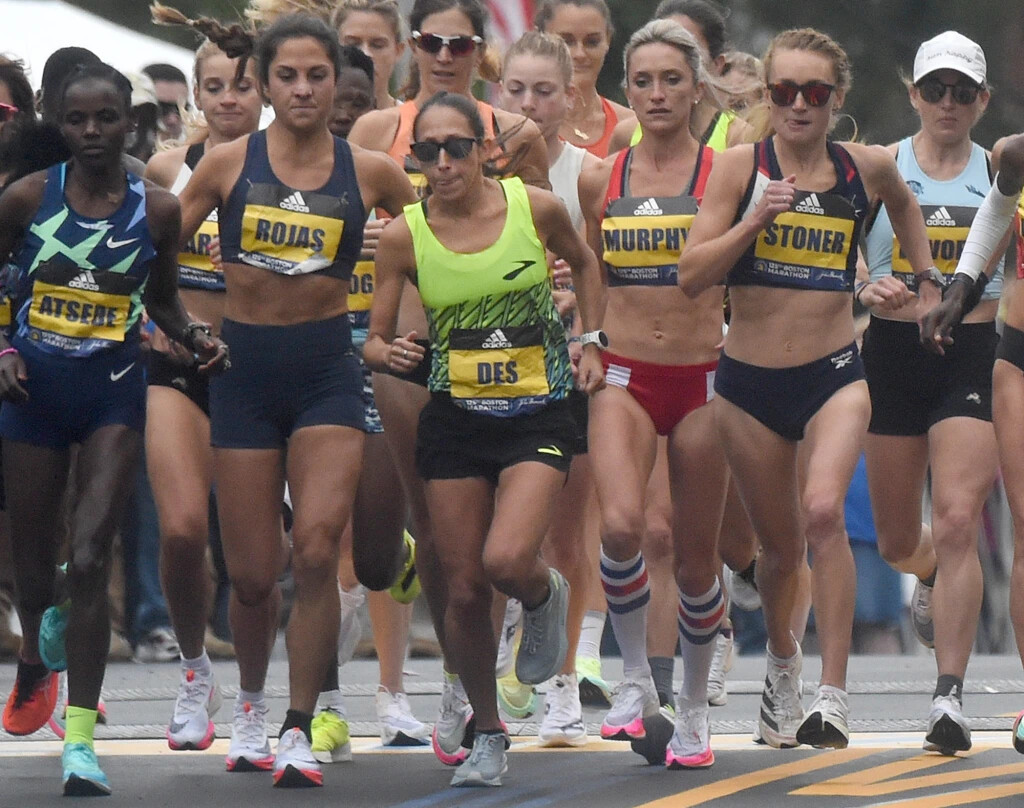
In 2018 Linden won the Boston Marathon, the first time an American woman claimed the open division title in 33 years. She has placed in the top five at the Boston Marathon five times and last ran the B.A.A. 10K in 2018 when she ran among the masses and finished hand in hand with B.A.A. runner Katsuhiro Togami.
Registration for the 2022 B.A.A. 10K, presented by Brigham and Women’s Hospital, is currently open through the B.A.A.’s online platform Athletes’ Village. All participants who enter will receive an adidas participant shirt, unique bib number, and finisher medal. Additional participant information can be found on baa.org. The race will start at 8:00 a.m. ET on Sunday, June 26 on Charles Street adjacent to Boston Common and Boston Public Garden.
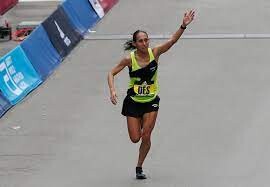
Athletes interested in supporting Brigham and Women's Hospital, the B.A.A. 10K’s presenting sponsor and exclusive fundraising partner, are encouraged to visit www.runbwh.org/10k. Since 2016, more than 2,100 runners and 180 teams have raised $1.2 million to fuel life-giving breakthroughs at Brigham and Women’s Hospital.
Linden will also be participating in the first-ever B.A.A. 10K Fest & Field Day on Saturday, June 25, one day prior to the race. From 2:00 p.m. to 6:00 p.m. at Boston Common, 10K Fest & Field Day will feature youth fitness activities, games, appearances by professional athletes, running clinics, and more. Participants will also be able to pick-up their participant shirts and bib numbers at 10K Fest. Additional details will be available on baa.org in the coming weeks.
ABOUT THE BOSTON ATHLETIC ASSOCIATION
Established in 1887, the Boston Athletic Association is a non-profit organization with a mission of promoting a healthy lifestyle through sports, especially running. The B.A.A.’s Boston Marathon is the world's oldest annual marathon, and the organization manages other local events and supports comprehensive charity, youth, and year-round running programs.
Since 1986, the principal sponsor of the Boston Marathon has been John Hancock. The Boston Marathon is part of the Abbott World Marathon Majors, along with international marathons in Tokyo, London, Berlin, Chicago, and New York City. For more information on the B.A.A., or the B.A.A. club, racing team, and High Performance Team, please visit www.baa.org.
Login to leave a comment
B.A.A. 10K
The 6.2-mile course is a scenic tour through Boston's Back Bay. Notable neighborhoods and attractions include the legendary Bull and Finch Pub, after which the television series "Cheers" was developed, the campus of Boston University, and trendy Kenmore Square. ...
more...Here's How How Evans Chebet of Kenya Won the 2022 Boston Marathon
He led a Kenyan podium sweep in the deepest Boston men’s pro field ever.
Thanks to covering the stretch between 35 and 40 kilometers in an astounding 13:55, Evans Chebet of Kenya won the 2022 Boston Marathon in 2:06:51.
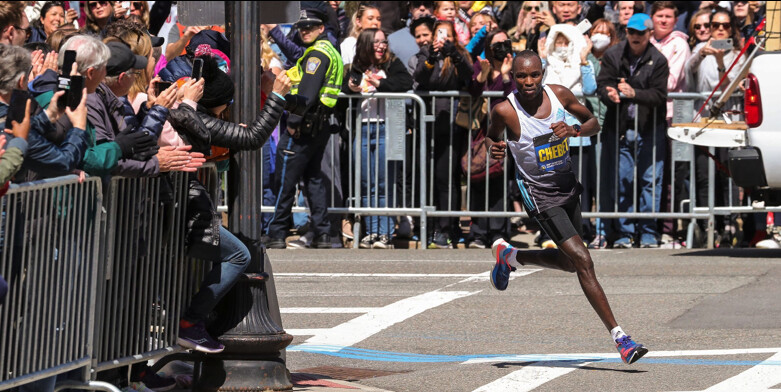
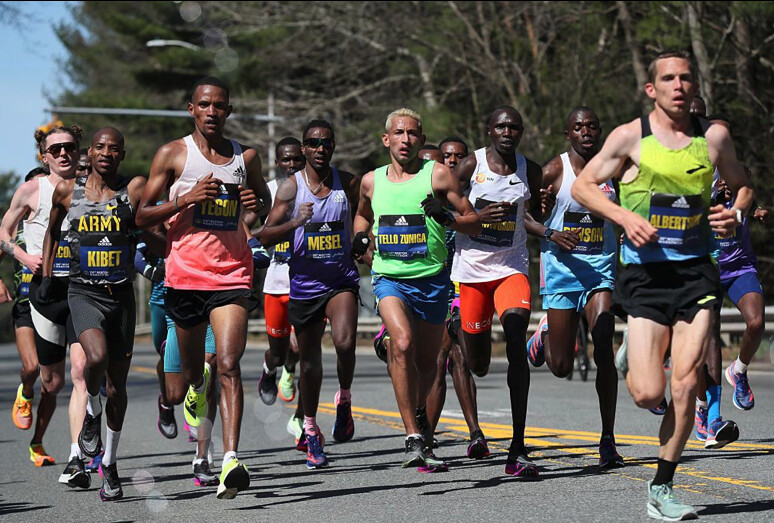
Lawrence Cherono, the 2019 winner, and Benson Kipruto, the 2021 champion, made it a Kenyan podium sweep. Cherono placed second in 2:07:21. Kipruto took third in 2:07:27.
Scott Fauble was the top American, placing seventh in 2:08:52. Fauble was also the top American in 2019, when he also finished seventh. Elkanah Kibet, ninth in 2:09:07, and CJ Albertson, 13th in 2:10:23, were the second and third U.S. finishers. All three set personal bests.
Here’s a full breakdown of the 2022 Boston Marathon men’s race, from how the race was won to the biggest surprise to the $$$.
The Winner: Evans Chebet
Chebet, 33, has been near the top of world marathoning for the past few years. Only one man in the field has a better personal best than his 2:03:00, and before today he had placed first or second in 10 marathons. But his Boston win was still a big step forward in his career.
Chebet’s best races before today were in high-level marathons such as Valencia, Prague, and Seoul, not in World Marathon Majors. He placed third in Berlin in 2016, fourth in Tokyo in 2017, and fourth last fall in London. He started Boston once before today, in 2018, when he was among the one-third of elite entrants who dropped out during that year’s horrific wind, rain, and cold.
Certainly his momentum was heading in the right direction for today’s Boston. Other than that fourth in London in October, he has been on a winning streak, taking titles in Buenos Aries in 2019 and Lake Biwa and Valencia (where he set his PR) in 2020. Chebet will no doubt cherish but not be complacent about his new status among the world’s best. He likely knows that since 2009, only one man, Lelisa Desisa of Ethiopia (2013 and 2015), has won more than one Boston title.
Where the Race Was Won
Chebet covered the 22nd mile in 4:27. Or as Geay apparently thought, “4:27?!” The Tanzanian looked at his watch, either in disbelief or in regret about how much time remained in the race now that he’d opted to go with Chebet. Whatever the case, Chebet dropped Geay a couple of minutes later en route to a 4:26 23rd mile. Then he ran another 4:26 mile.
Chebet’s 13:55 5K between 35K and 40K is good enough to win most open 5K road races. Cherono and Kipruto gave chase and overtook Geay in the process, but Chebet’s victory was never in doubt once he started his fabulous display of late-race speed. Chebet acknowledged as much at the postrace press conference, saying through an interpreter he was confident that his move would get him the win.
The Biggest Surprise
It was a fast, deep race. The 10th finisher, Kinde Atanaw of Ethiopia, ran 2:09:16. That’s 35 seconds faster than Benson Kipruto ran to win the 2021 edition.
Wait, that’s surprising? Wasn’t this said to be the best Boston field in years? Didn’t the postponement of the London Marathon to October funnel that many more elites to the start line in Hopkinton? And doesn’t everyone run fast in the super shoe era?
Well, there were super shoes six months ago when winner Kipruto was the only one to break 2:10. Also, despite what may have appeared to be the case on television, the weather was challenging. The wind was slight—usually no more than 5 miles per hour while the pros were racing—but not favorable. Des Linden, who won during the 2018 monsoon and knows from wind, said there was a persistent headwind. A weather team from the University of Massachusetts at Lowell who tracked conditions confirmed to Runner’s World there was an atypical easterly (i.e., in-their-race) wind throughout the race.
And, as we noted above, it’s become common at Boston for the men to not really start racing until the final five miles. Today, they happened to do so after an opening half of 1:03:24, almost three minutes faster than the main pack ran last year.
So, yes, a bunch of really fast guys ran fast today at Boston. But that outcome was neither predictable nor weather-enabled.
In recent years, the men’s race at Boston has often featured a large lead pack cresting Heartbreak Hill together, and then someone shattering the pack with an aggressive move soon after. That trend continued today.
Chebet was among a pack of 20 that hit halfway in 1:03:24. He occasionally appeared near the front of the pack as they moved through the Newton hills, looking eager to get going, then perhaps reminding himself it was too early, and disappearing back into the group.
Fifteen men came up and over the most famous hill in running together. With five miles to go, two-time New York City winner Geoffrey Kamworor and last year’s champ, Benson Kipruto, appeared at the front for the first time. Chebet looked around some more. Then he started to push.
Within a minute, the field was single file. Only Gabriel Geay of Tanzania went with Chebet. Kipruto and 2019 winner Lawrence Cherono ran together in third and fourth
Tidbits From the Top 20
In addition to runner-up Lawrence Cherono (2019) and third-place finisher Benson Kipruto (2021), there were two other former Boston champions in the top 20. Lemi Berhanu of Ethiopia, the 2016 winner, placed 11th in 2:09:43. Yuki Kawauchi of Japan, winner during the apocalyptic storm of 2018, finished 20th in 2:12:55.
If sixth-place finisher Albert Korir and his knock-kneed gait looked familiar, that’s because he won the 2021 New York City Marathon in November.
Besides Scott Fauble, Elkanah Kibet, and CJ Albertson, there were four other American men in the top 20: Matthew McDonald, 14thin 2:10:35 (a PR); Reed Fischer, 16th in 2:10:54 (also a PR); Mick Iacofano, 17th in 2:11:48; and Colin Bennie, 19th in 2:12:08.
The Prize Money
Evans Chebet, $150,000
Lawrence Cherono, $75,000
Benson Kipruto, $40,000
by Runner’s World
Login to leave a comment
Boston Marathon
Among the nation’s oldest athletic clubs, the B.A.A. was established in 1887, and, in 1896, more than half of the U.S. Olympic Team at the first modern games was composed of B.A.A. club members. The Olympic Games provided the inspiration for the first Boston Marathon, which culminated the B.A.A. Games on April 19, 1897. John J. McDermott emerged from a...
more...Everything you need to know about Boston Marathon 2022
Tokyo 2020 Olympic gold medalist Peres Jepchirchir will headline the 126th edition of the Boston Marathon, which returns to its customary Patriots Day (April 18) for the first time since 2019.
The men's race, meanwhile, will see seven of the last eight winners will compete including Kenya's reigning champion Benson Kipruto.
Elsewhere in the women's race Jepchirchir's Kenyan compatriots Joyciline Jepkosgei and Edna Kiplagat, and Olympic bronze medalist Molly Seidel will offer a stern challenge.
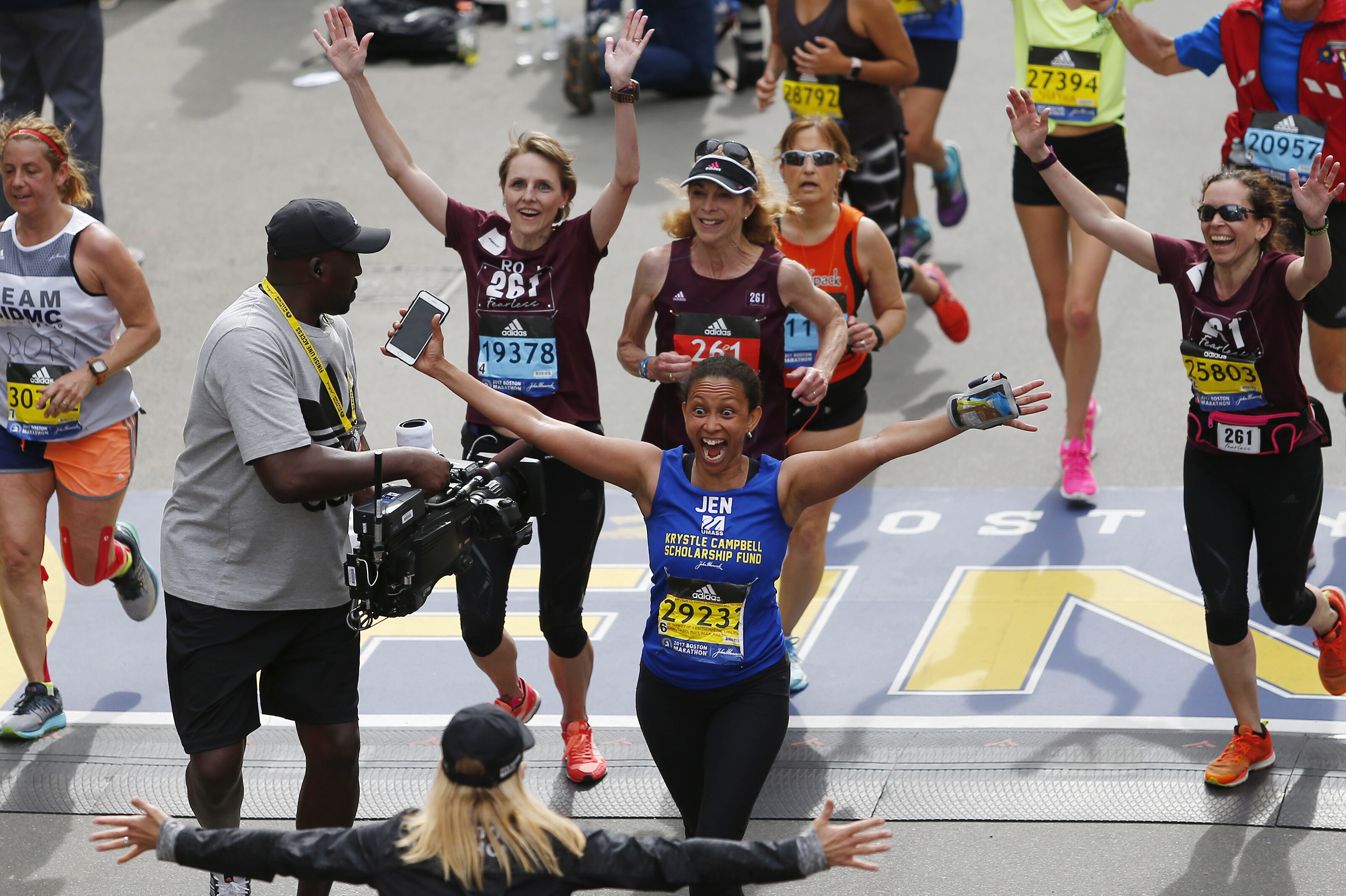
Below, we take a look at the top athletes to watch out for in one of the top events of the 2022 athletics calendar, the route they will follow in Boston, the schedule and how to watch the action.
Tokyo star Jepchirchir targets podium
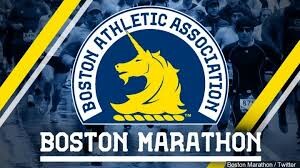
The quality of the women’s race is impressive, with 12 women on the start list having run under 2.23.00
A year after she claimed the Olympic title and the New York City Marathon, Jepchichir has one target: to be the first woman to cross the finish line on Boylston Street.
“My high expectations is to be a winner and I would like to arrive at the day of the race in my best shape,” said Jepchirchir.
The Kenyan will compete with a familiar rival from the Tokyo 2020 podium in Olympic bronze medalist Seidel. The former Boston resident is the third American woman in history to medal in the Olympic marathon.
Two former Boston Marathon champions in 42-year-old Edna Kiplagat (2017 winner), and American Des Linden (2018) will also toe the Boston course again.
The 2022 race will also mark the 50th anniversary of the first official women’s race in 1972.
To mark the occasion, an honorary team comprised of eight women who have made a powerful impact in athletics and human rights will compete. Among the group will be Valerie Rogosheske, one of the original eight finishers in 1972.
All eyes on the returning men's champions
A very strong contingent of men's runners will lock horns on the second stop of the World Marathon Majors, following Eliud Kipchoge's comfortable victory in Tokyo.
Keep an eye on Benson Kipruto, the defending champion from Kenya and his compatriot Lawrence Cherono (2019 Boston winner), Japan’s ‘citizen runner’ Kawauchi Yuki (2018), Kenya’s Geoffrey Kirui (2017), and Ethiopian pair of Lemi Berhanu (2016), and Lelisa Desisa (2015 and 2013).
Geoffrey Kamworor, the two-time New York Marathon winner who trains with Kipchoge in Kaptagat, is back in form after being hit by a motorbike in June 2020 and sitting out for a year.
Elite Americans runners Colin Bennie, hoping to improve on his seventh-place finish from 2021, Jake Riley and Jared Ward, will also be challenging for top honors.
The course
The Boston Marathon hasn't changed from last year, but does see the number of participants increased to 30,000.
The race starts in Hopkinton, MA and ends on Boylston Street in Boston, MA. The course is flat with the most challenging stretch of the race being the steep incline between 29km-34km (Miles 18-21).The notorious Heartbreak Hill is the last of the four hills in Newton.
The schedule of events
This year’s races will start earlier than previous years with expected rolling starts.
Men's Wheelchair - 8:02 am ET.
Women's Wheelchair - 8:05 am ET.
Handcycles & Duos - 8:30 am ET.
Professional Men - 8:37 am ET.
Professional Women - 8:45 am ET.
Para Athletics Divisions - 8:50 am ET.
Rolling Start Begins - 9:00 am ET.
Rolling Start Ends - 11:30 am ET.
How to watch
For Boston residents, they can follow the race live by finding a good spot on the spectator guide, or can kick back in their living room as the marathon will be aired lived on CBS Boston’s WBZ-TV from 7:00am (EDT).
NBC Sports Network and the NBC Sports App are the exclusive national television and streaming partner for the Boston Marathon for wider America.
Live race coverage will be broadcast on NBC Sports Network and the NBC Sports App 7:30 a.m. to 12:00 p.m. ET.
by Evelyn Watta
Login to leave a comment
Boston Marathon
Among the nation’s oldest athletic clubs, the B.A.A. was established in 1887, and, in 1896, more than half of the U.S. Olympic Team at the first modern games was composed of B.A.A. club members. The Olympic Games provided the inspiration for the first Boston Marathon, which culminated the B.A.A. Games on April 19, 1897. John J. McDermott emerged from a...
more...Olympic Medalists Will Headline 2022 Boston Marathon Women’s Field
Peres Jepchirchir of Kenya, the 2021 Olympic gold medalist in the marathon, and her countrywoman Joyciline Jepkosgei, who ran the fastest marathon of 2021, 2:17:43, when she won the London Marathon, headline the Boston Marathon elite women’s field for 2022.
American Molly Seidel, who won Olympic bronze last summer, will also line up in Hopkinton on April 18.
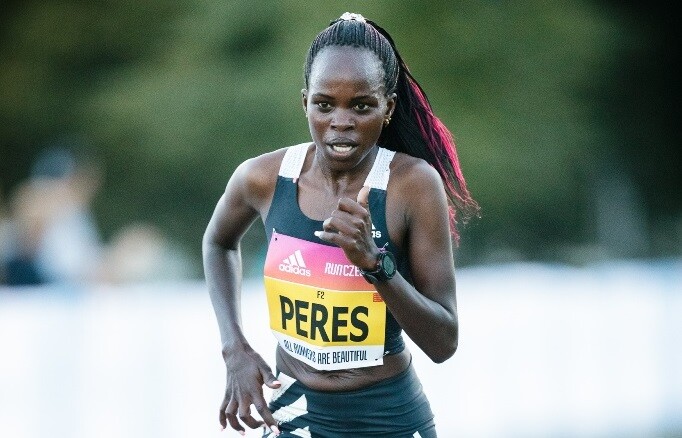
The race marks the 50th anniversary of the first official women’s field at the Boston Marathon. This year’s elite women entrants include Olympic and Paralympic medalists, World Major Marathon champions, and sub-2:20 marathoners.
The race will include four Ethiopians with sub-2:20 credentials: Degitu Azimeraw, Roza Dereje, Zeineba Yimer, and Tigist Girma.
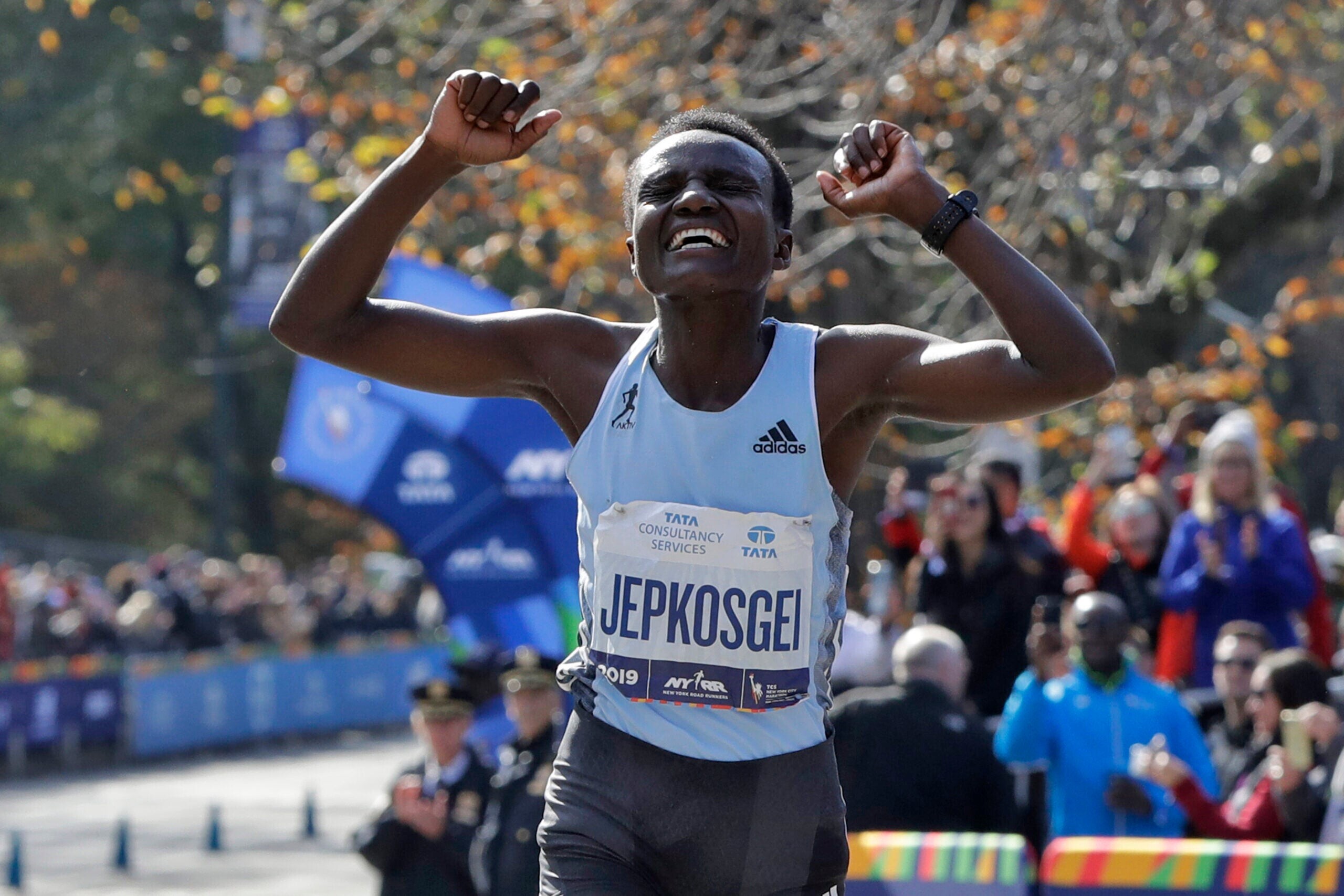
Former Boston Marathon champions Des Linden (2018) and Edna Kiplagat (2017) will race, as will Mary Ngugi of Kenya, who was third in Boston last October.
In addition to Linden, Sara Hall, who is the second-fastest woman in American marathoning history, is part of a strong crop of American talent. Nell Rojas, who was the top American finisher at Boston last year, and top-10 2020 Olympic Trials finishers Kellyn Taylor and Stephanie Bruce are also scheduled to run.
Other notable competitors include Canadian Olympian and national record-holder Malindi Elmore, two-time Canadian Olympian Natasha Wodak, and Charlotte Purdue, who is the third-fastest woman in British marathon history.
The Boston Marathon benefits from being the only World Marathon Major race on the calendar in the spring.
“As we look to celebrate the trailblazing women of 1972, we are delighted to welcome the fastest and most accomplished women’s field in the history of the Boston Marathon,” BAA President and CEO Tom Grilk said in a press release. “Though there have been many milestones in the five decades since the women’s division was established in Boston, this field of Olympic and Paralympic medalists, Boston champions, and global stars will make this a race to remember on Patriots’ Day.”
Elite field
Peres Jepchirchir (KEN) 2:17:16Joyciline Jepkosgei (KEN) 2:17:43Degitu Azimeraw (ETH) 2:17:58Roza Dereje (ETH) 2:18:30Zeineba Yimer (ETH) 2:19:28 Edna Kiplagat (KEN) 2:19:50Tigist Girma (ETH) 2:19:52Maurine Chepkemoi (KEN) 2:20:18Sara Hall (USA) 2:20:32Desiree Linden (USA) 2:22:38Viola Cheptoo (KEN) 2:22:44 Purity Changwony (KEN) 2:22:46Charlotte Purdue (GBR) 2:23:26Kellyn Taylor (USA) 2:24:28Molly Seidel (USA) 2:24:42Malindi Elmore (CAN) 2:24:50Mary Ngugi (KEN) 2:25:20 Monicah Ngige (KEN) 2:25:32Natasha Wodak (CAN) 2:26:19Nell Rojas (USA) 2:27:12 Stephanie Bruce (USA) 2:27:47Dakotah Lindwurm (USA) 2:29:04Roberta Groner (USA) 2:29:09Angie Orjuela (COL) 2:29:12Bria Wetsch (USA) 2:29:50Maegan Krifchin (USA) 2:30:17Elaina Tabb (USA) 2:30:33Lexie Thompson (USA) 2:30:37Kate Landau (USA) 2:31:56
by Chris Hatler
Login to leave a comment
Boston Marathon
Among the nation’s oldest athletic clubs, the B.A.A. was established in 1887, and, in 1896, more than half of the U.S. Olympic Team at the first modern games was composed of B.A.A. club members. The Olympic Games provided the inspiration for the first Boston Marathon, which culminated the B.A.A. Games on April 19, 1897. John J. McDermott emerged from a...
more...Defending champions will return to mark 50th anniversary of Chevron Houston Marathon
With 194,039 finishers having run 5,083,822 miles since the first Chevron Houston Marathon, the race will mark its 50th anniversary on January 16.
“When 113 runners lined up in 1972 to run loops in Memorial Park, no one would have predicted the marathon would have a Golden Anniversary at all, much less with a field of 28,000 celebrating on the streets of Houston,” said Houston Marathon Committee Executive Director Wade Morehead. “Led by some of the top marathoners and half marathoners in the world, we’re looking forward to a great day in the history of the race and the city.”
Returning to defend their Chevron Houston Marathon titles from 2020 – only a virtual race was held last year because of Covid – are Askale Merachi and Kelkile Gezahegn, both of Ethiopia. Making her seventh-consecutive appearance will be three-time champion Biruktayit Eshetu Degefa, who will renew her quest to become the race’s first four-time winner after finishing as runner-up to Merachi last year.
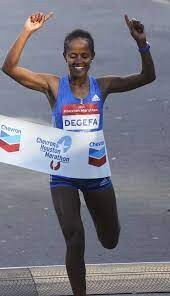
Among the Americans worth watching are Keira D’Amato and Frank Lara. D’Amato comes to Houston with a personal best of 2:22:56 and could challenge the 10-year-old course record of 2:23:14, while Lara – the 2014 Gatorade Boys’ High School Cross Country Runner of the Year out of Strake Jesuit College Prep – returns home to Houston to make his marathon debut.
Dan Green, the first winner in 1972, will serve as honorary starter, along with other members of the race’s Hall of Fame. In addition to marking its 50th anniversary, the race will serve as the first qualifier for the 2024 U.S. Olympic Team Trials – Marathon, with its newly-toughened standards of 2:18 for men and 2:37 for women.
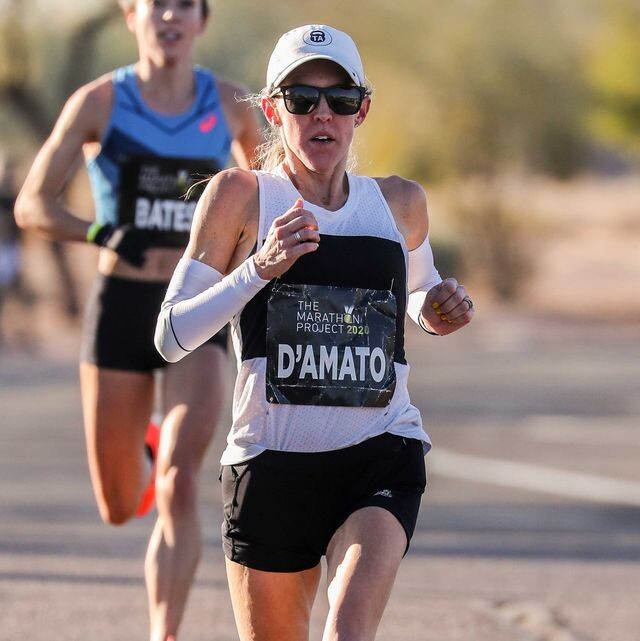
The Aramco Houston Half Marathon, run concurrently with the marathon, will be headlined by Kenya’s Vicoty Chepngeno and American Sara Hall. Chepngeno set her personal best of 1:07:22 in winning the Philadelphia Half Marathon last November, while Hall is the sixth-fastest woman in U.S. history at the half marathon and second-fastest in the marathon. On the men’s side, the fastest time in the field belongs to Shadrack Kimining Korir, who returns to Houston after finishing third here in 2020 in a personal best of 59:27.
This year, the elite fields for the two races will feature athletes representing 17 countries: the U.S., Kenya, Ethiopia, Mexico, Great Britain, Japan, Bulgaria, Guatemala, Peru, Eritrea, South Africa, Morocco, New Zealand, Canada, Israel and Australia.
The Chevron Houston Marathon and Aramco Houston Half Marathon will be broadcast on ABC-13 from 7 a.m.-10 a.m., with a race day recap at 10:35 p.m. Joining ABC-13’s Greg Bailey and Gina Gaston as expert commentator will be Des Linden, the 2018 Boston Marathon winner and 50K world-record holder. Linden made the first of her two U.S. Olympic Marathon teams in Houston in 2012.
by AIMS
Login to leave a comment
Chevron Houston Marathon
The Chevron Houston Marathon offers participants a unique running experience in America's fourth largest city. The fast, flat, scenic single-loop course has been ranked as the "fastest winter marathon" and "second fastest marathon overall" by Ultimate Guide To Marathons. Additionally, with more than 200,000 spectators annually, the Chevron Houston Marathon enjoys tremendous crowd support. Established in 1972, the Houston Marathon...
more...

